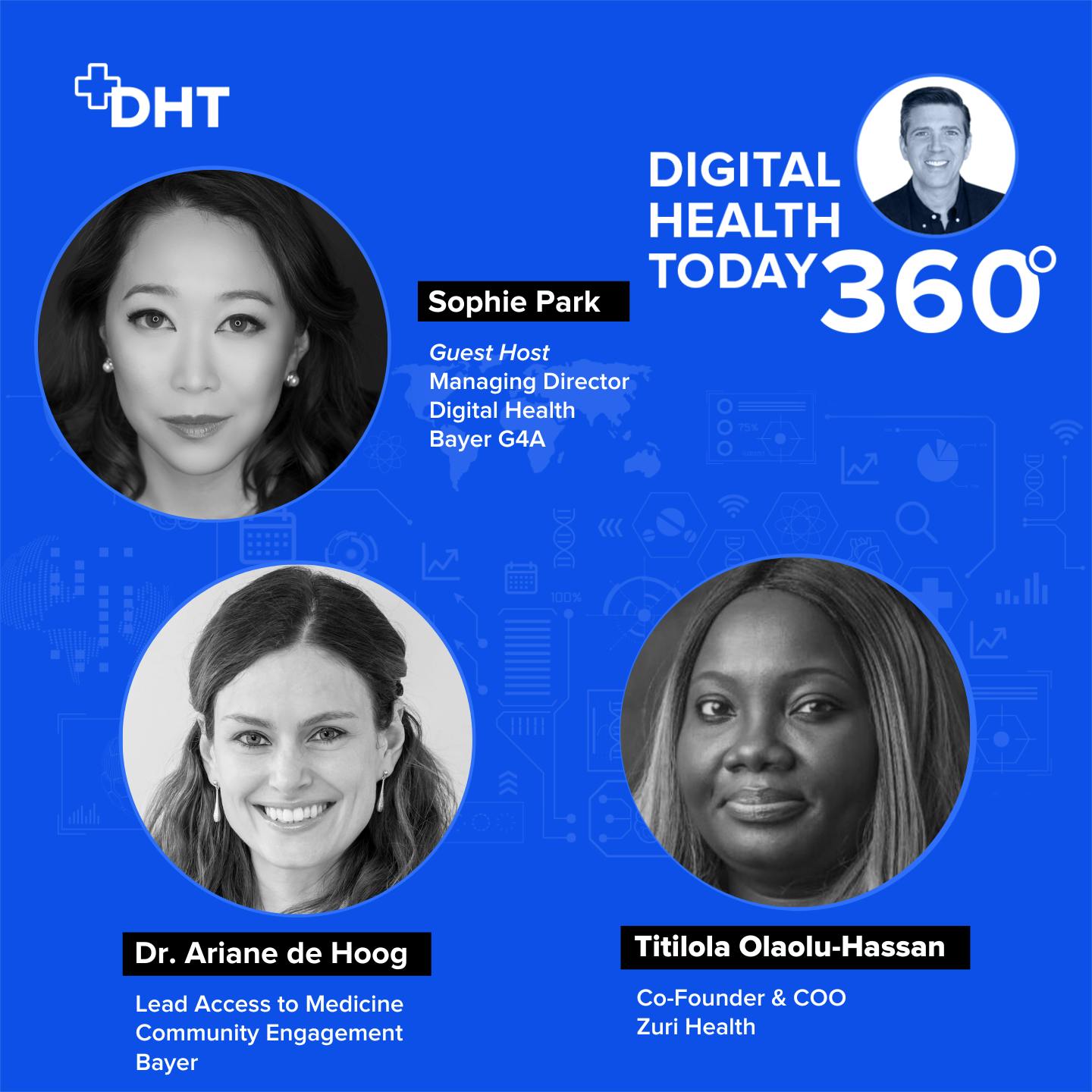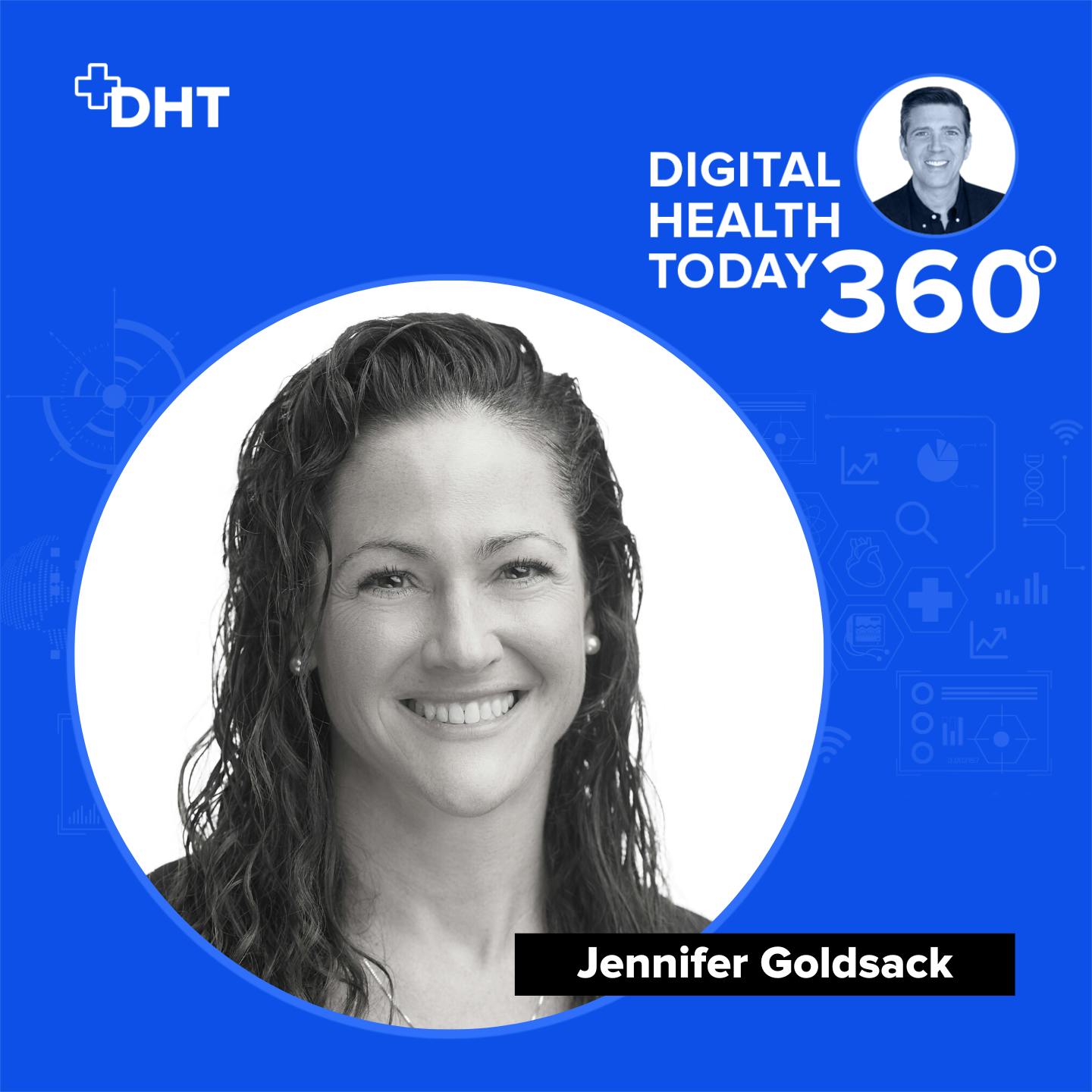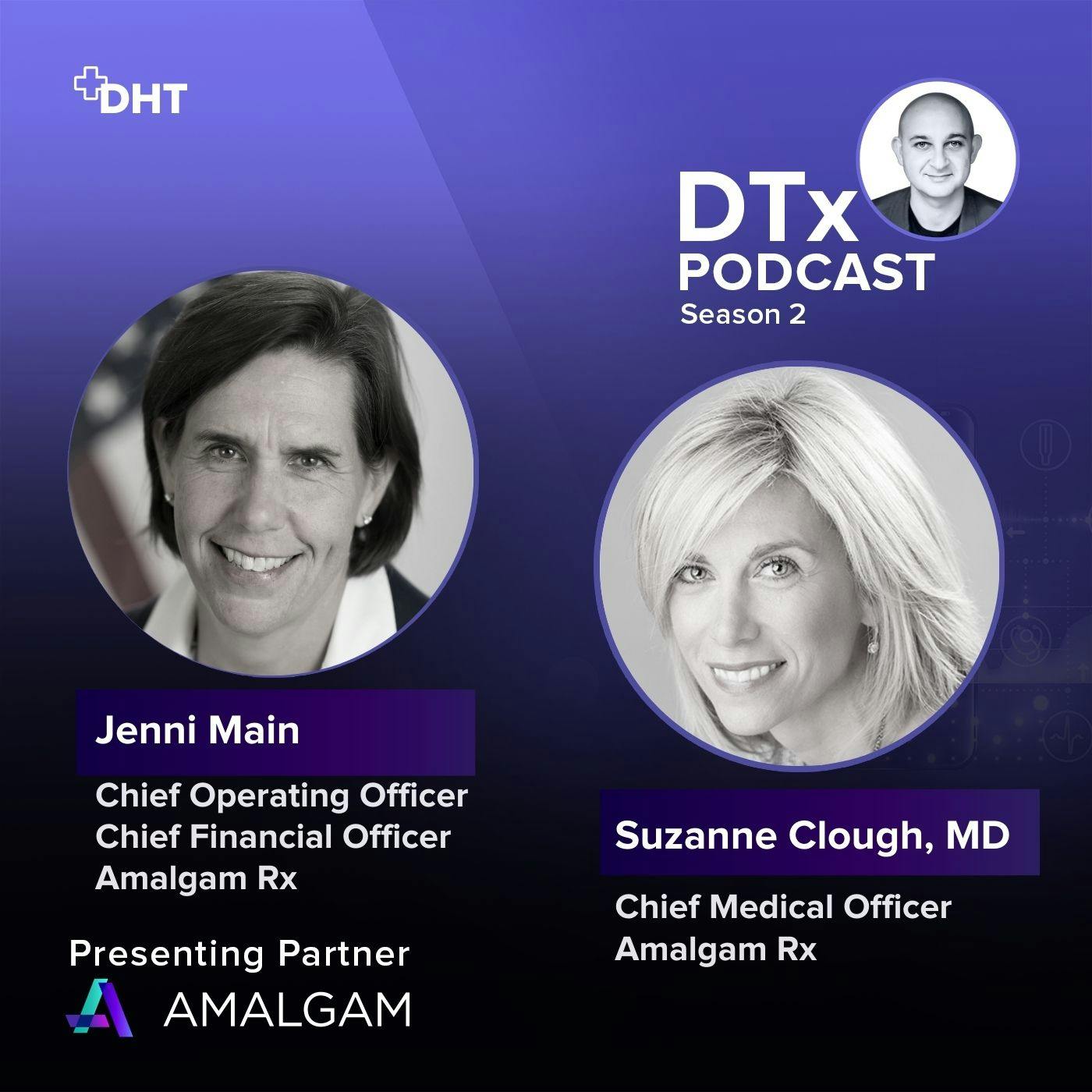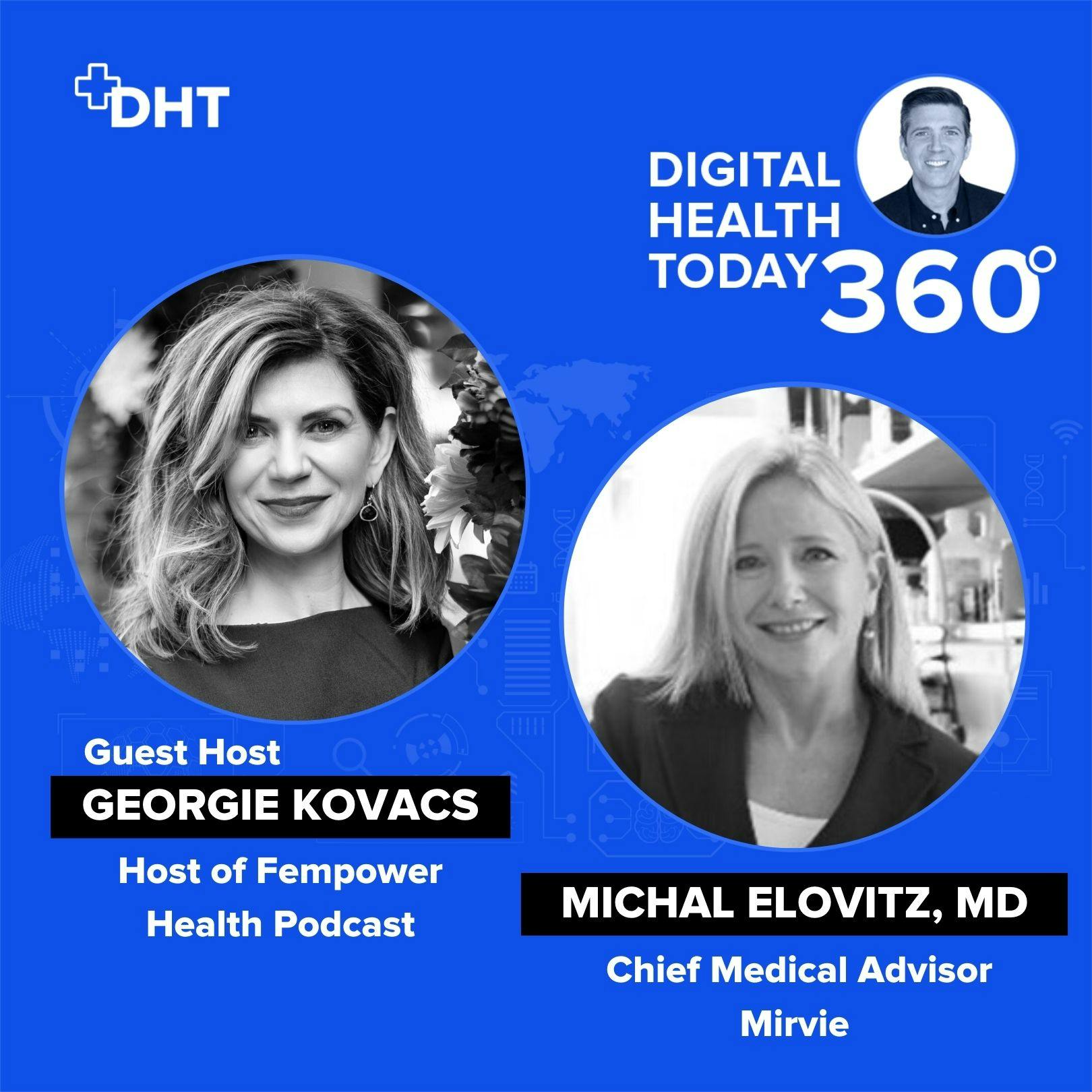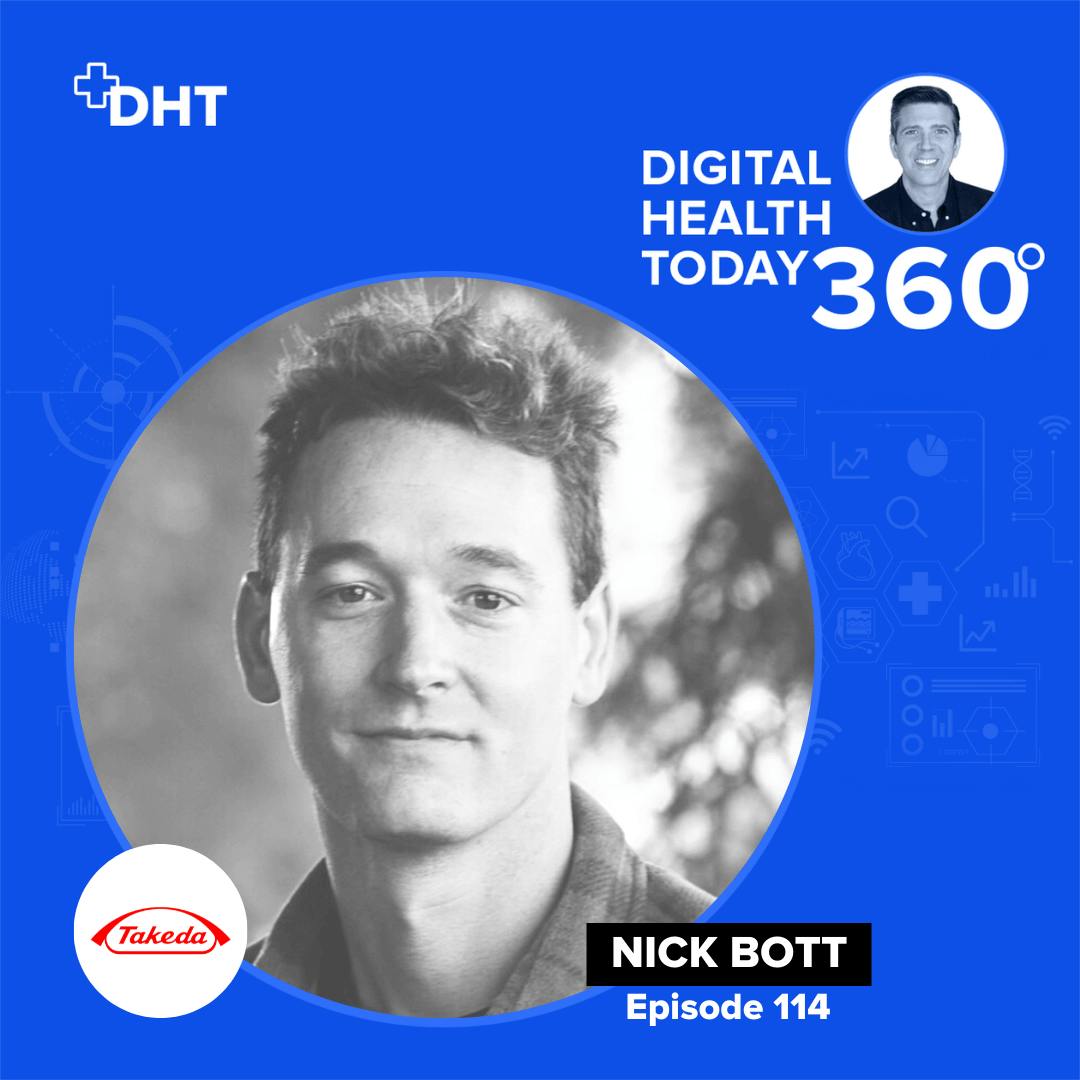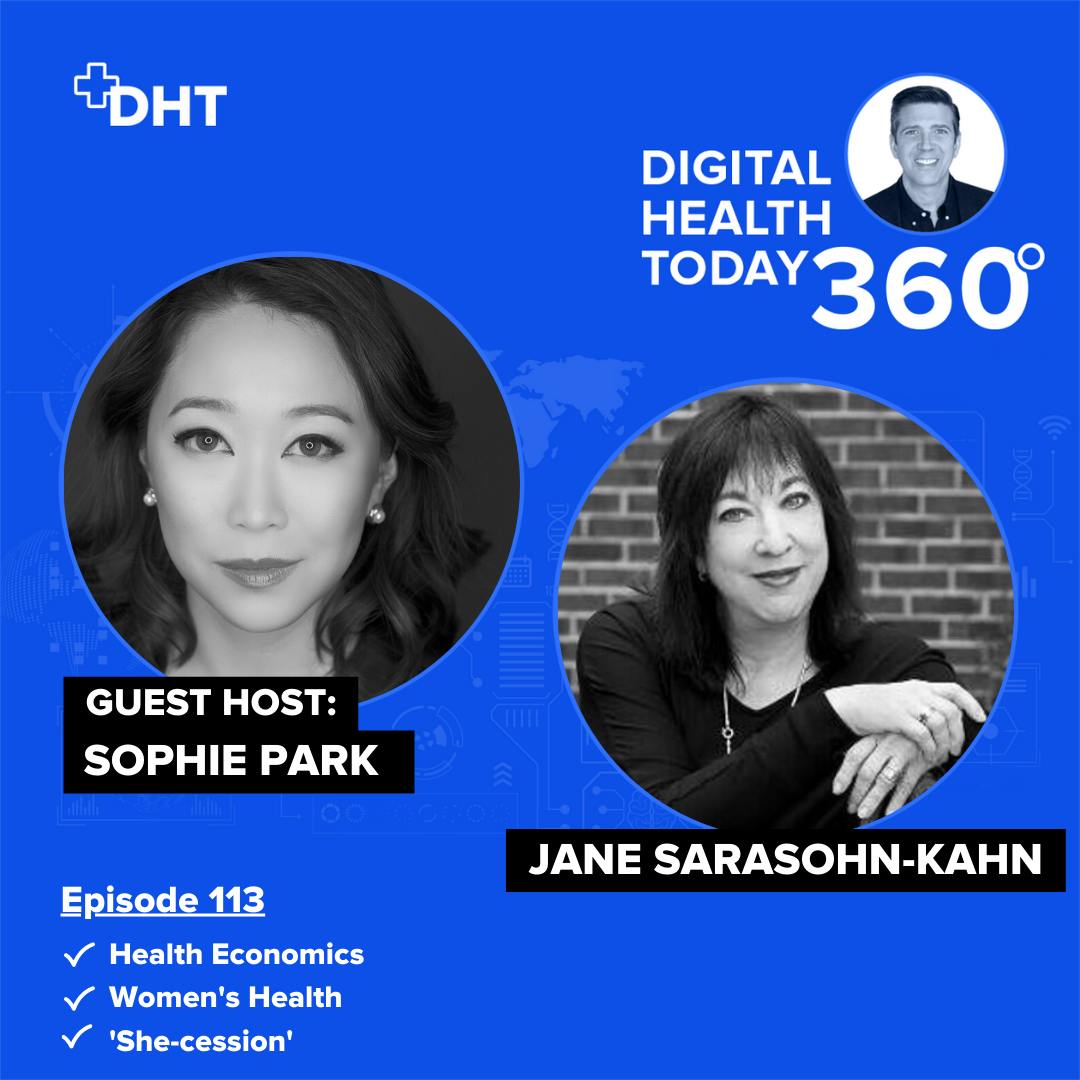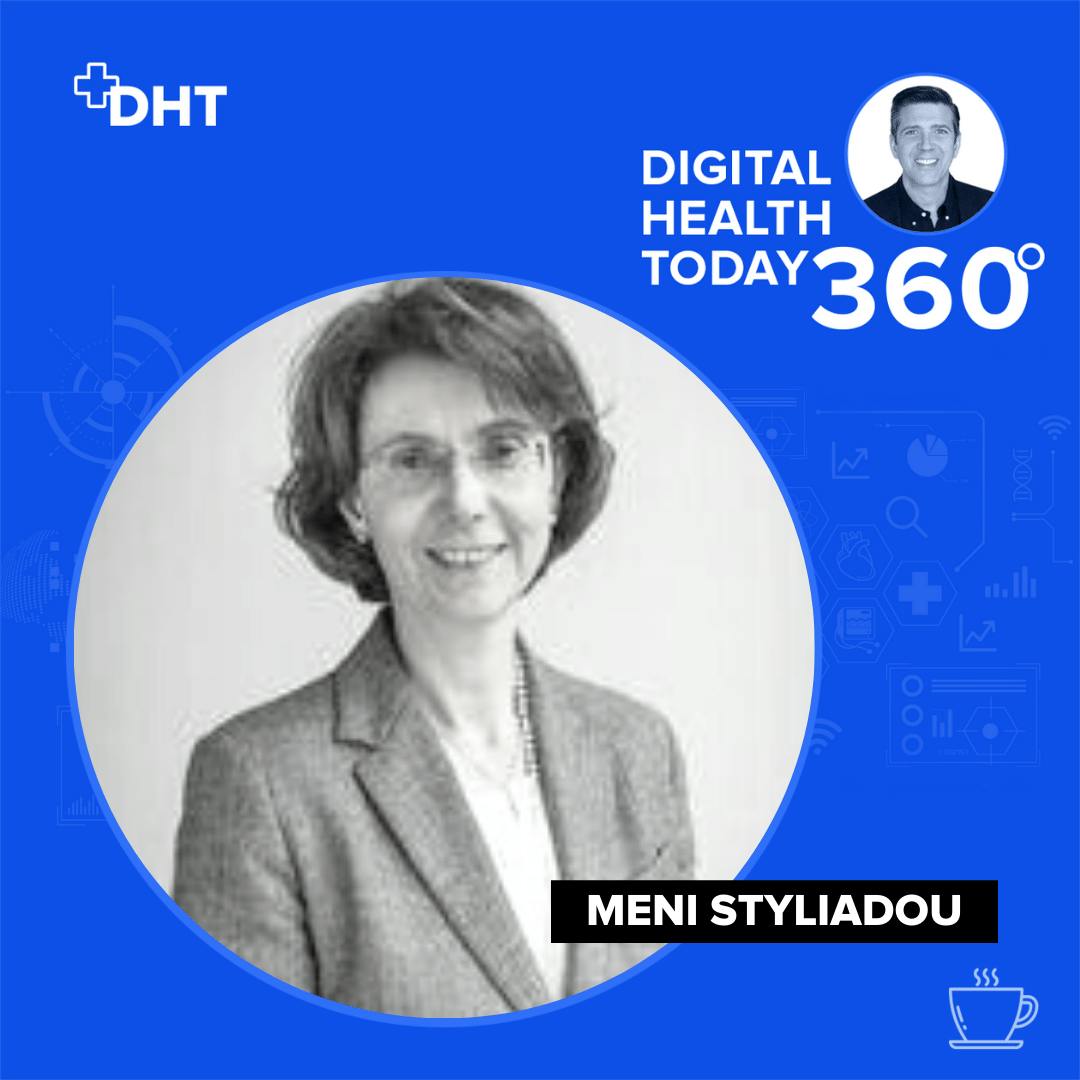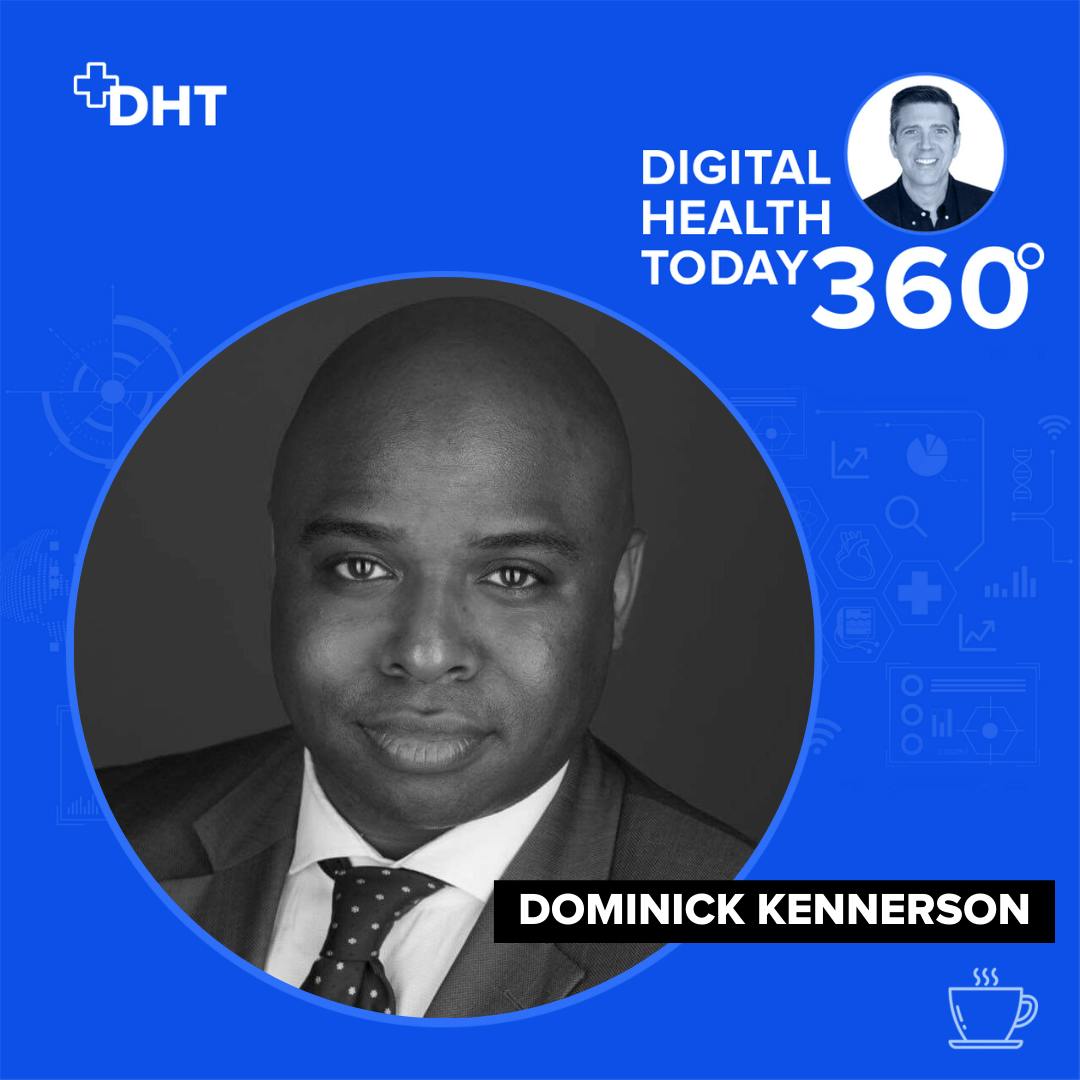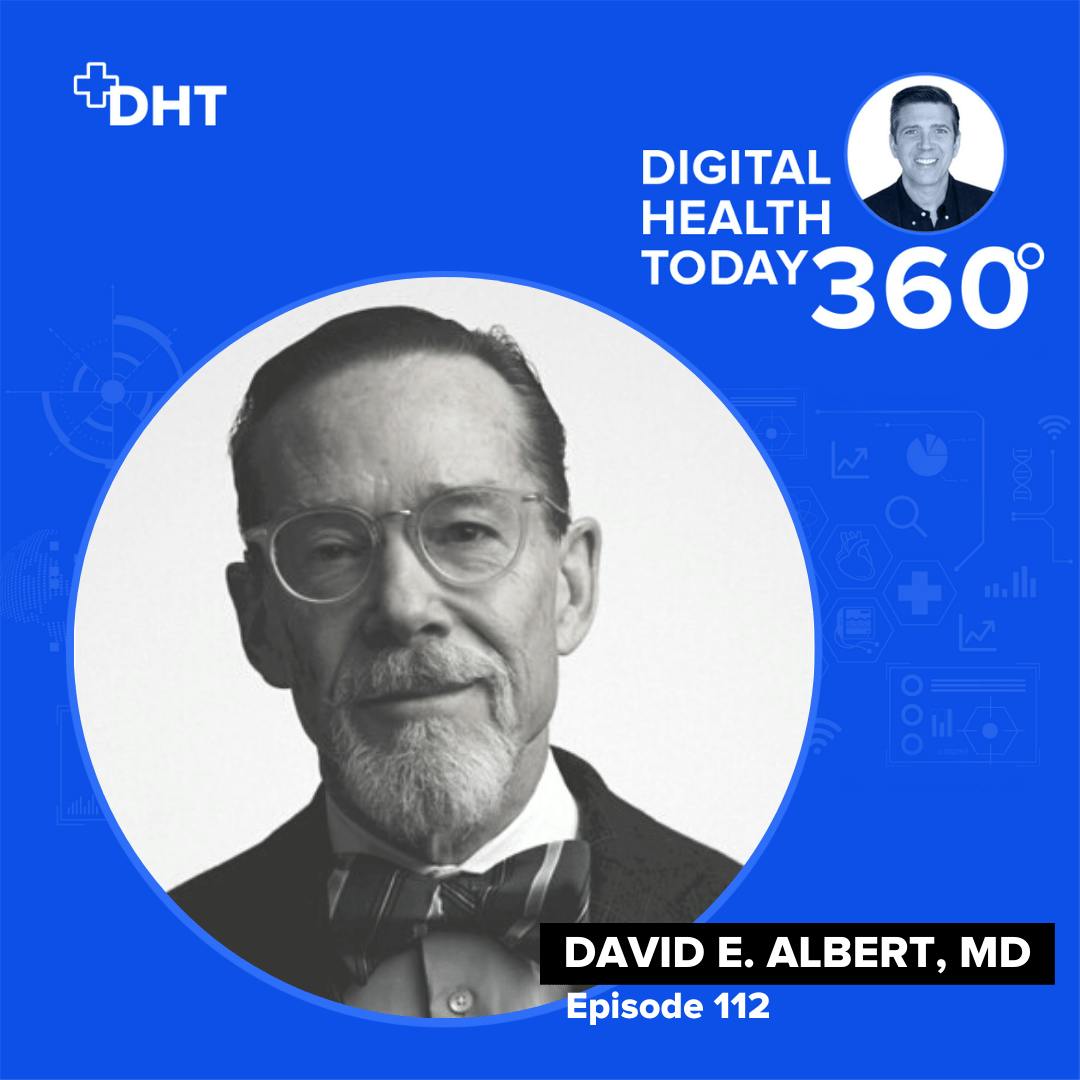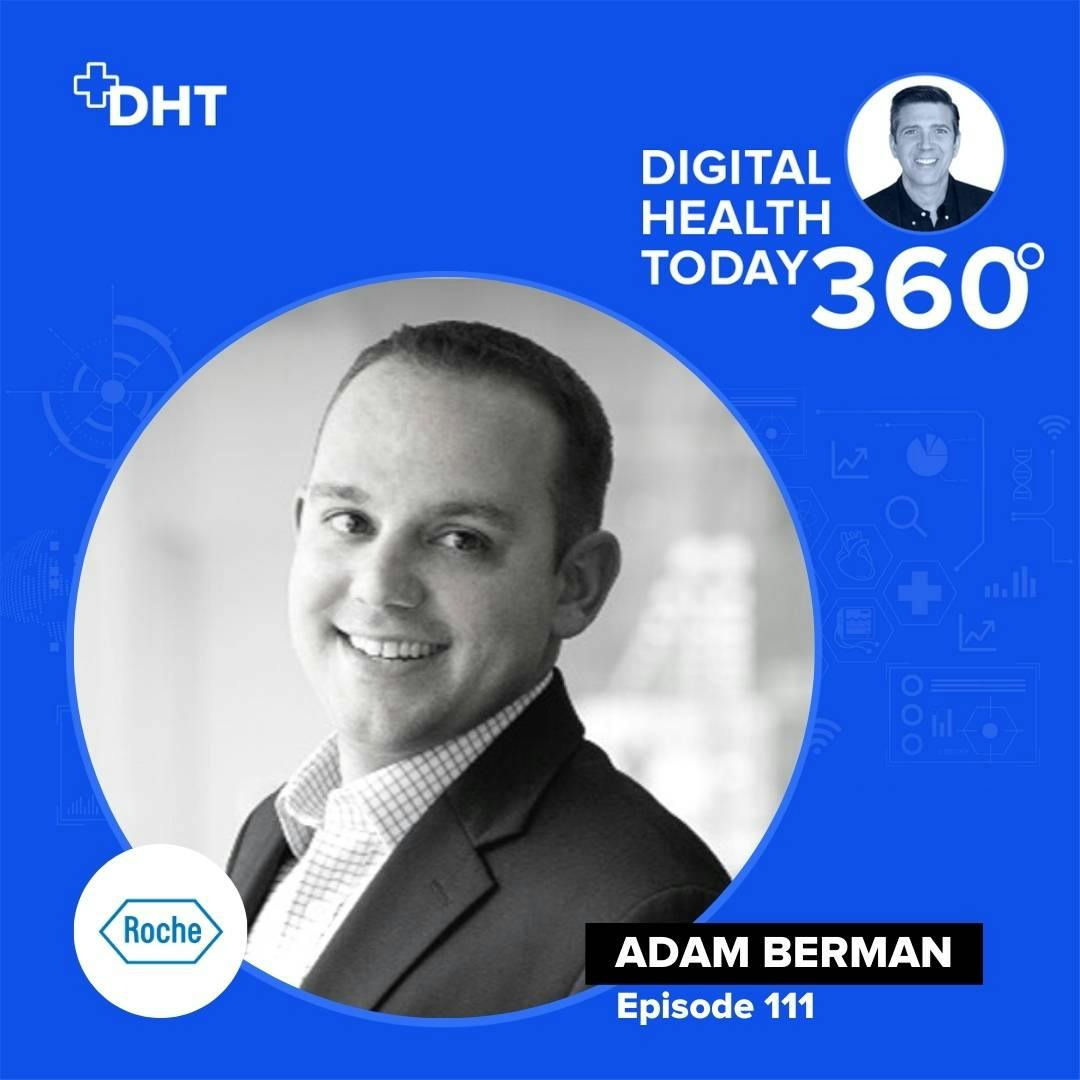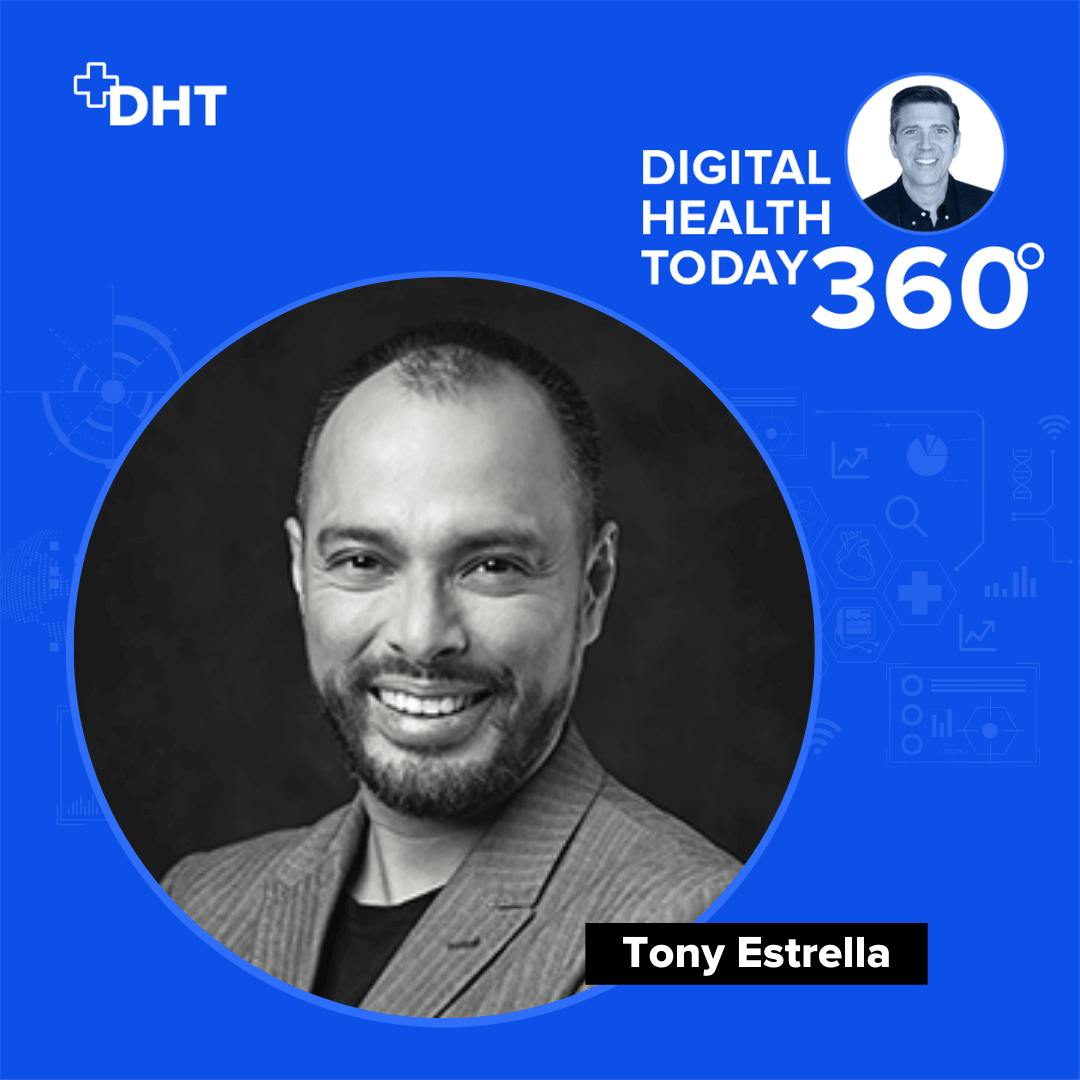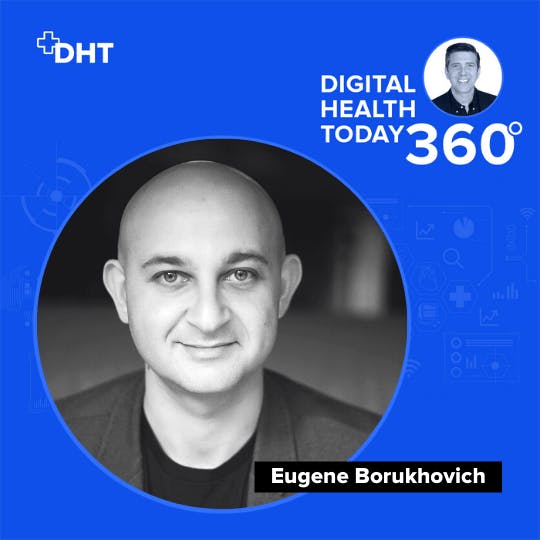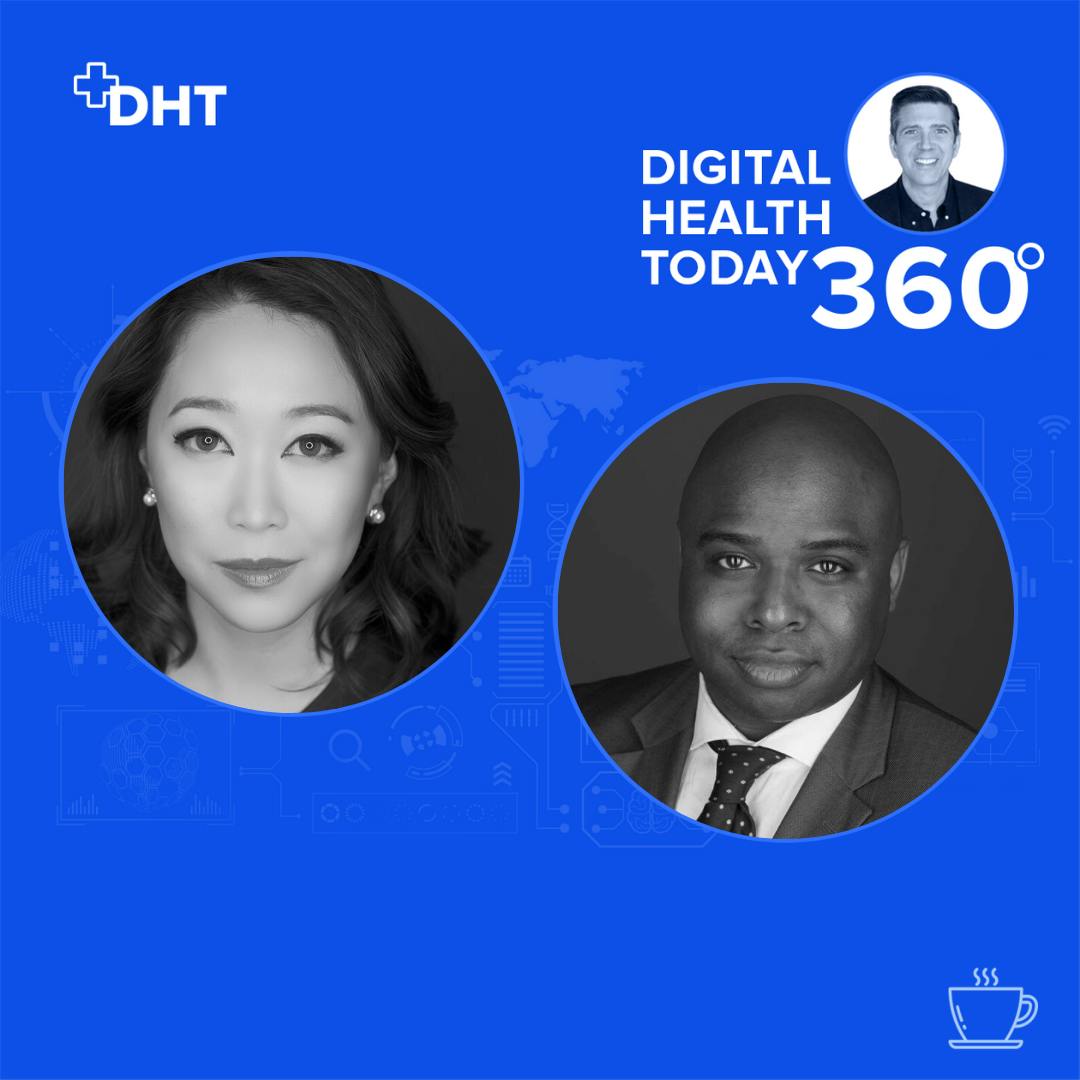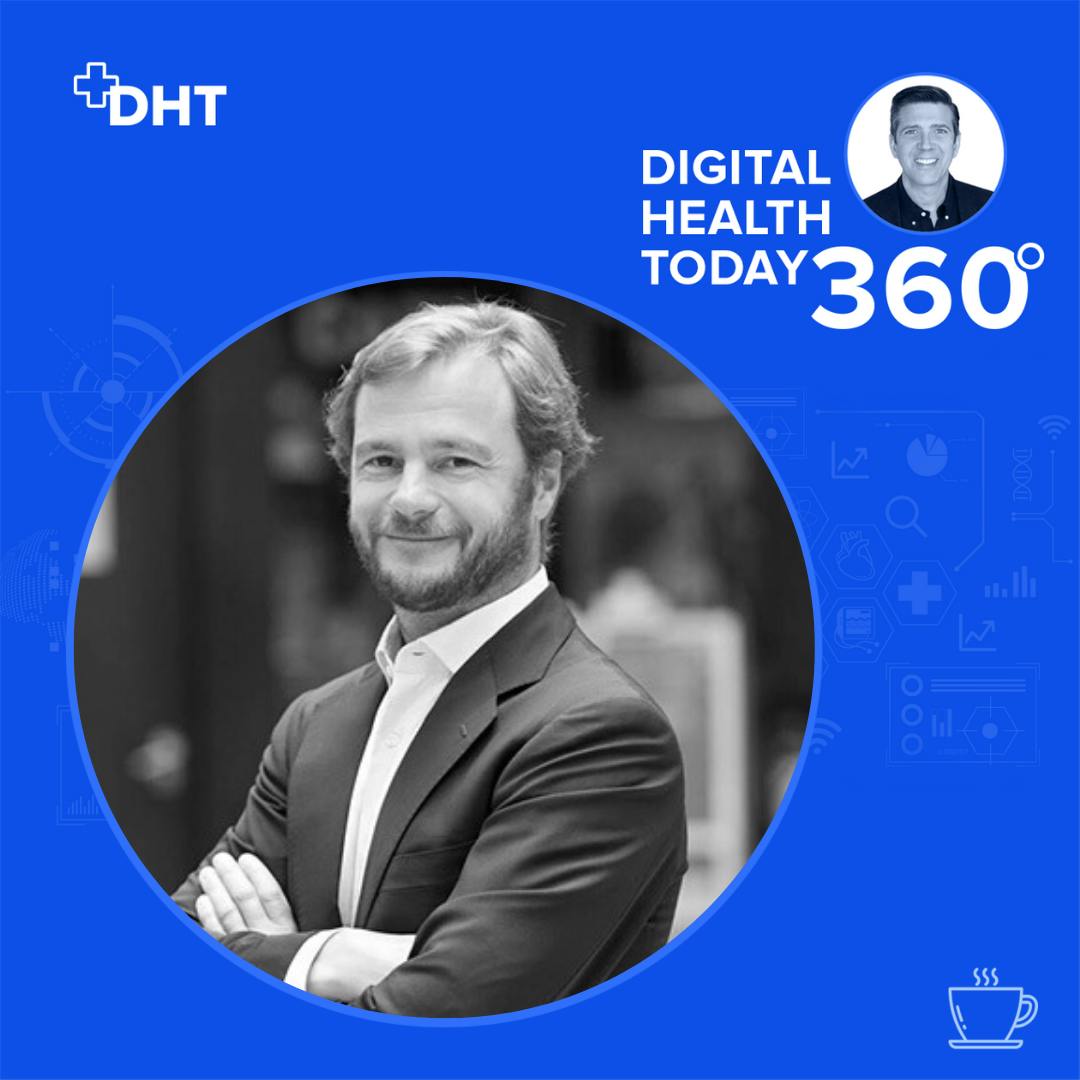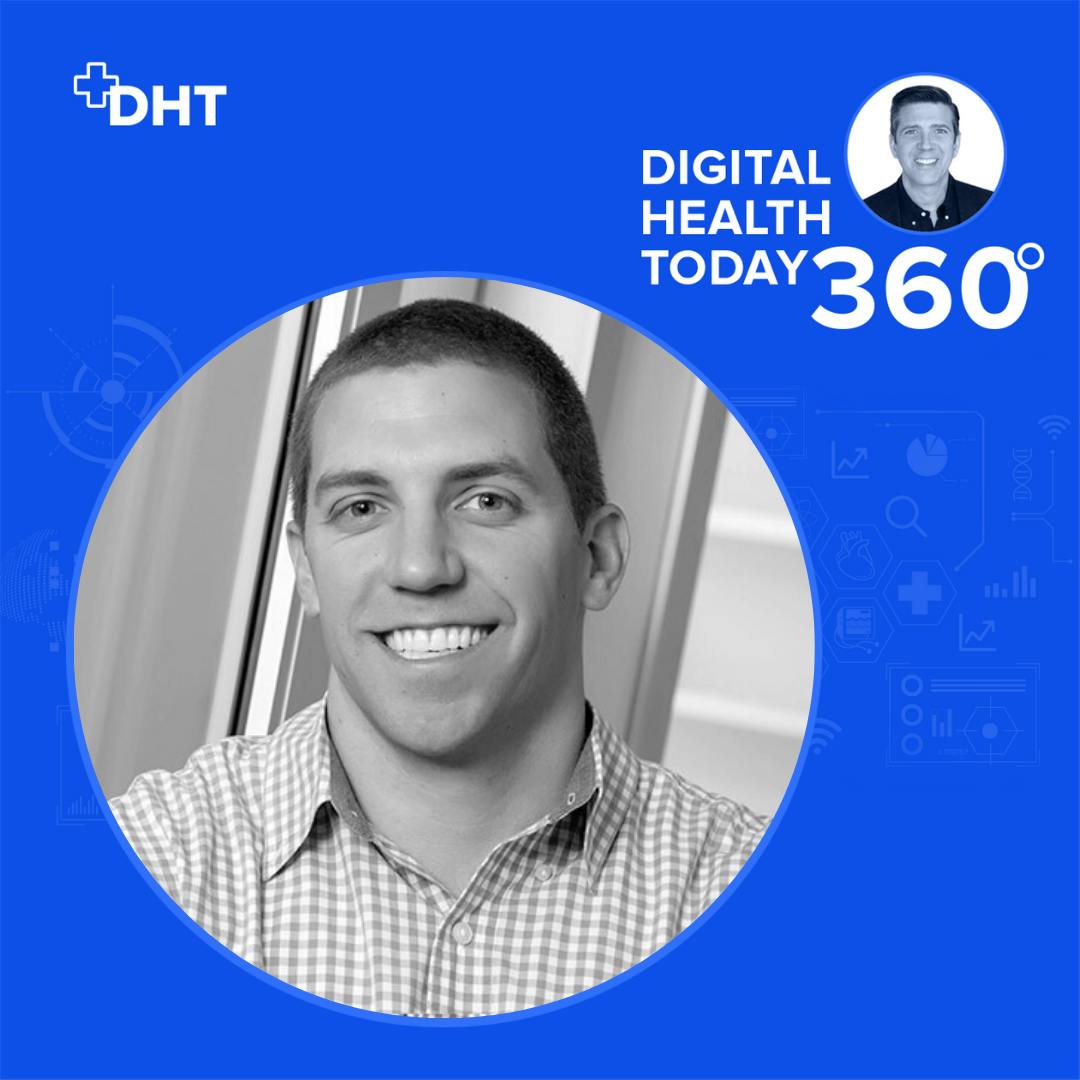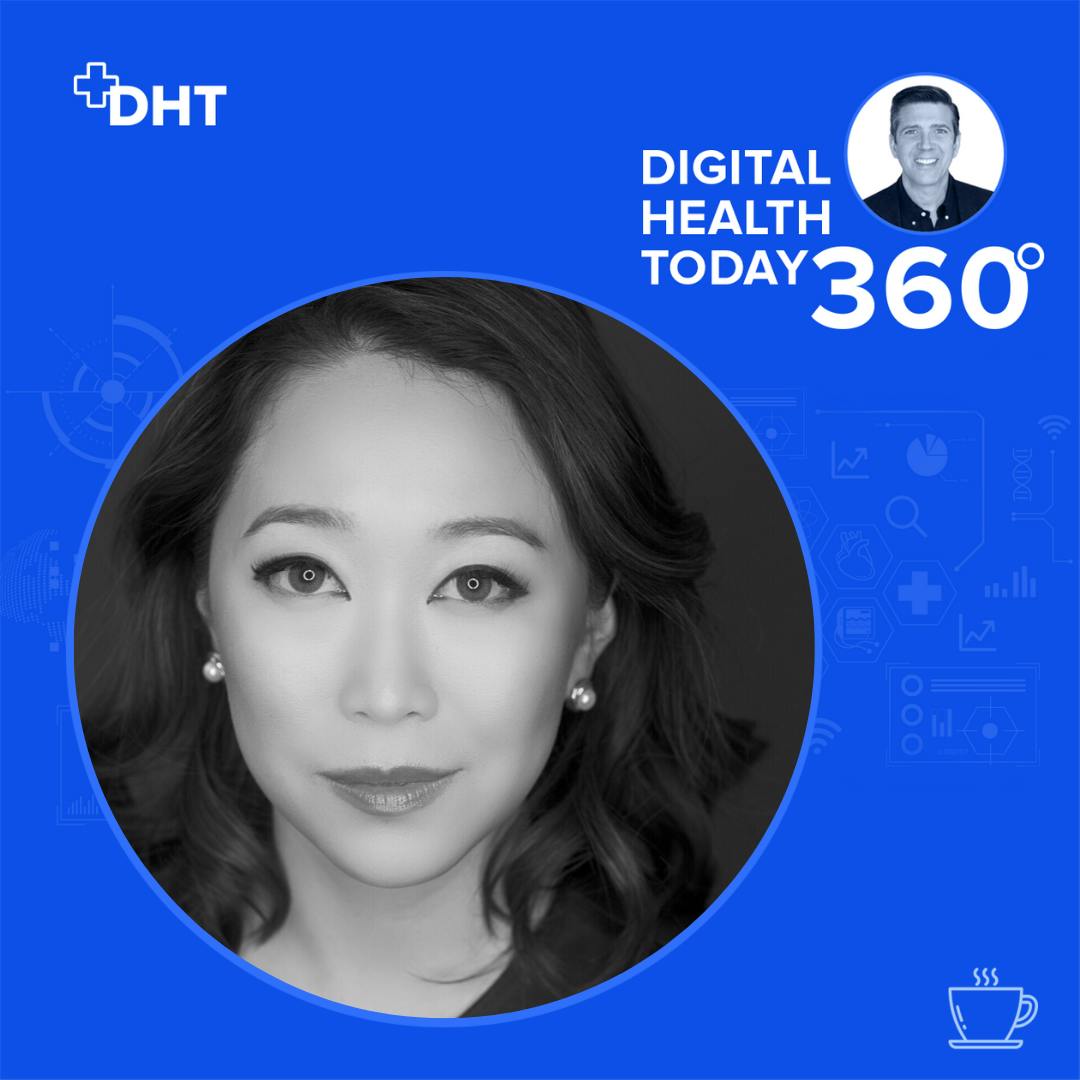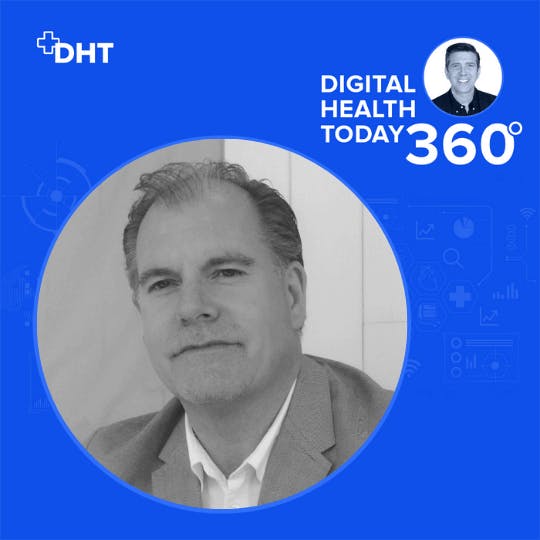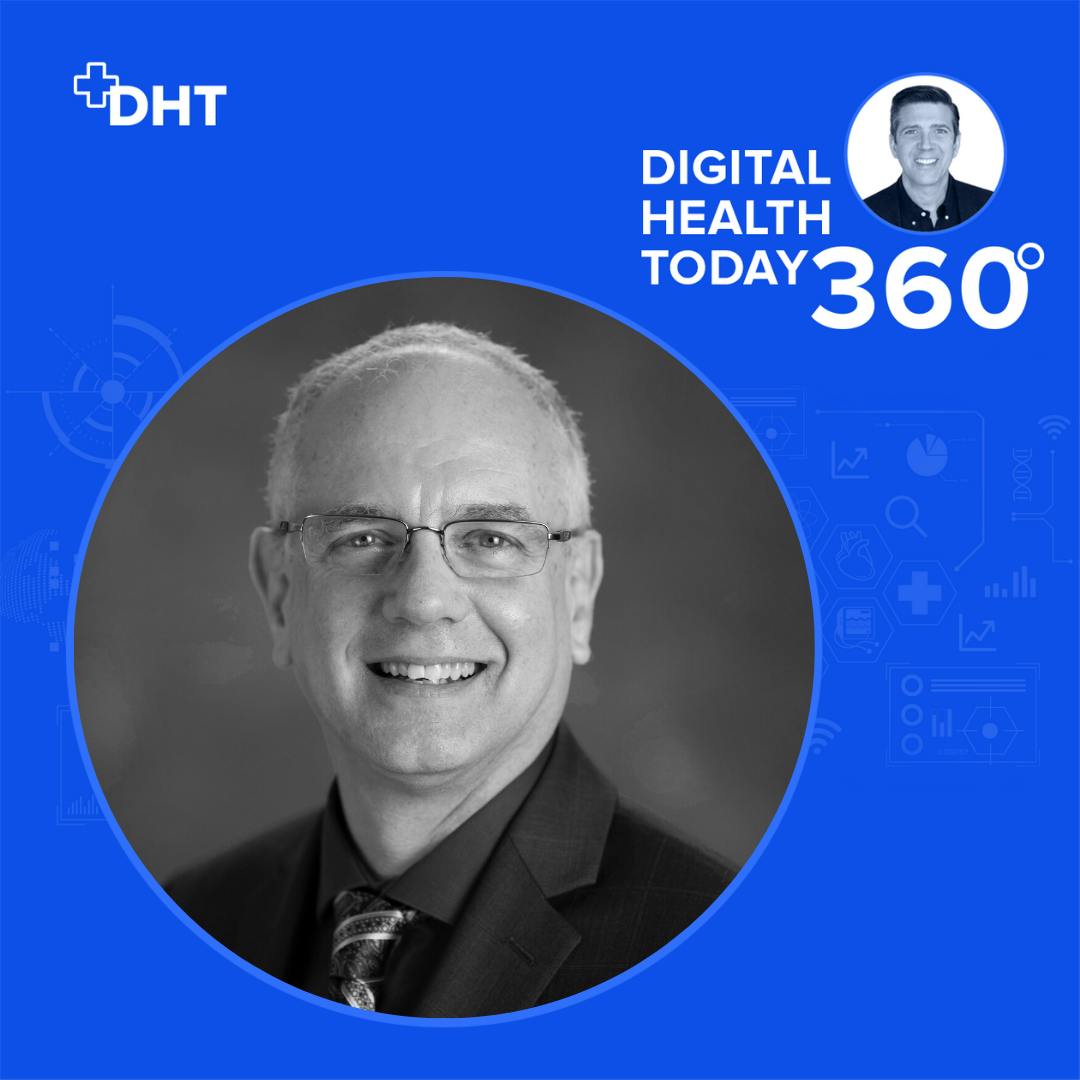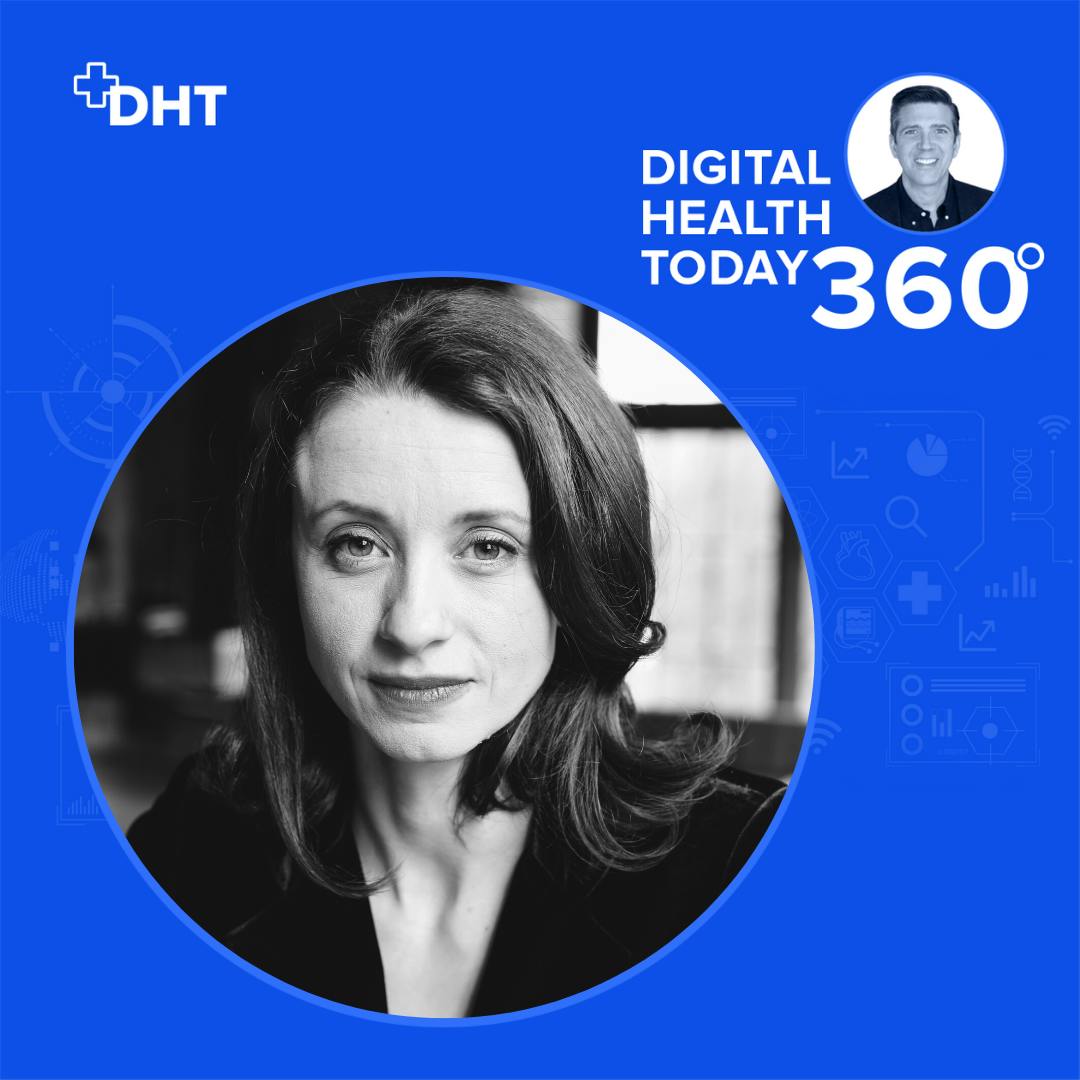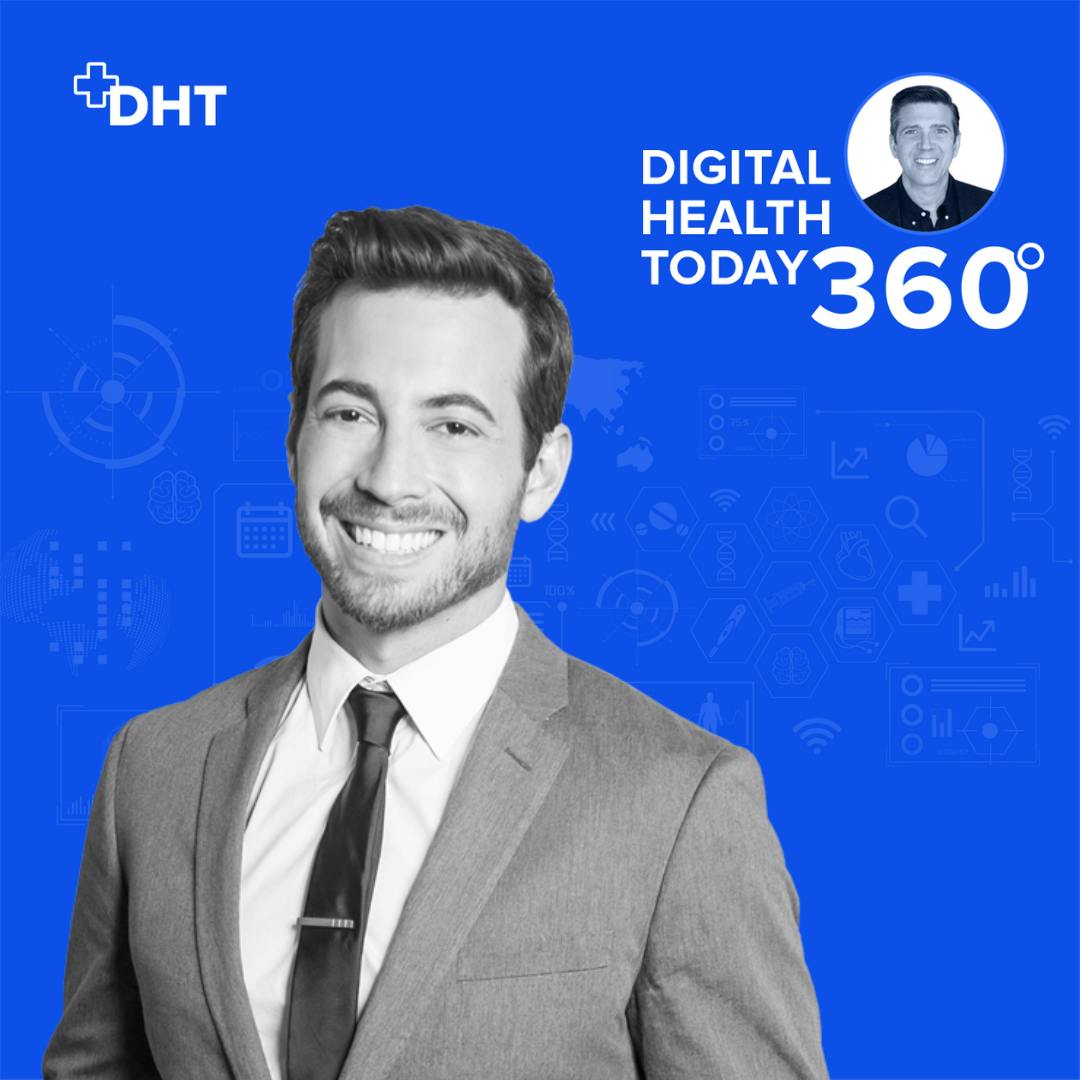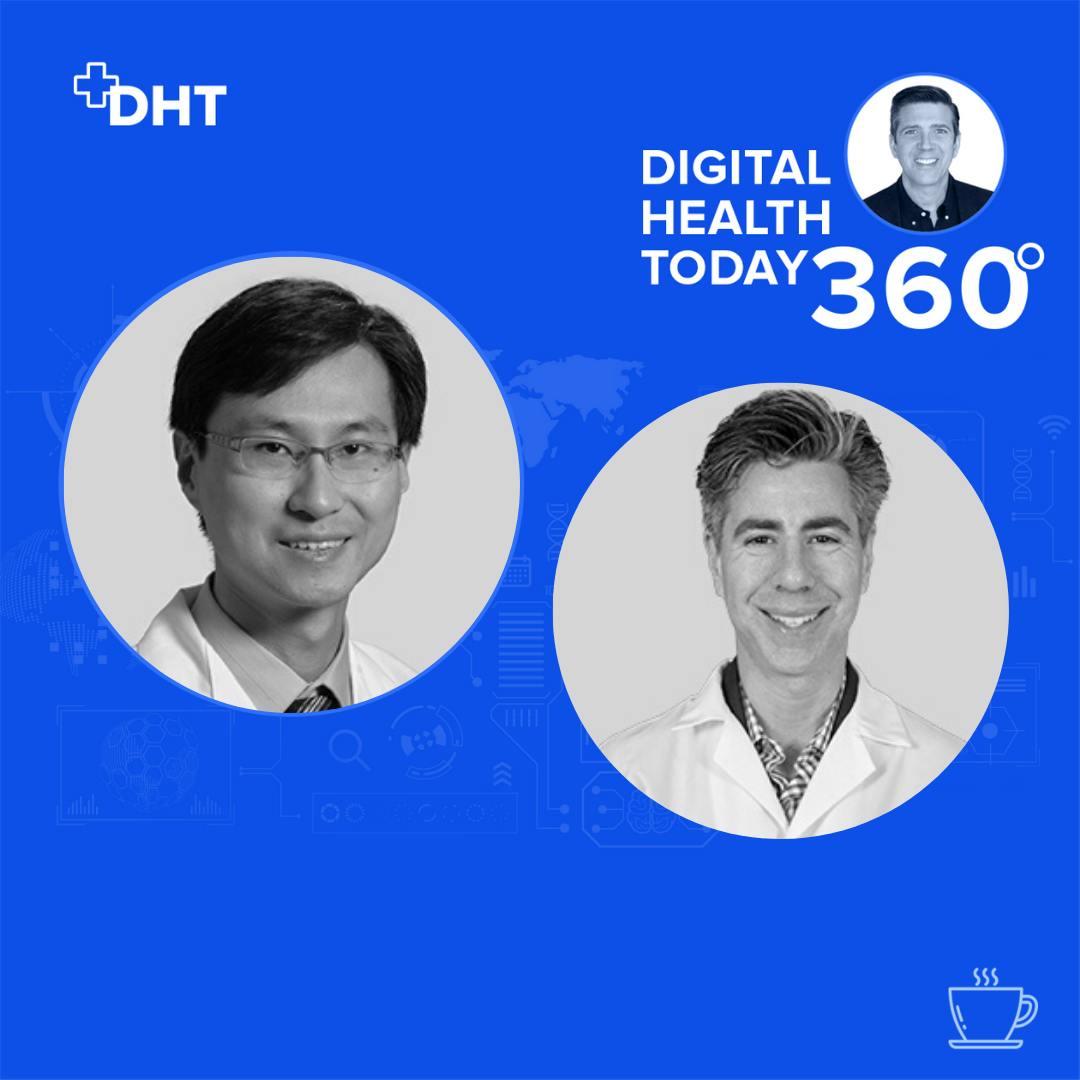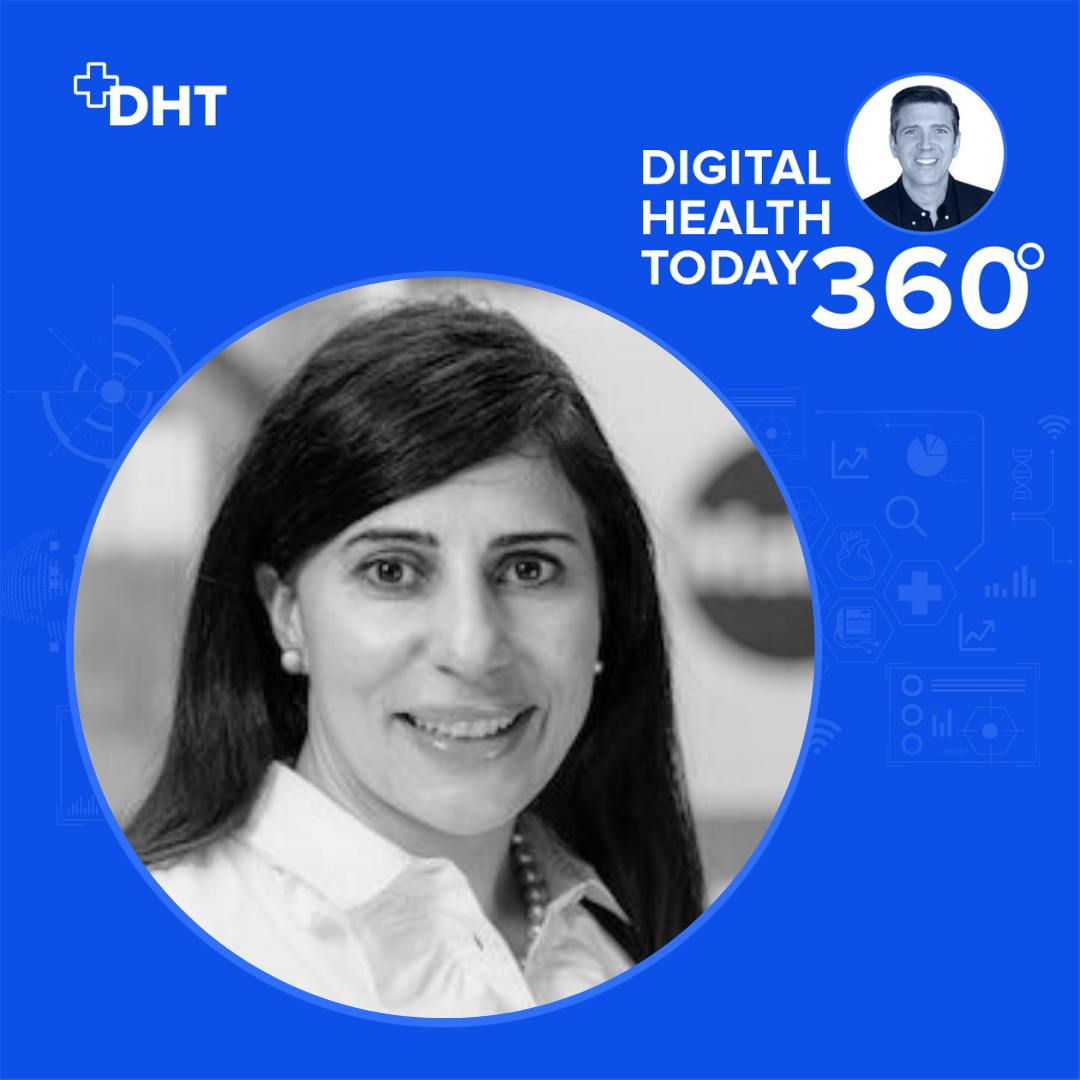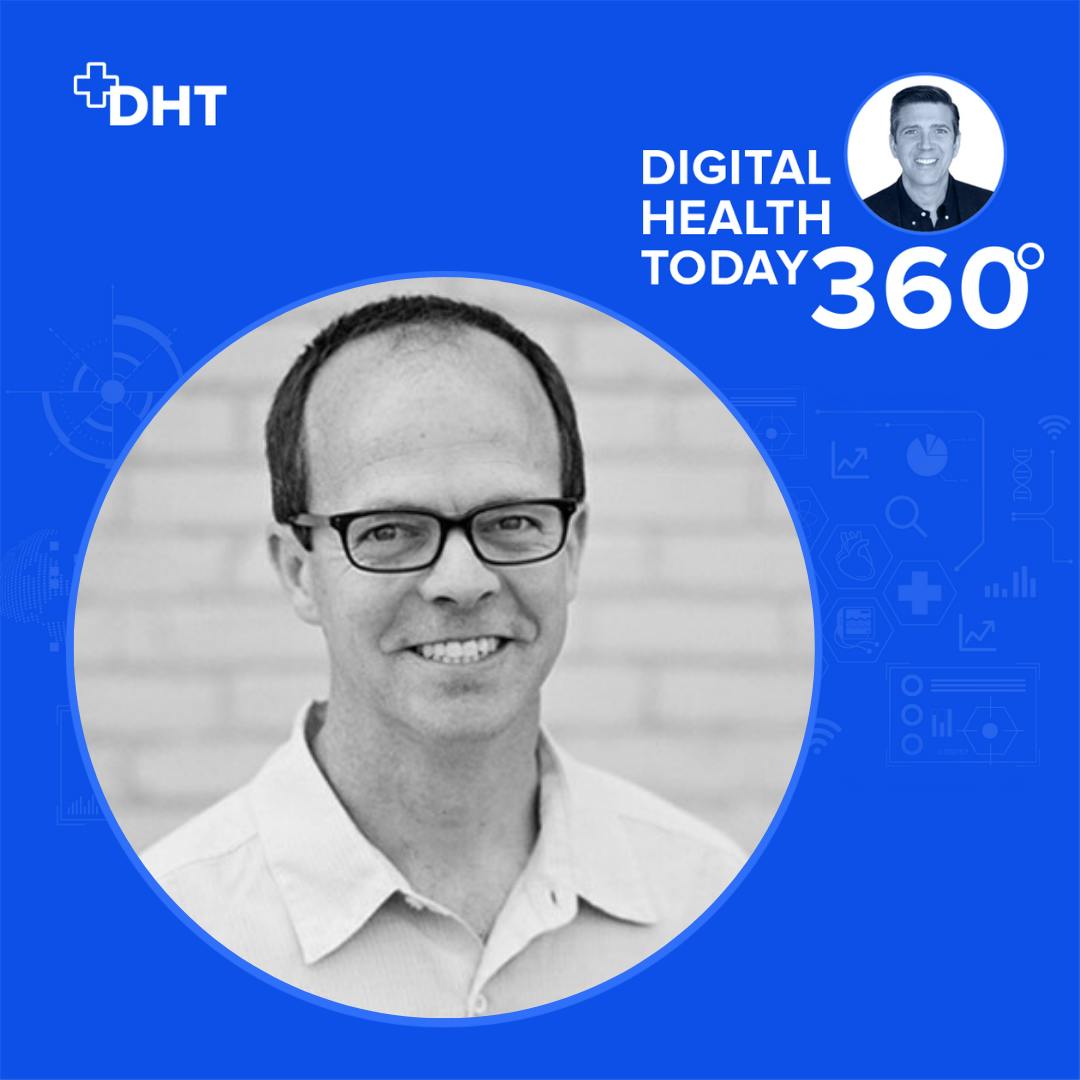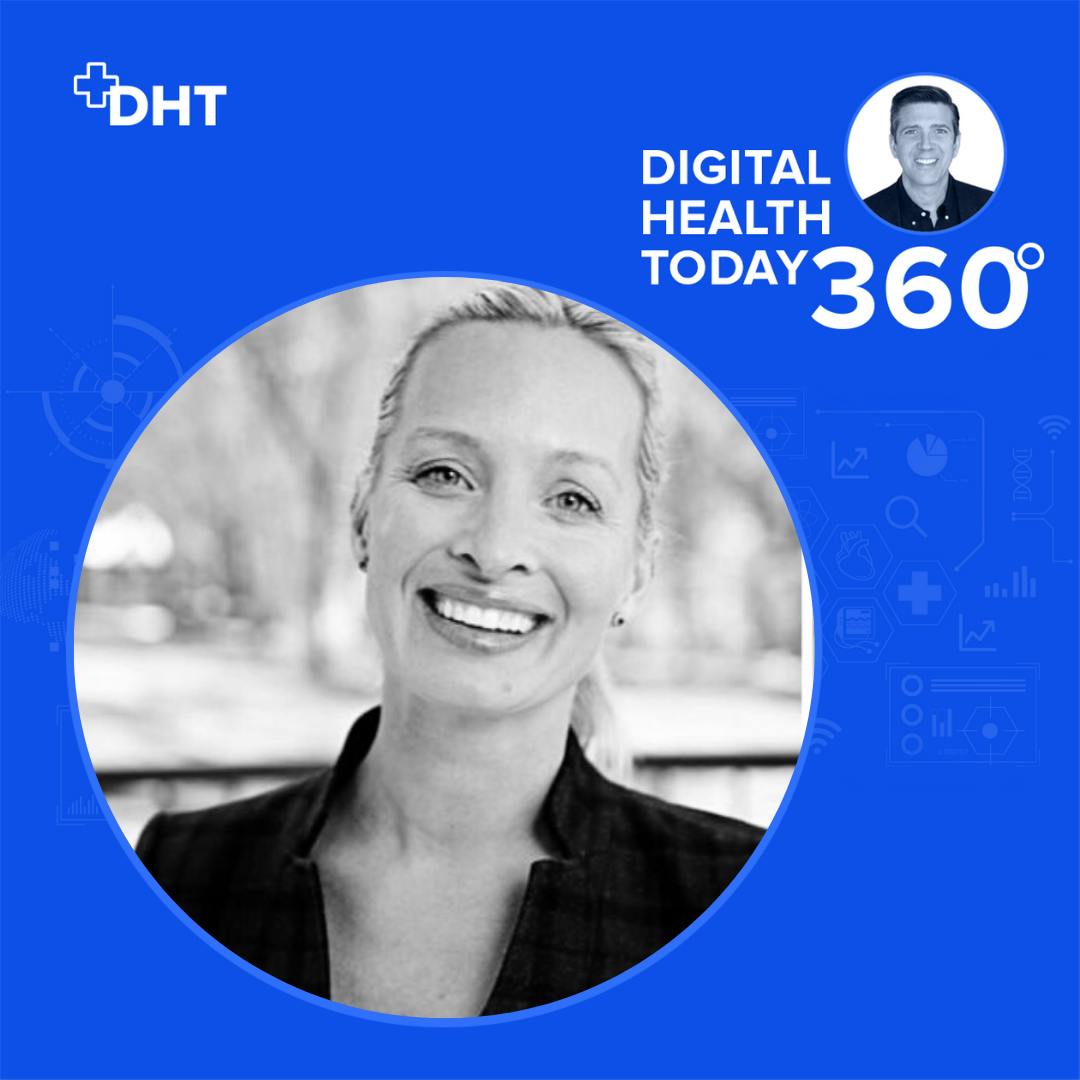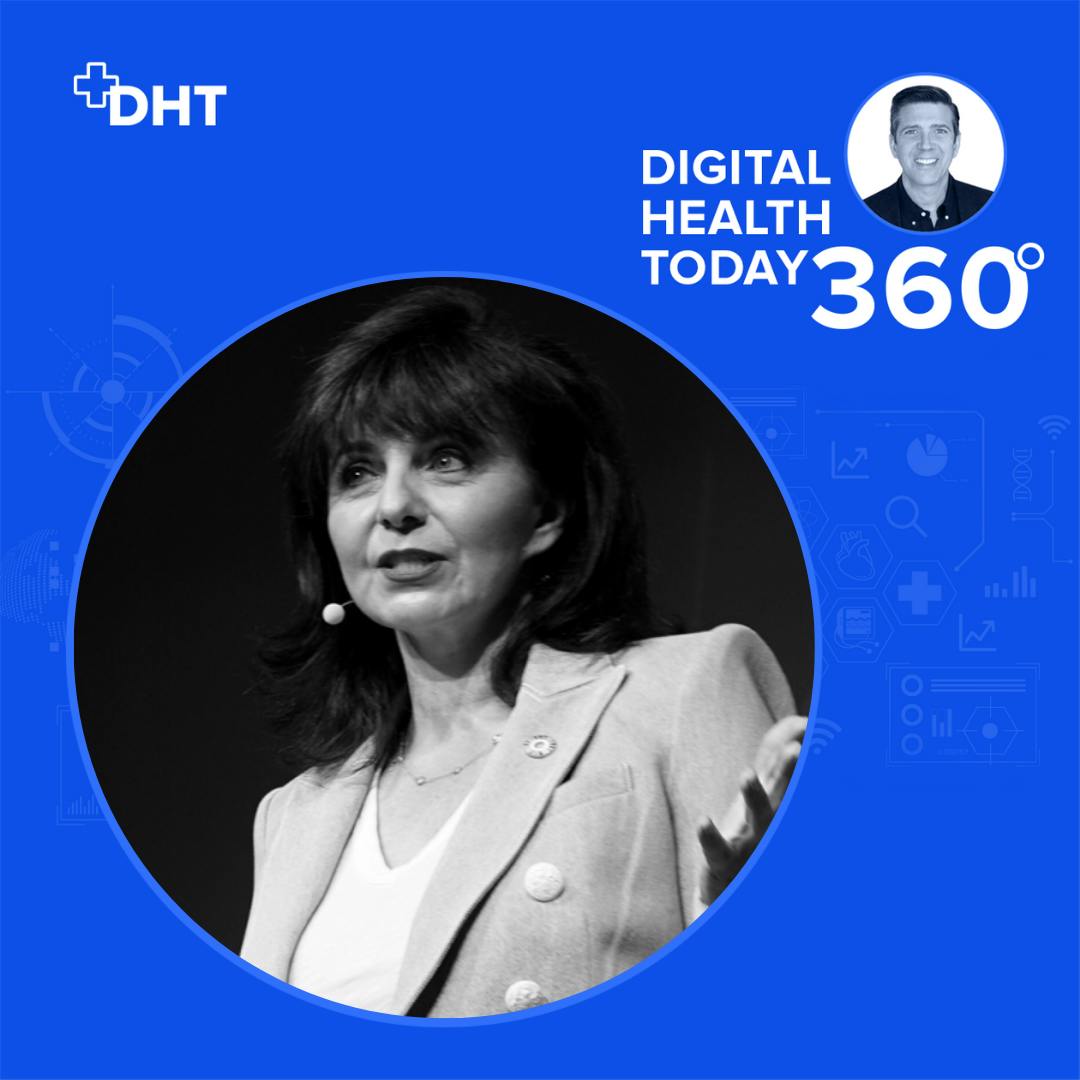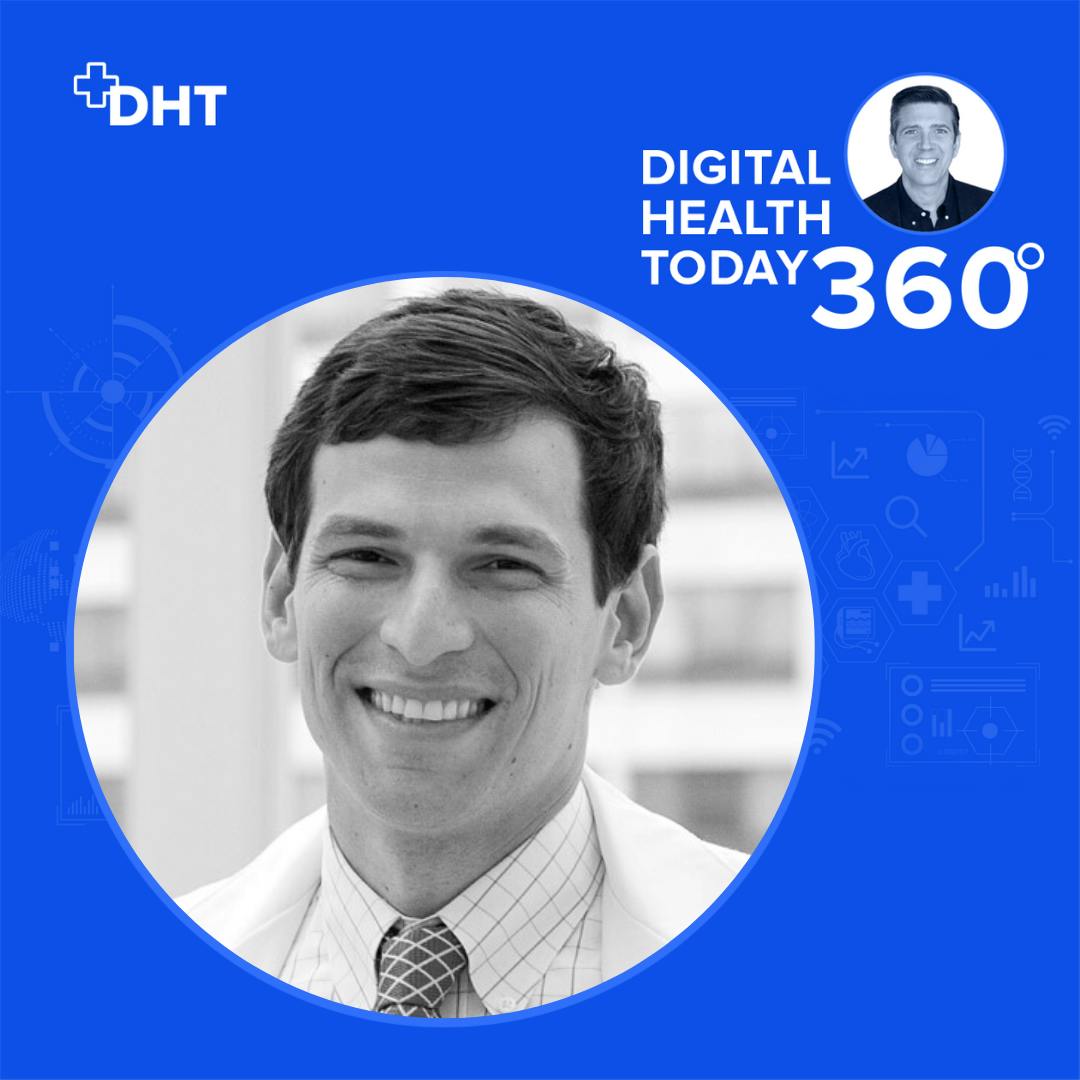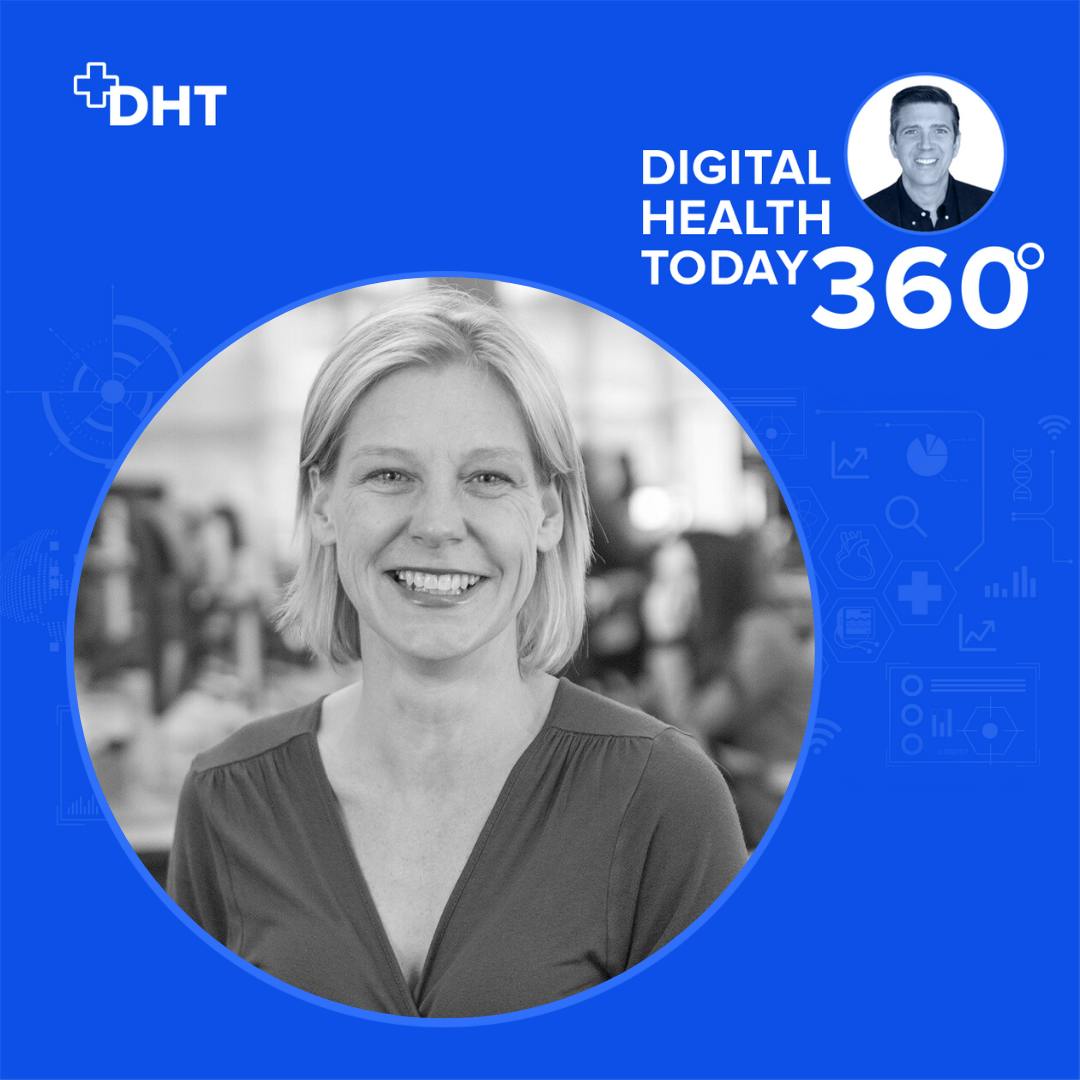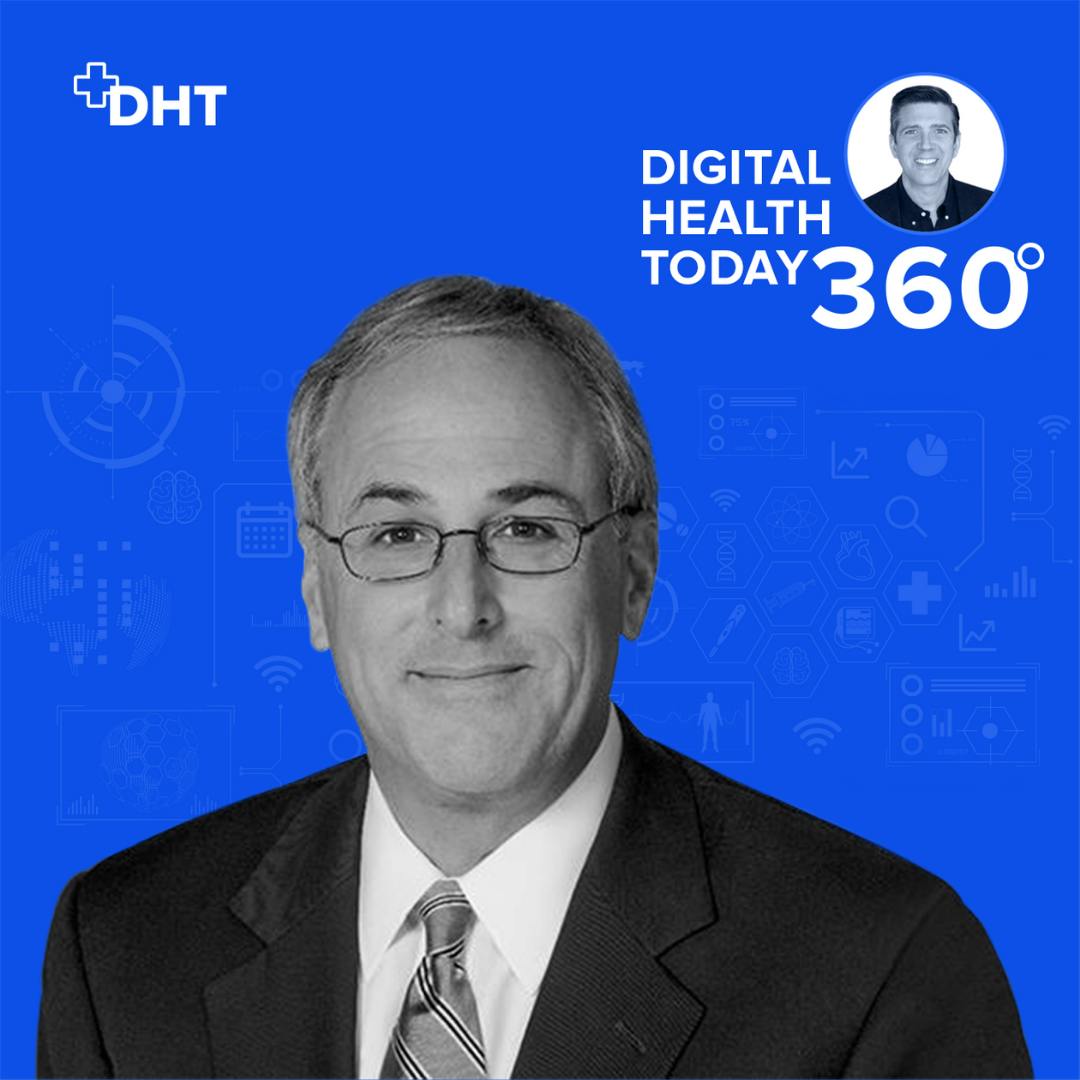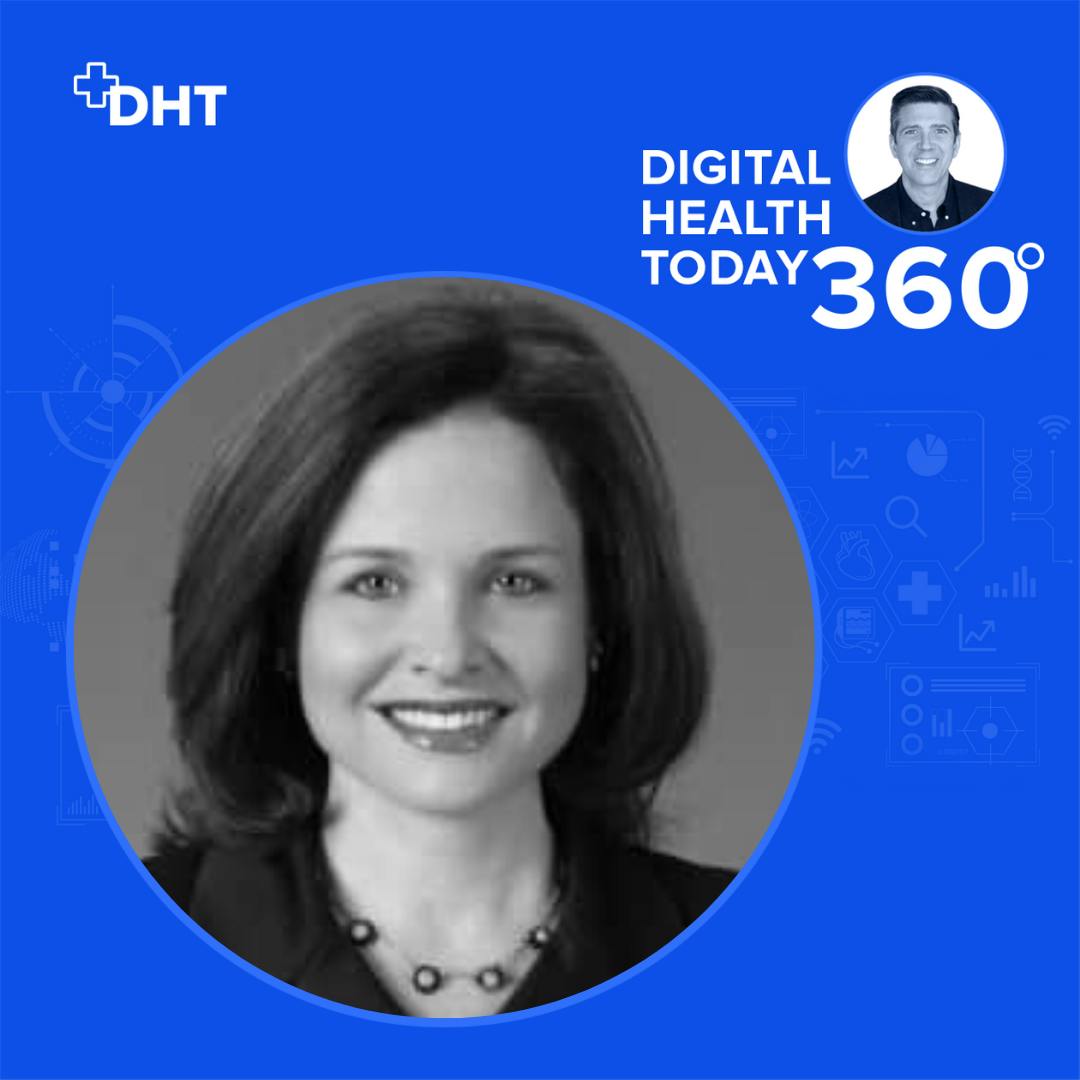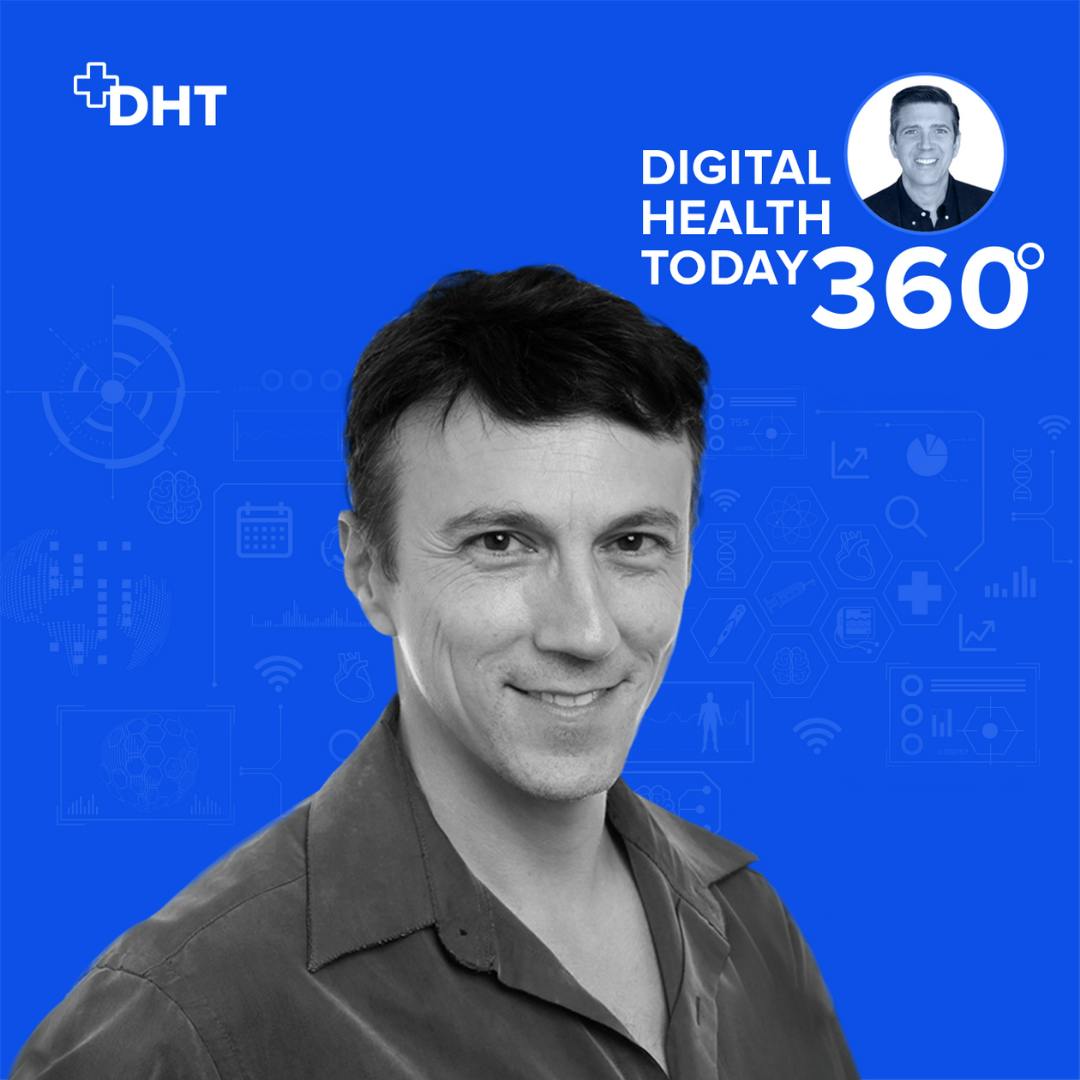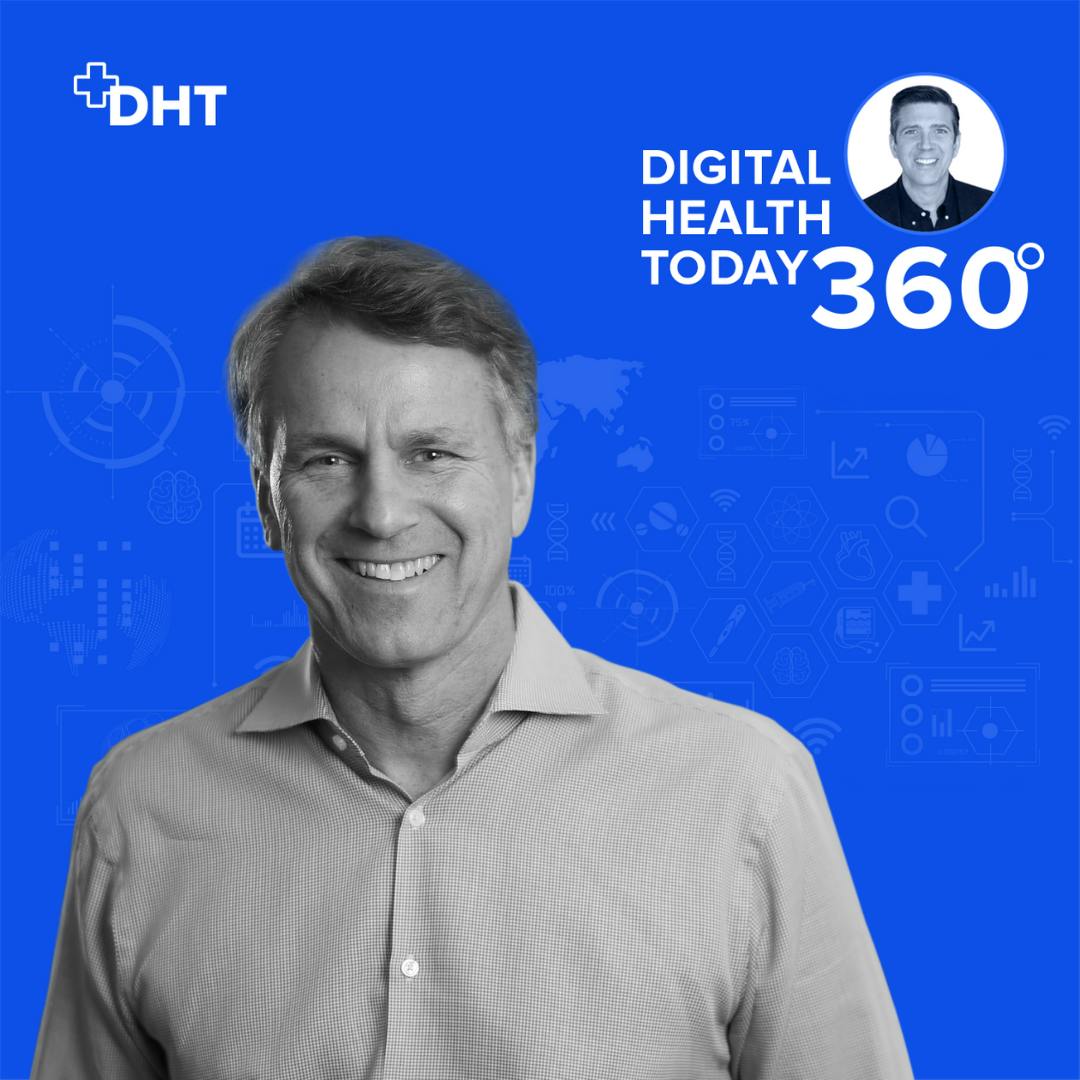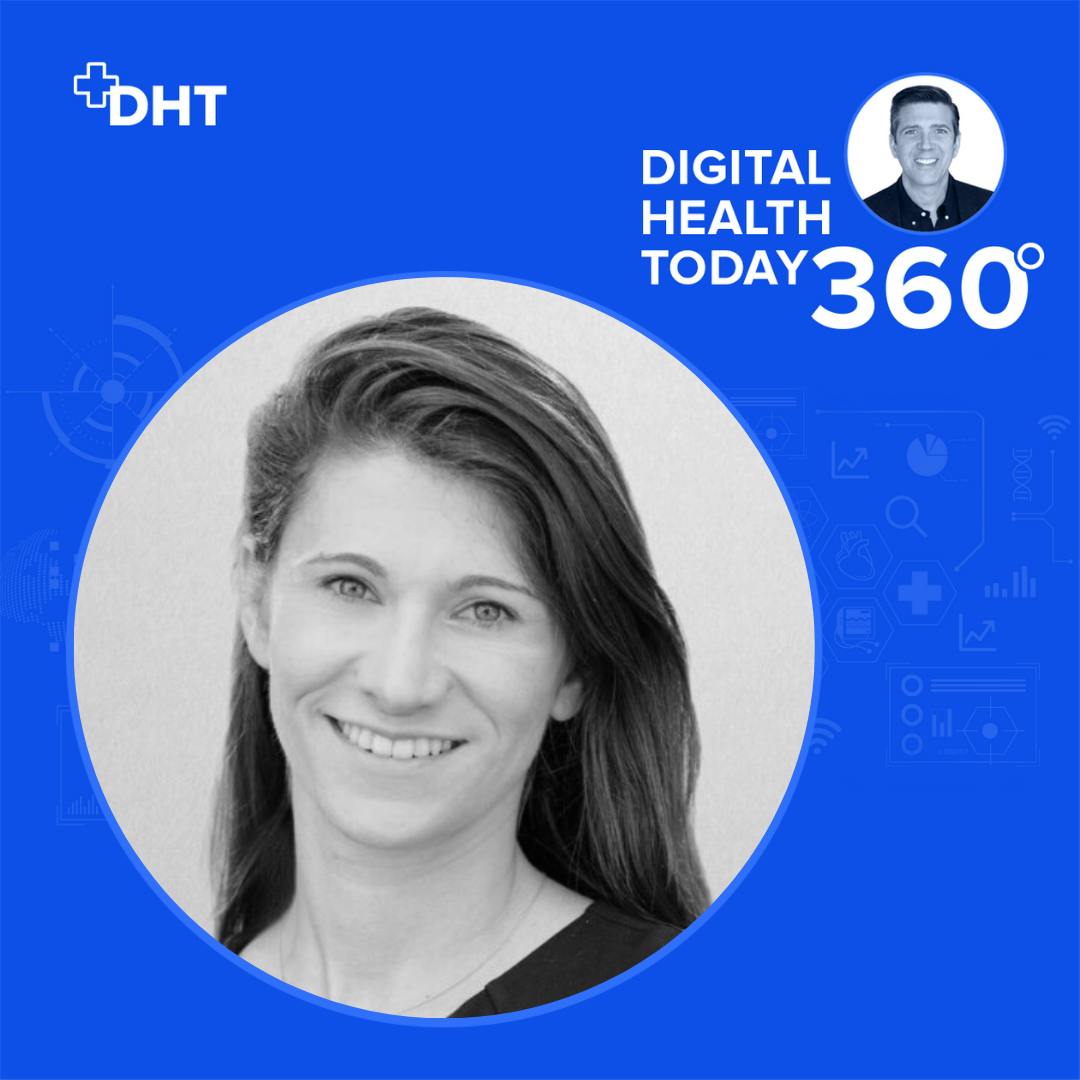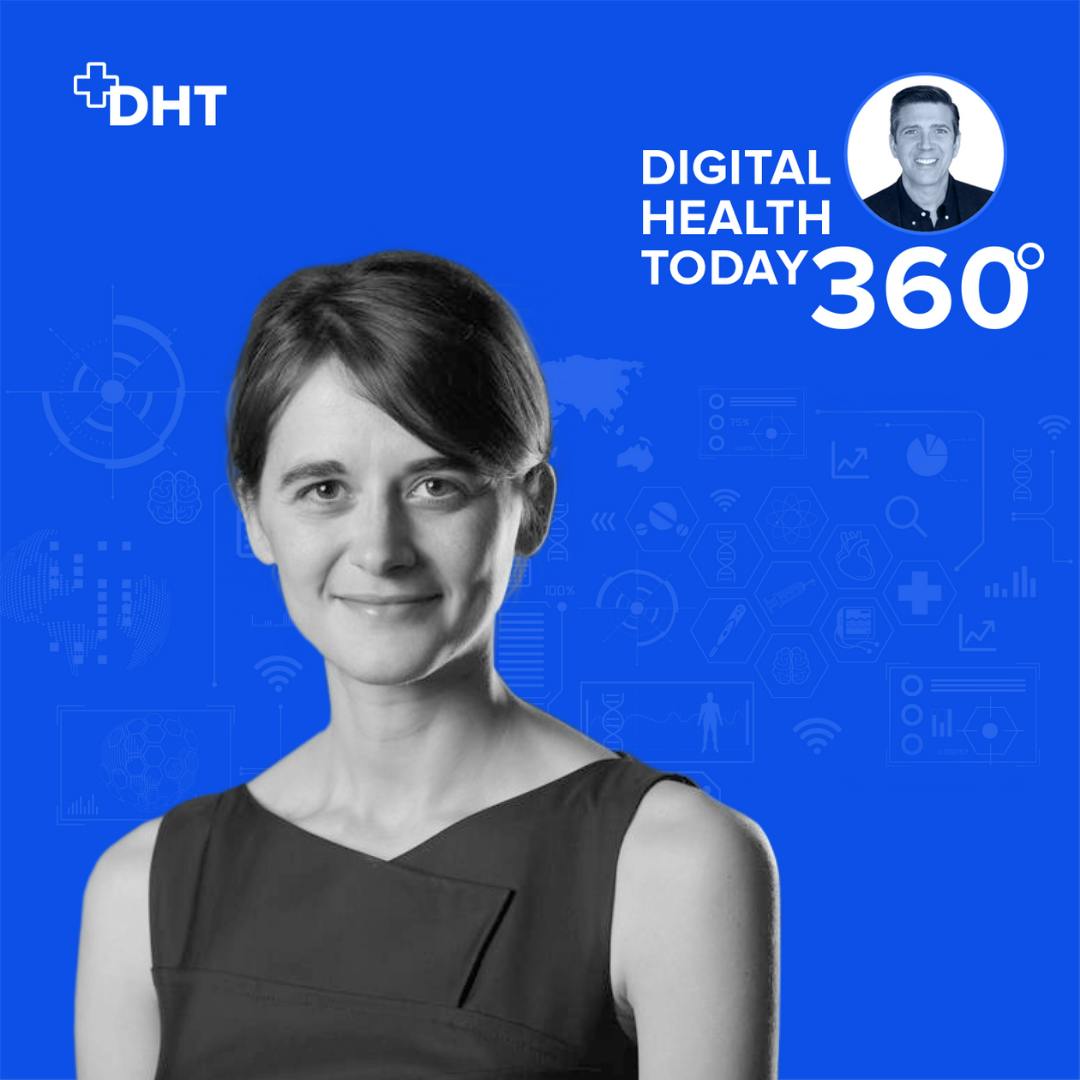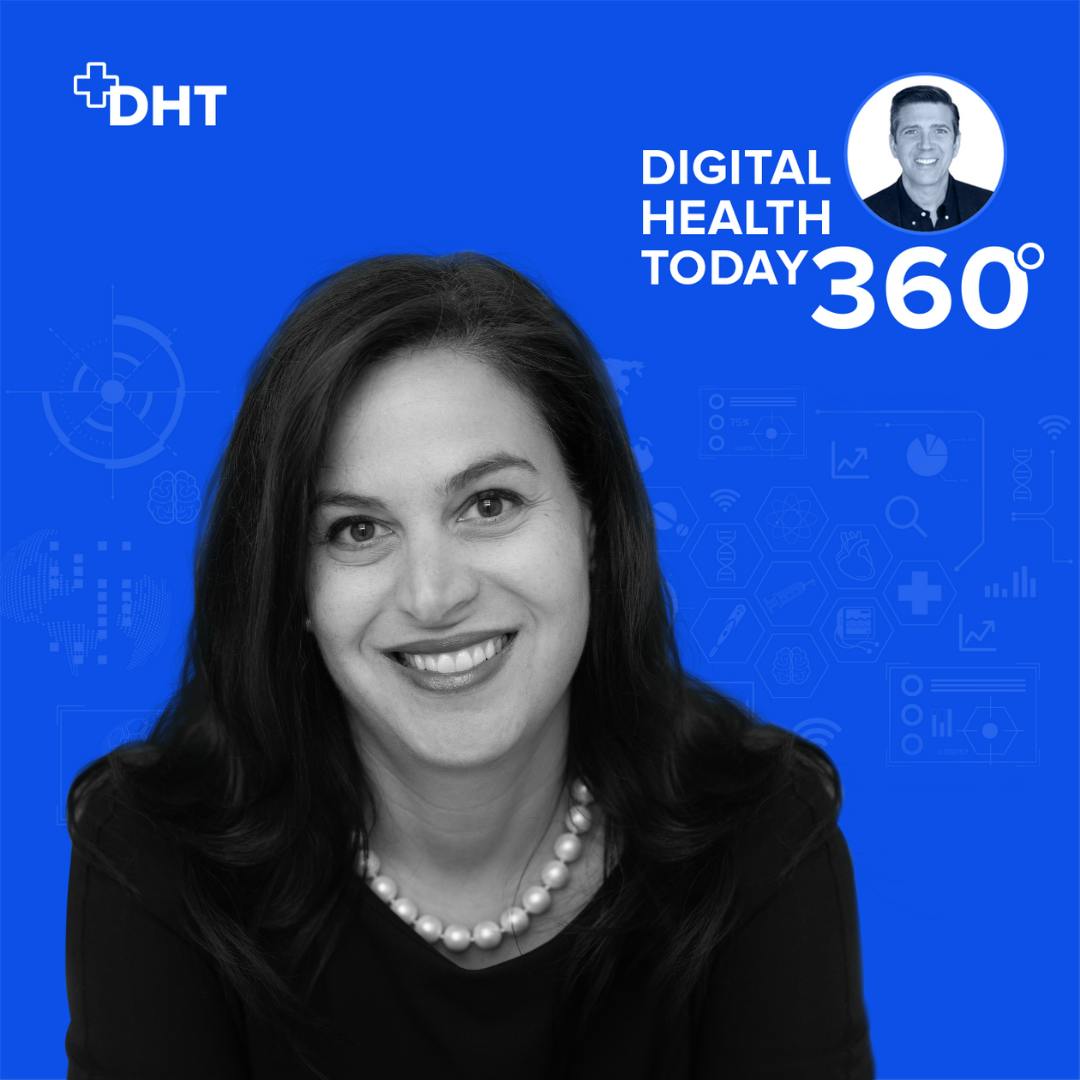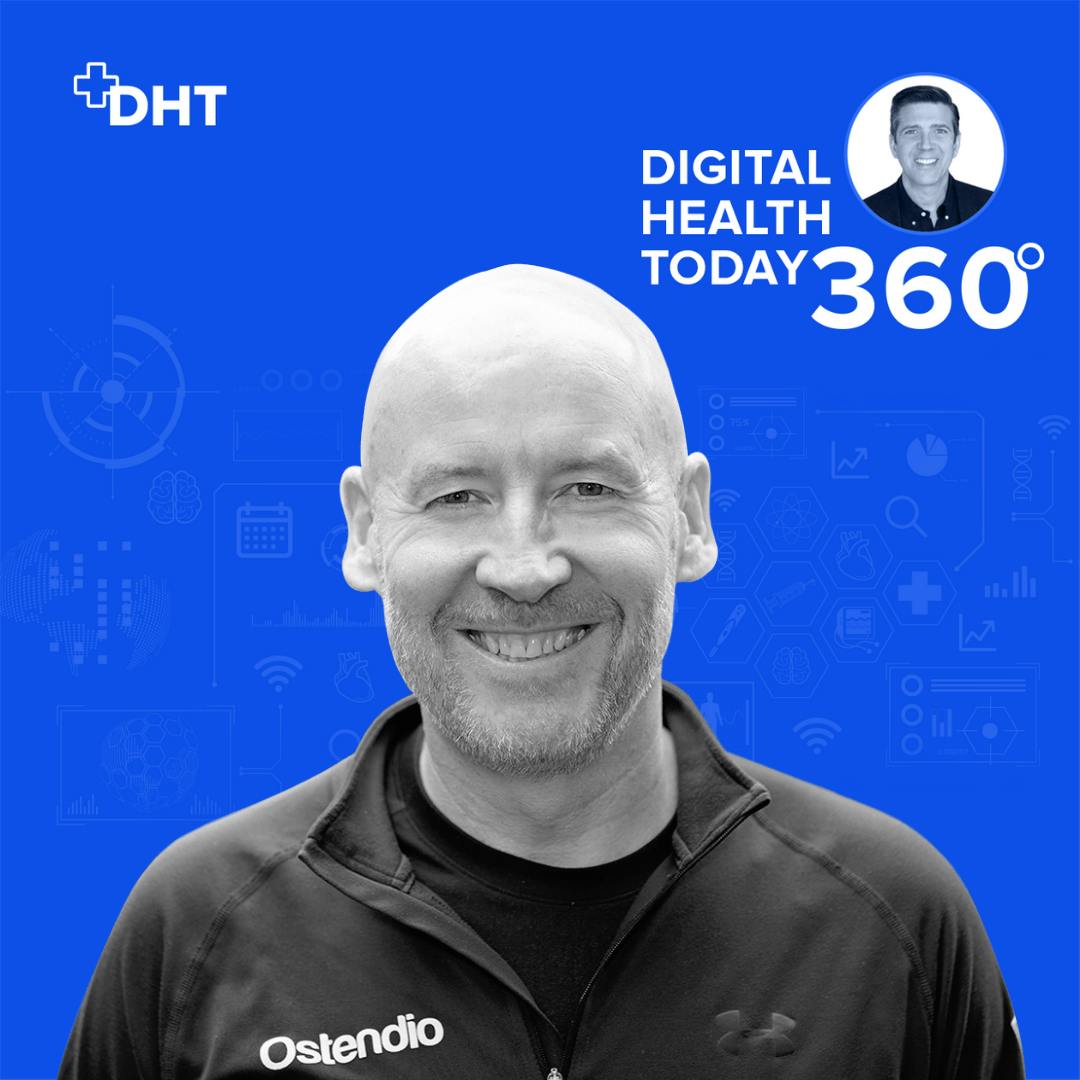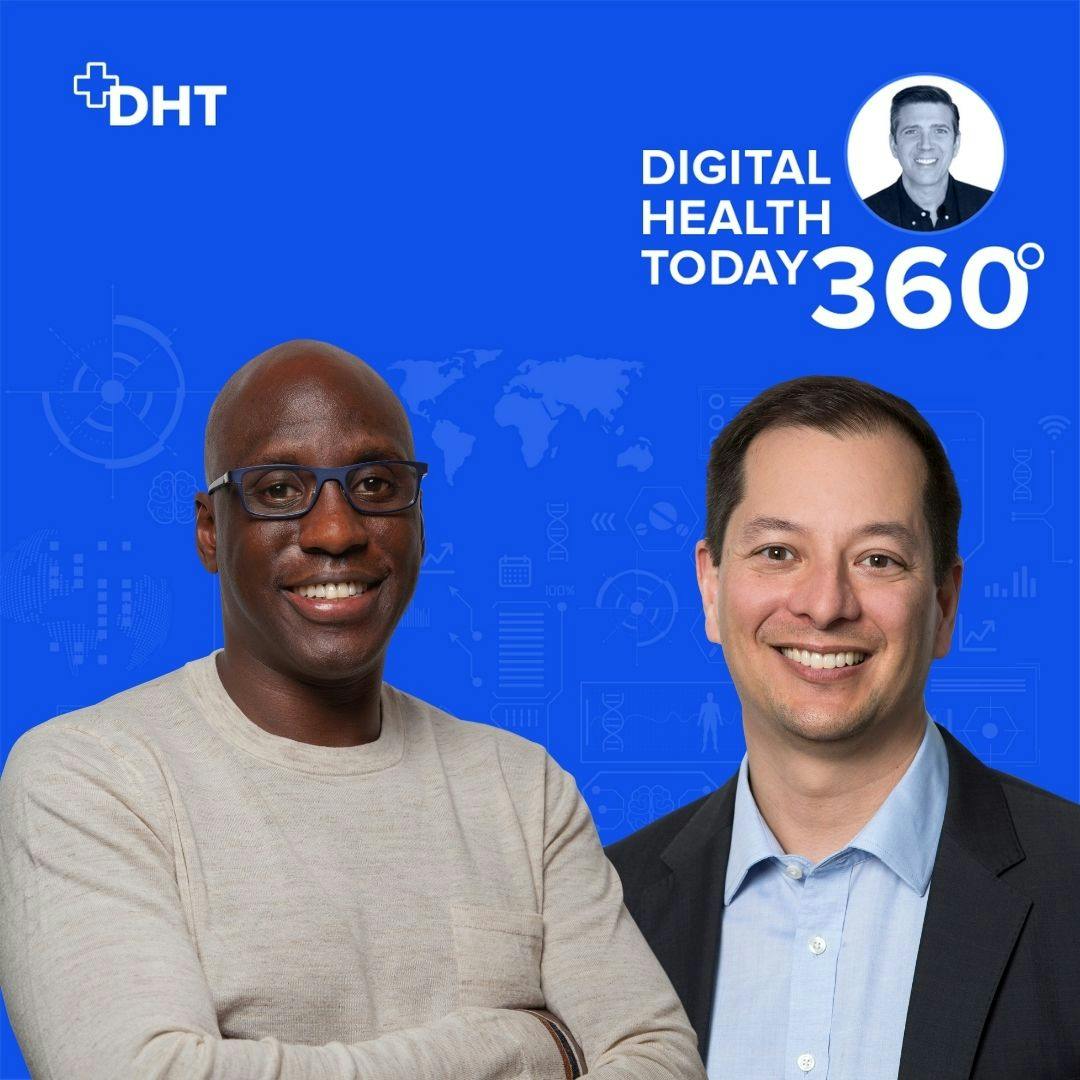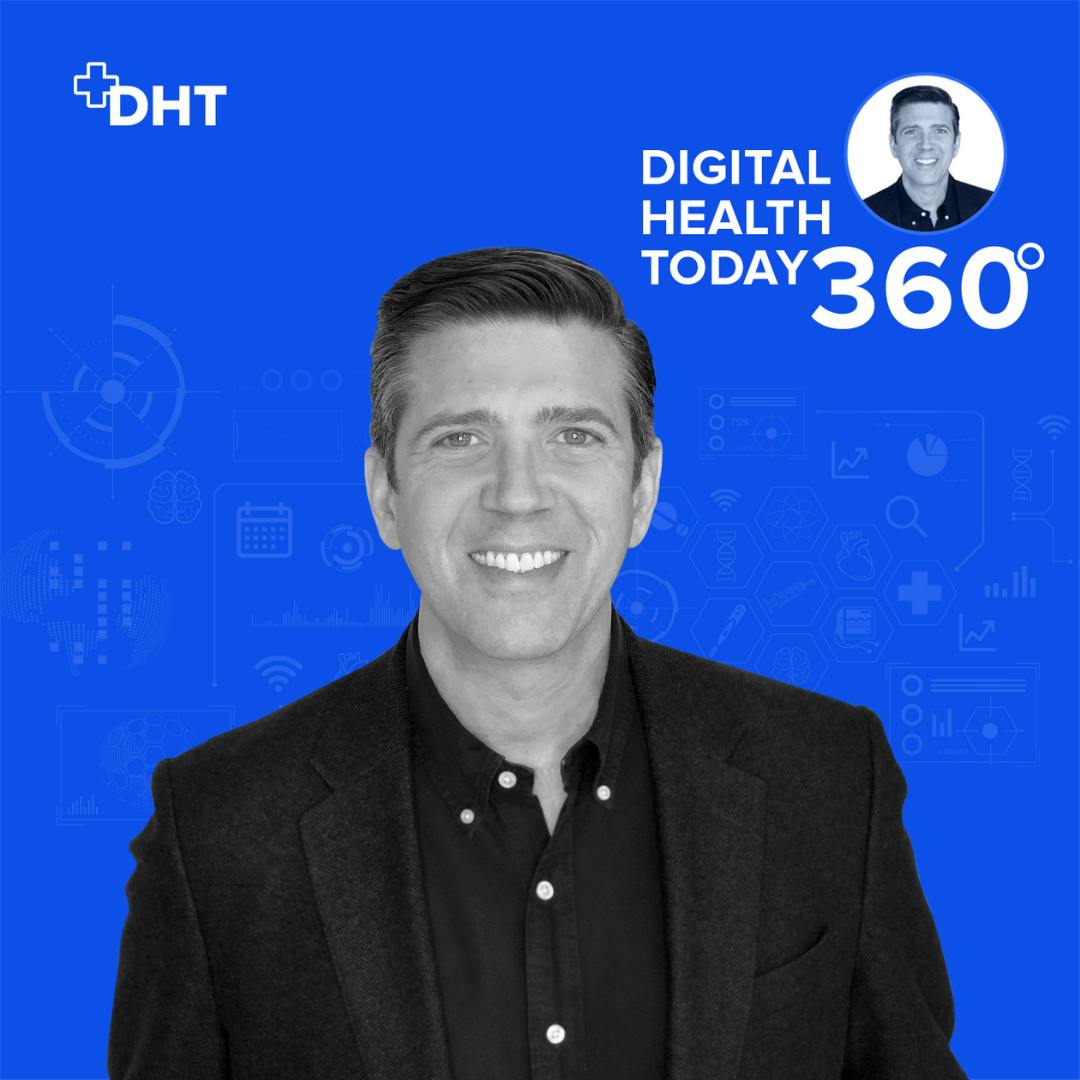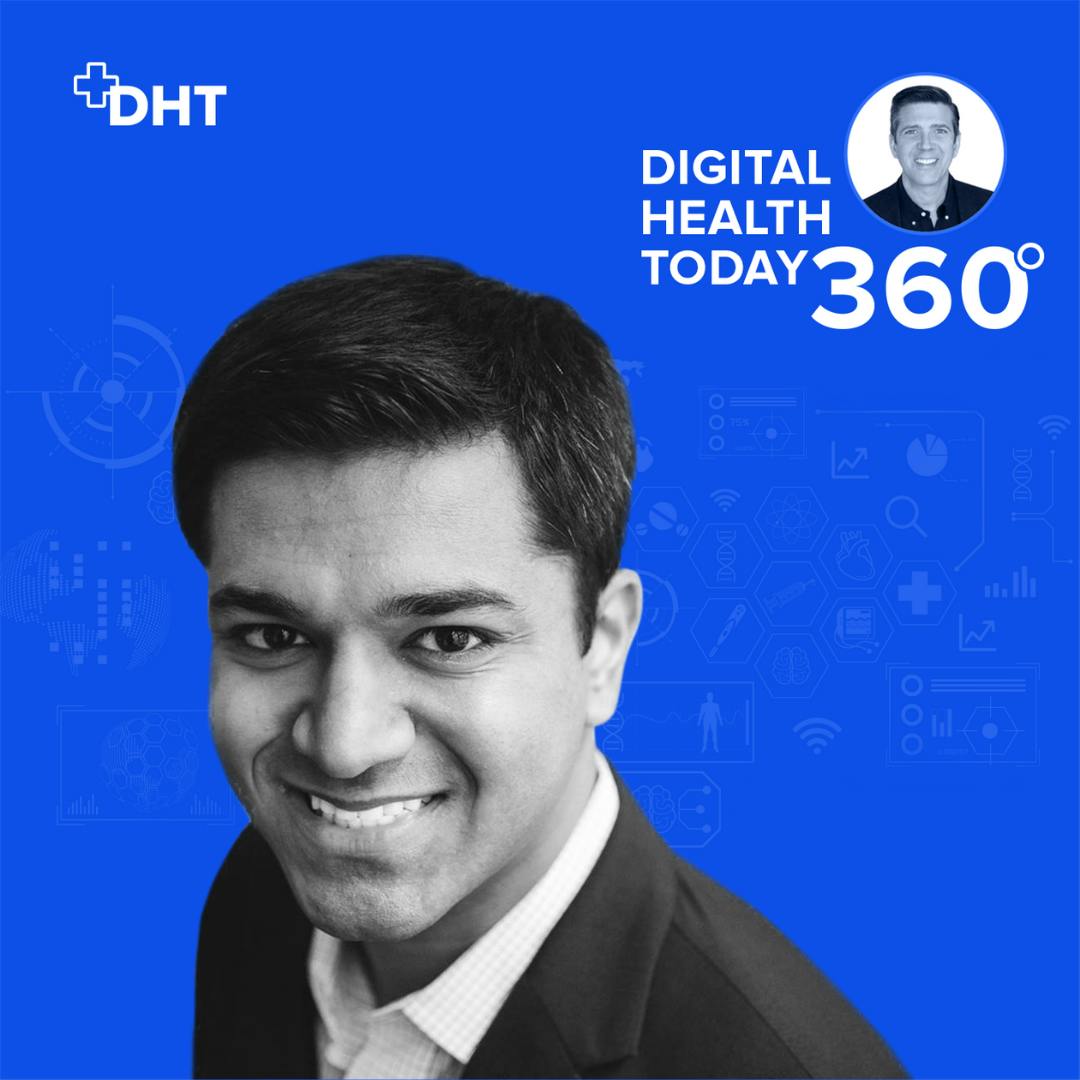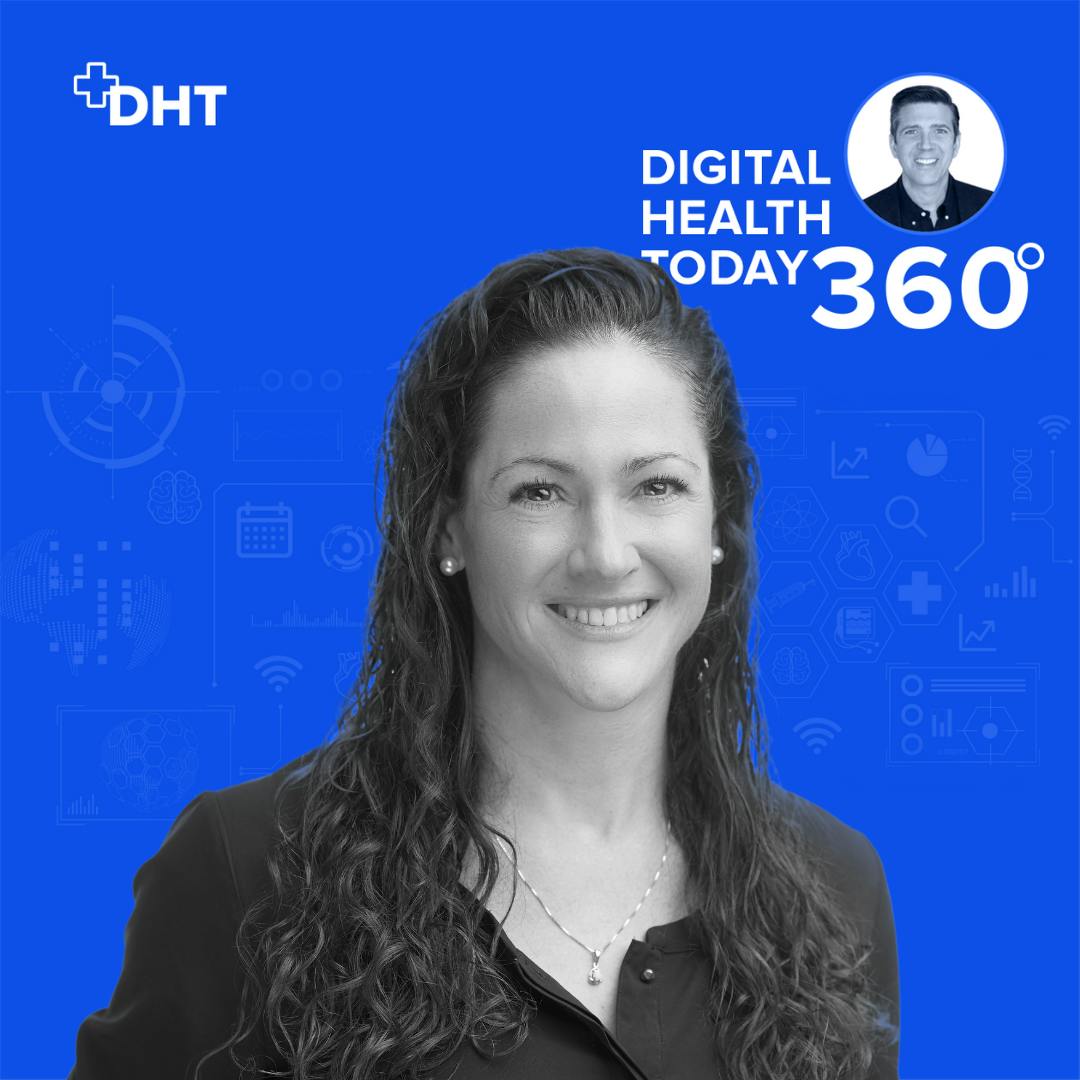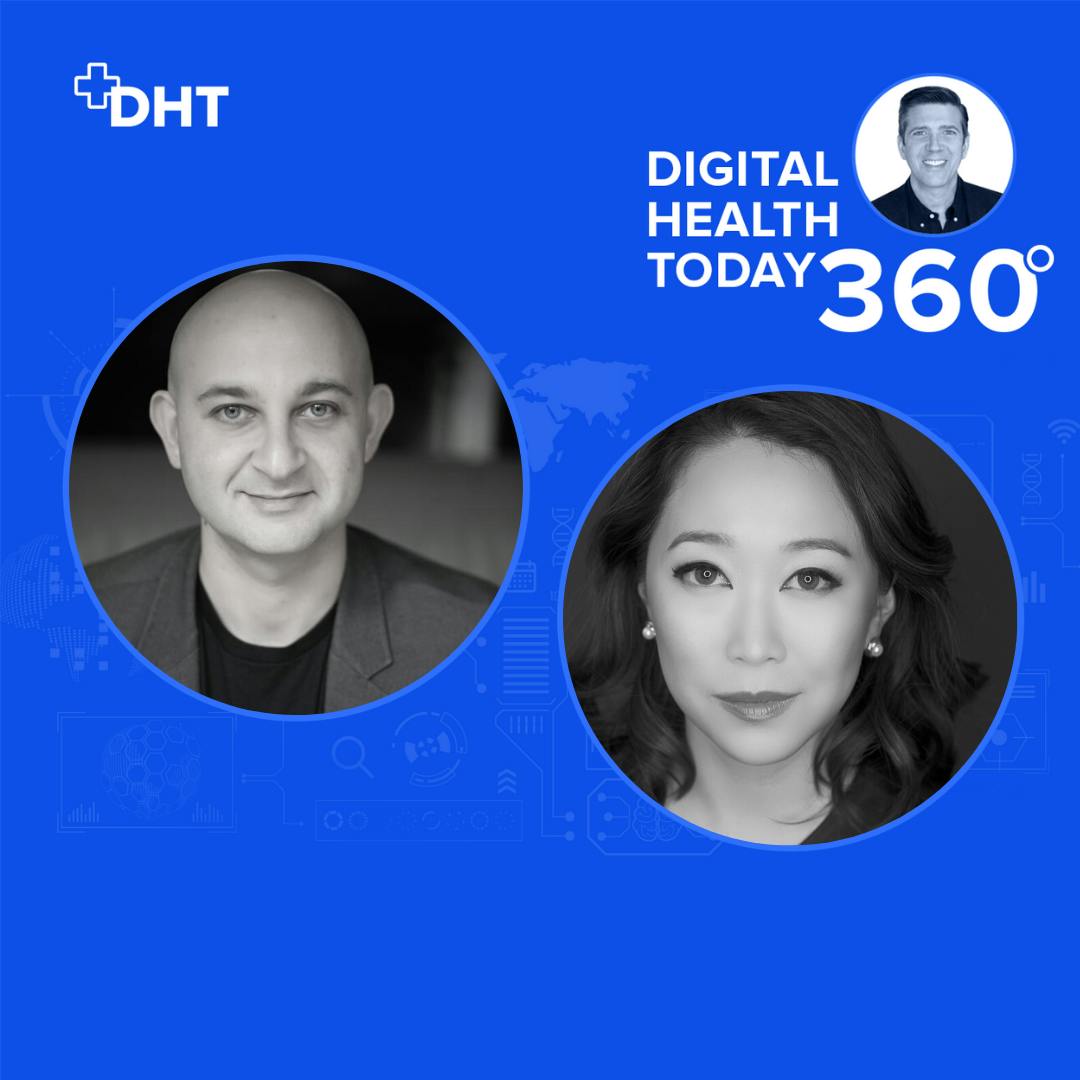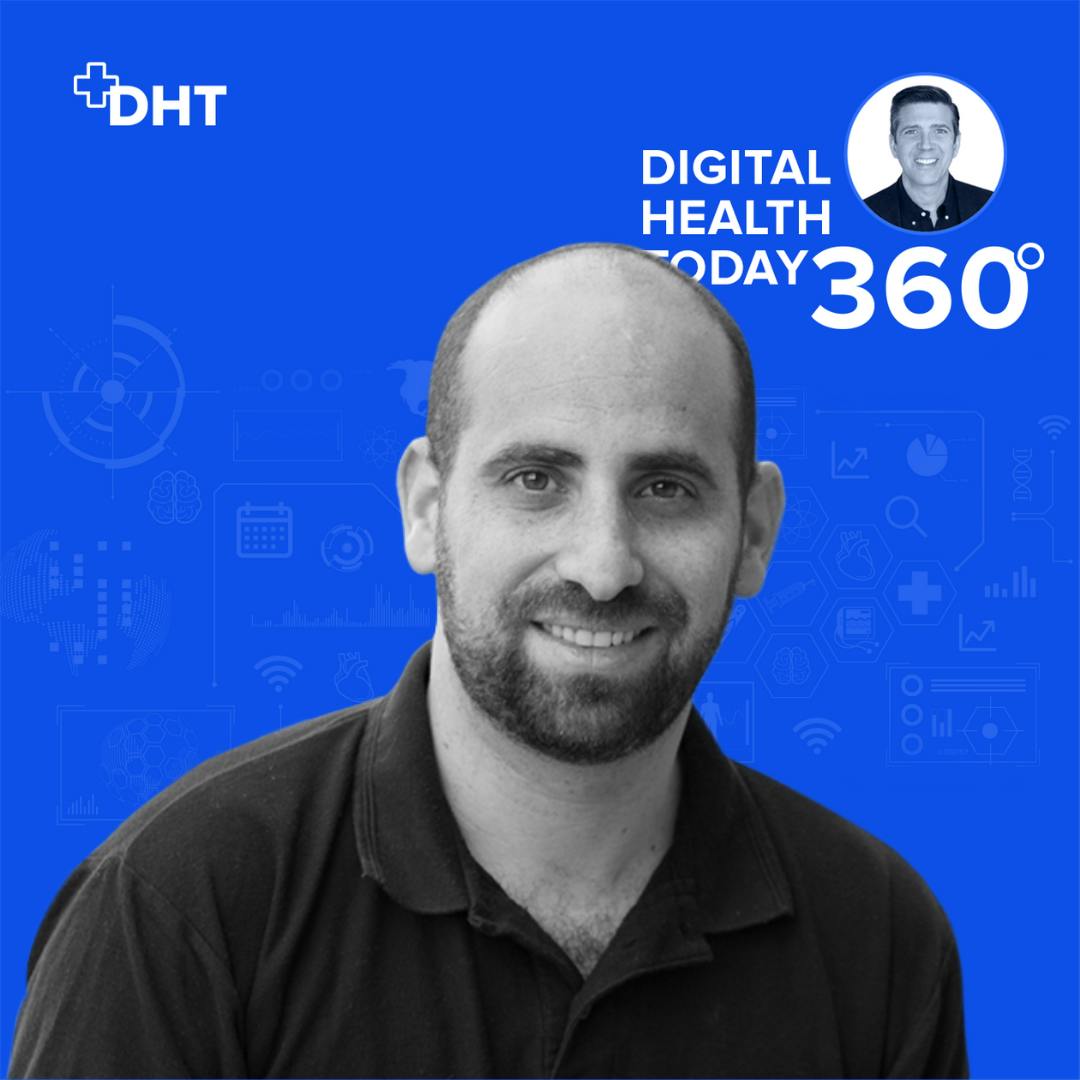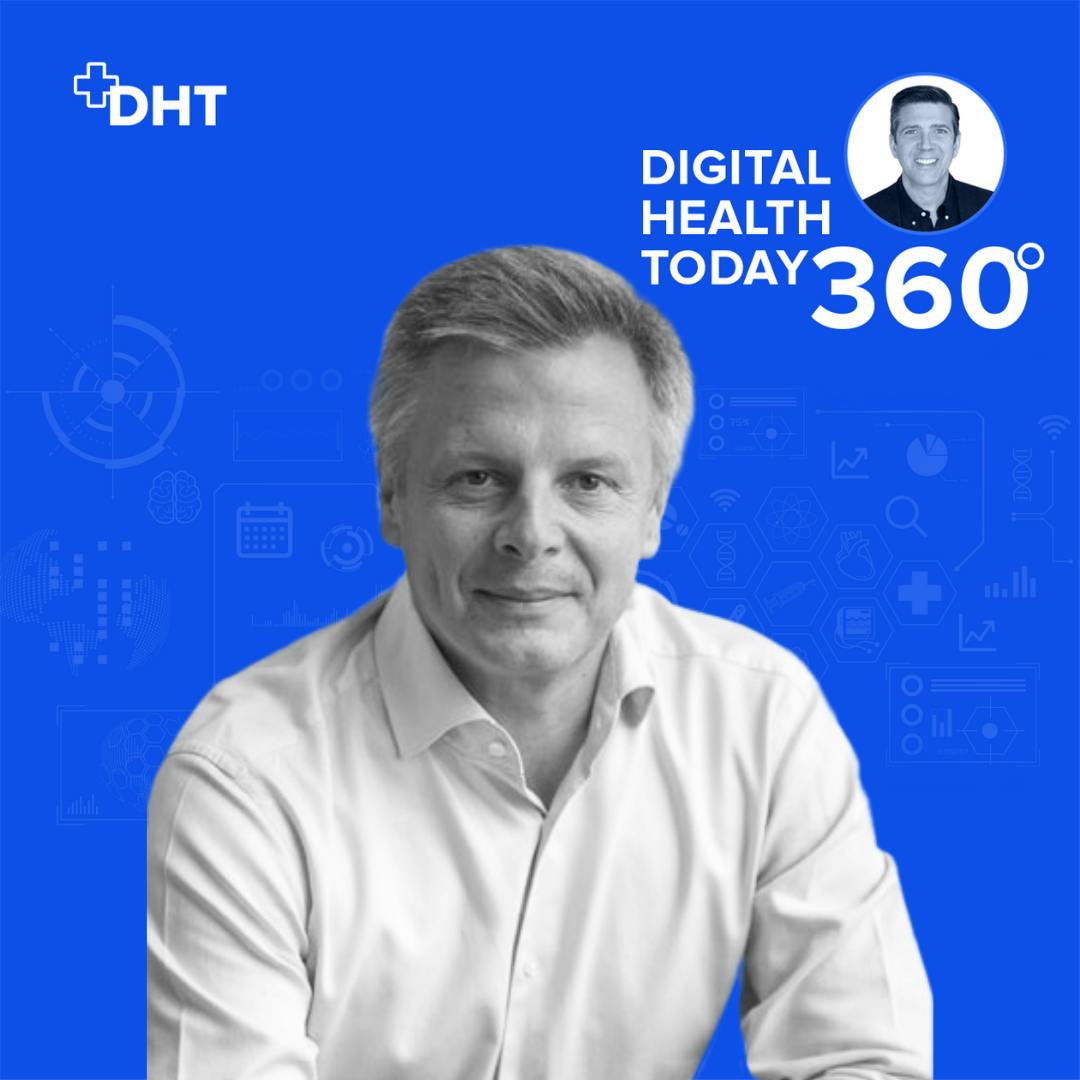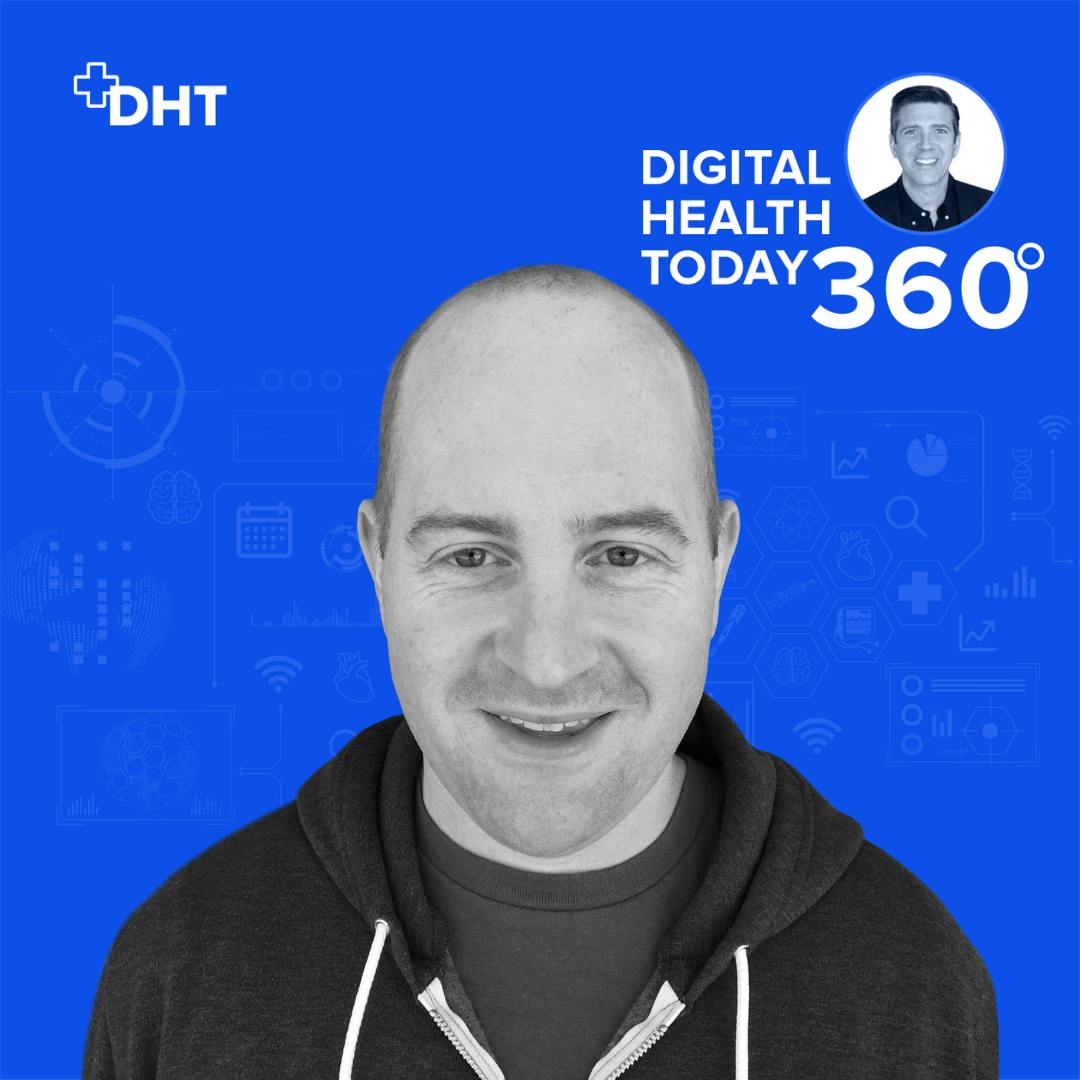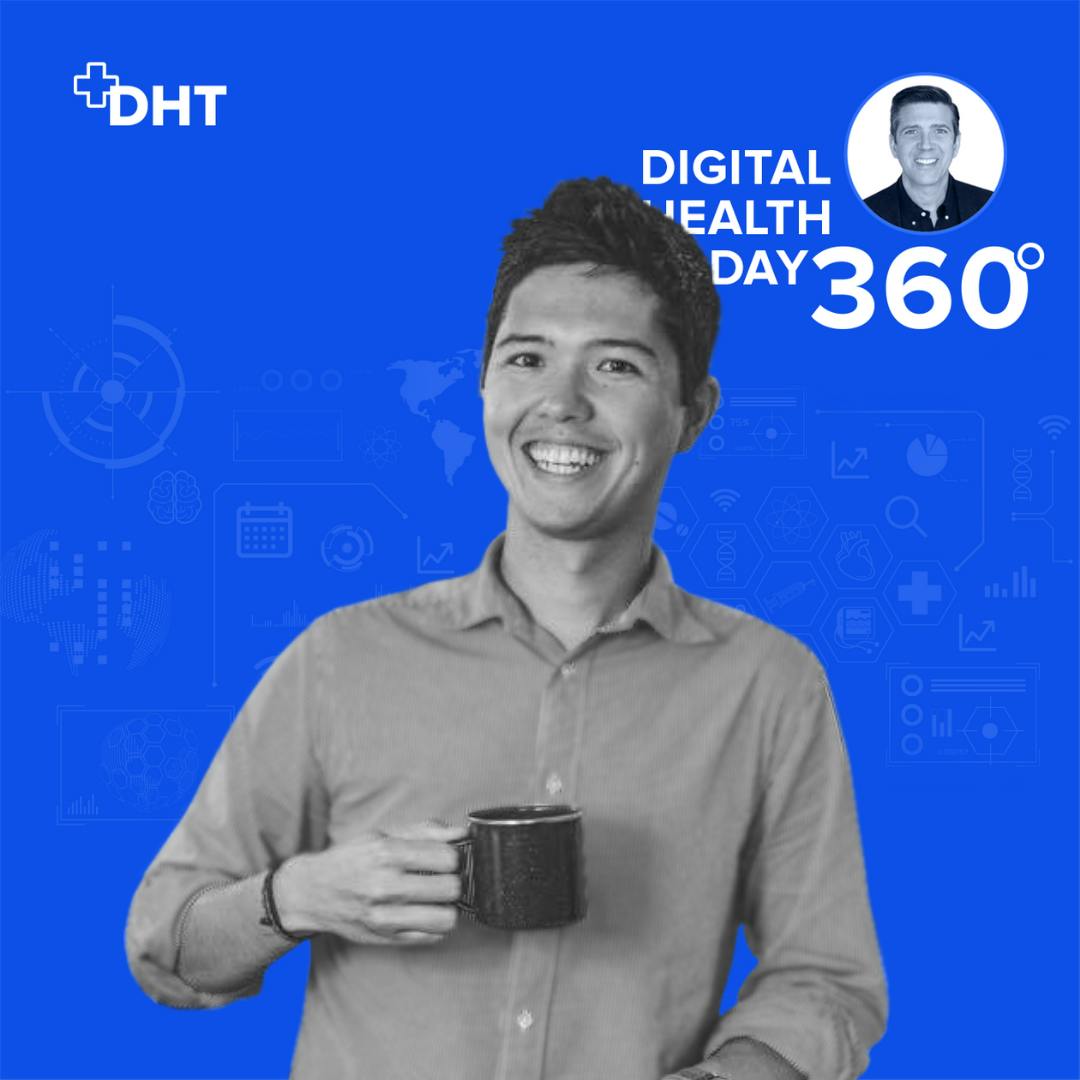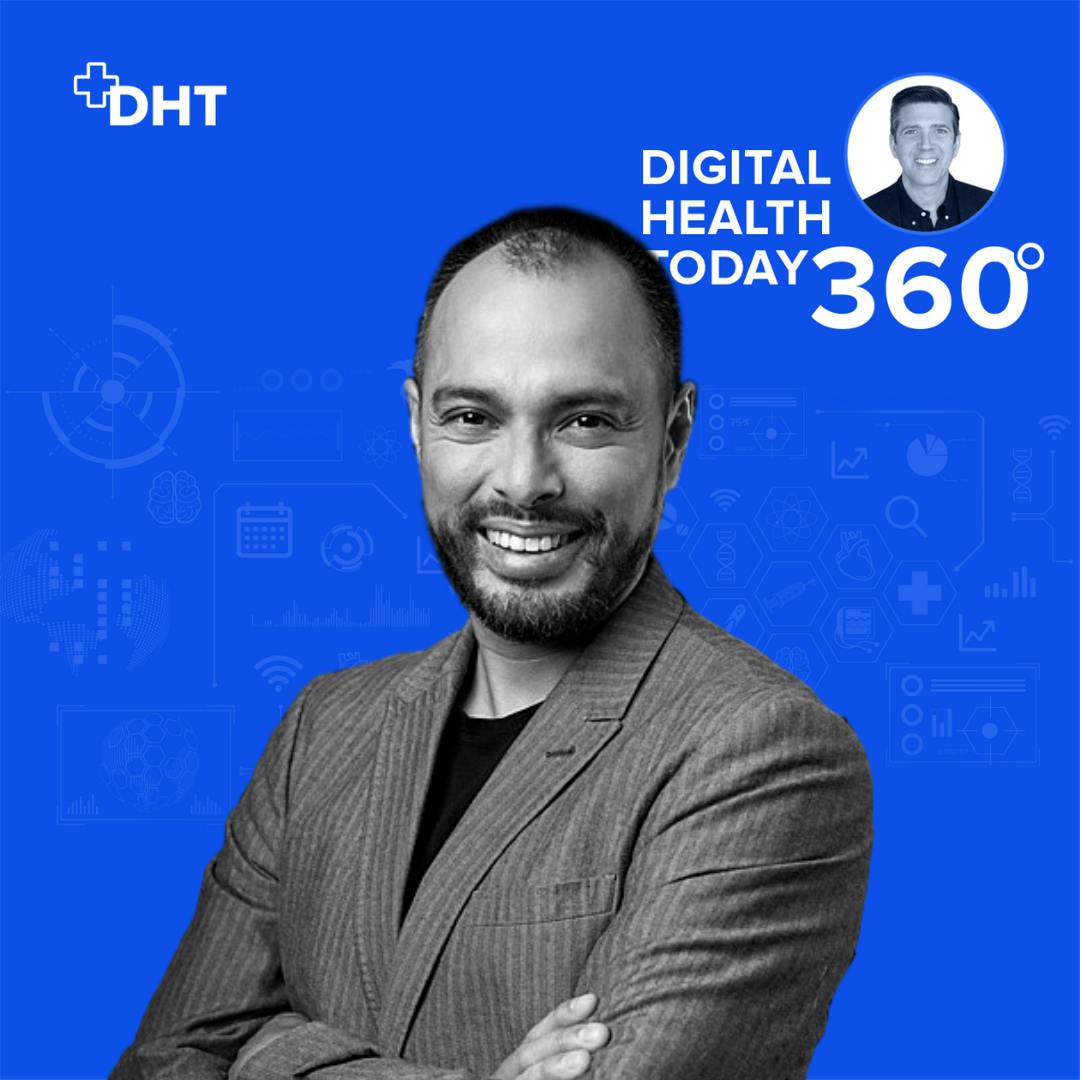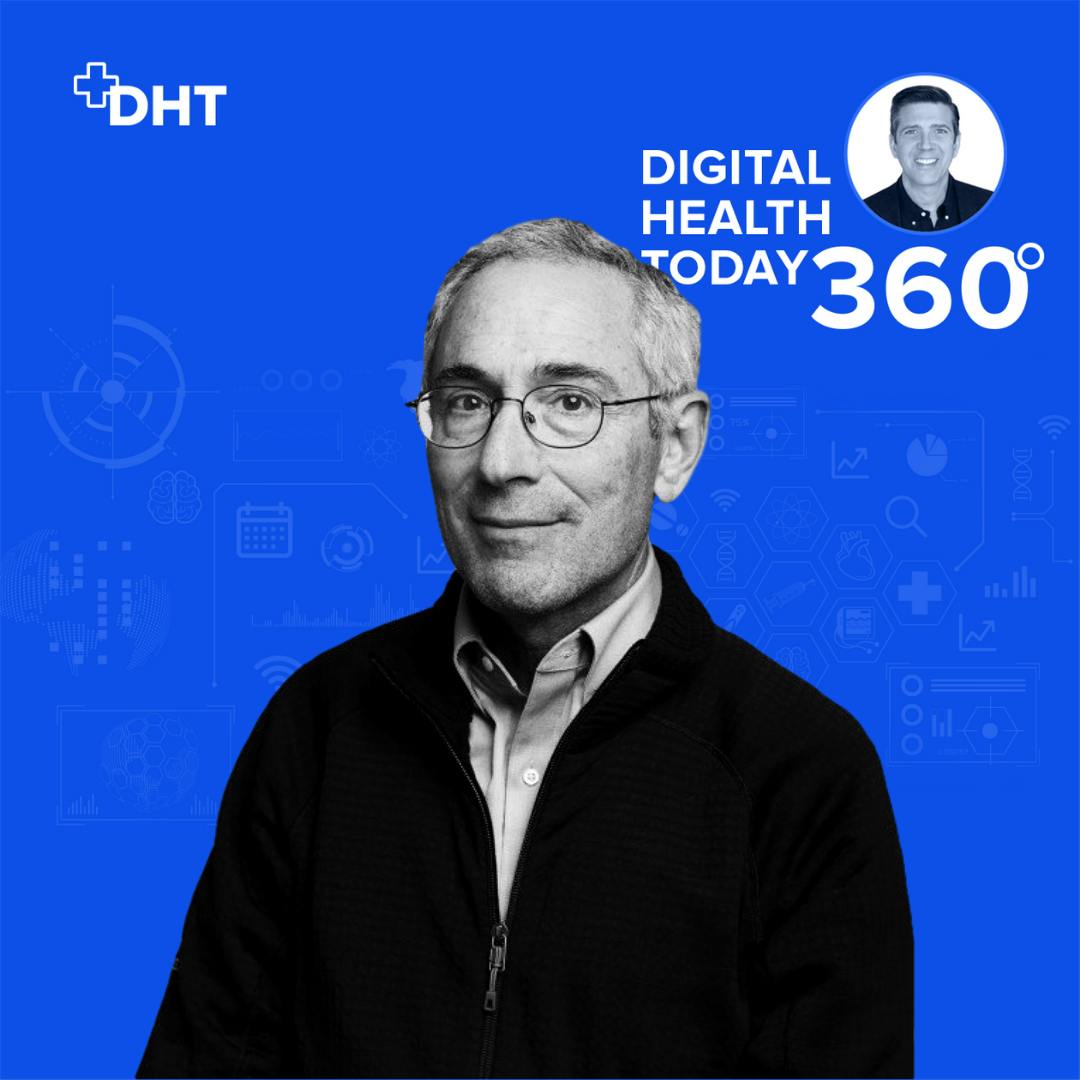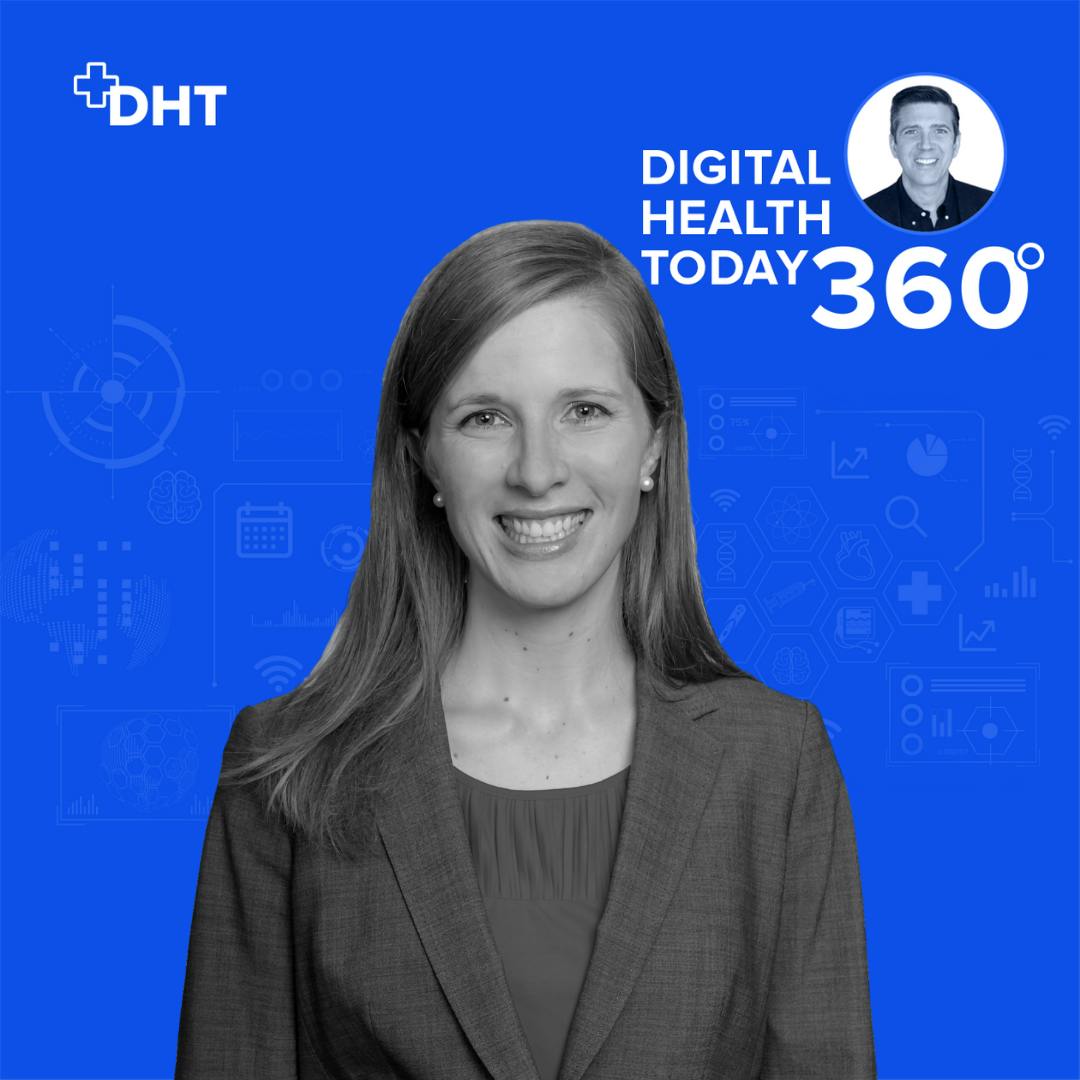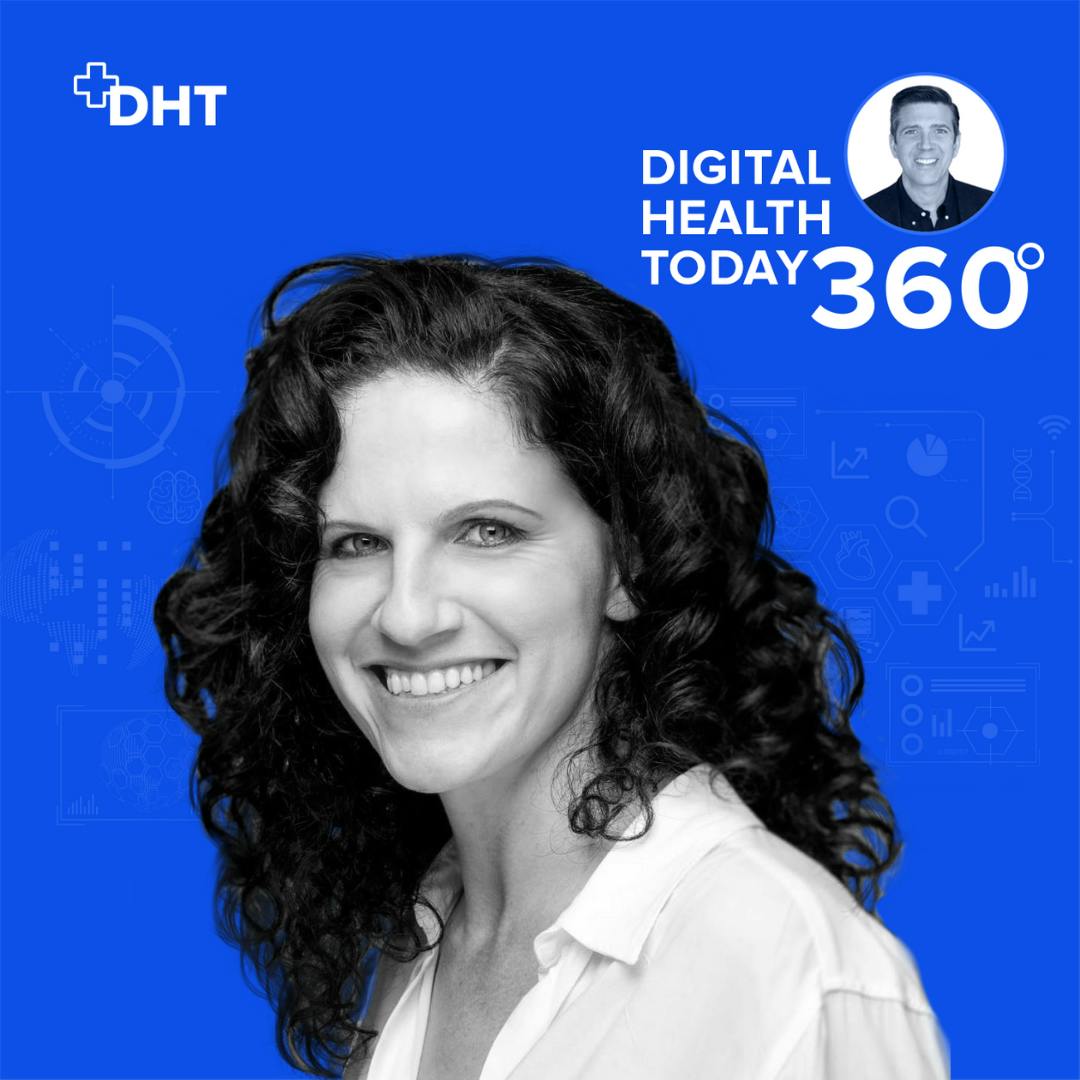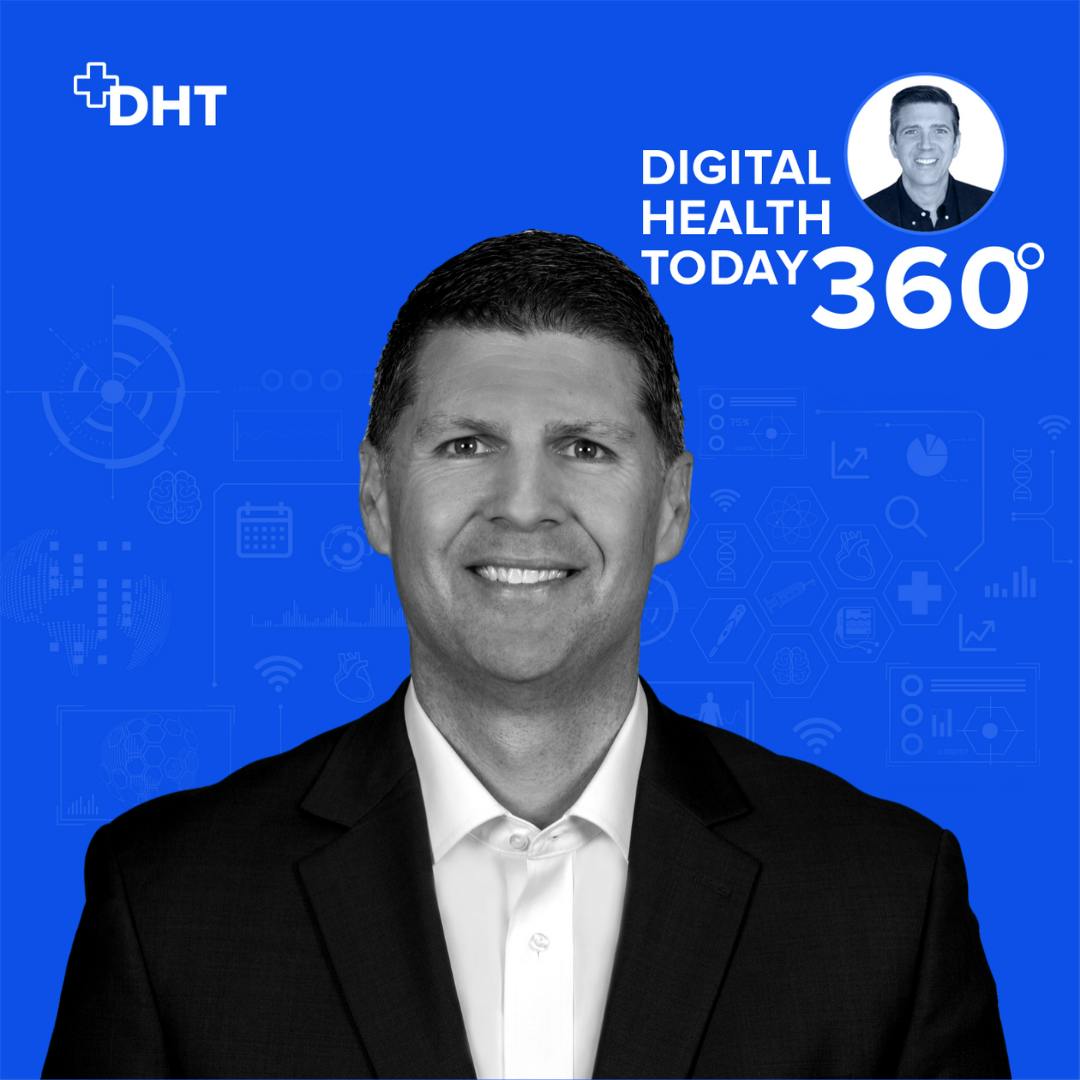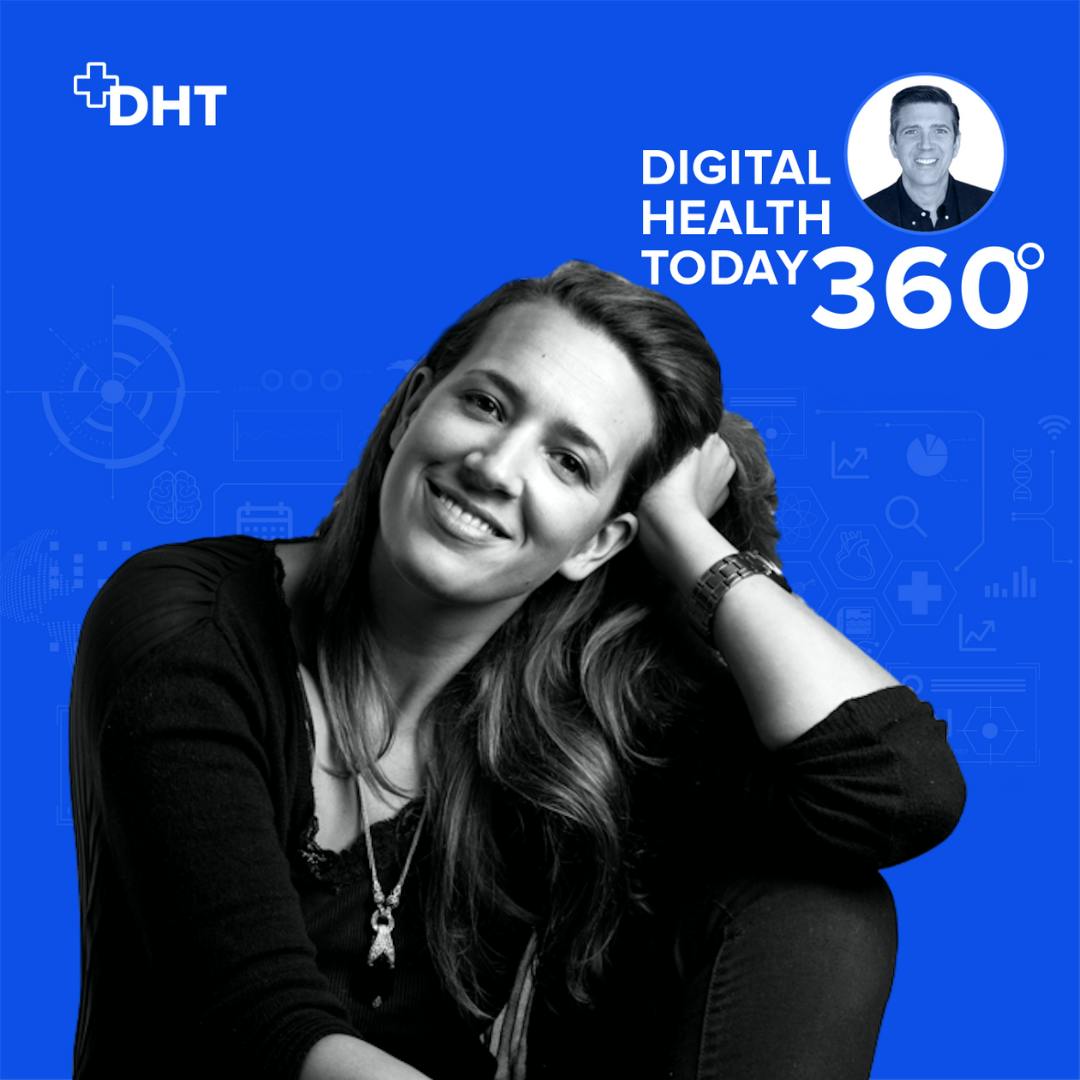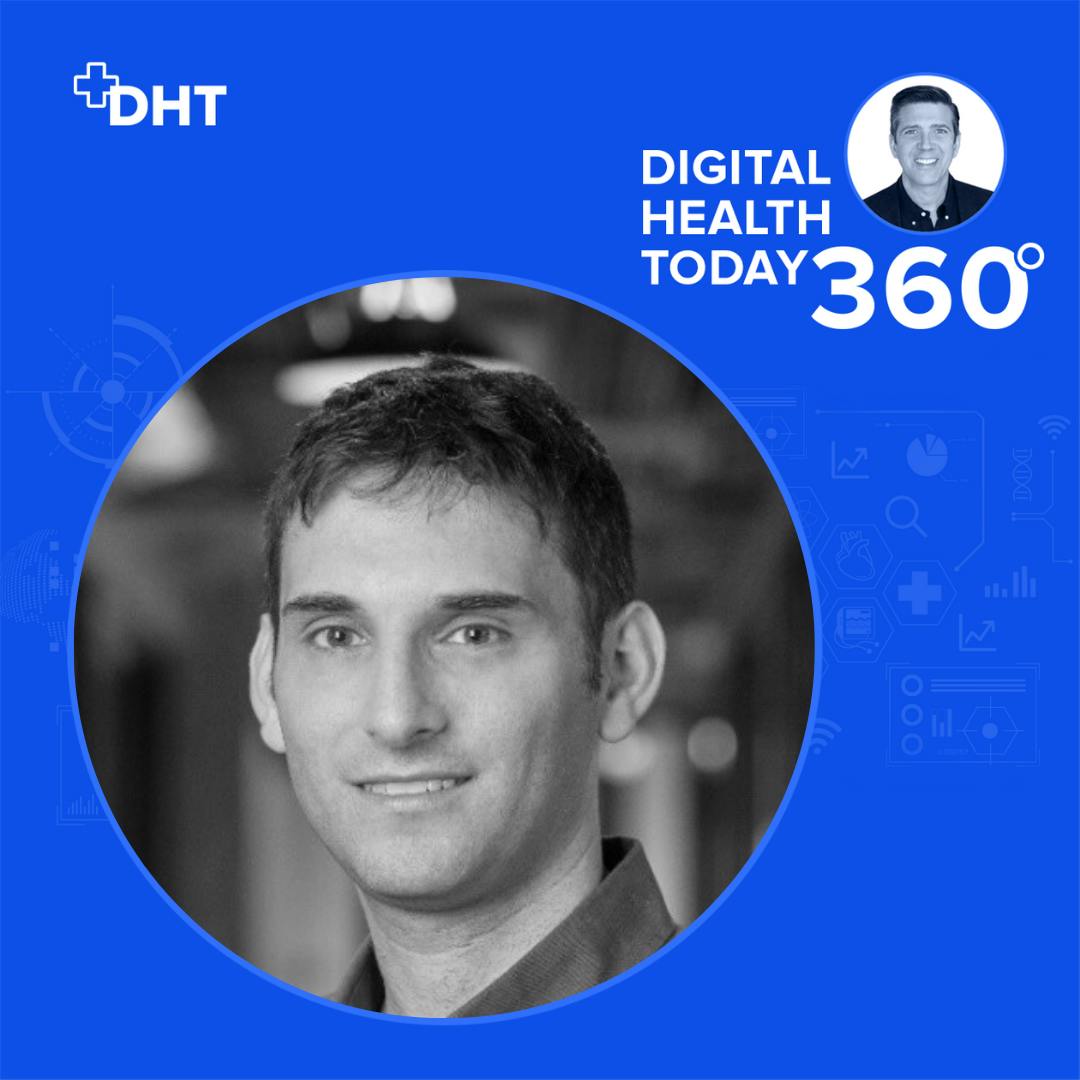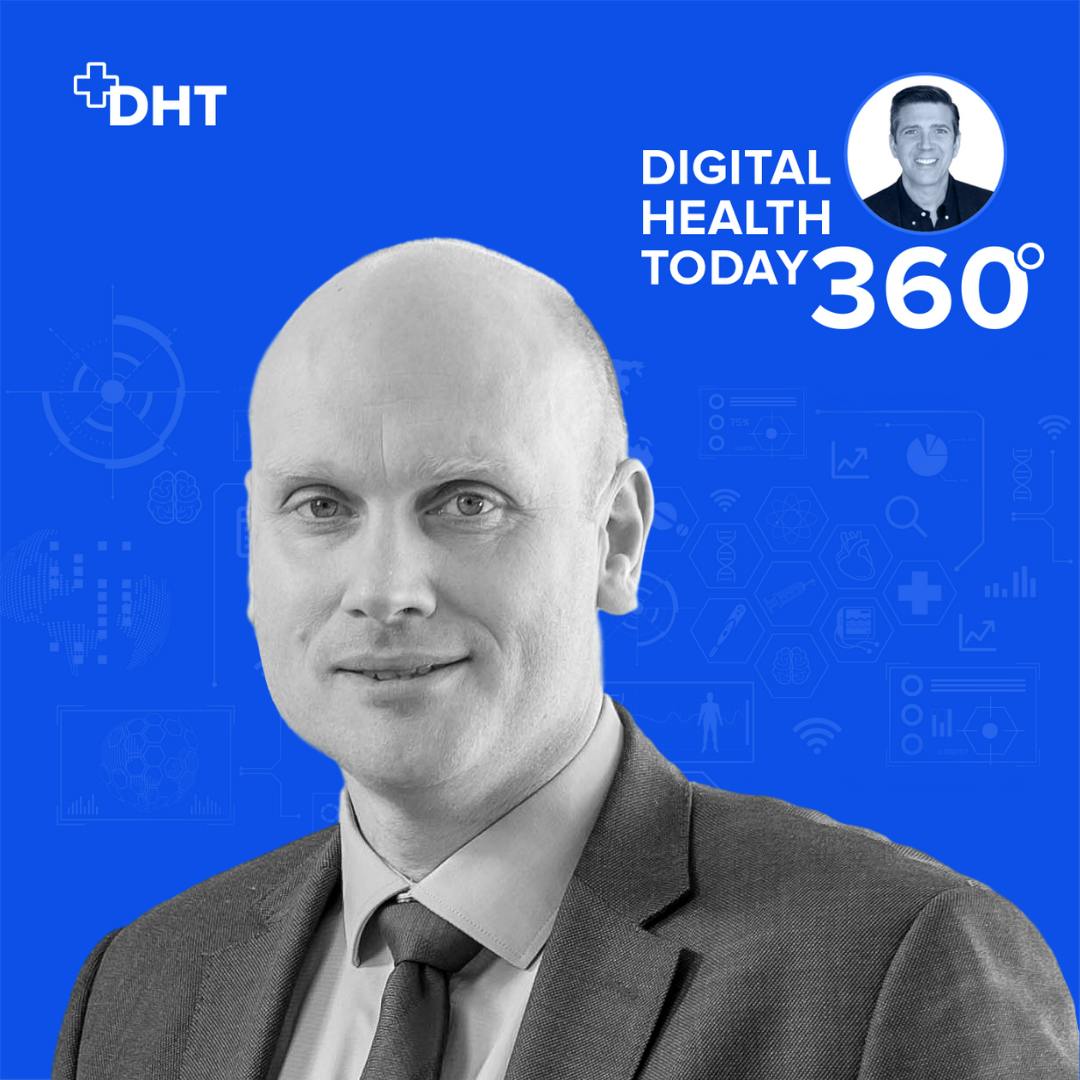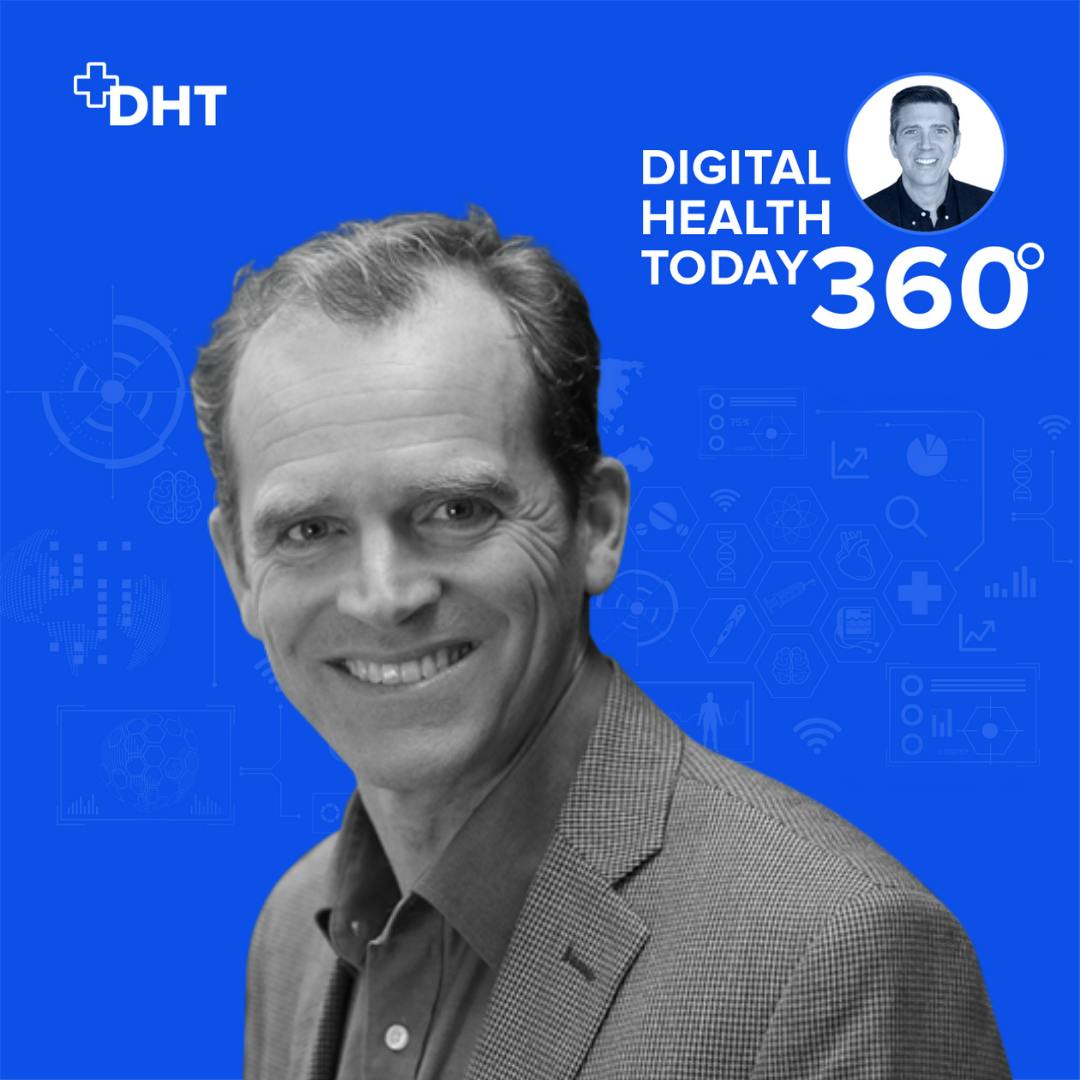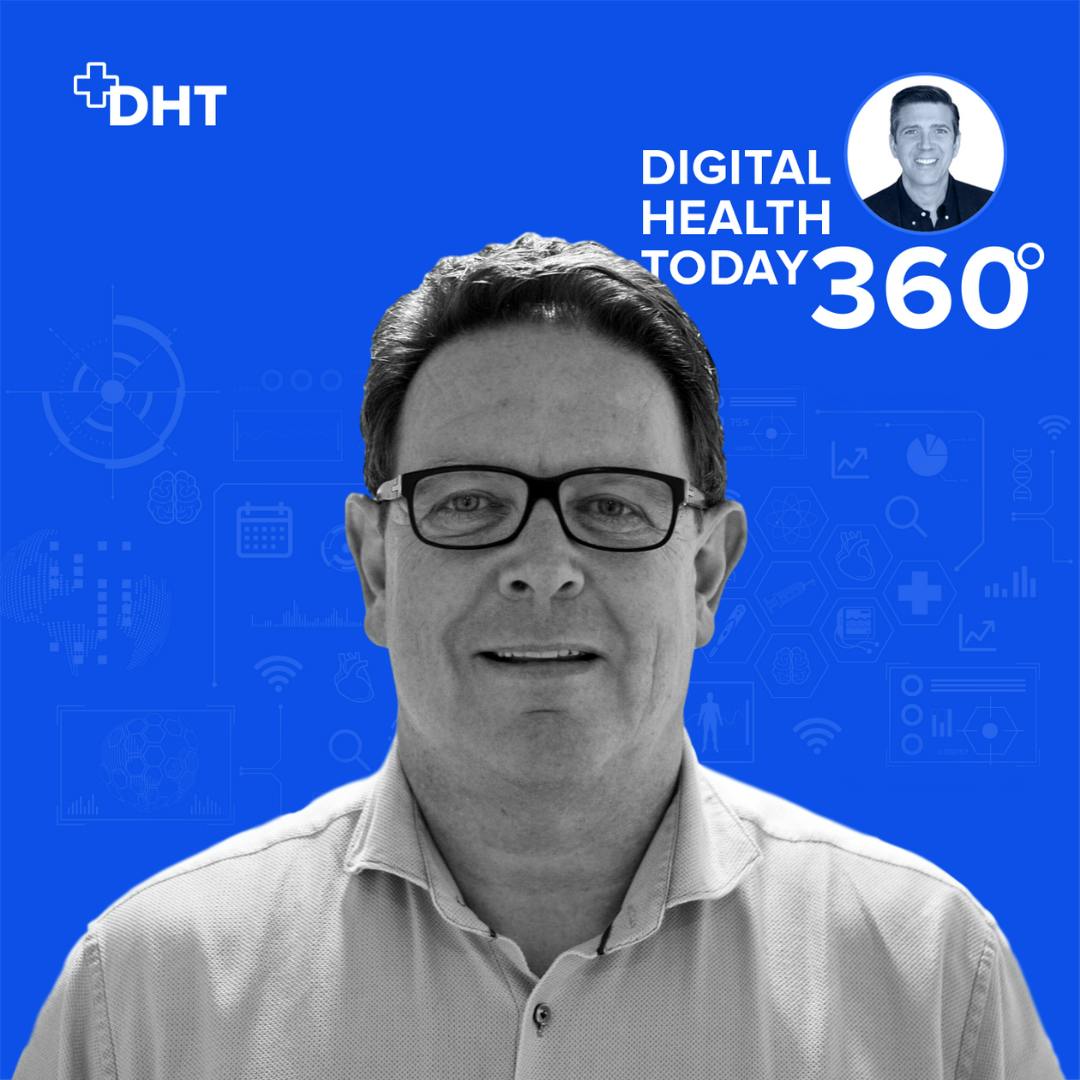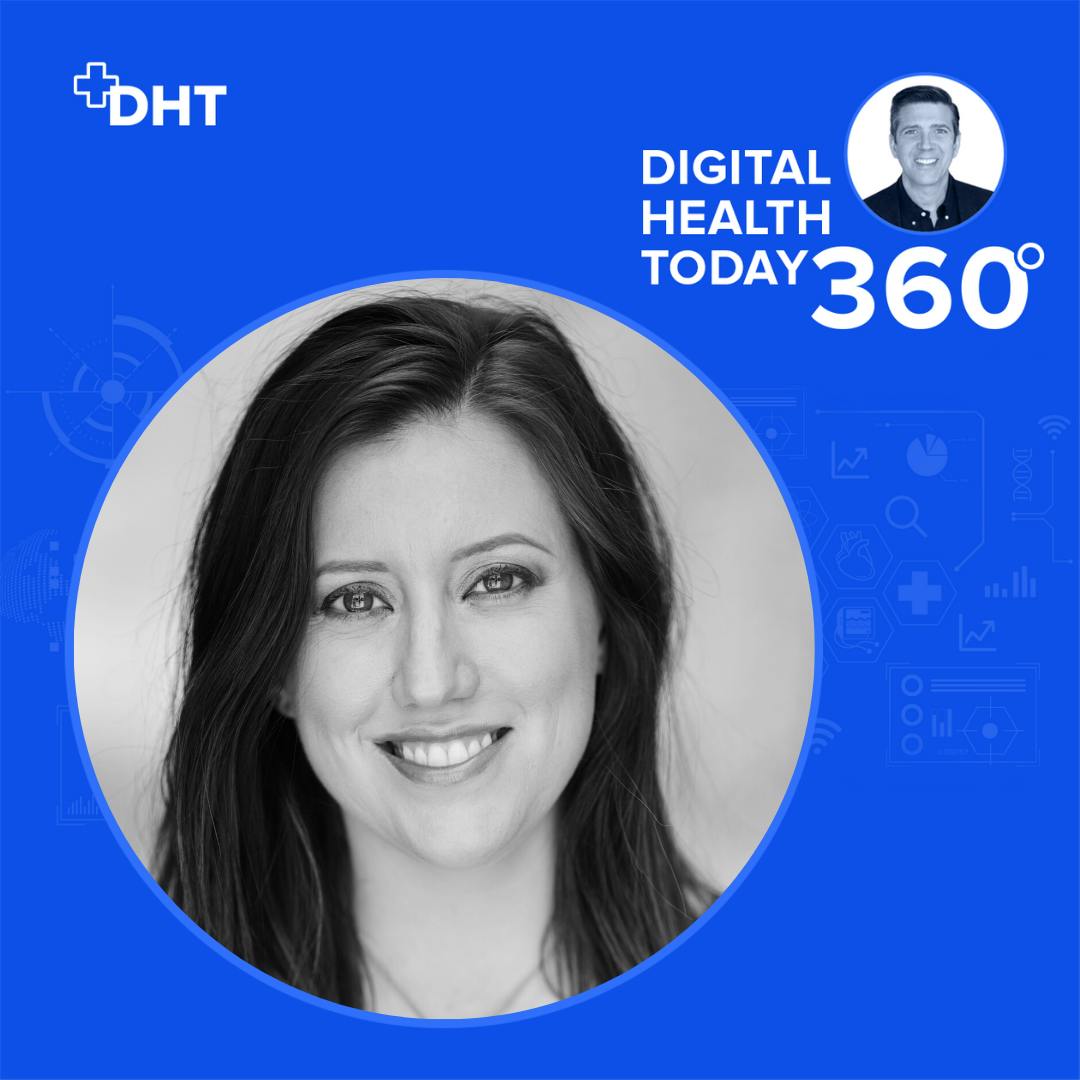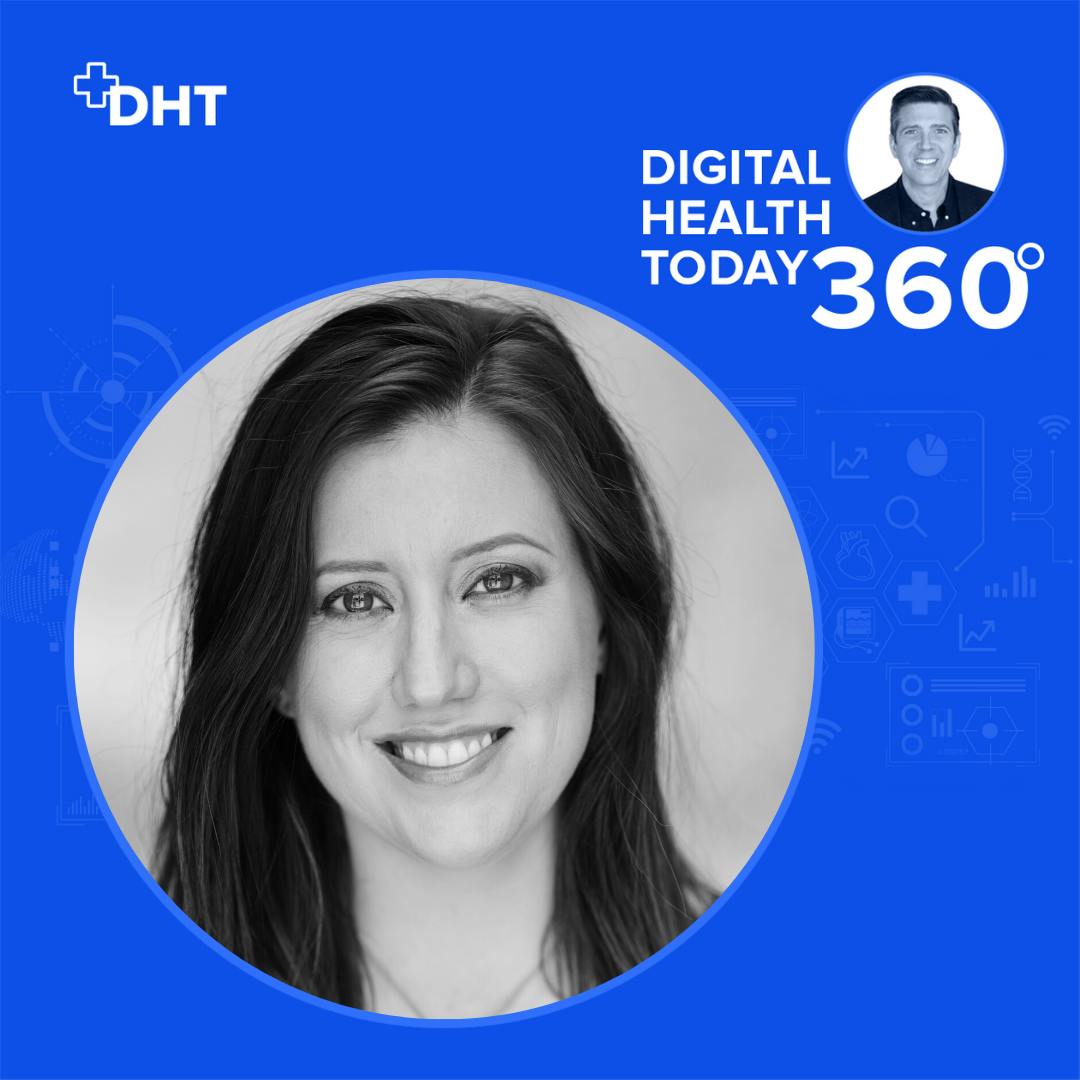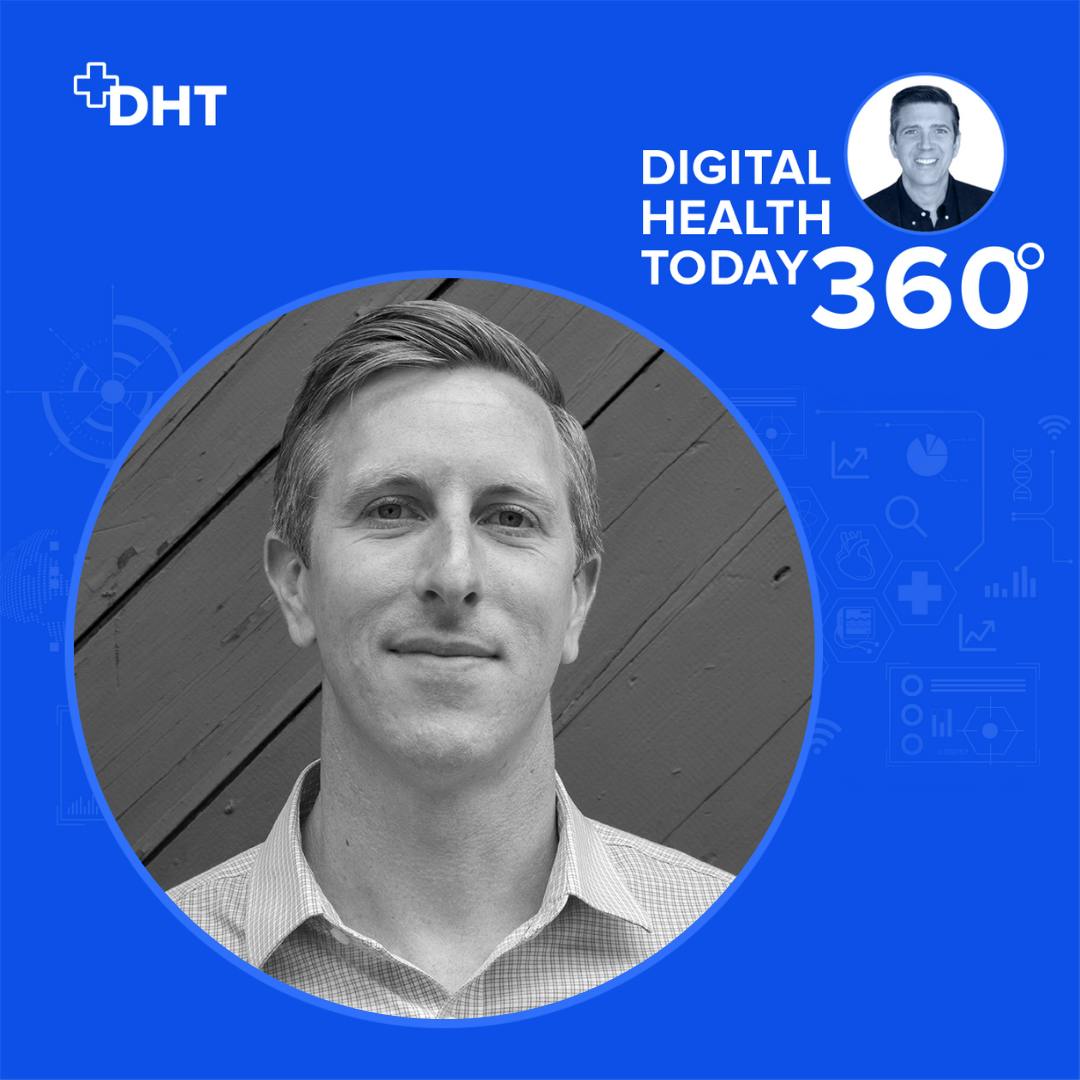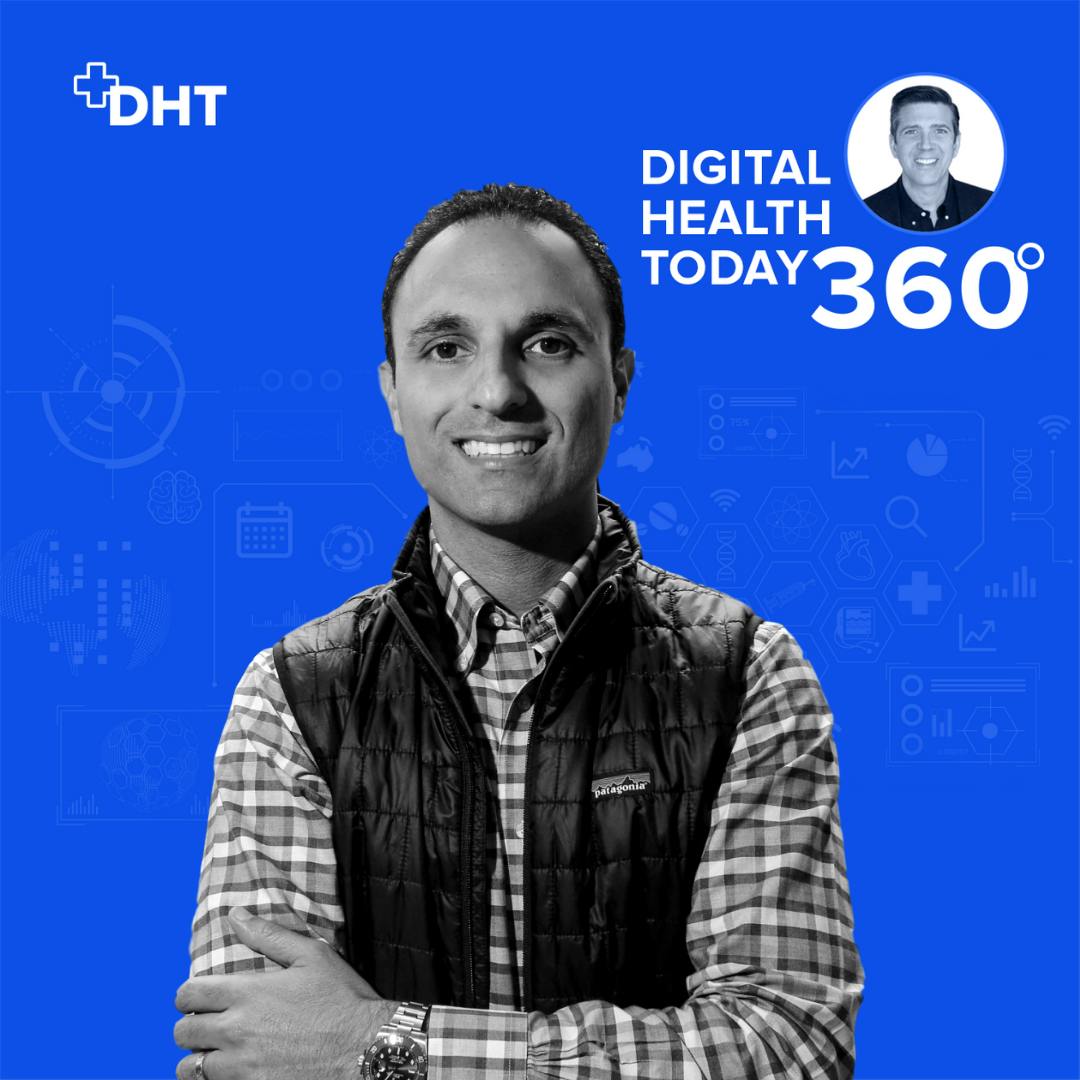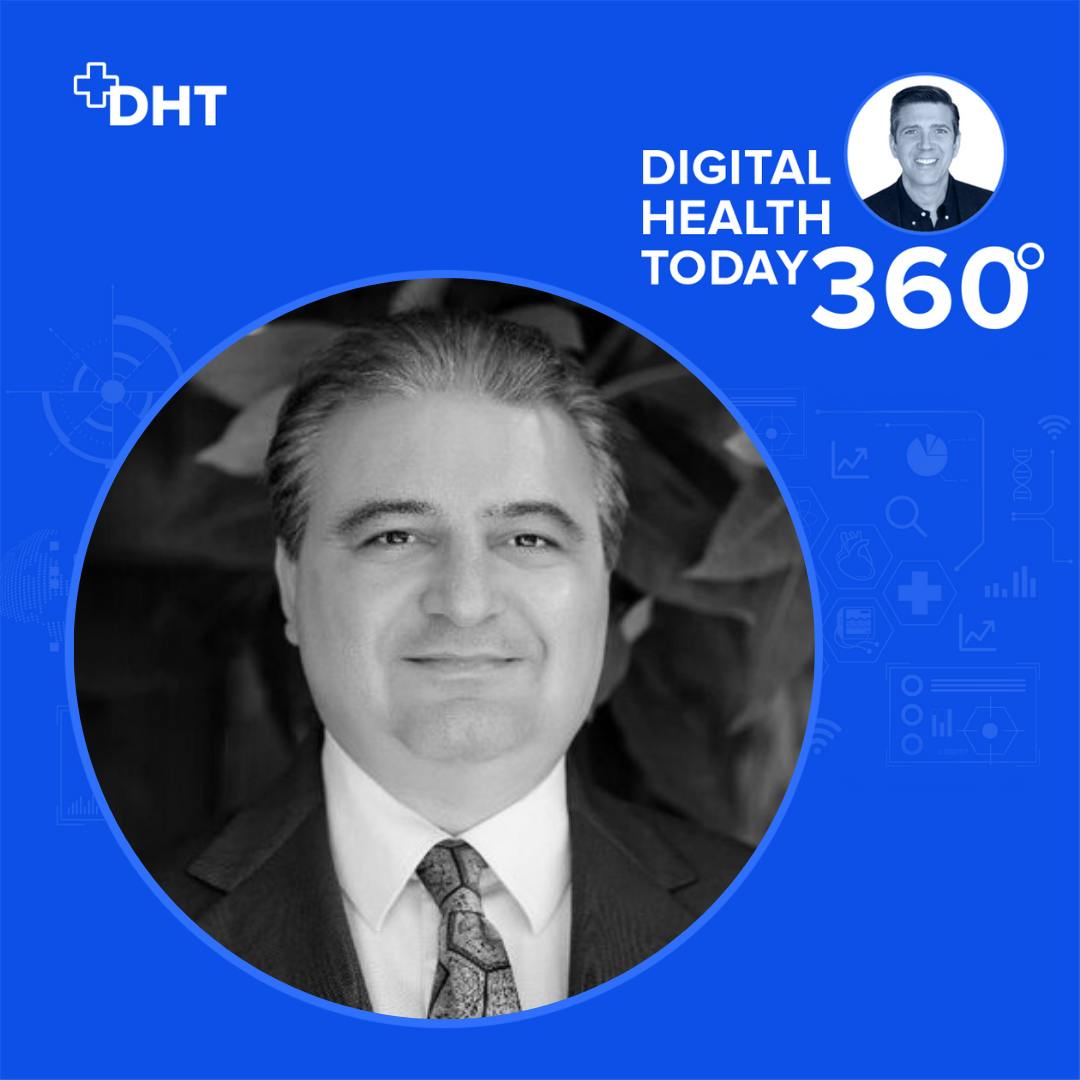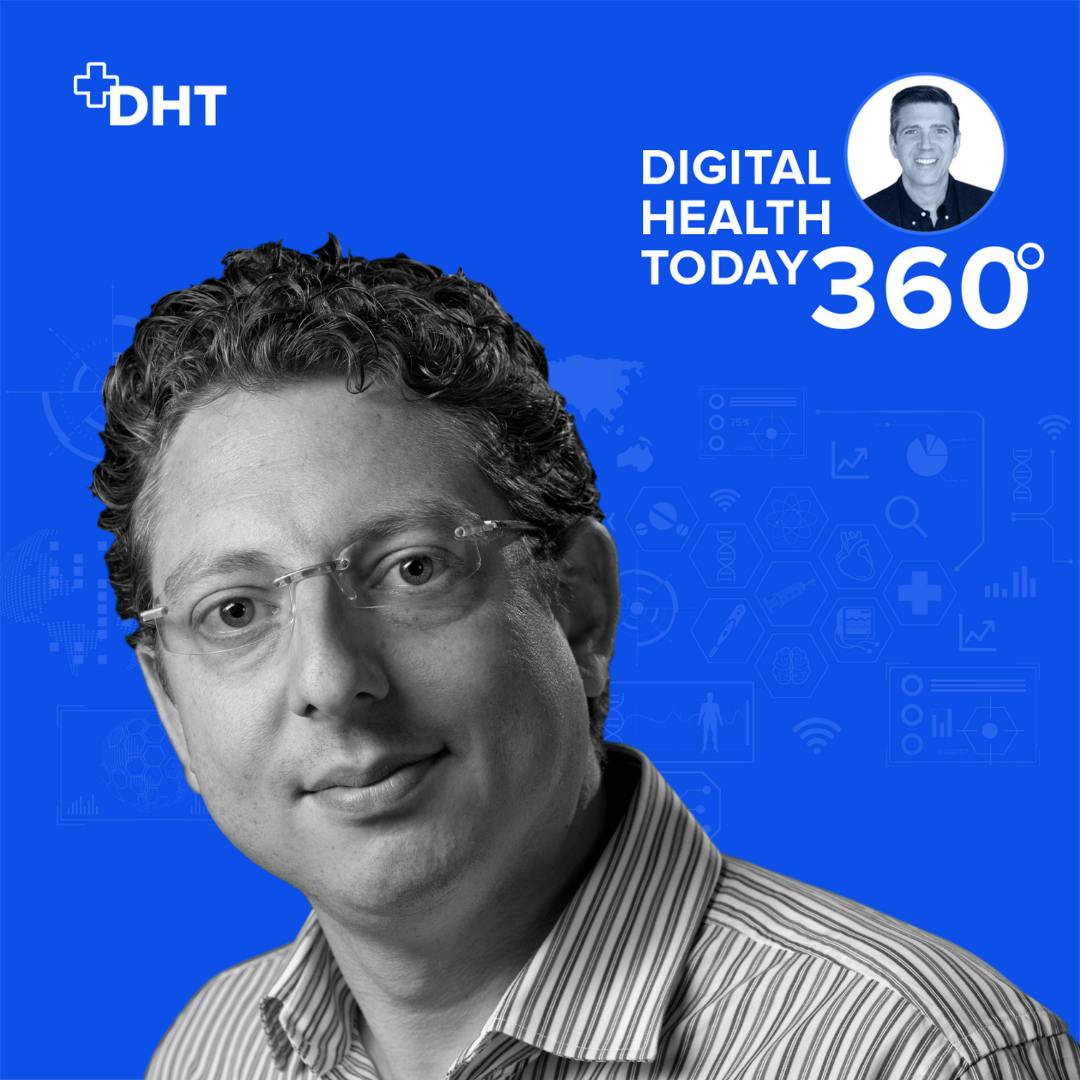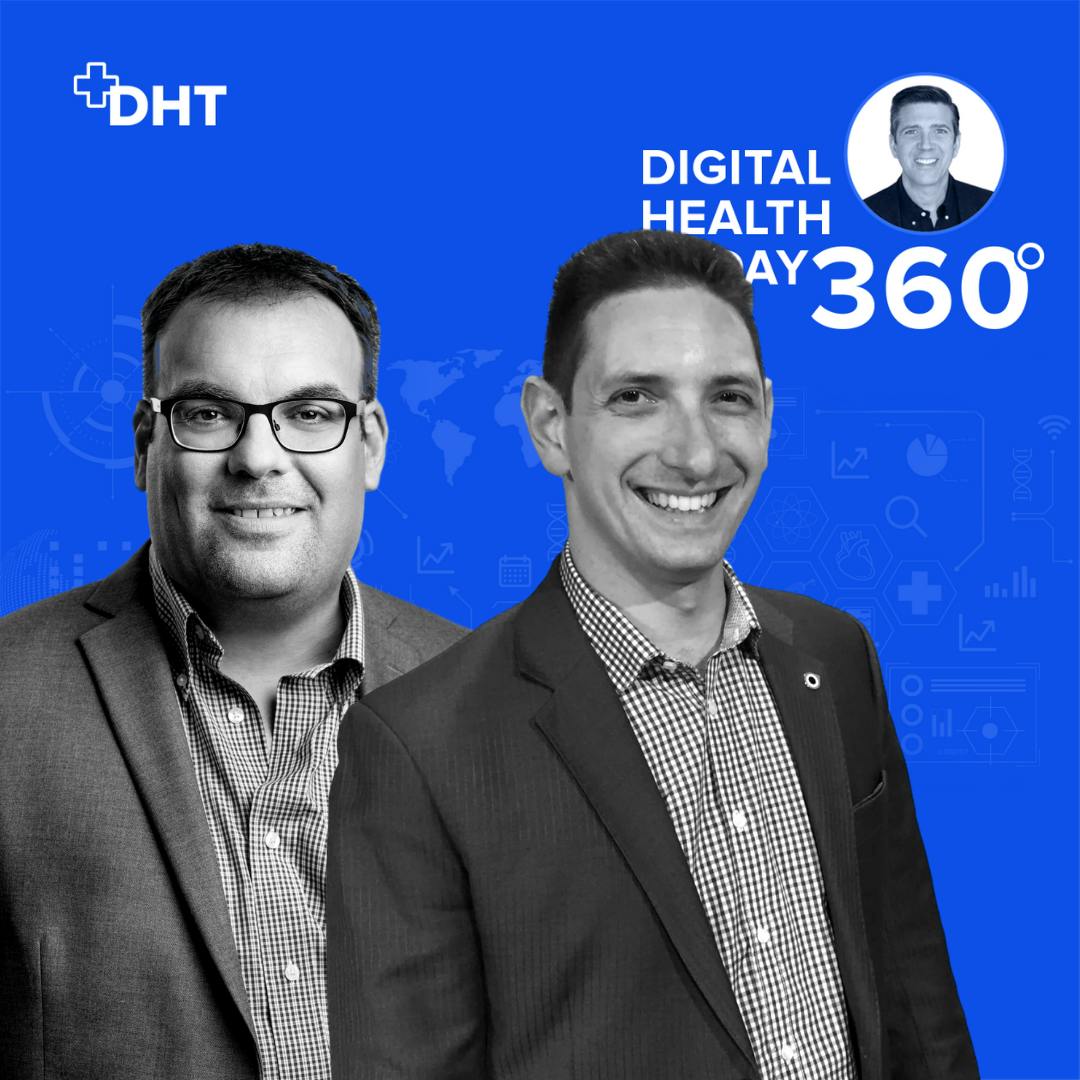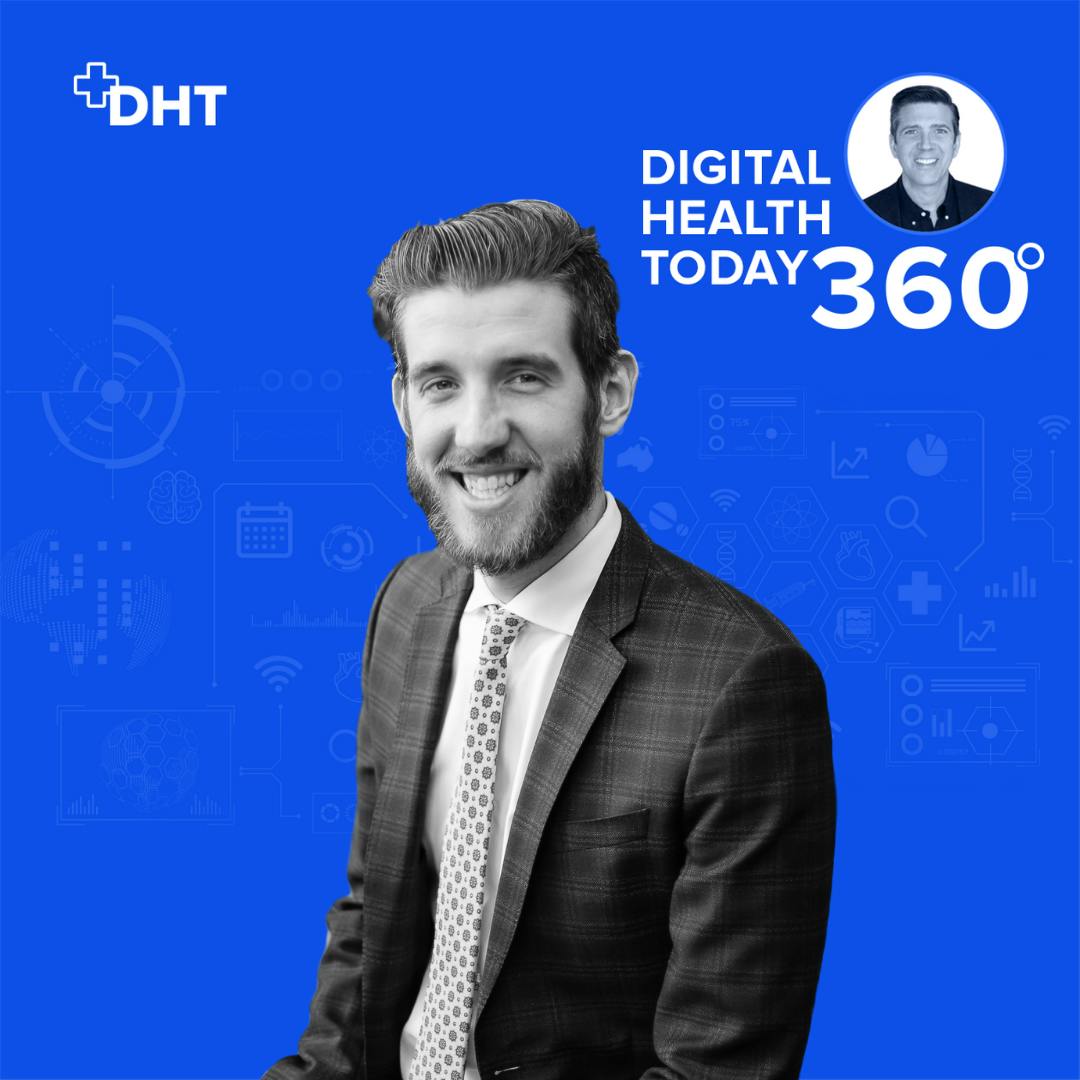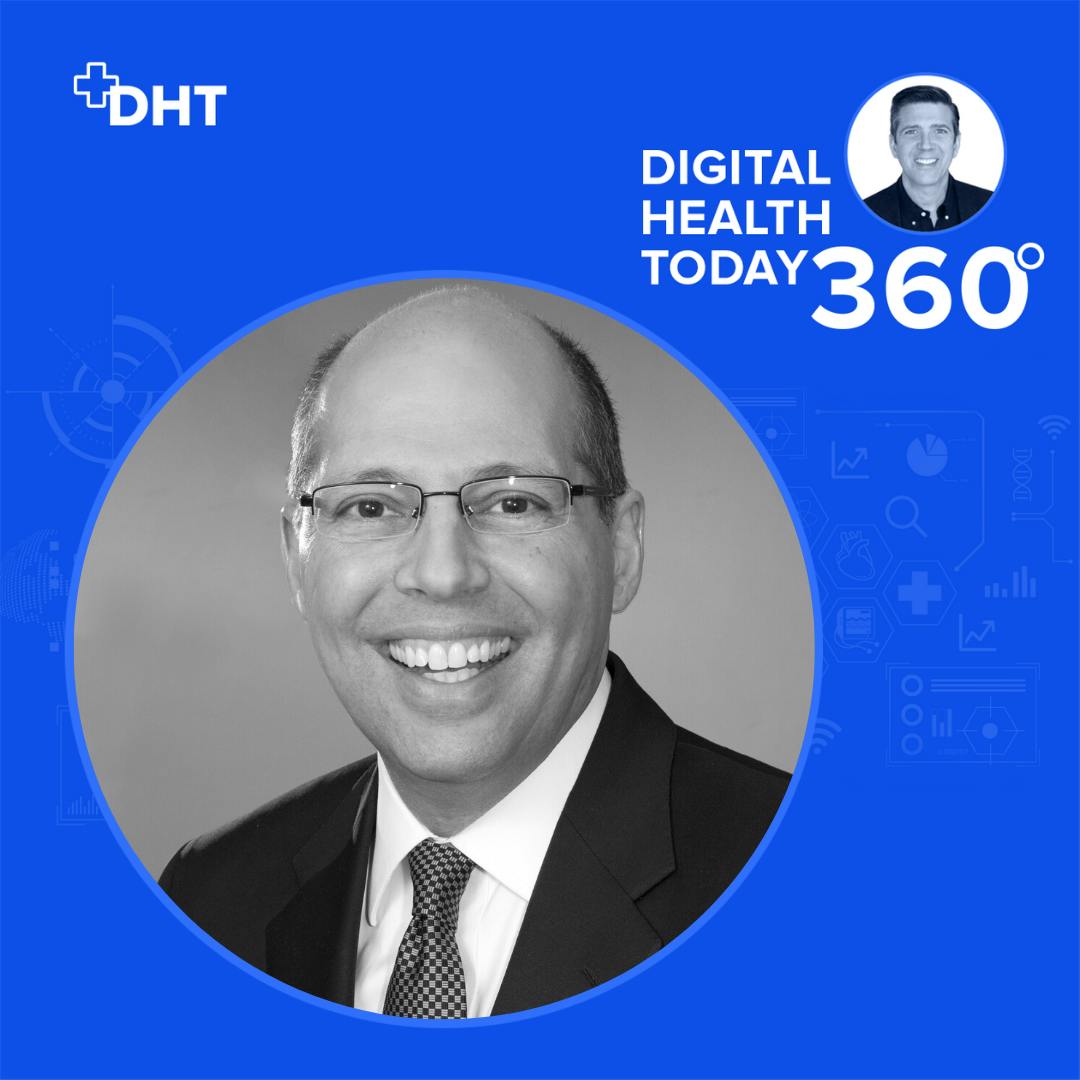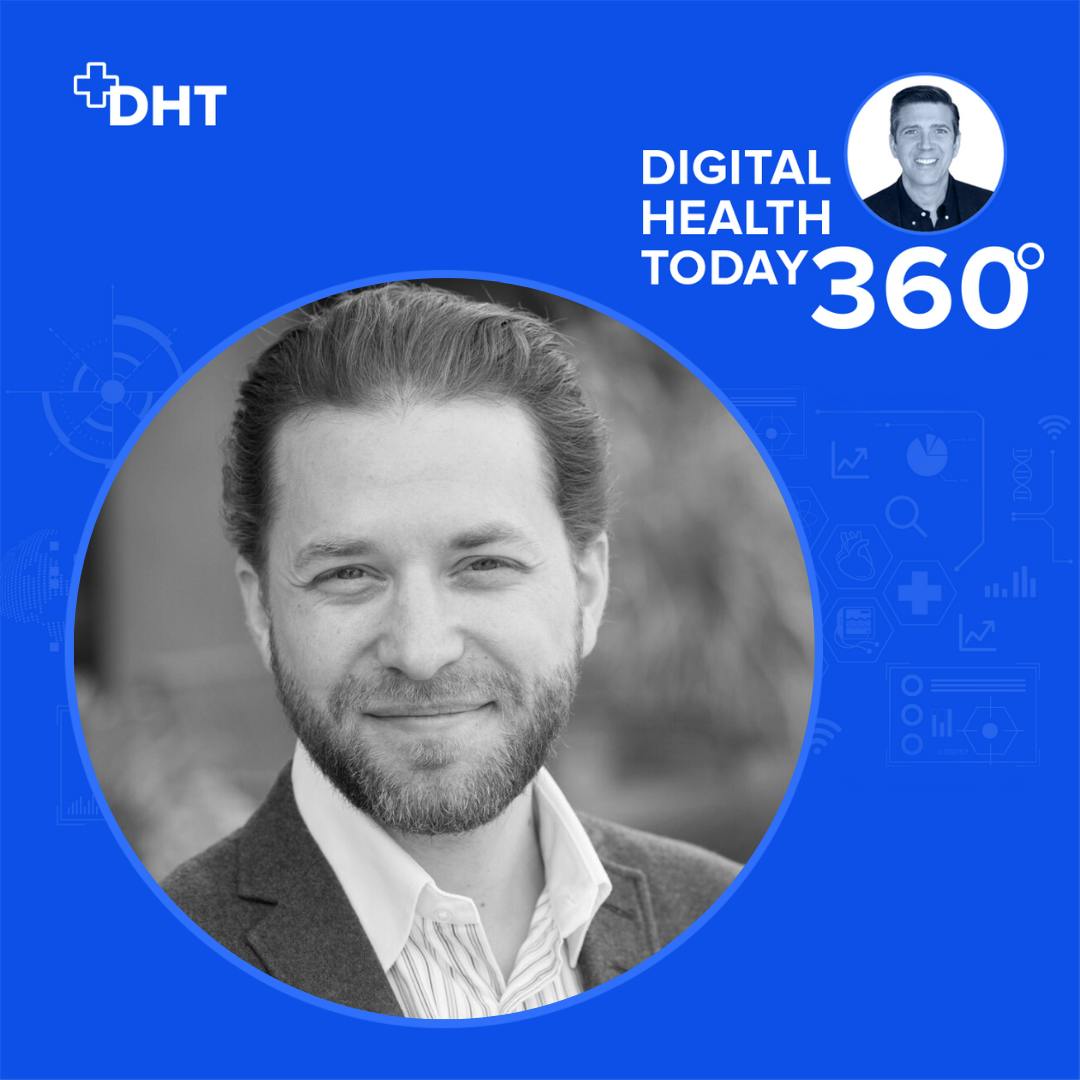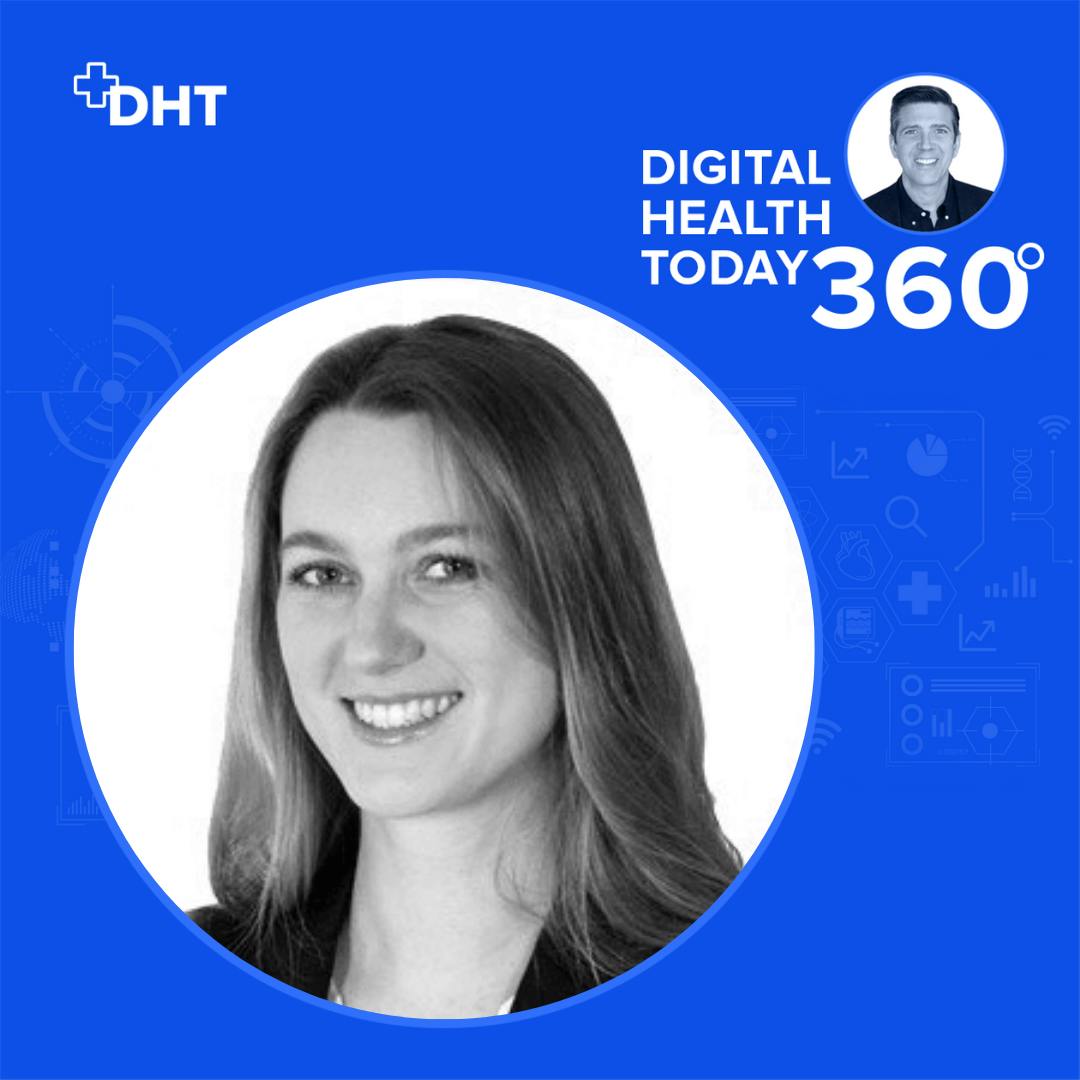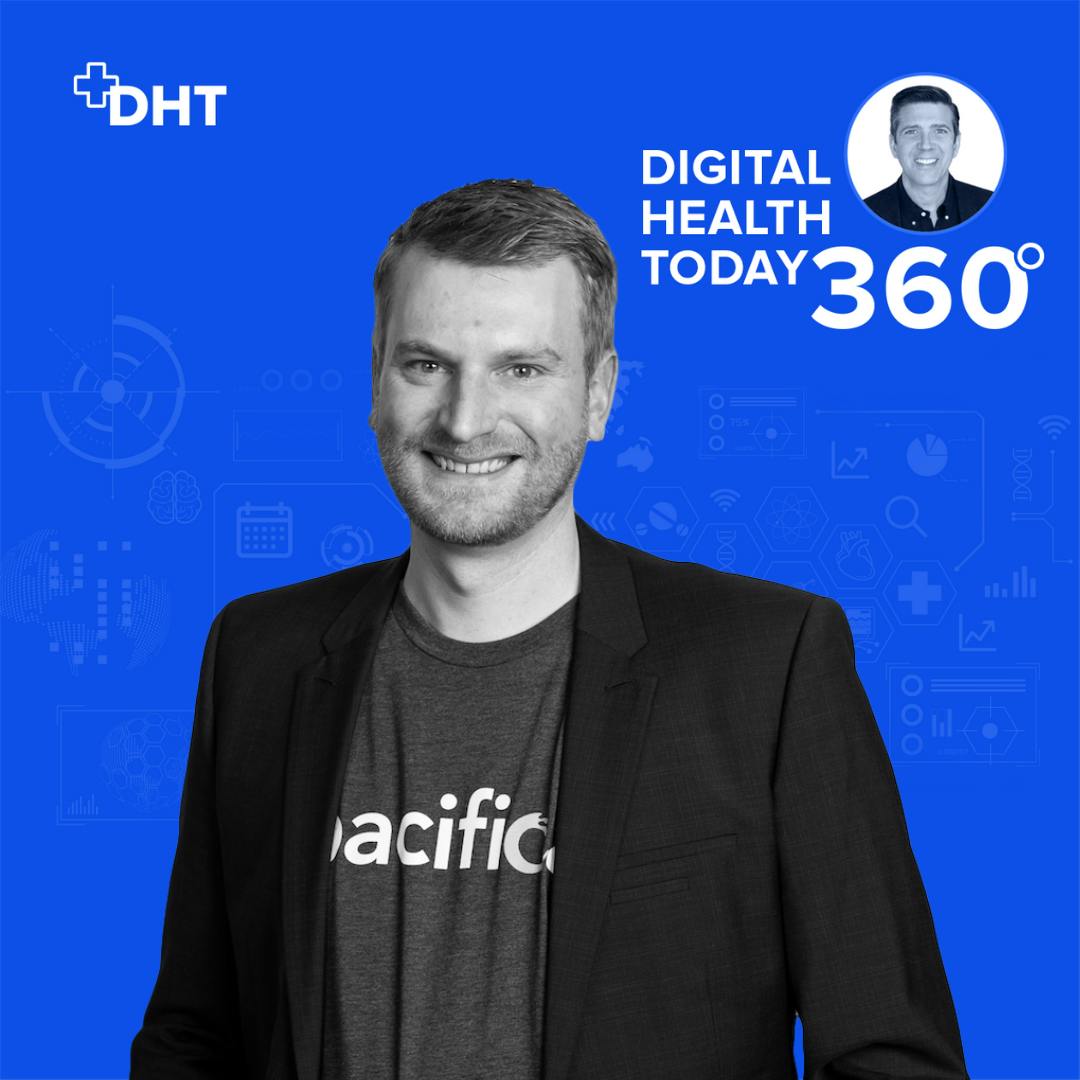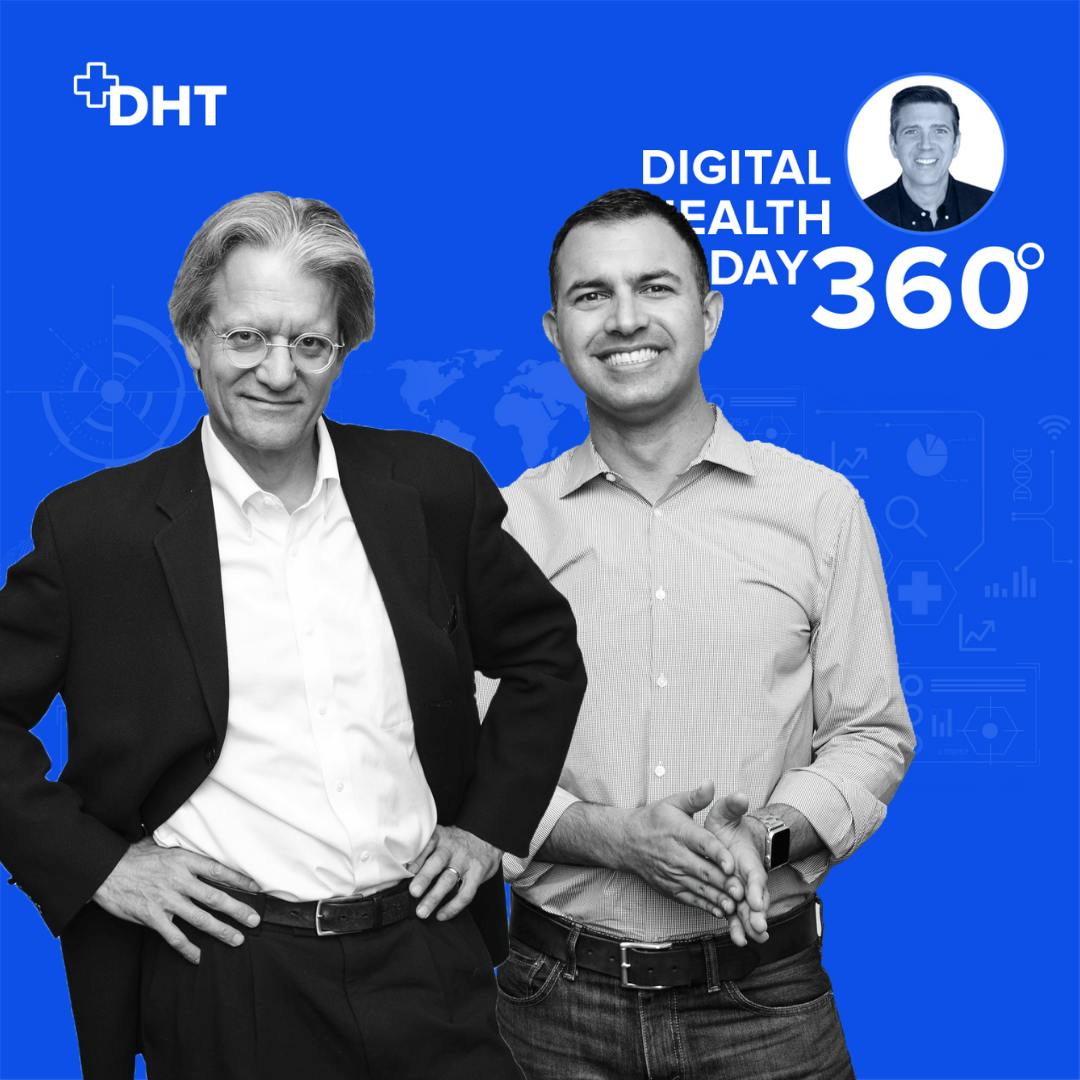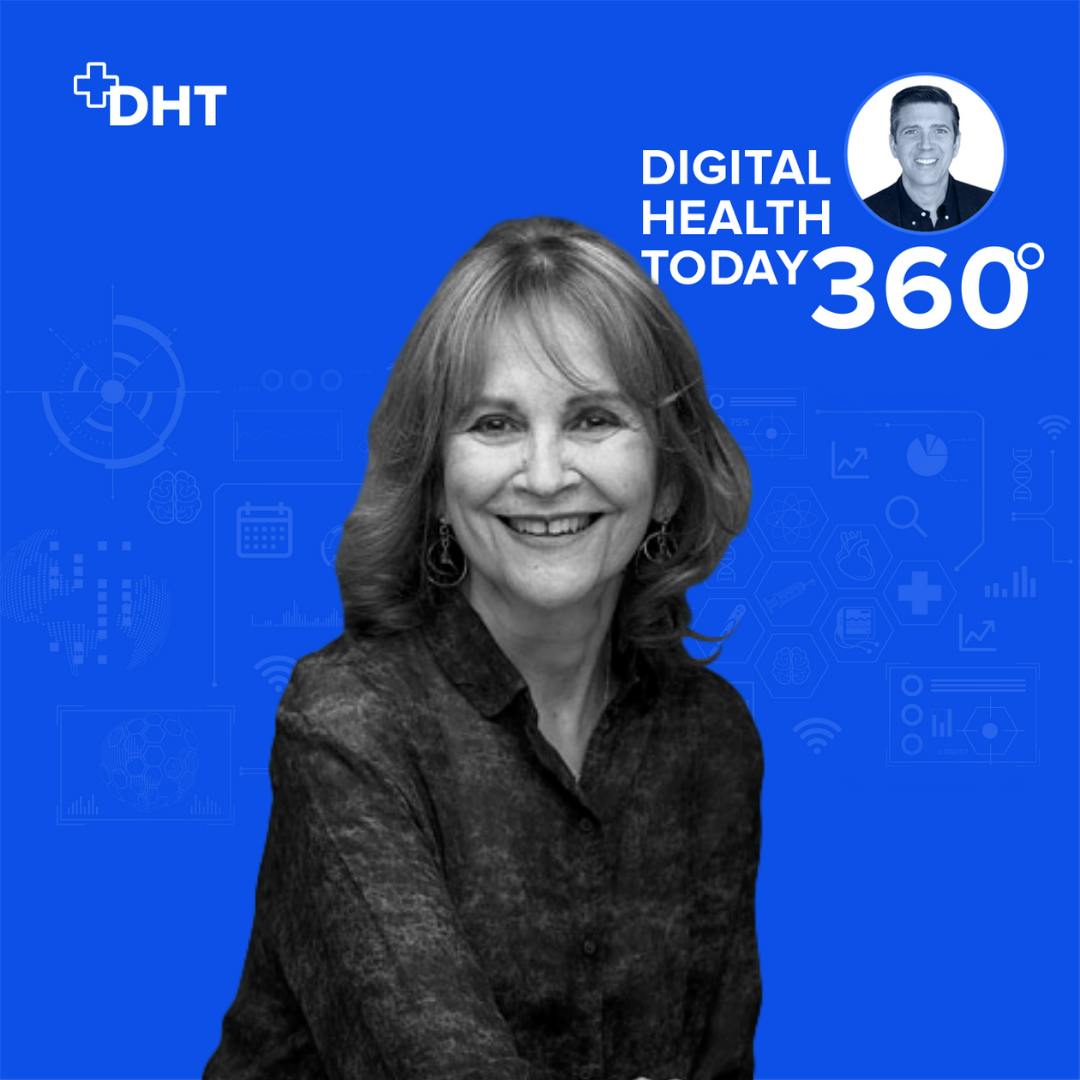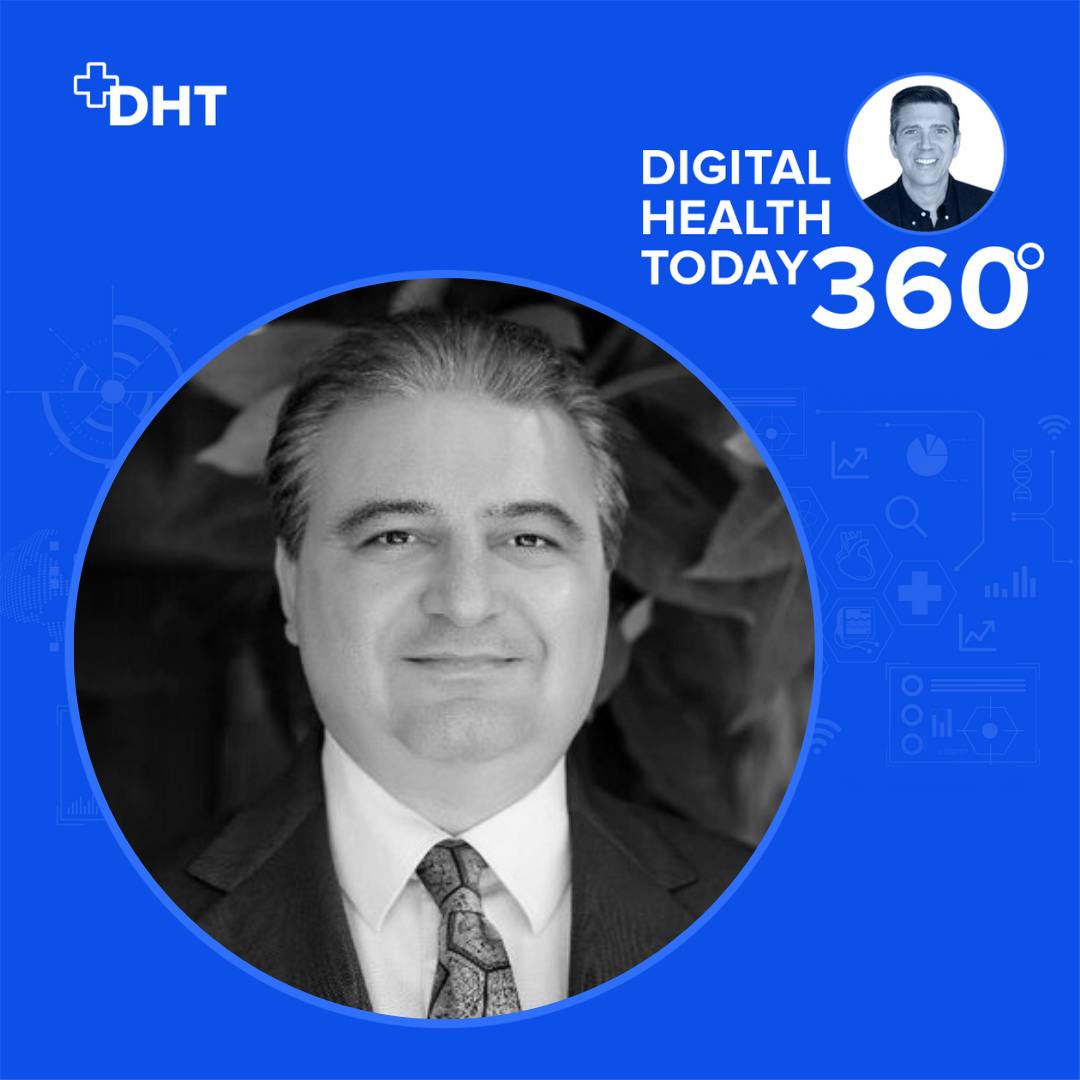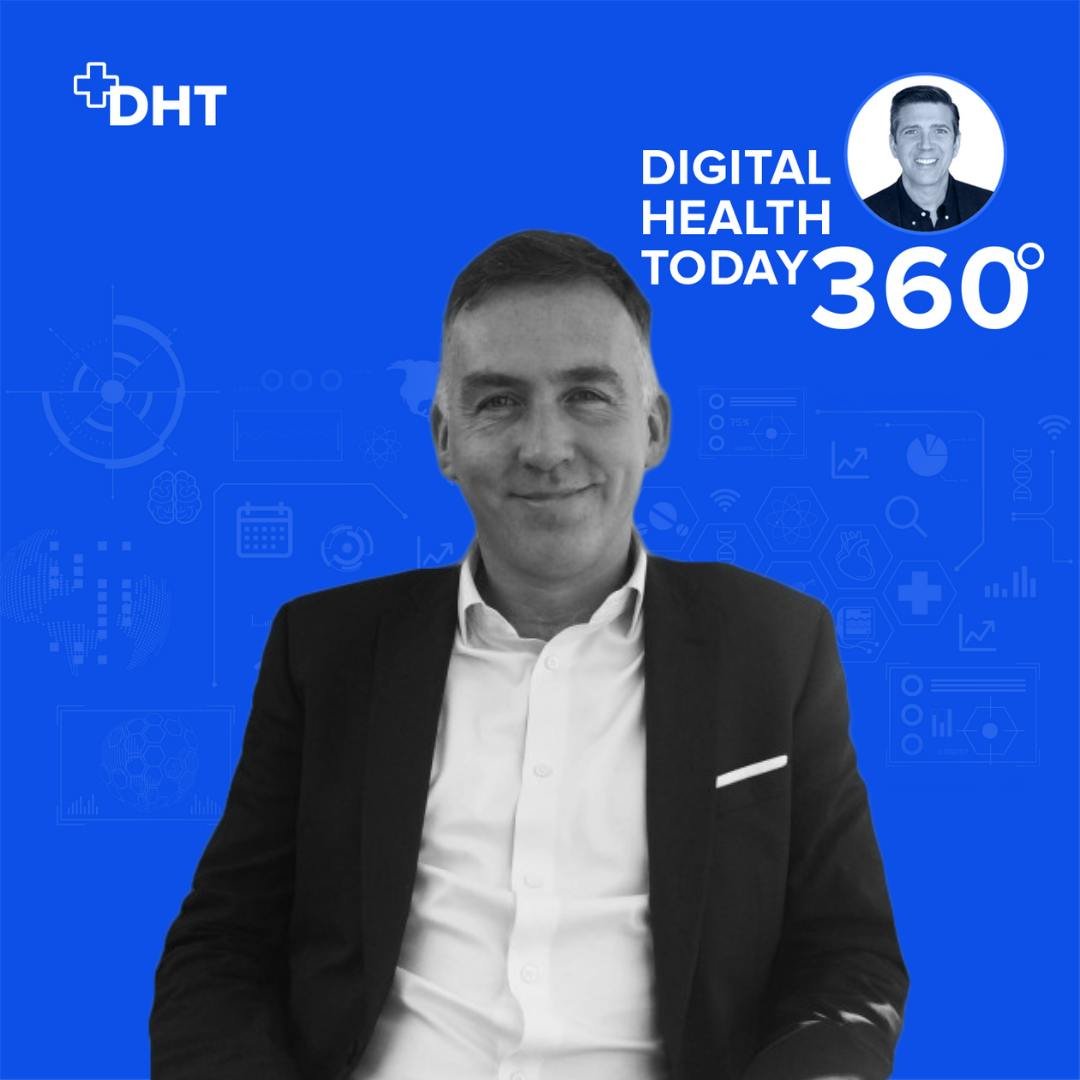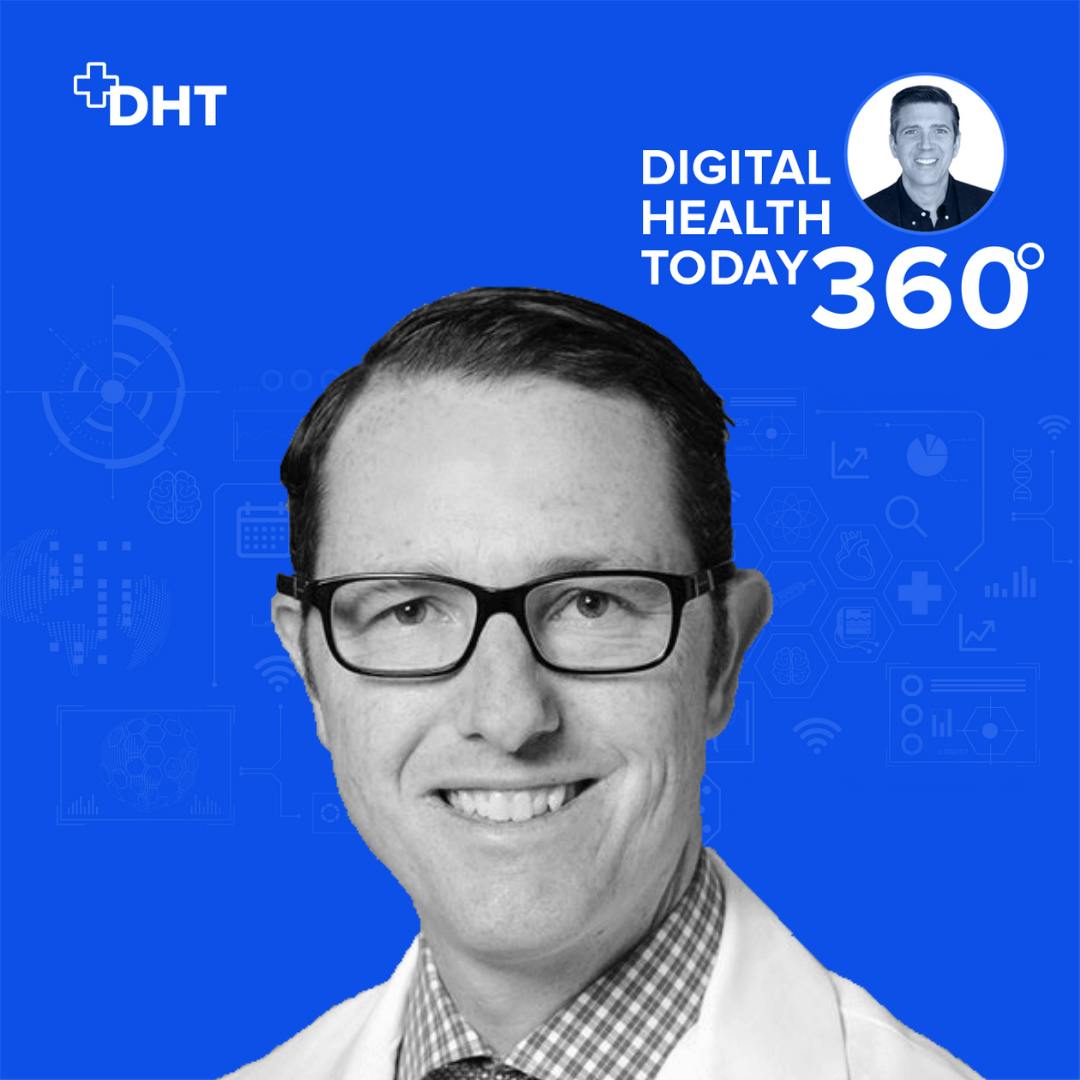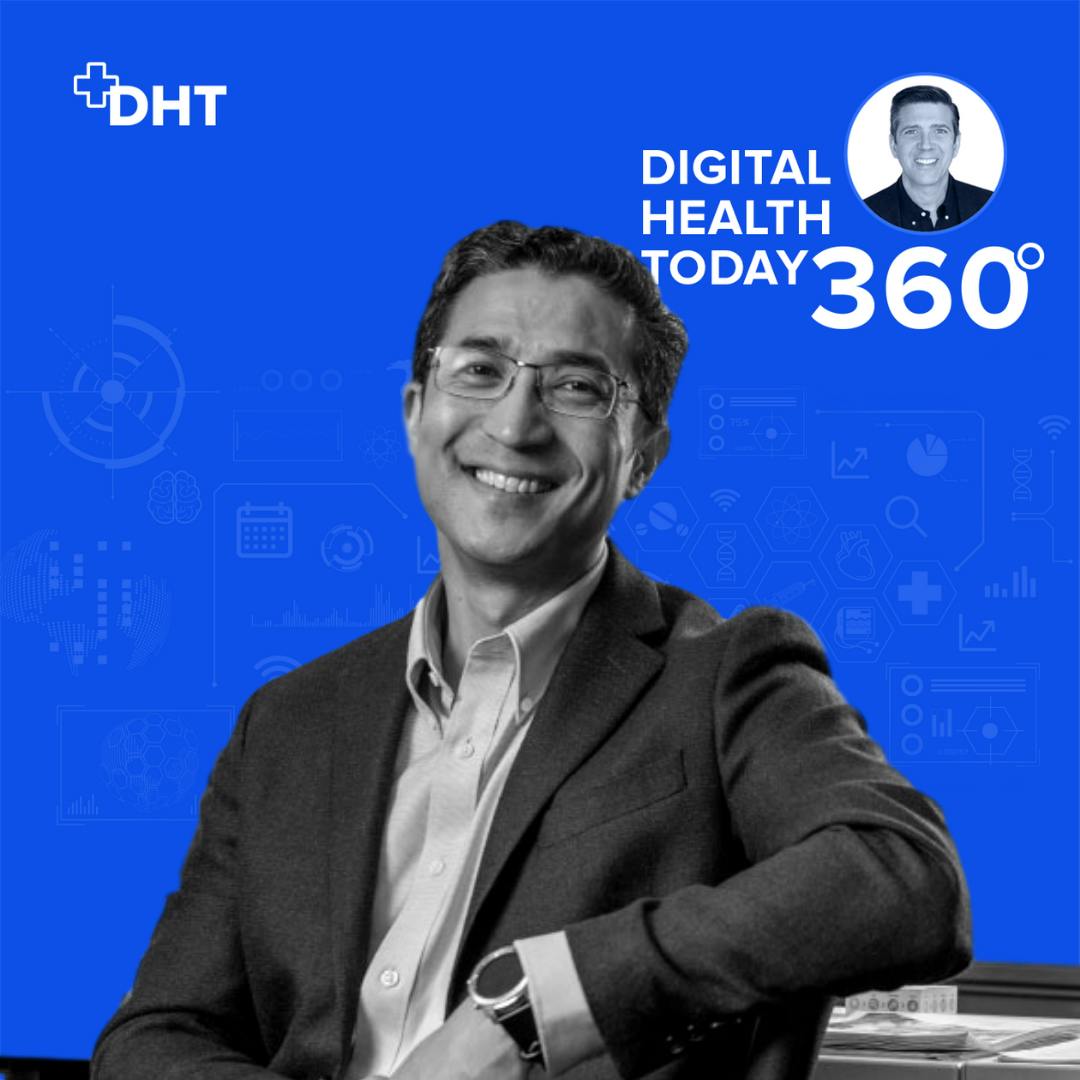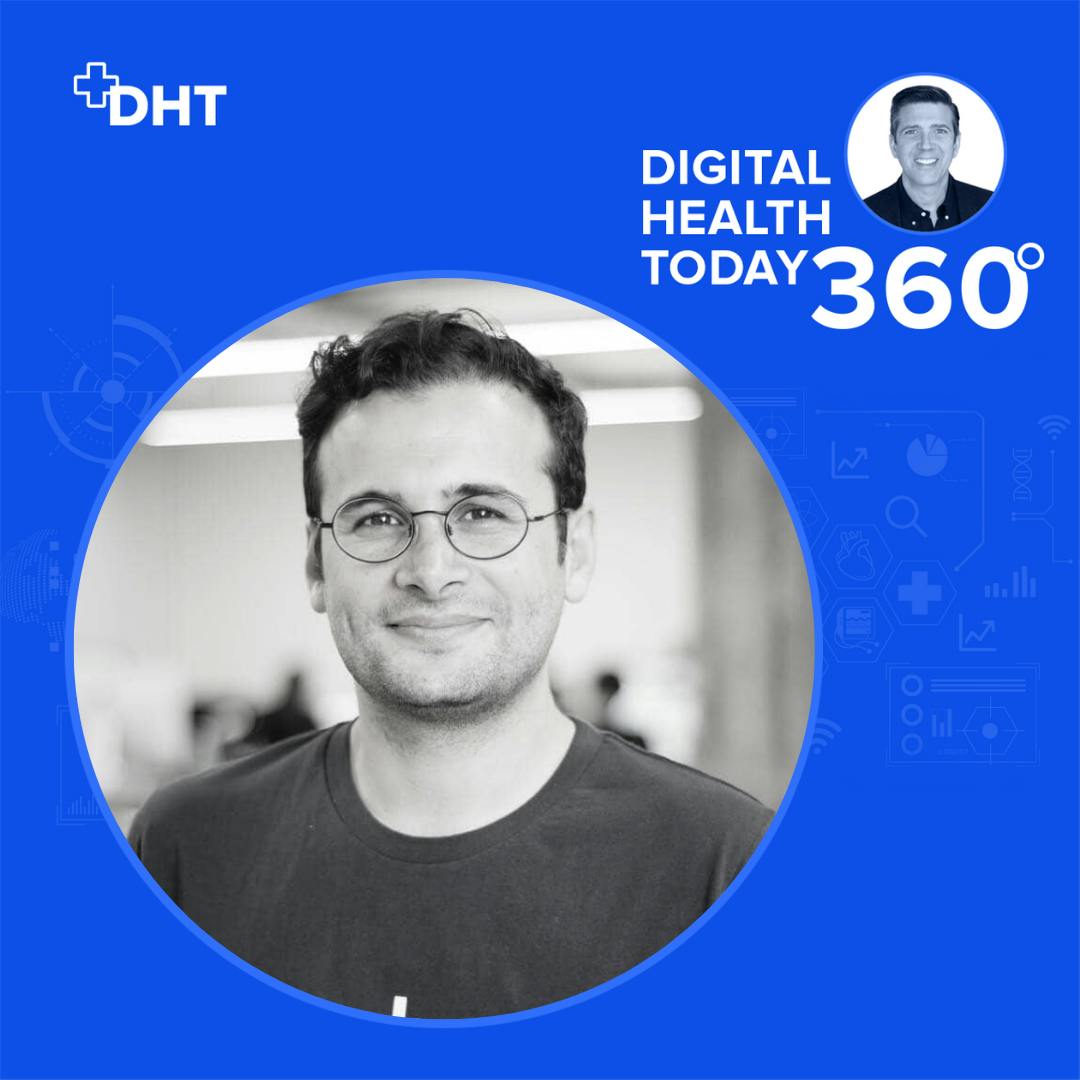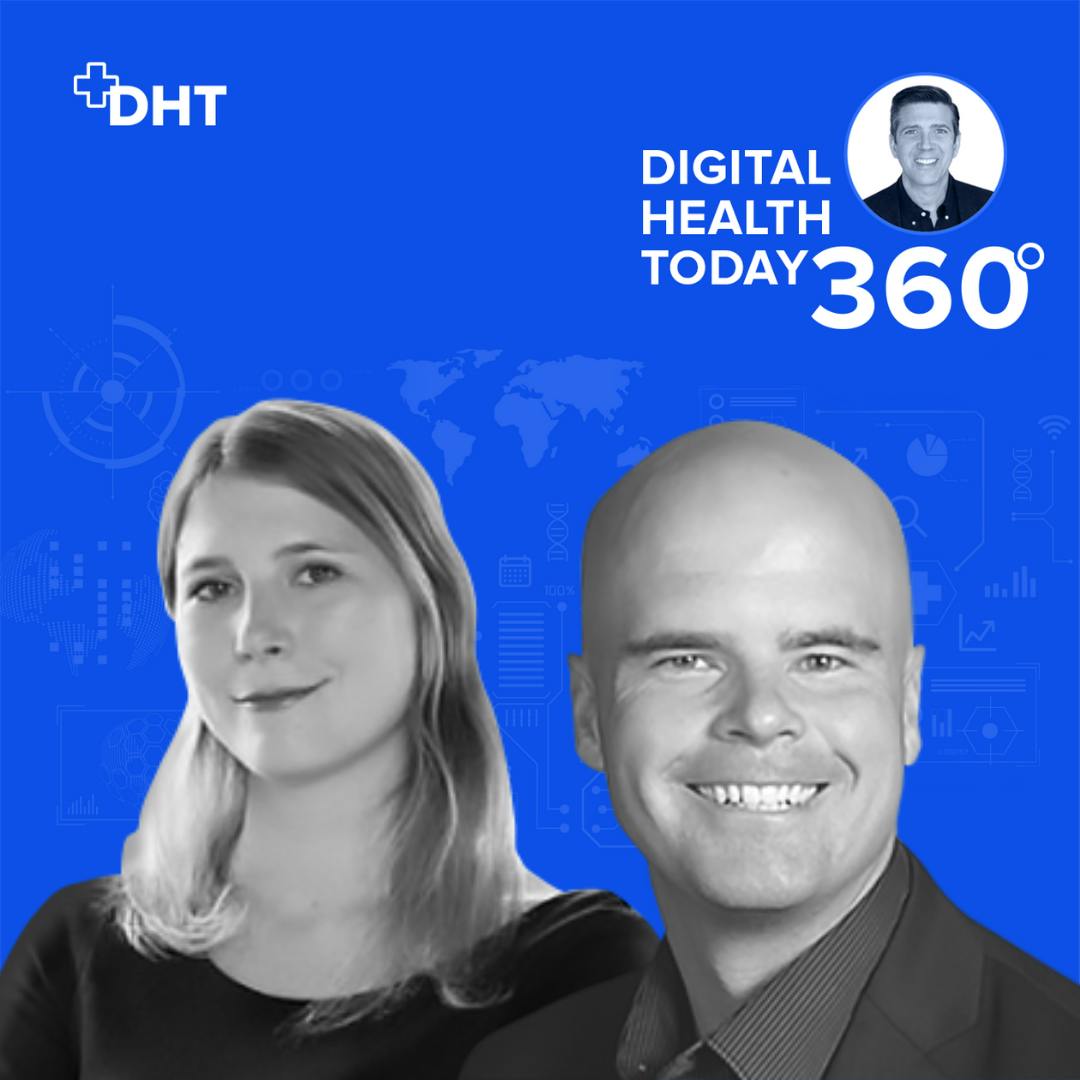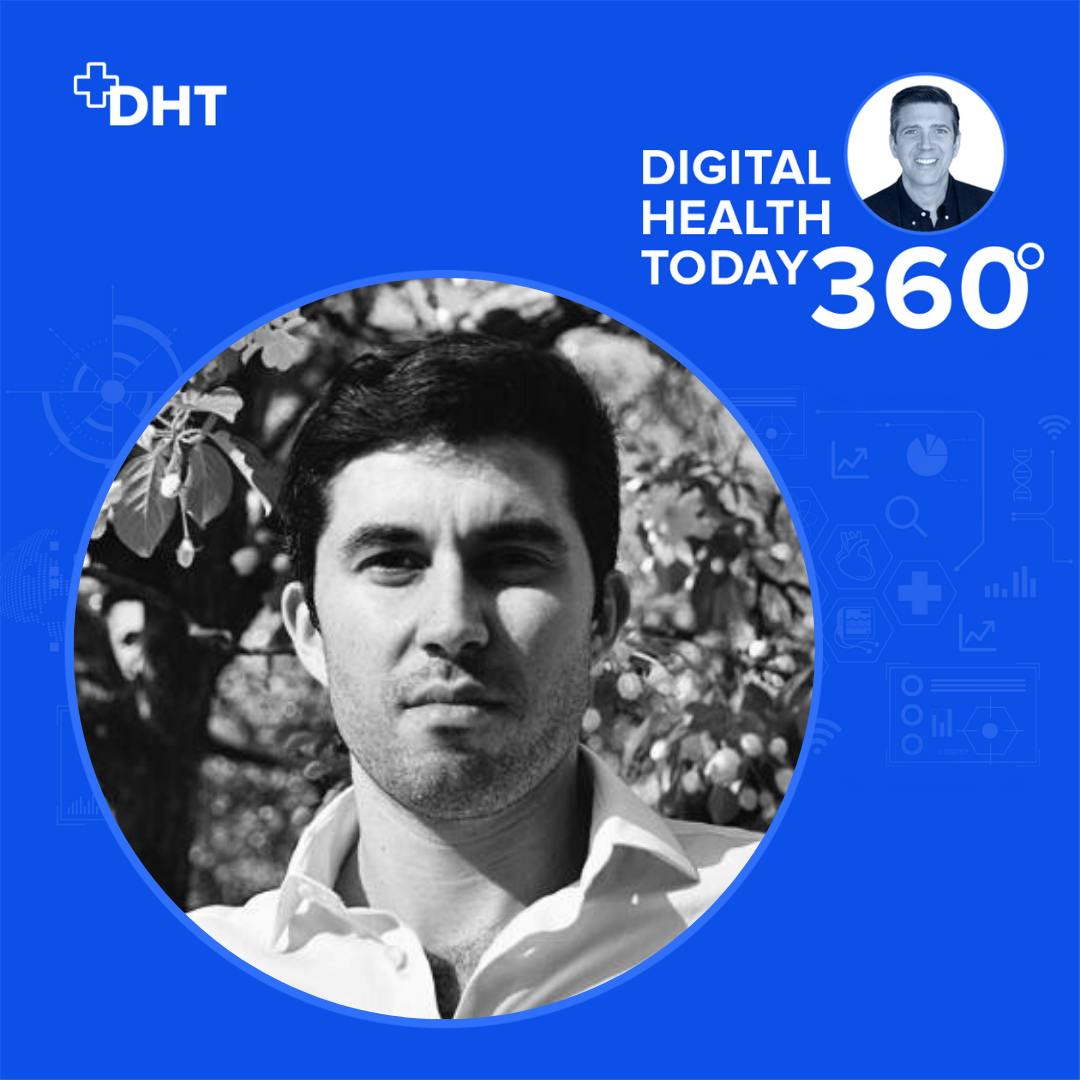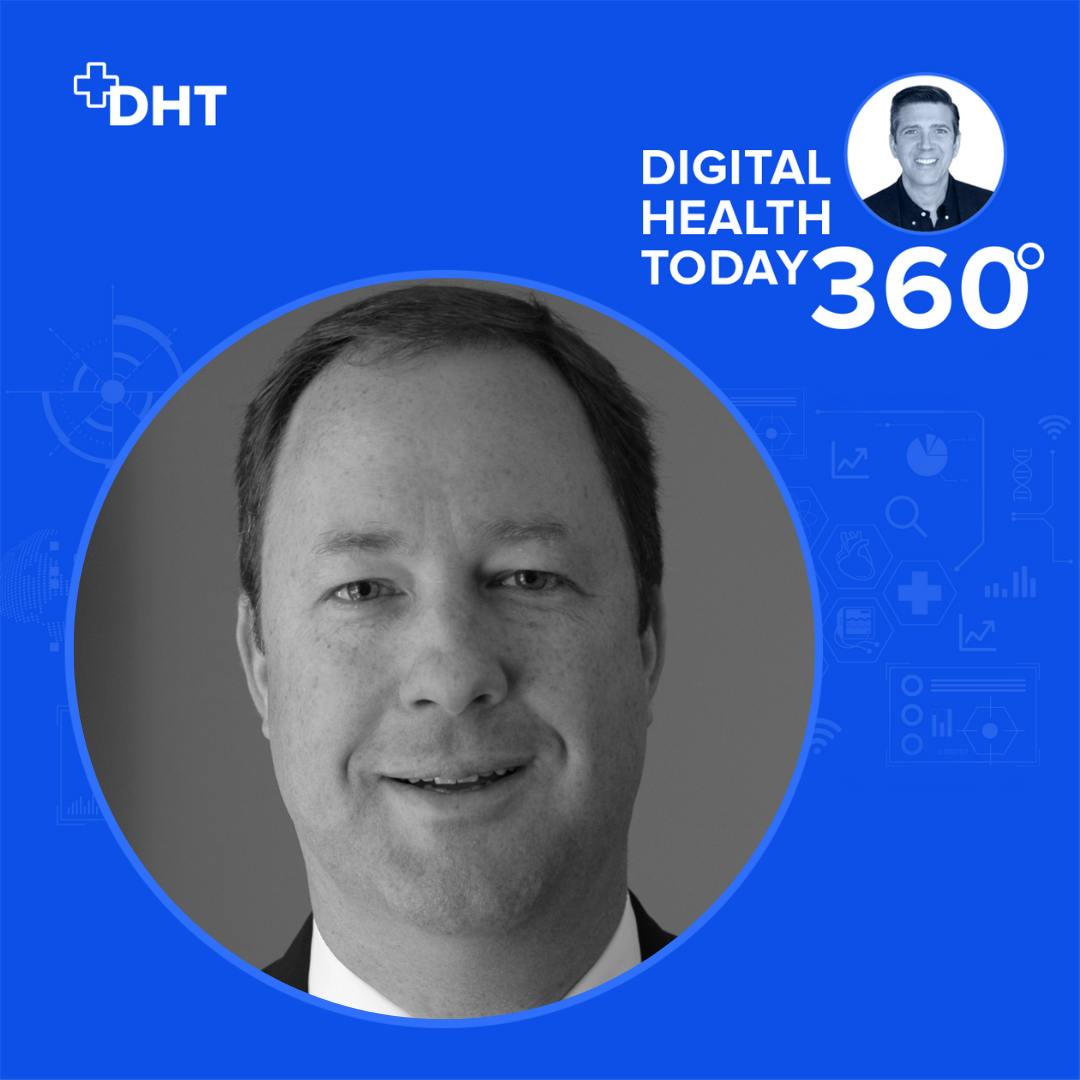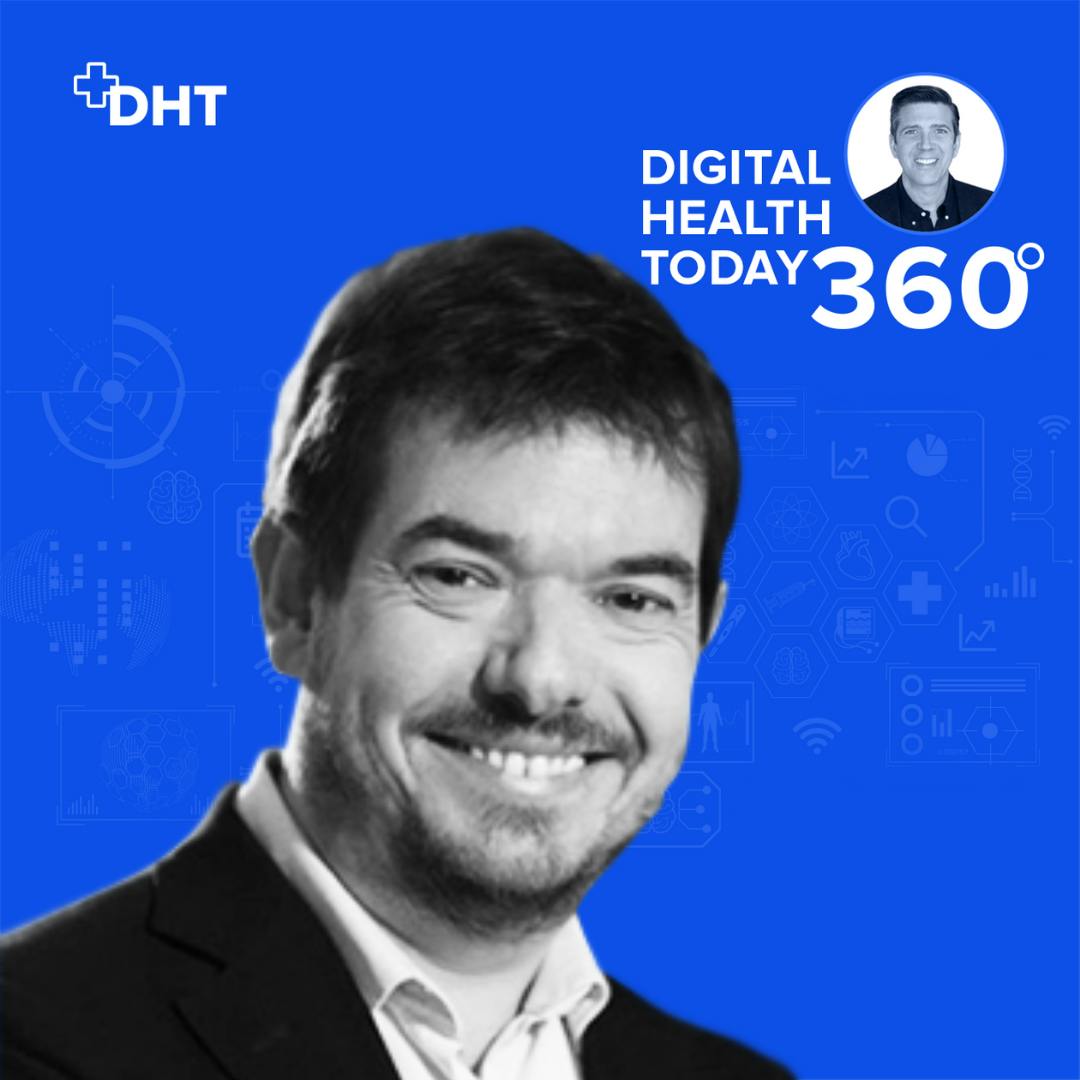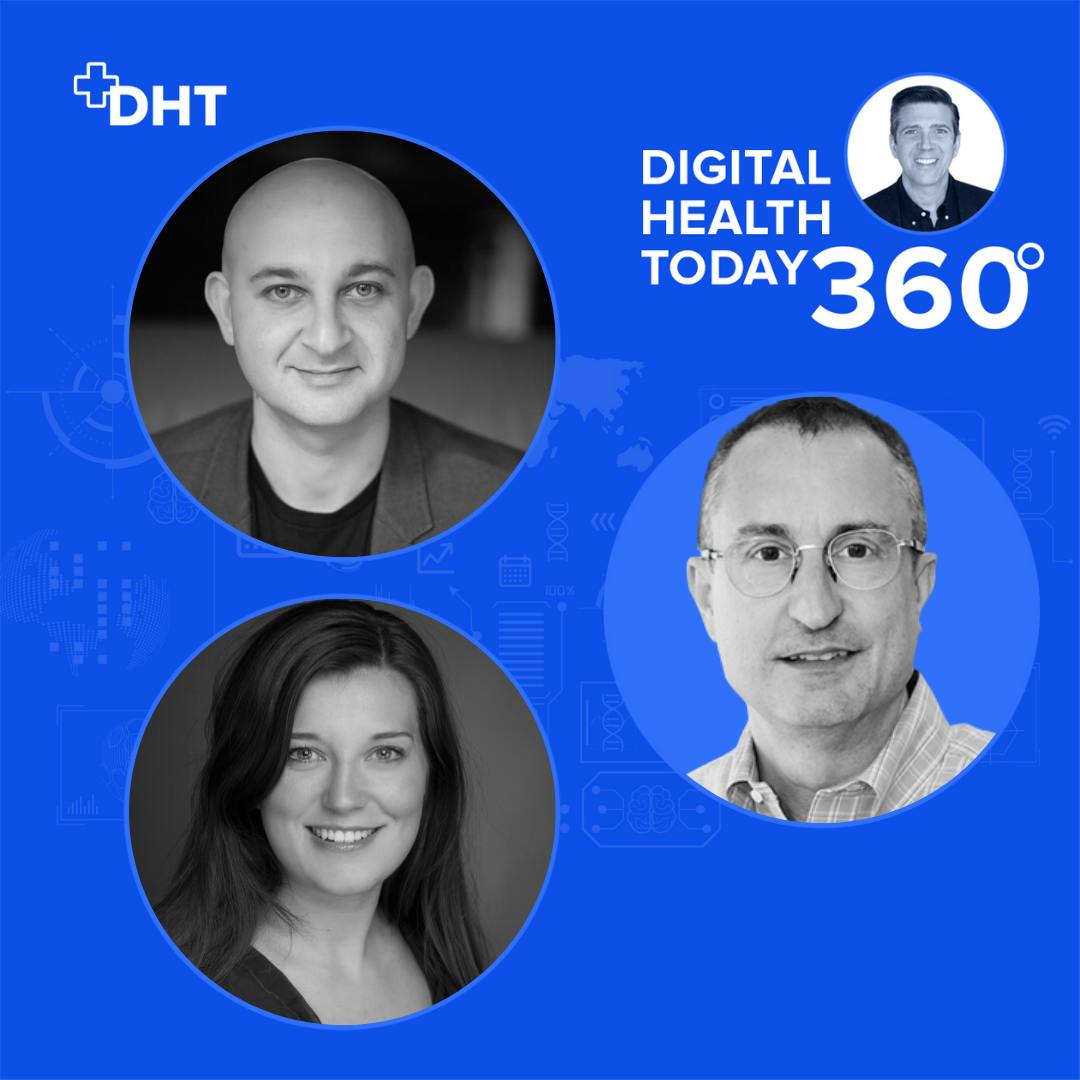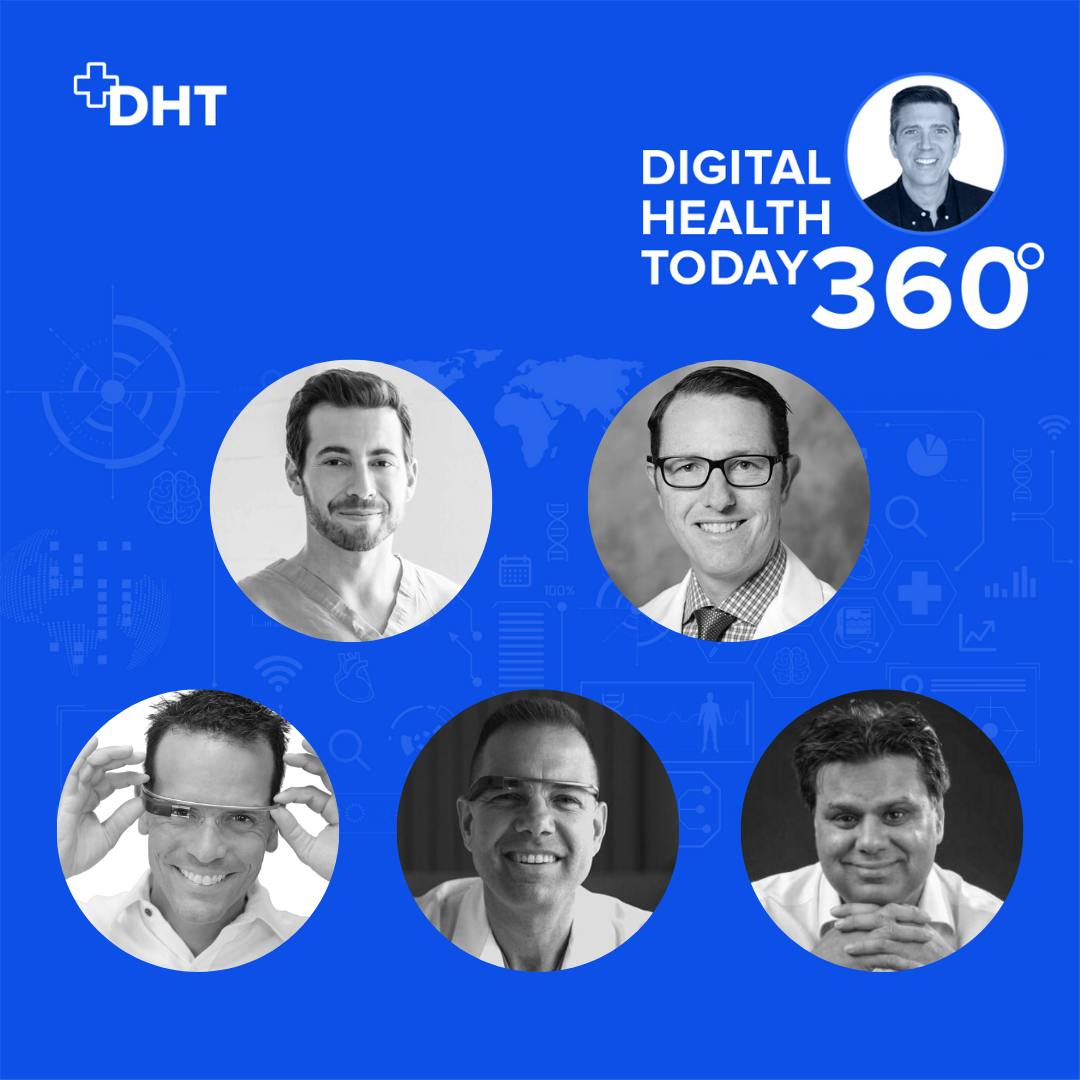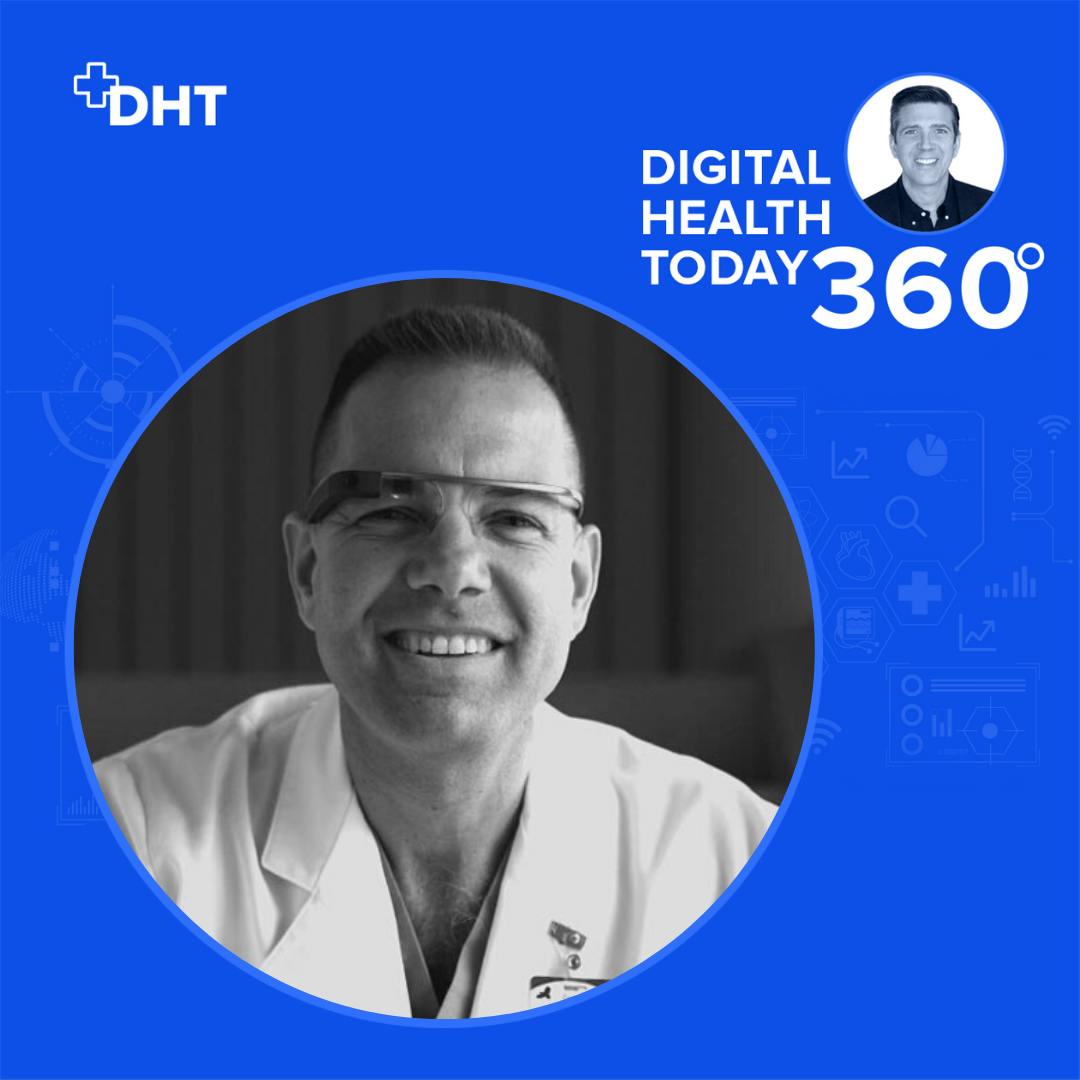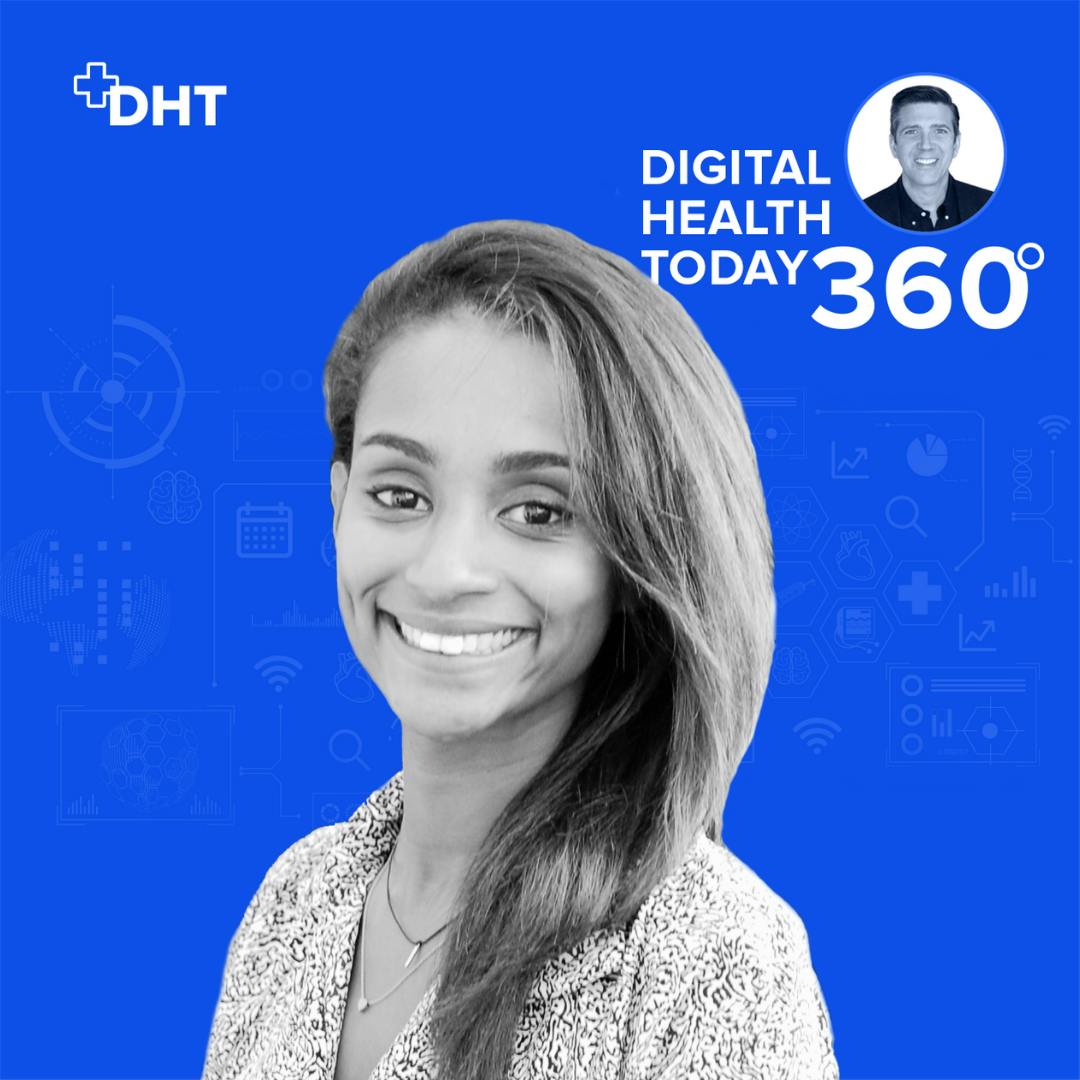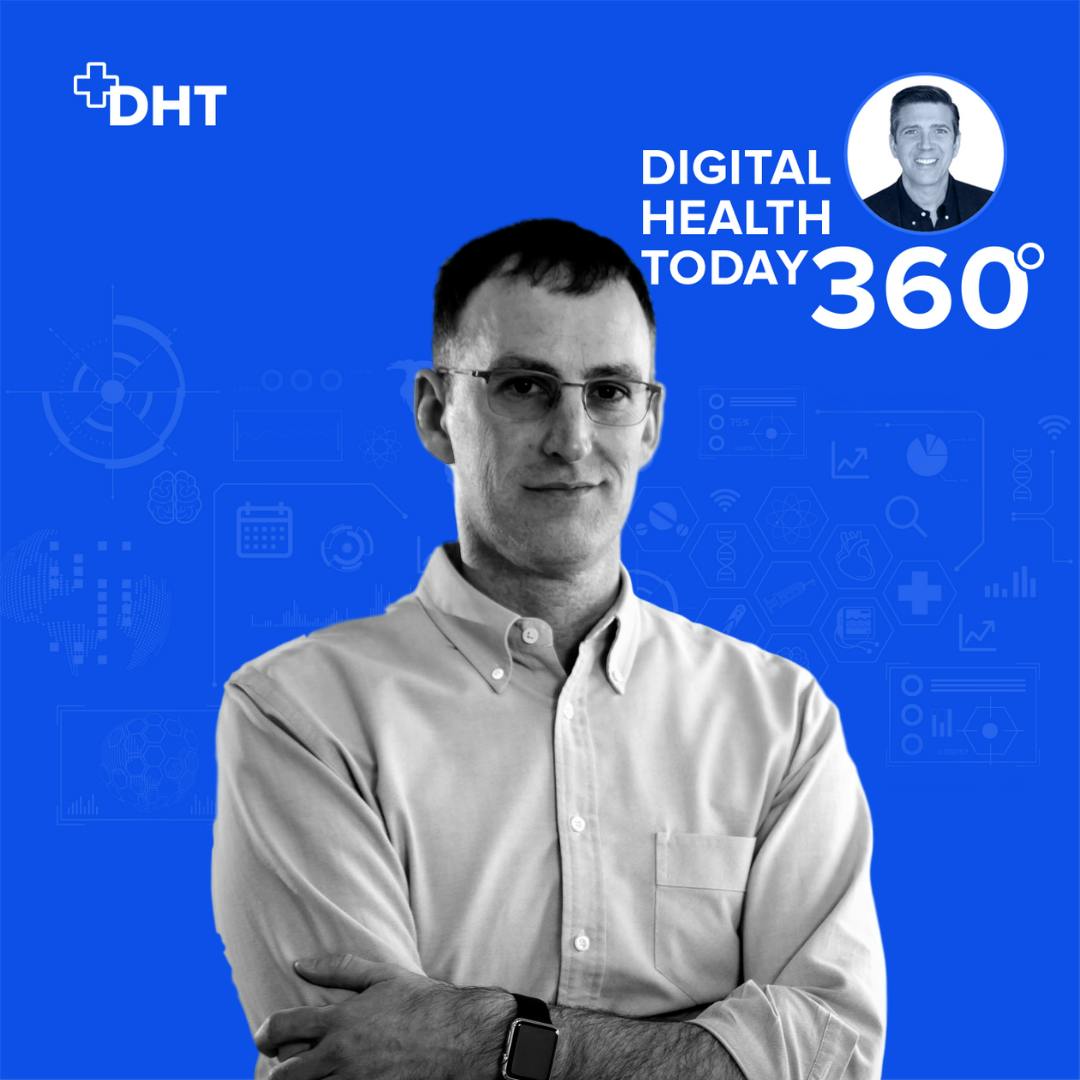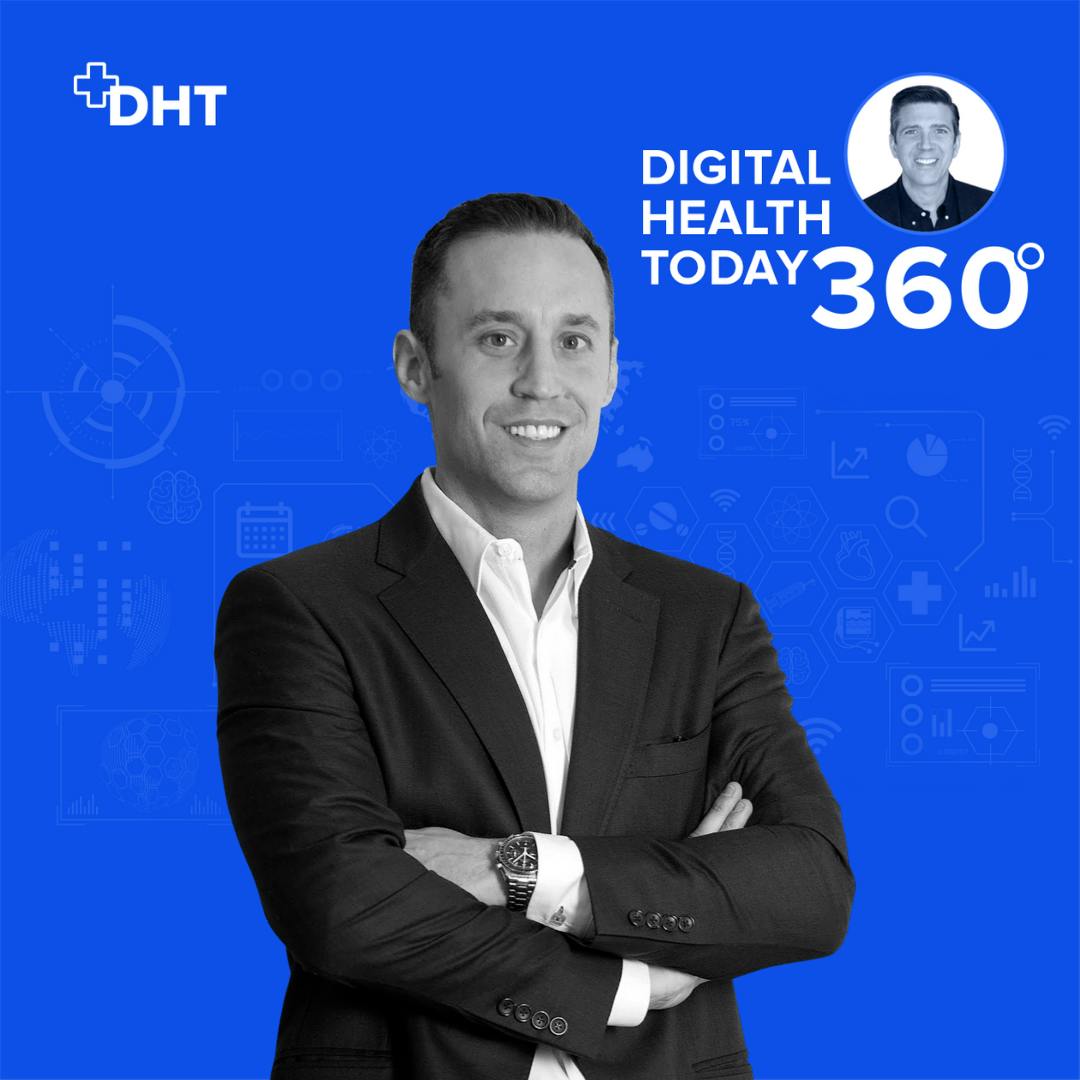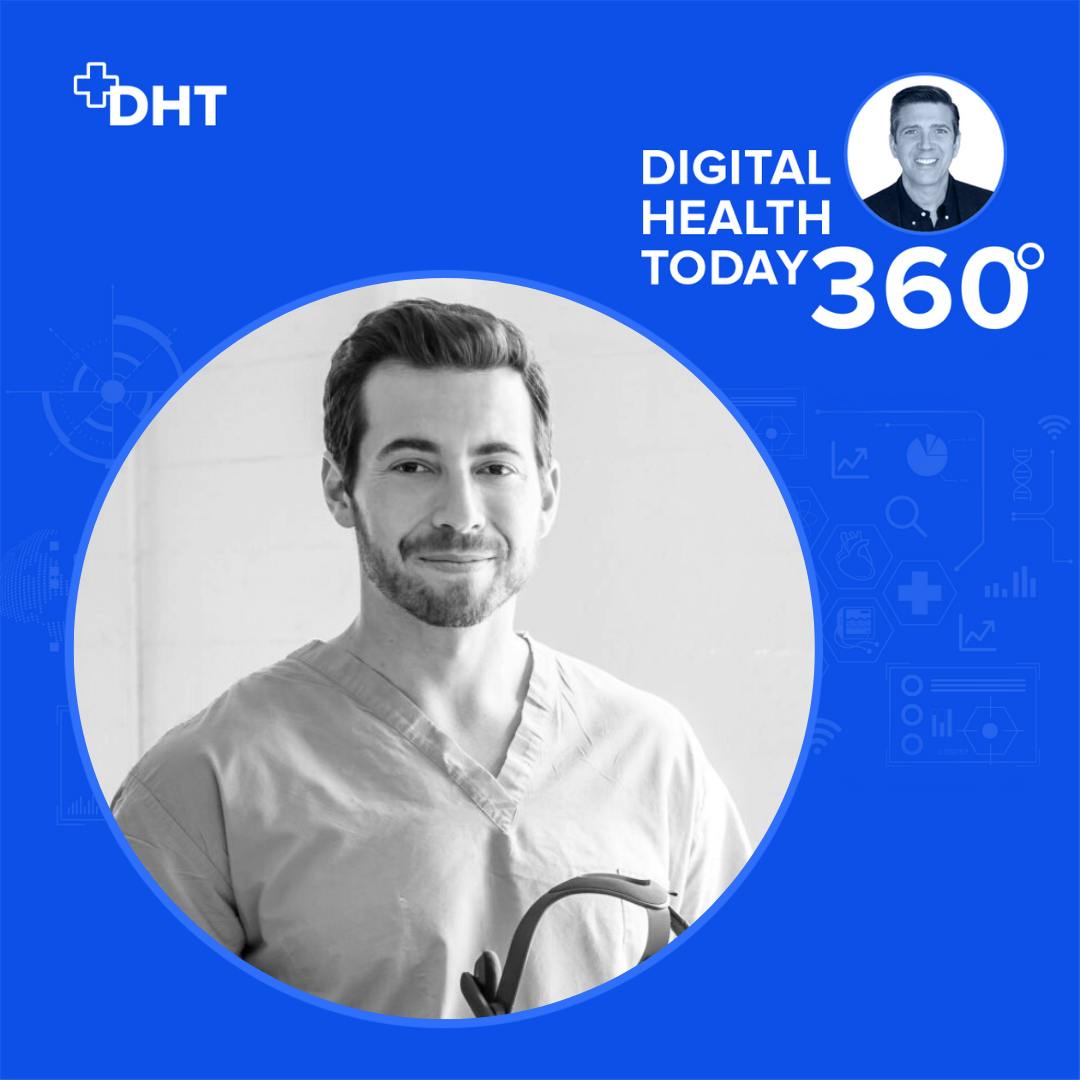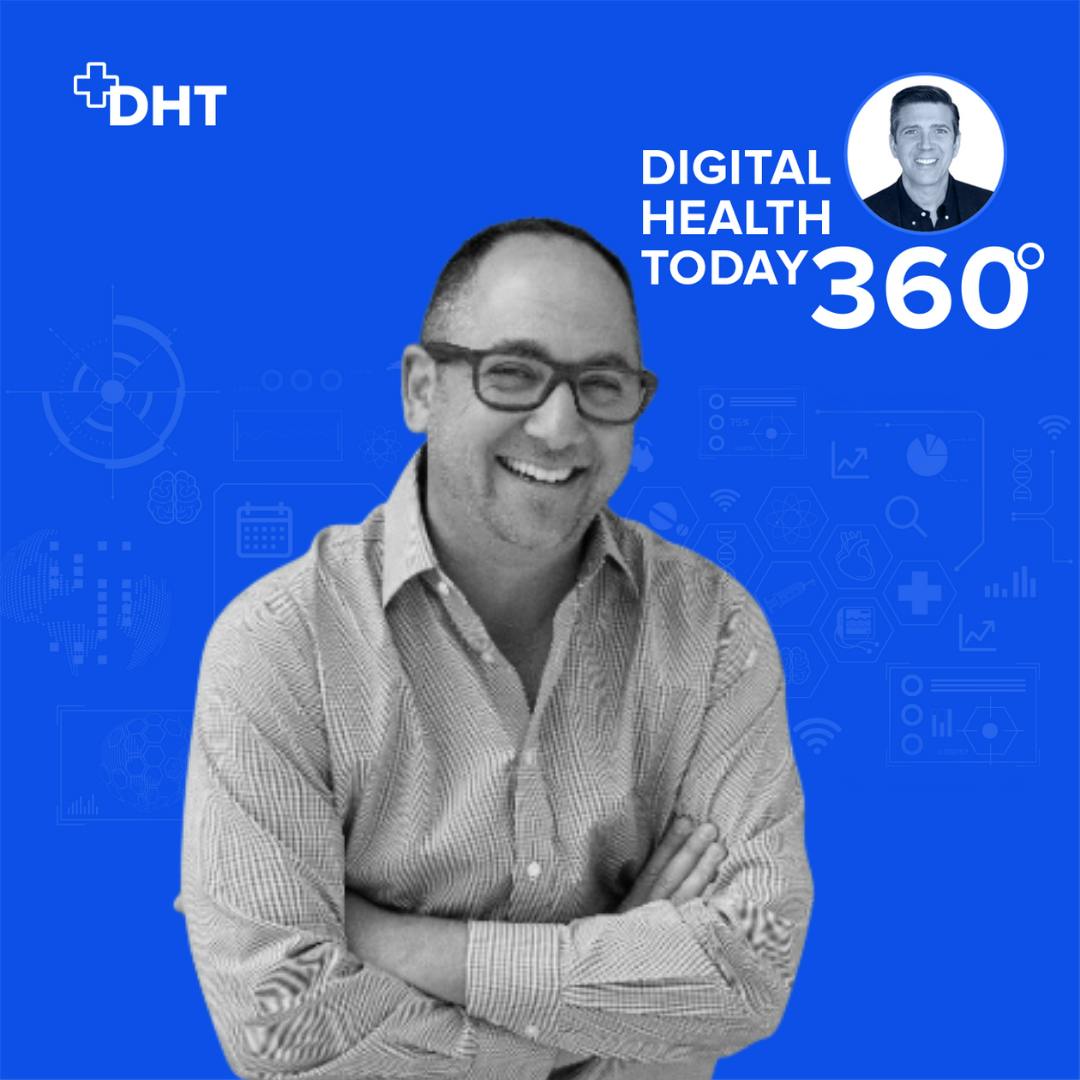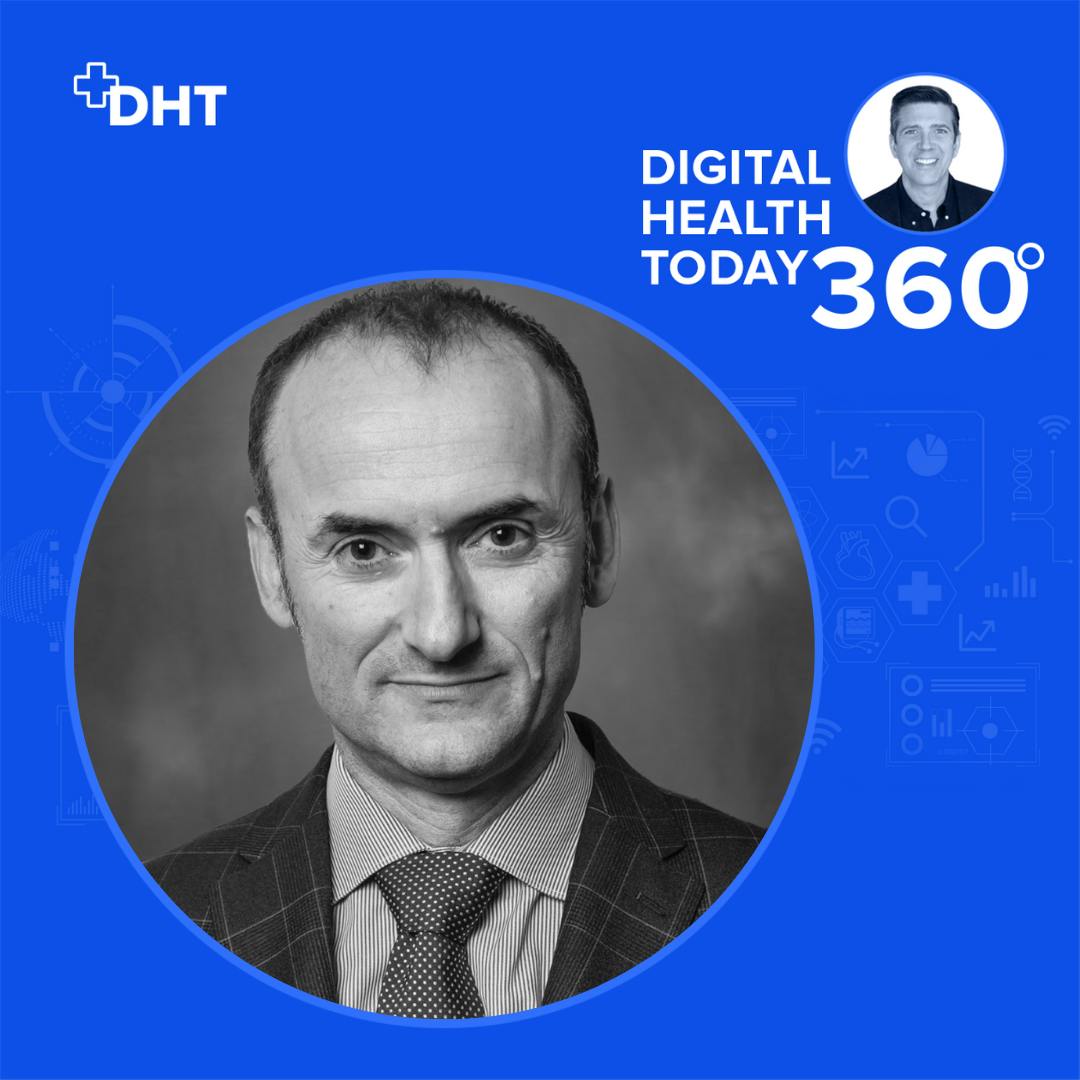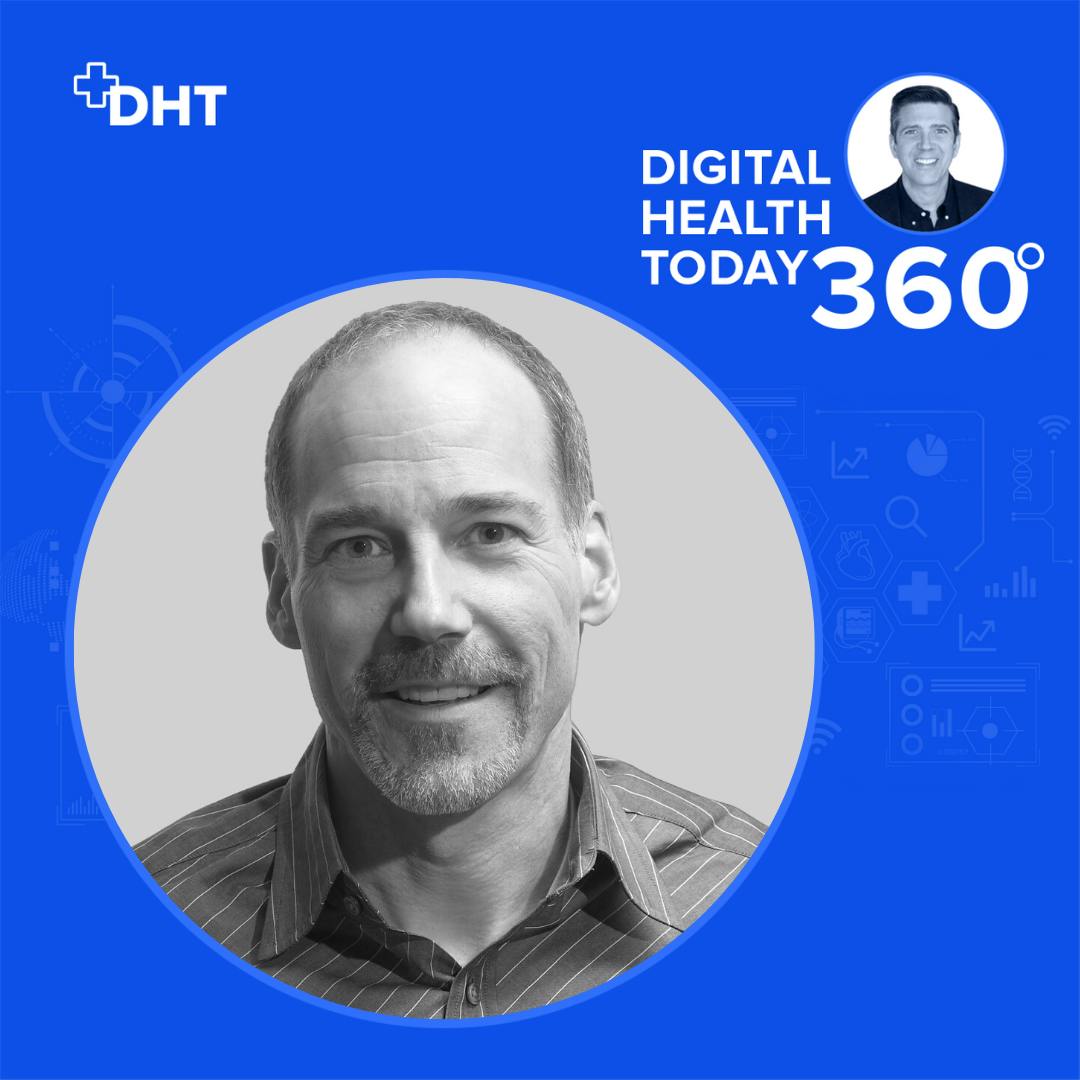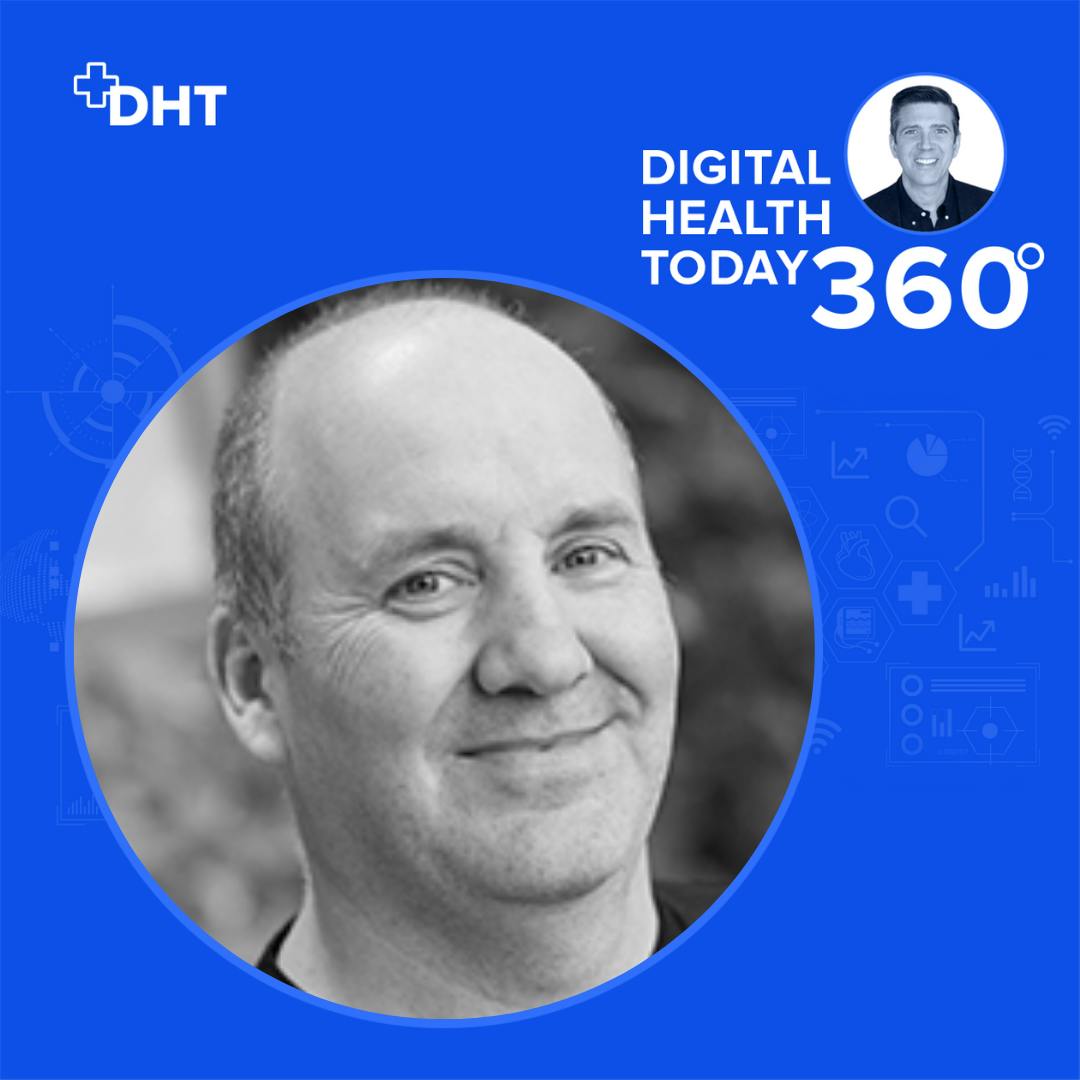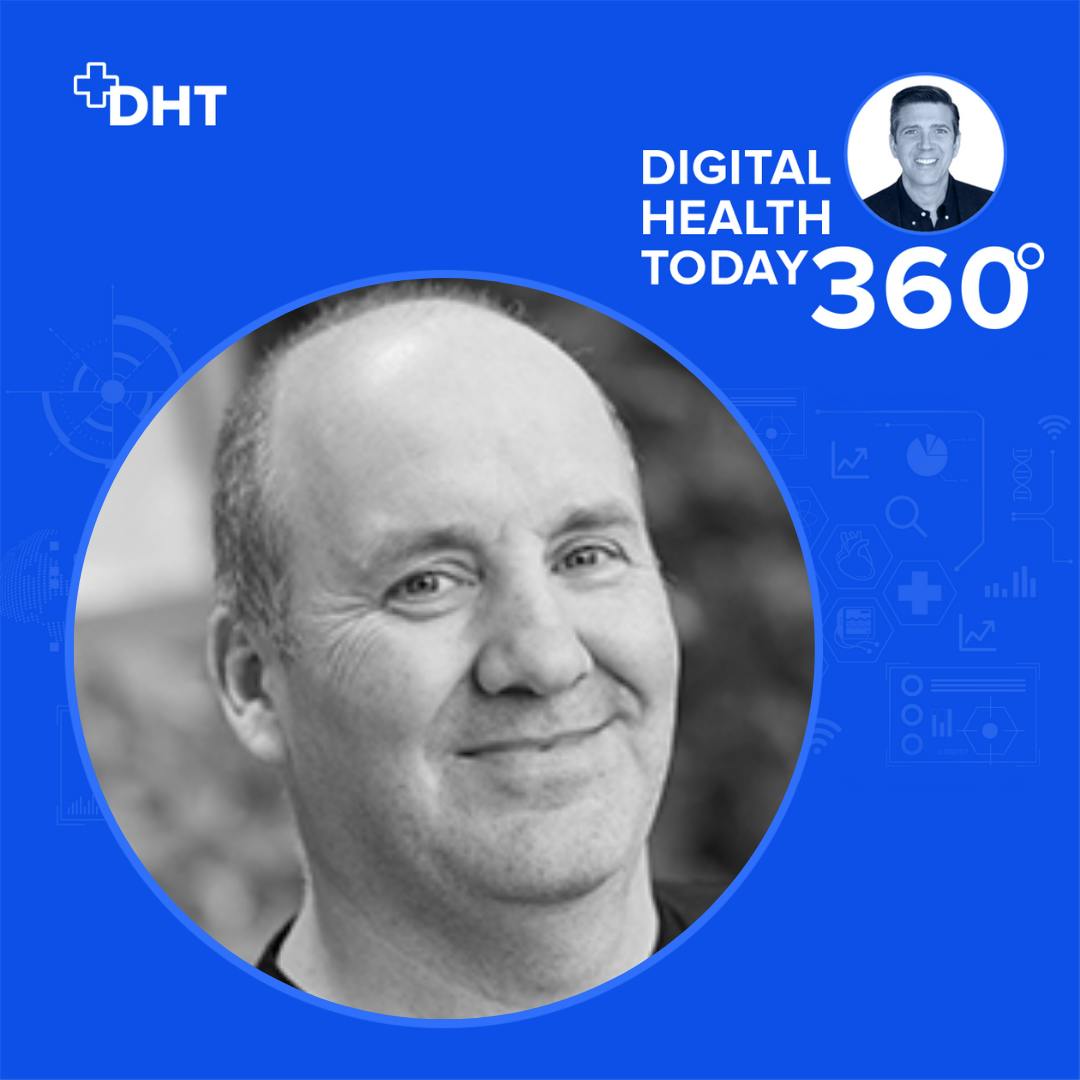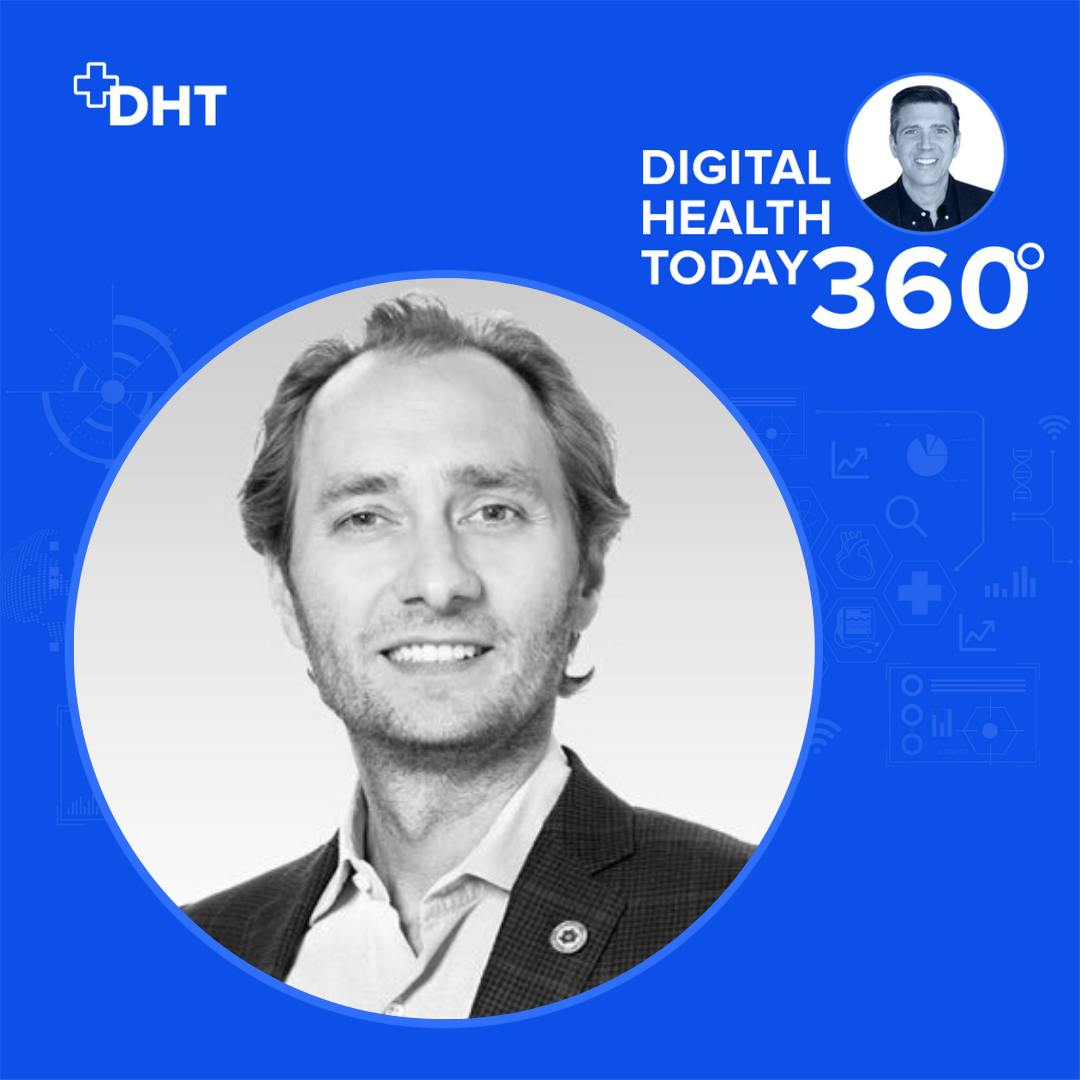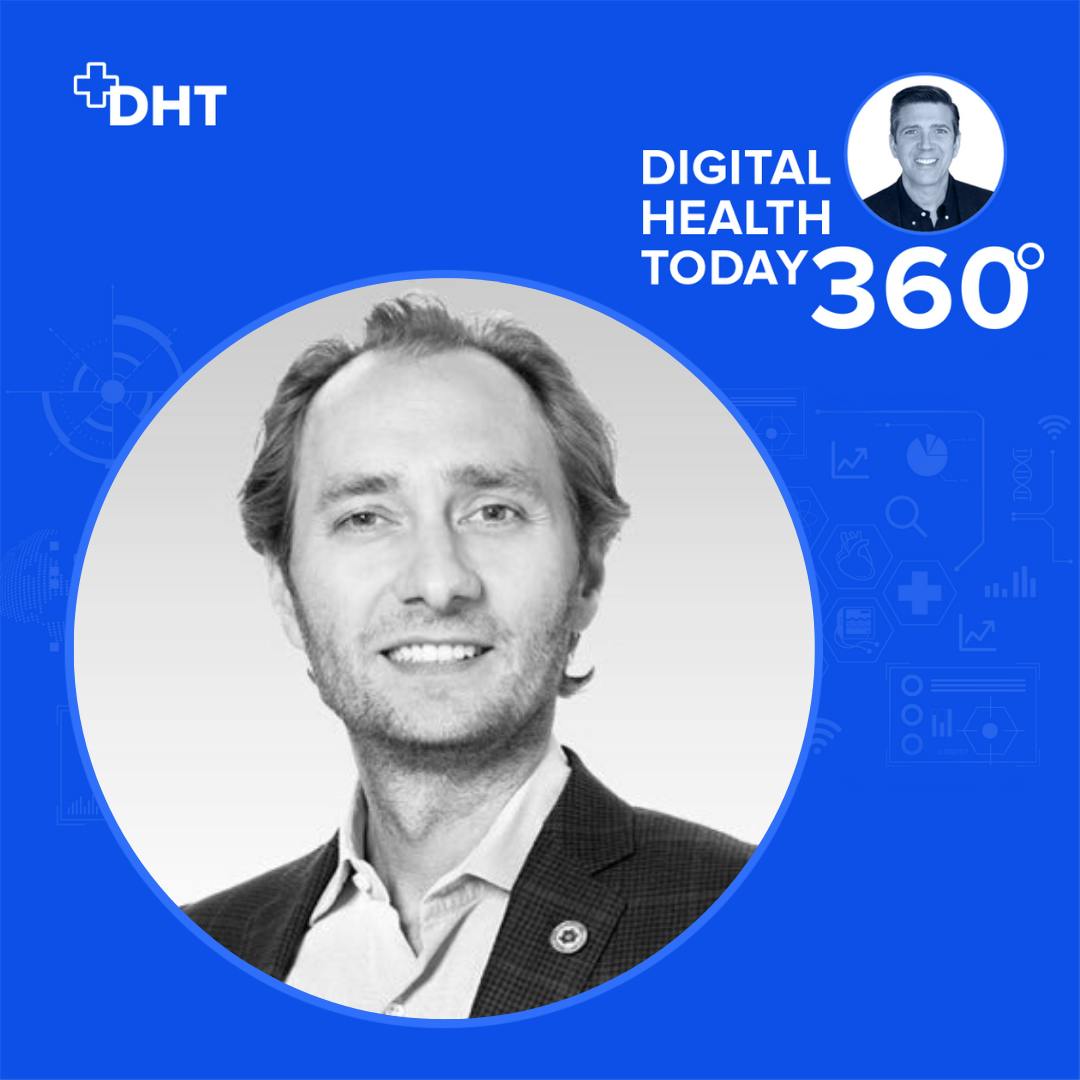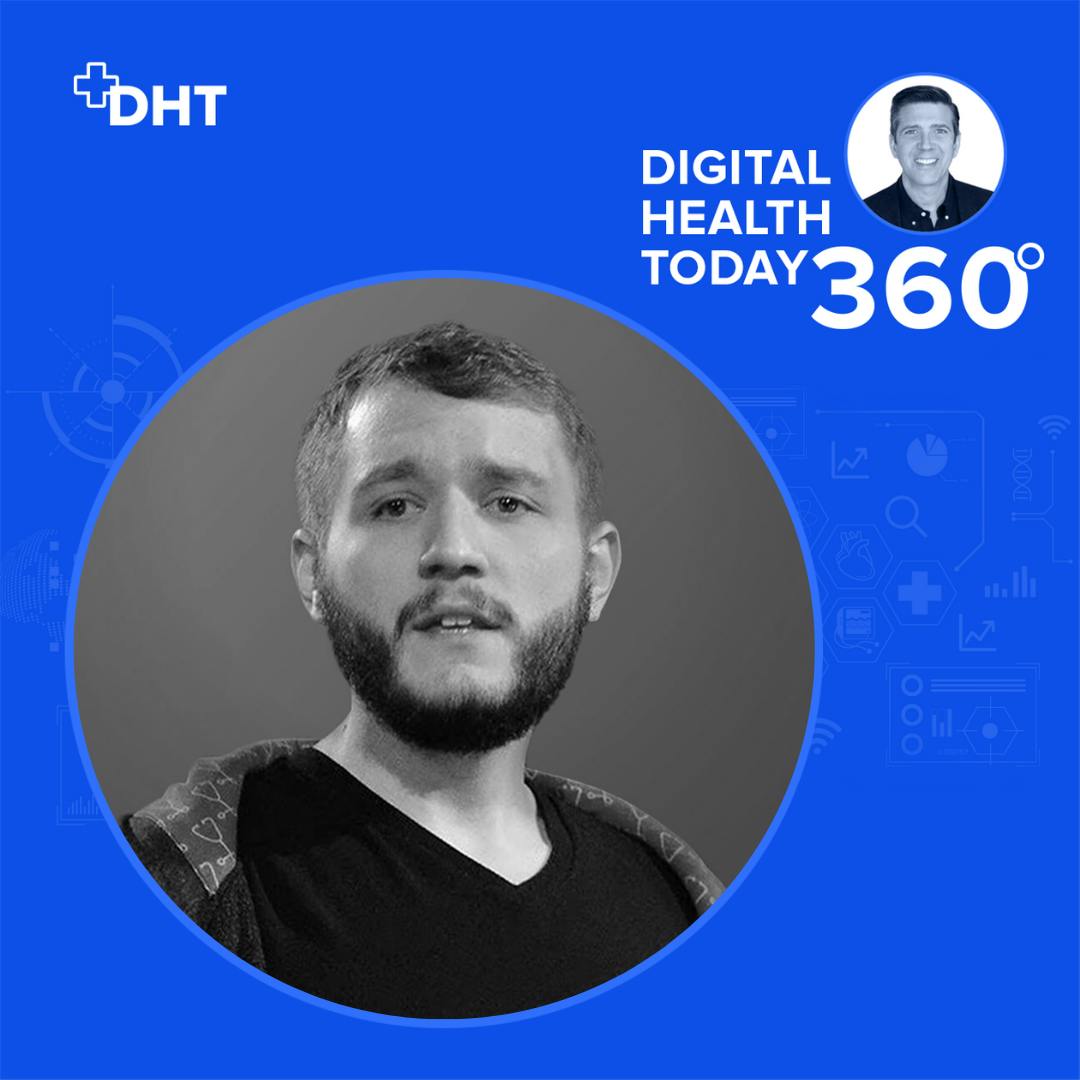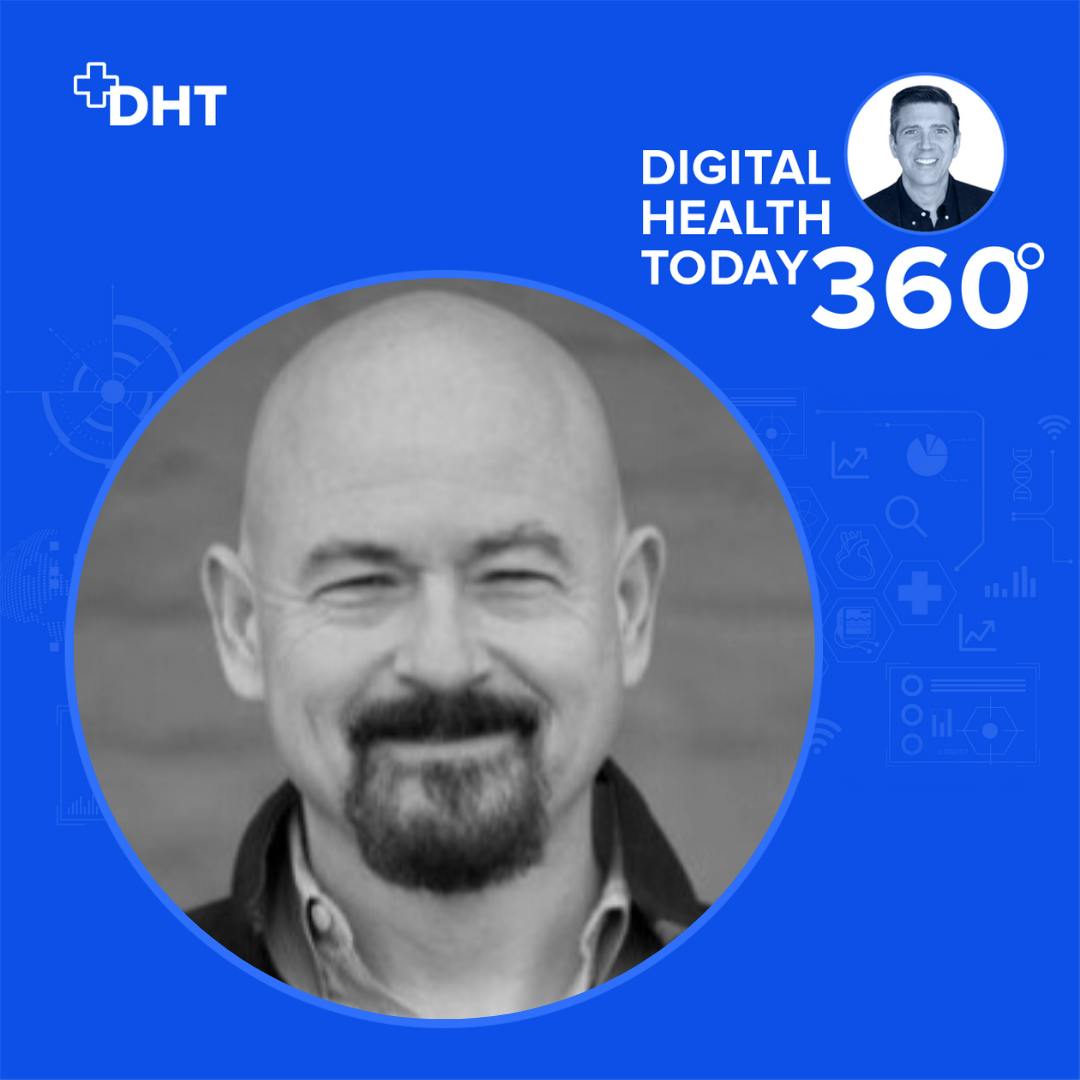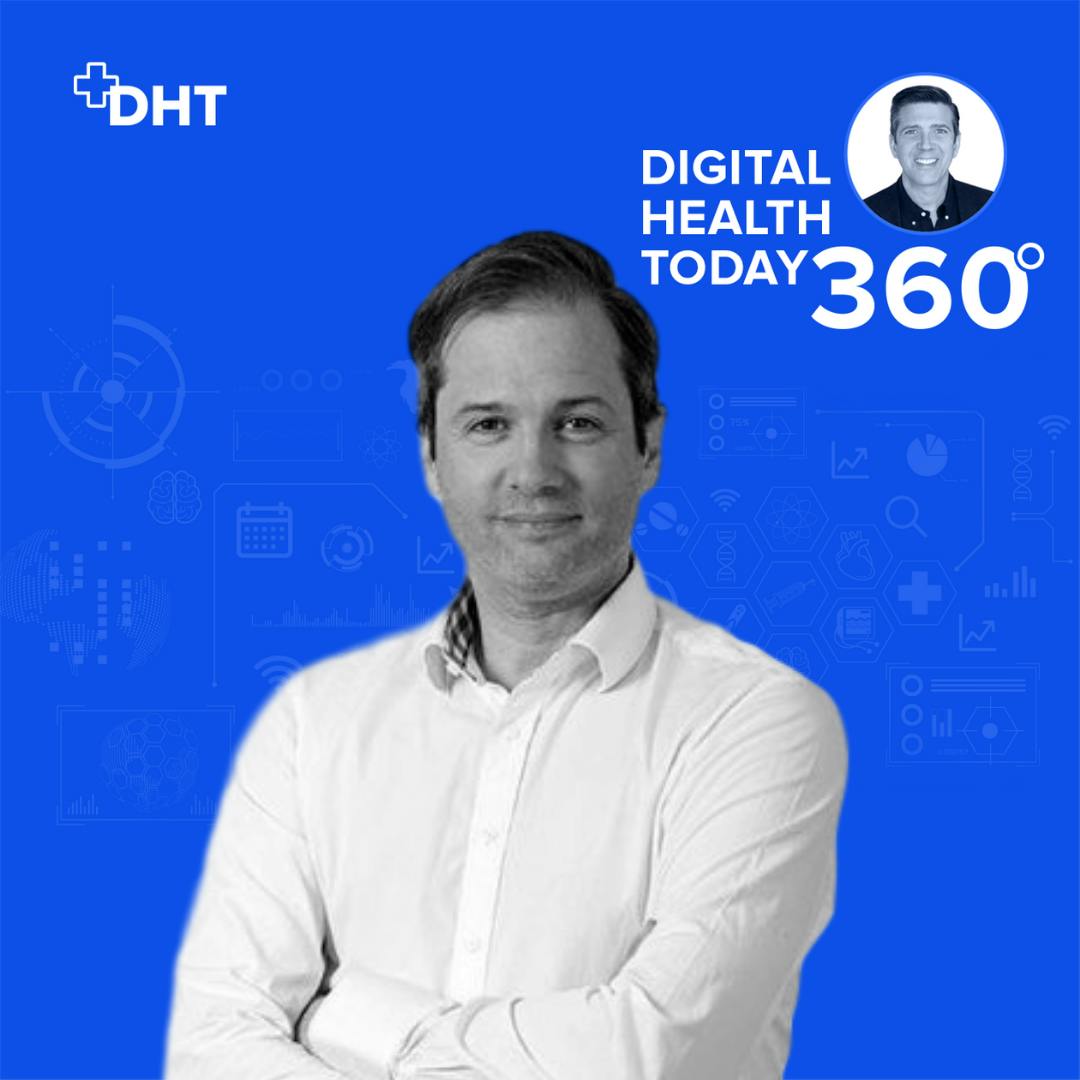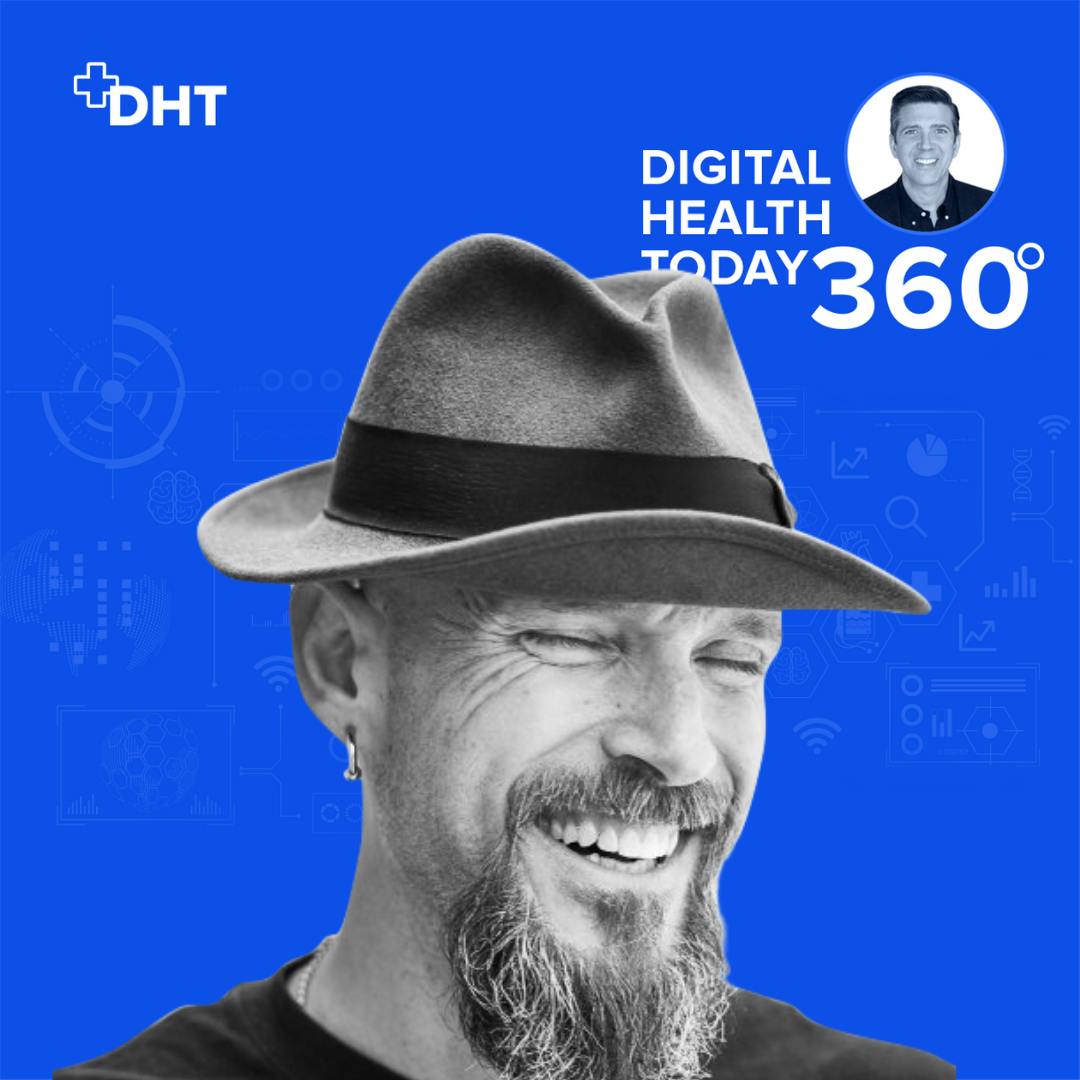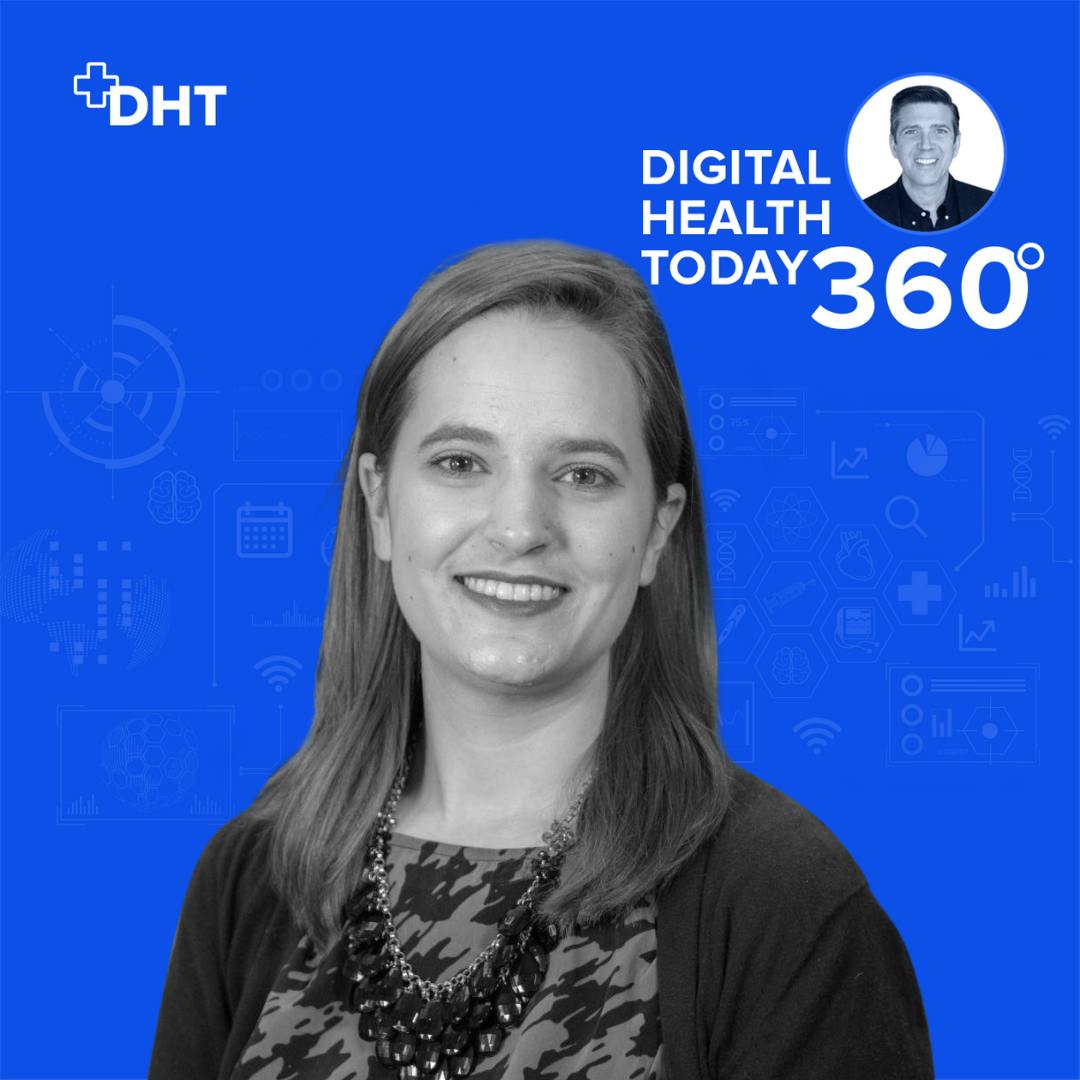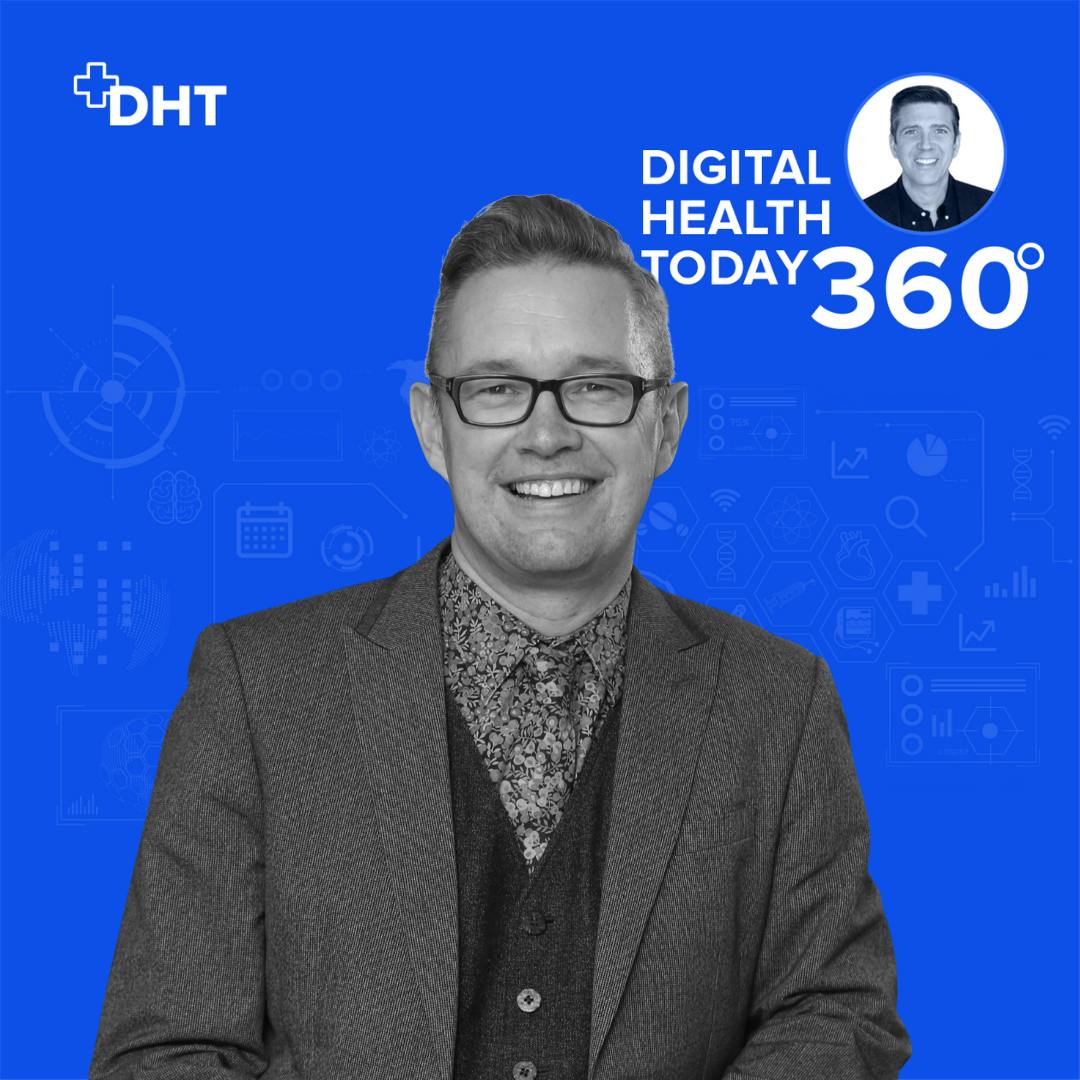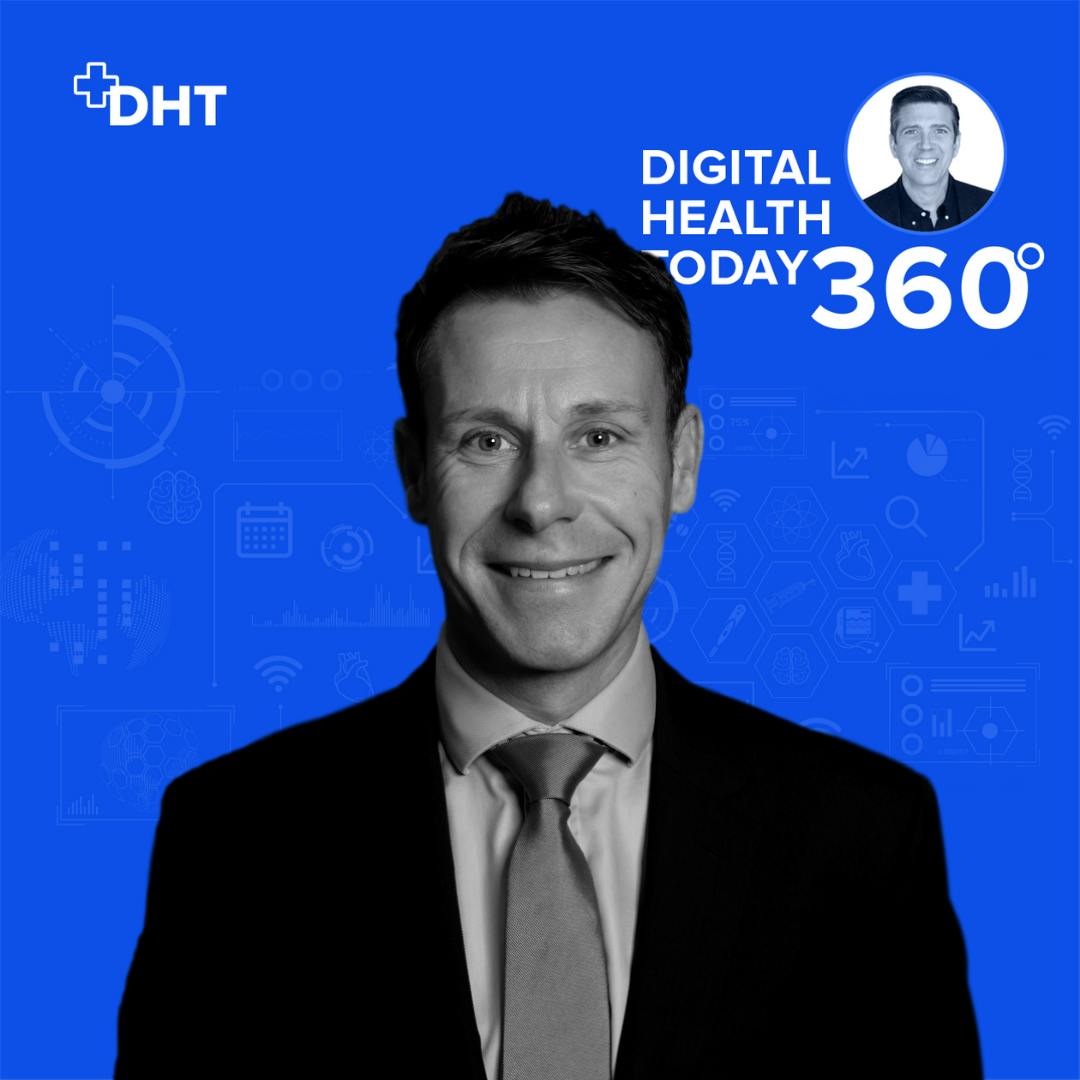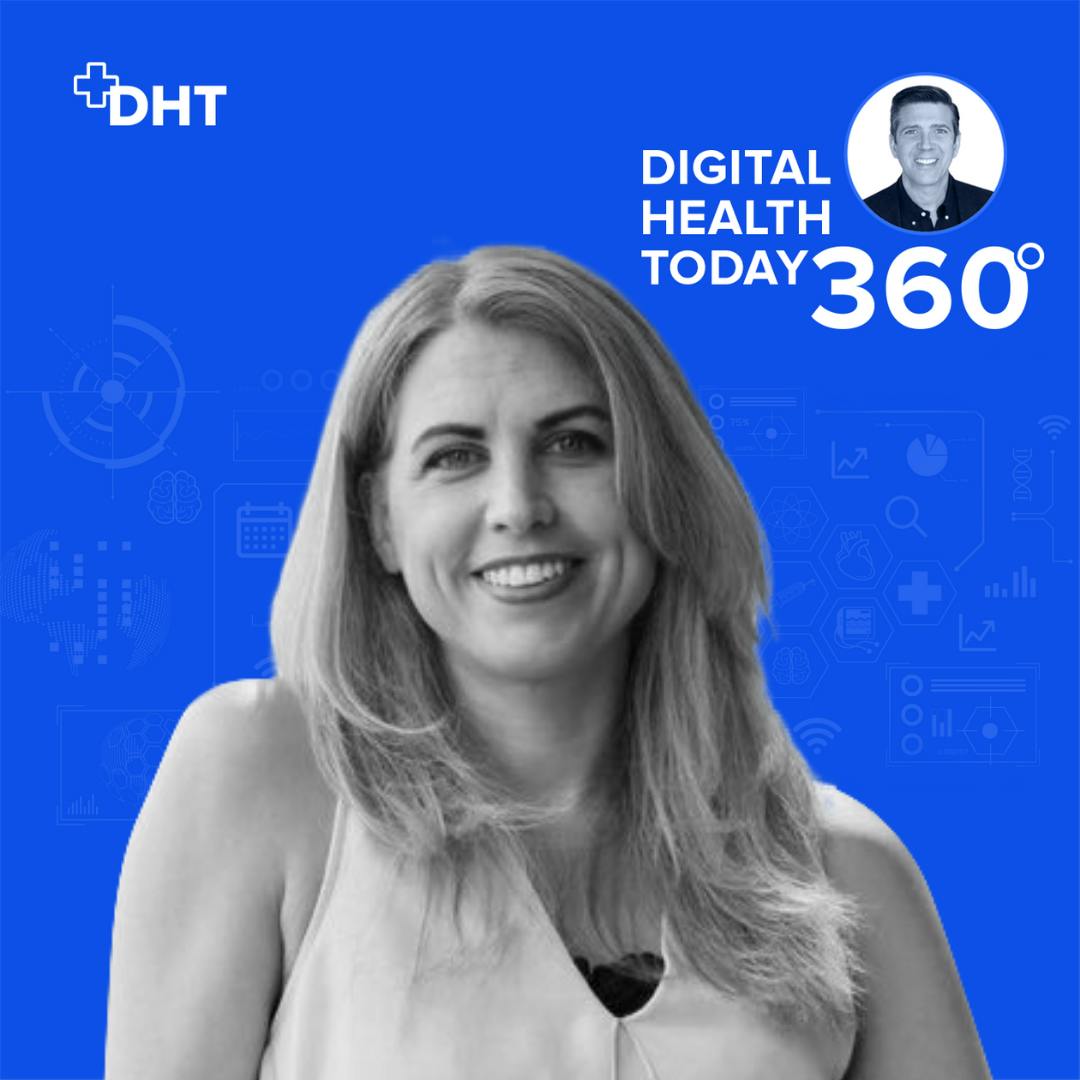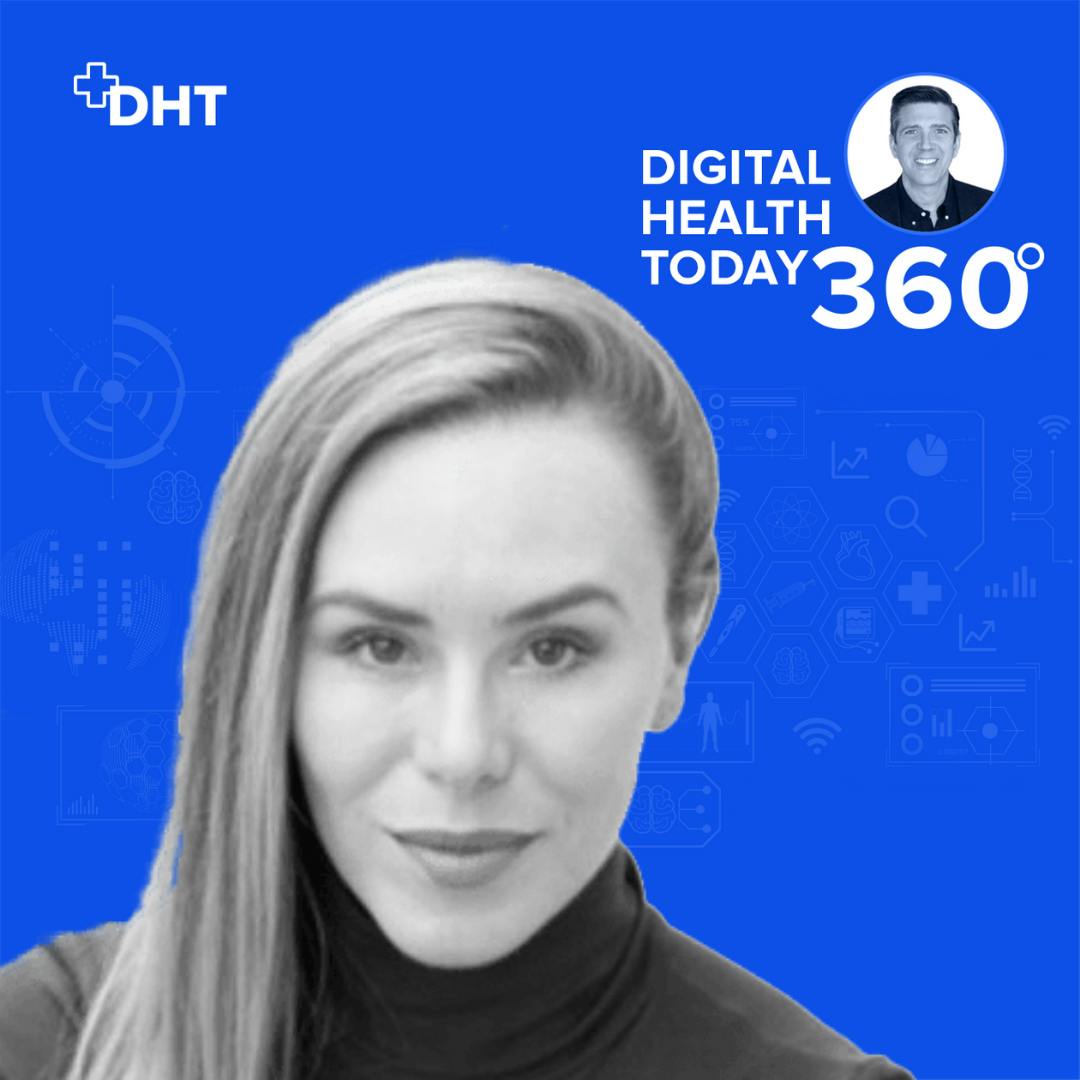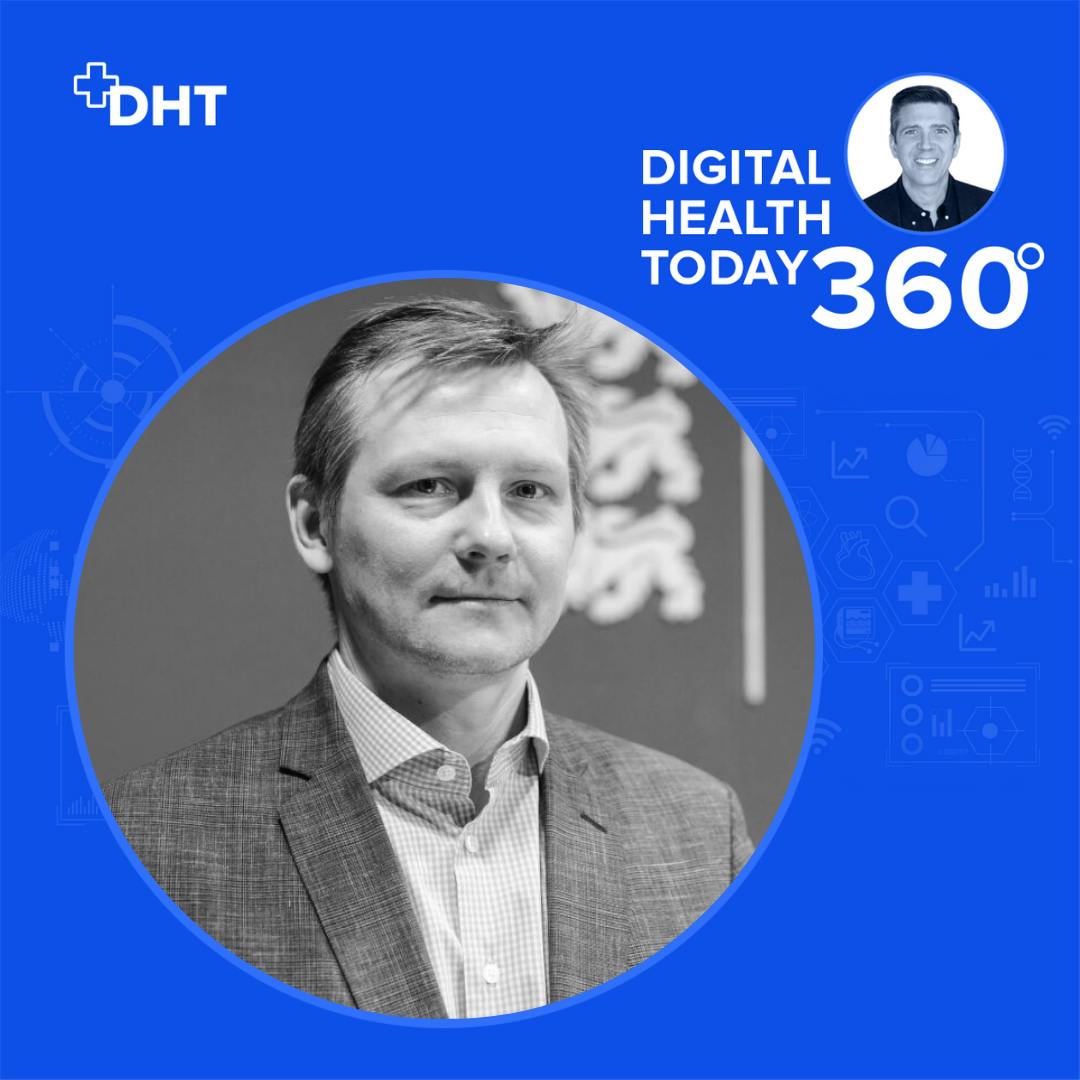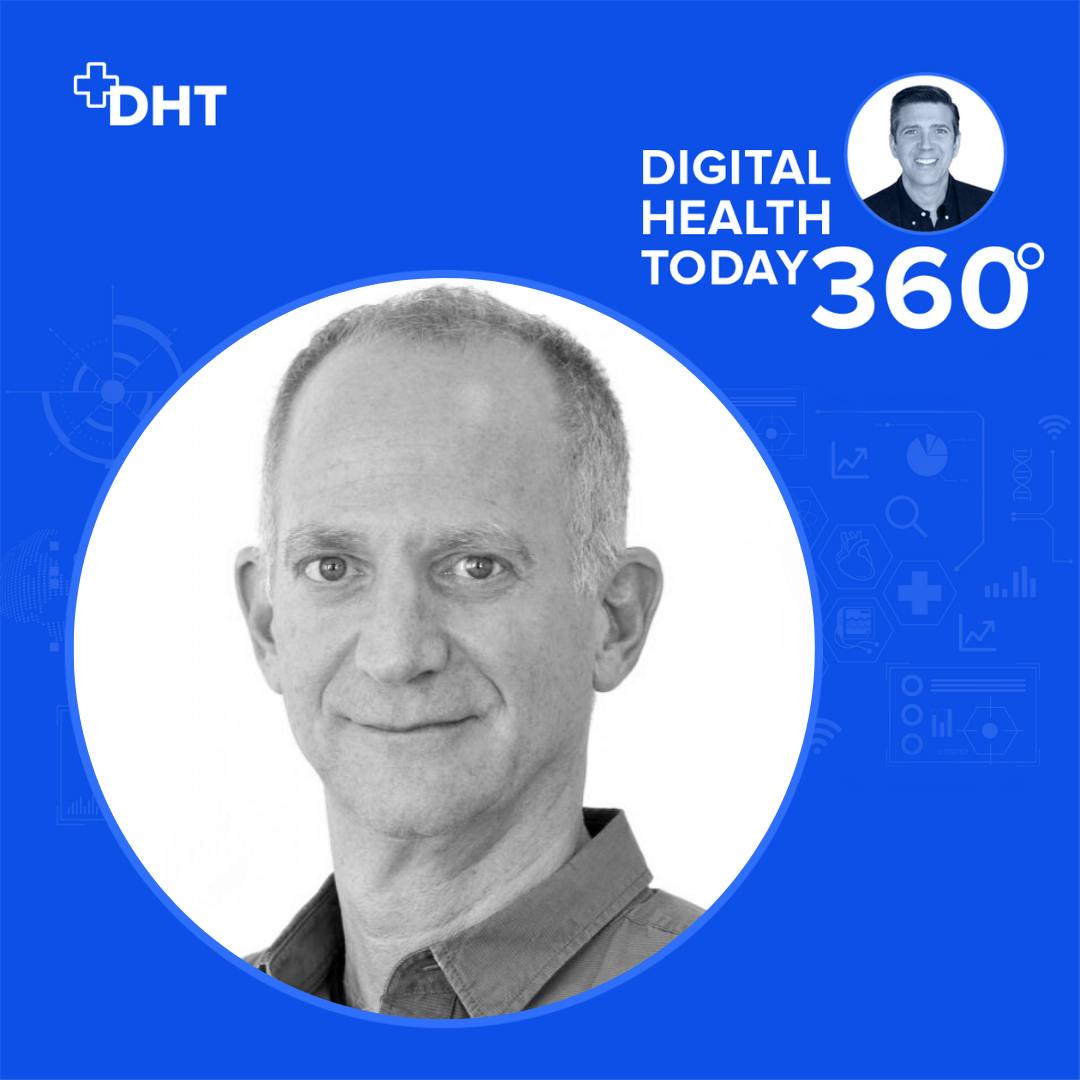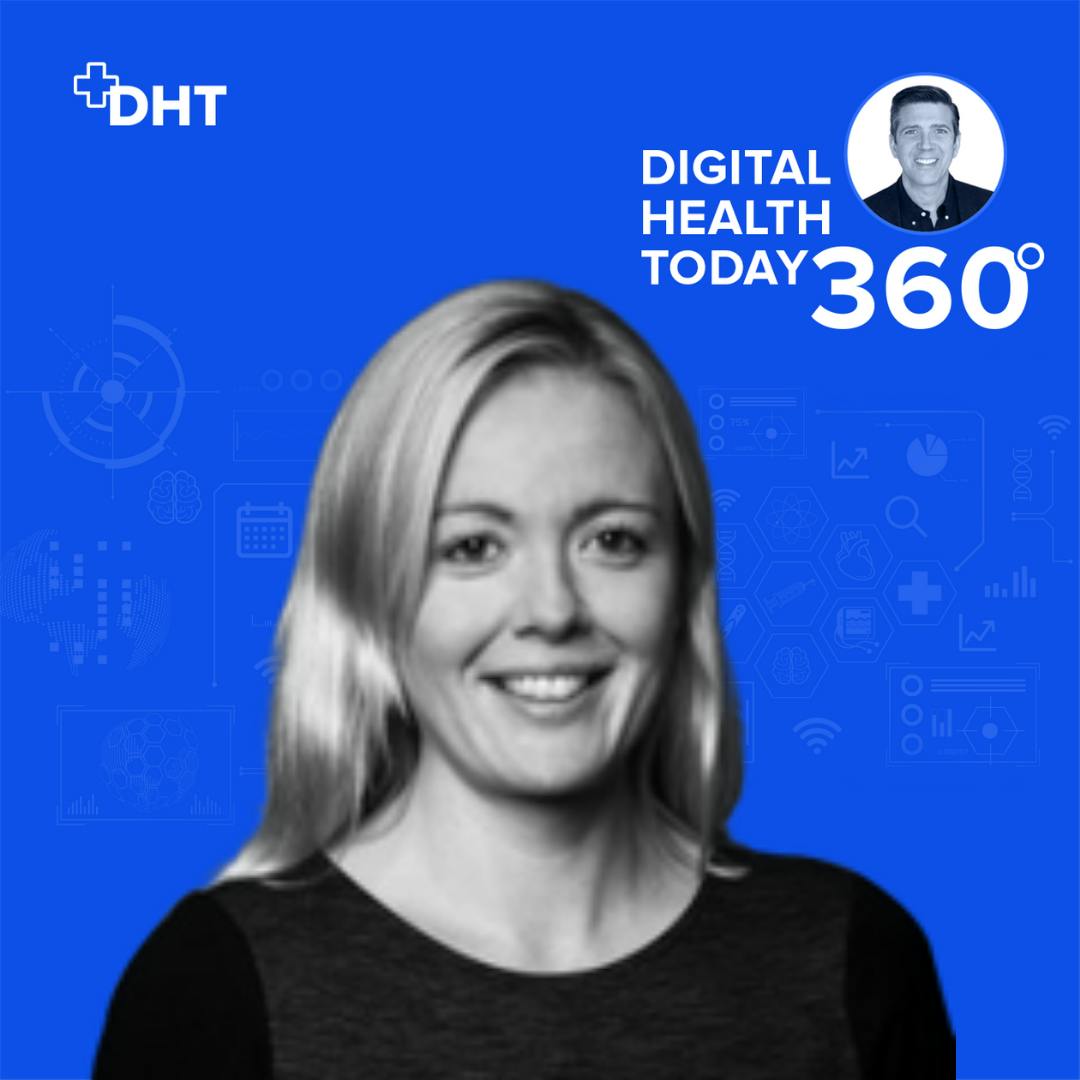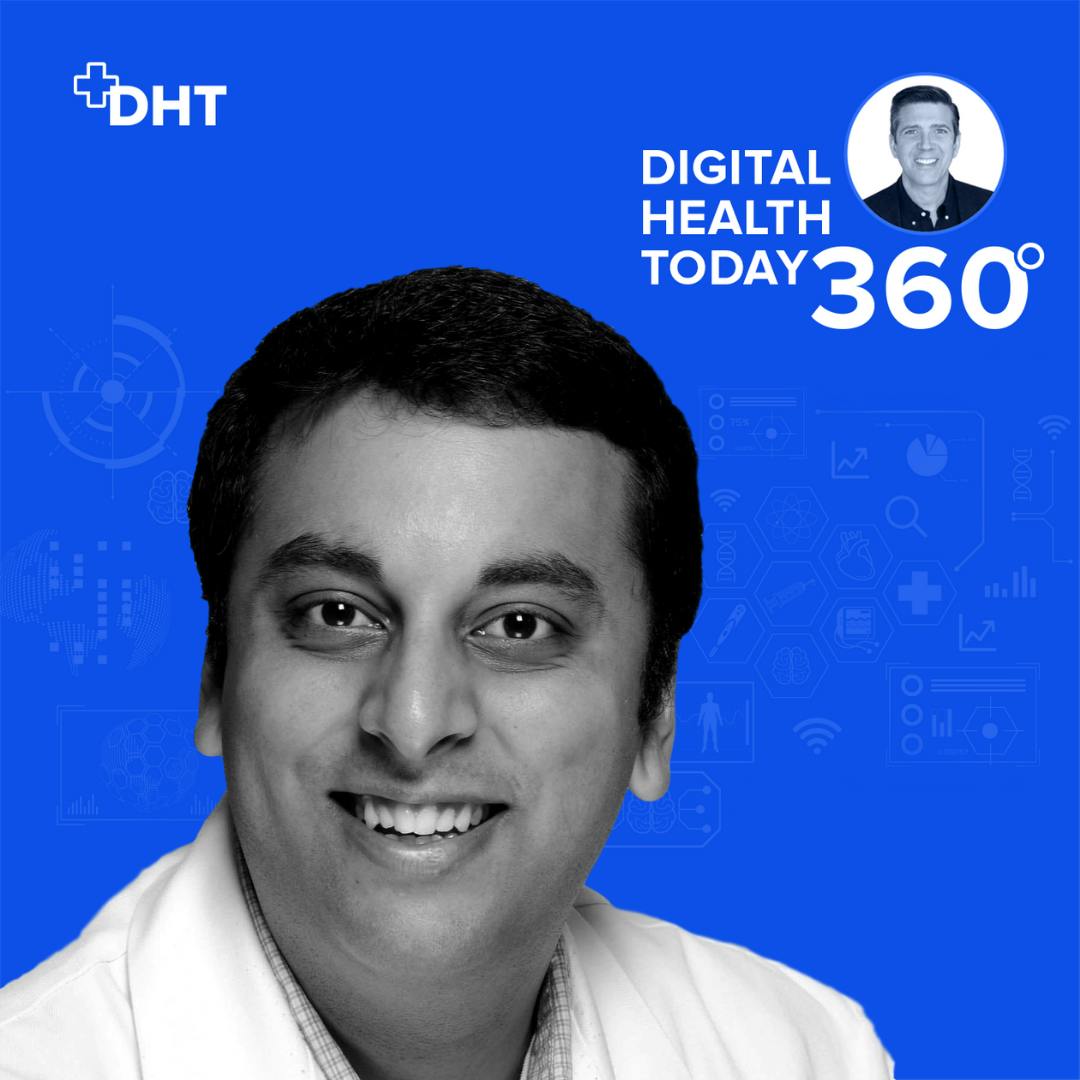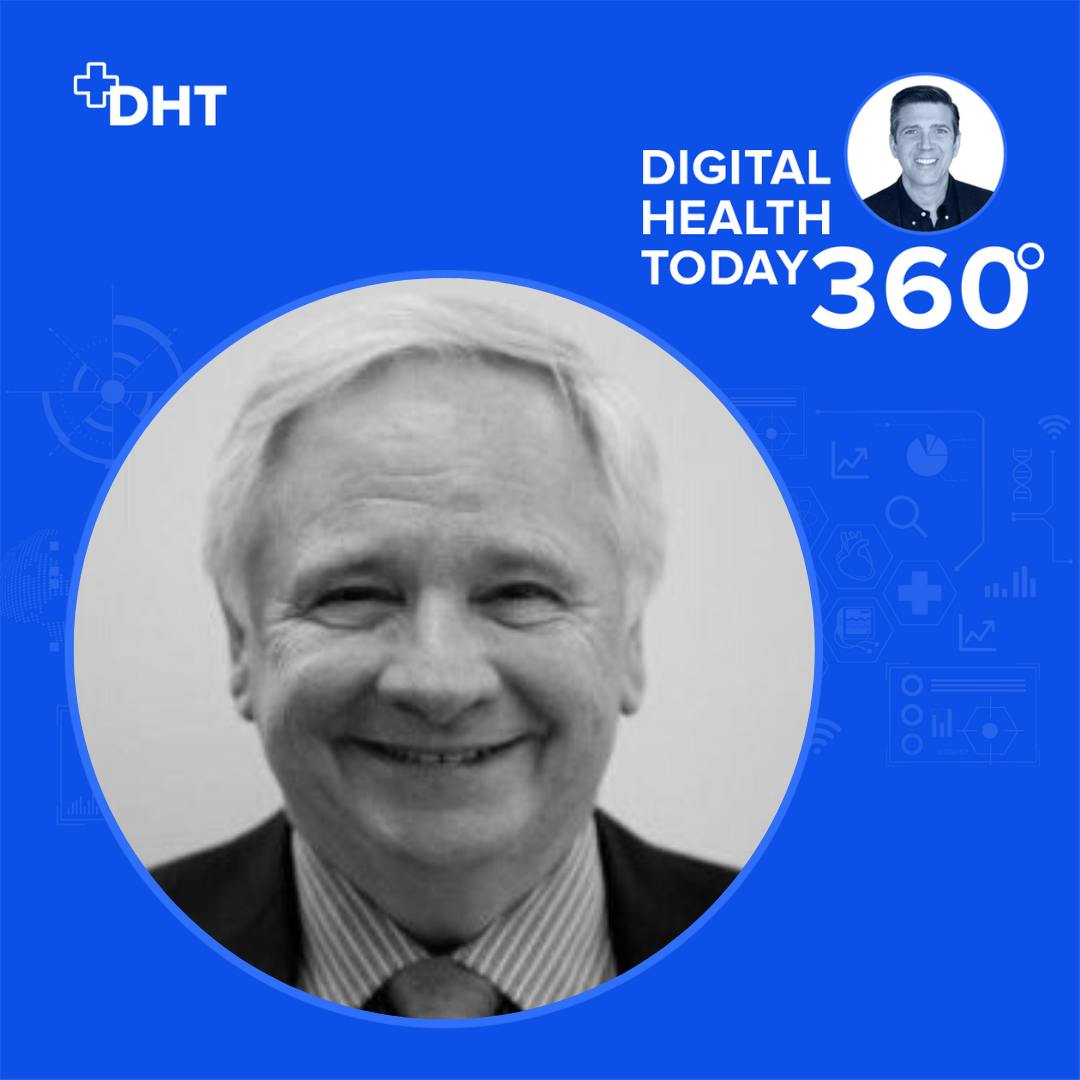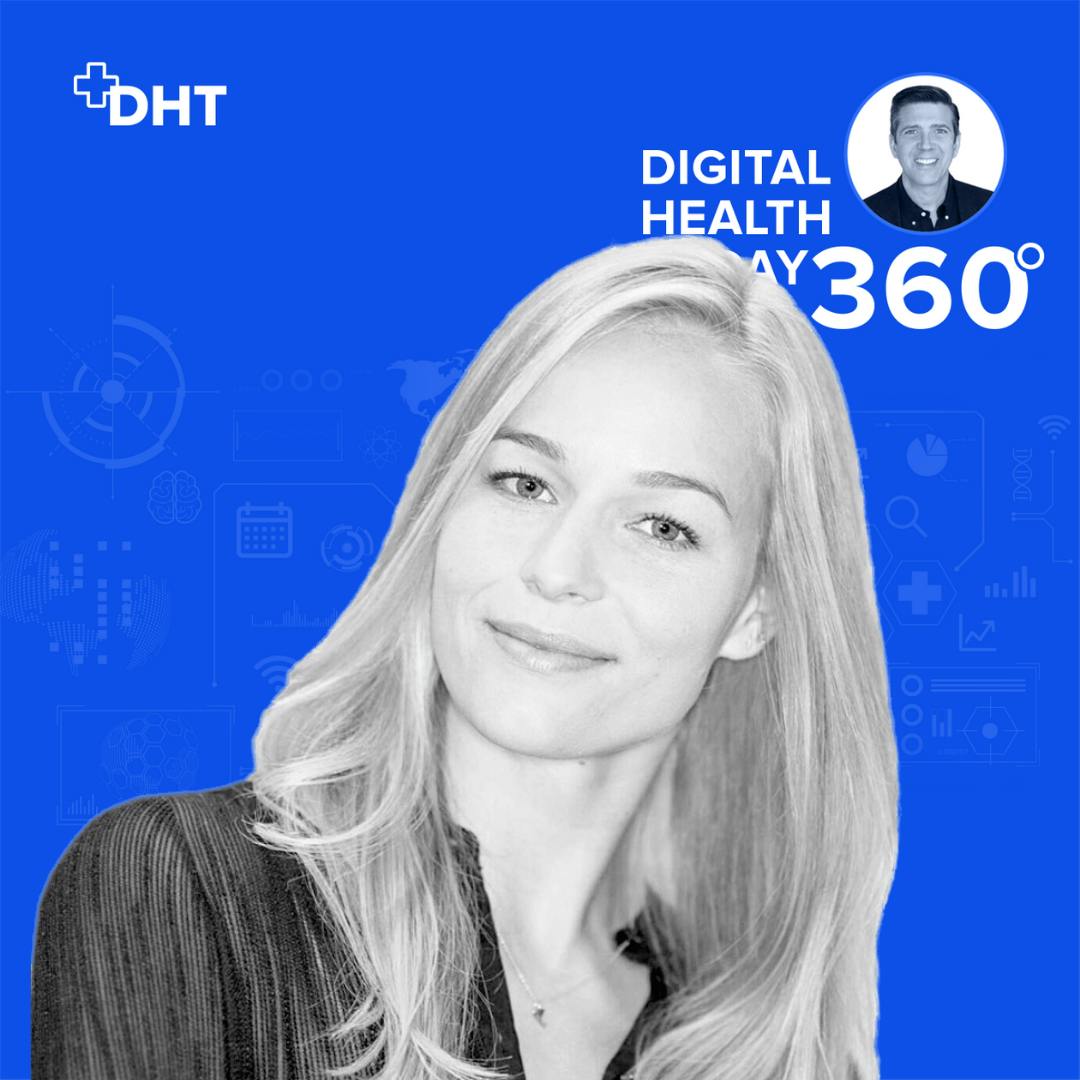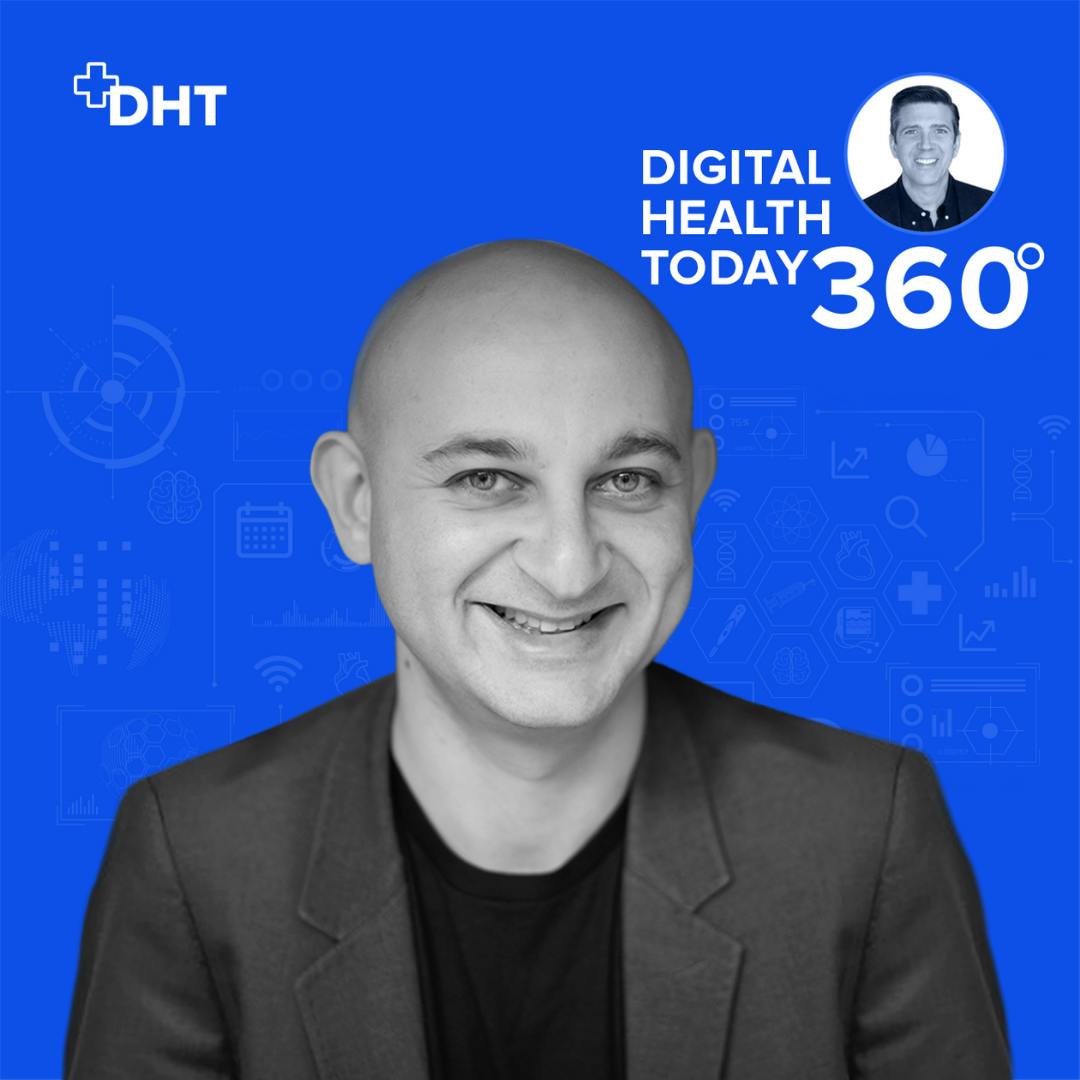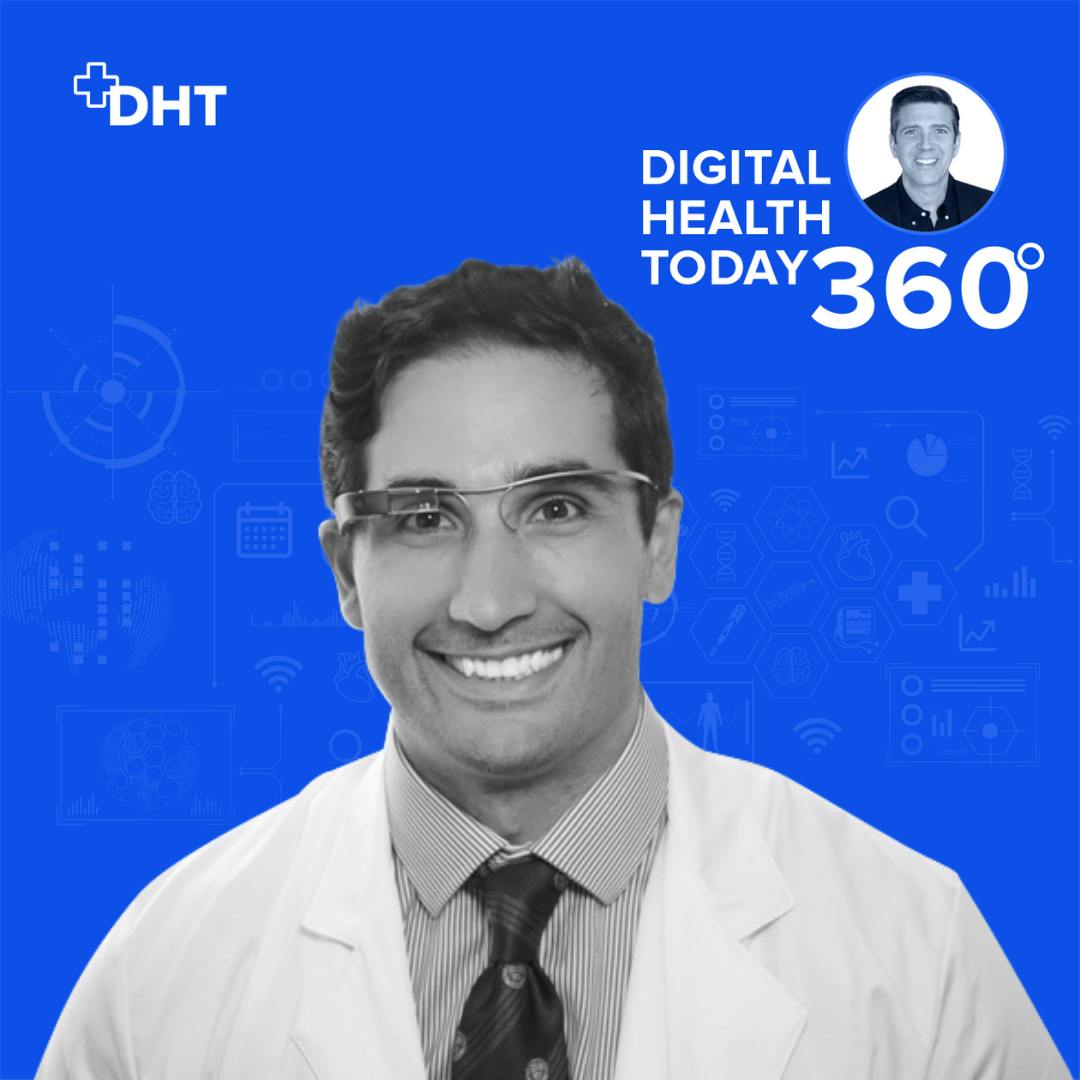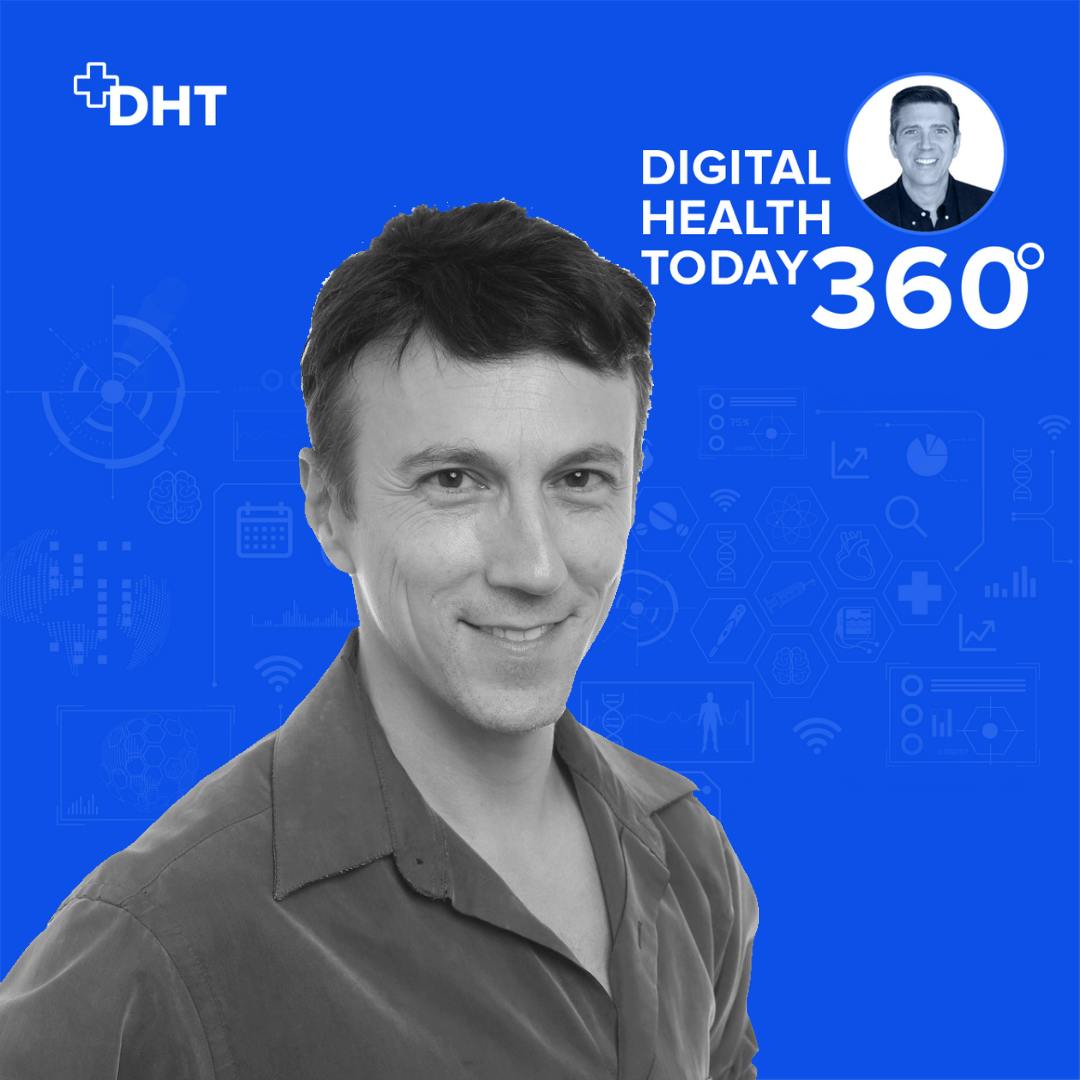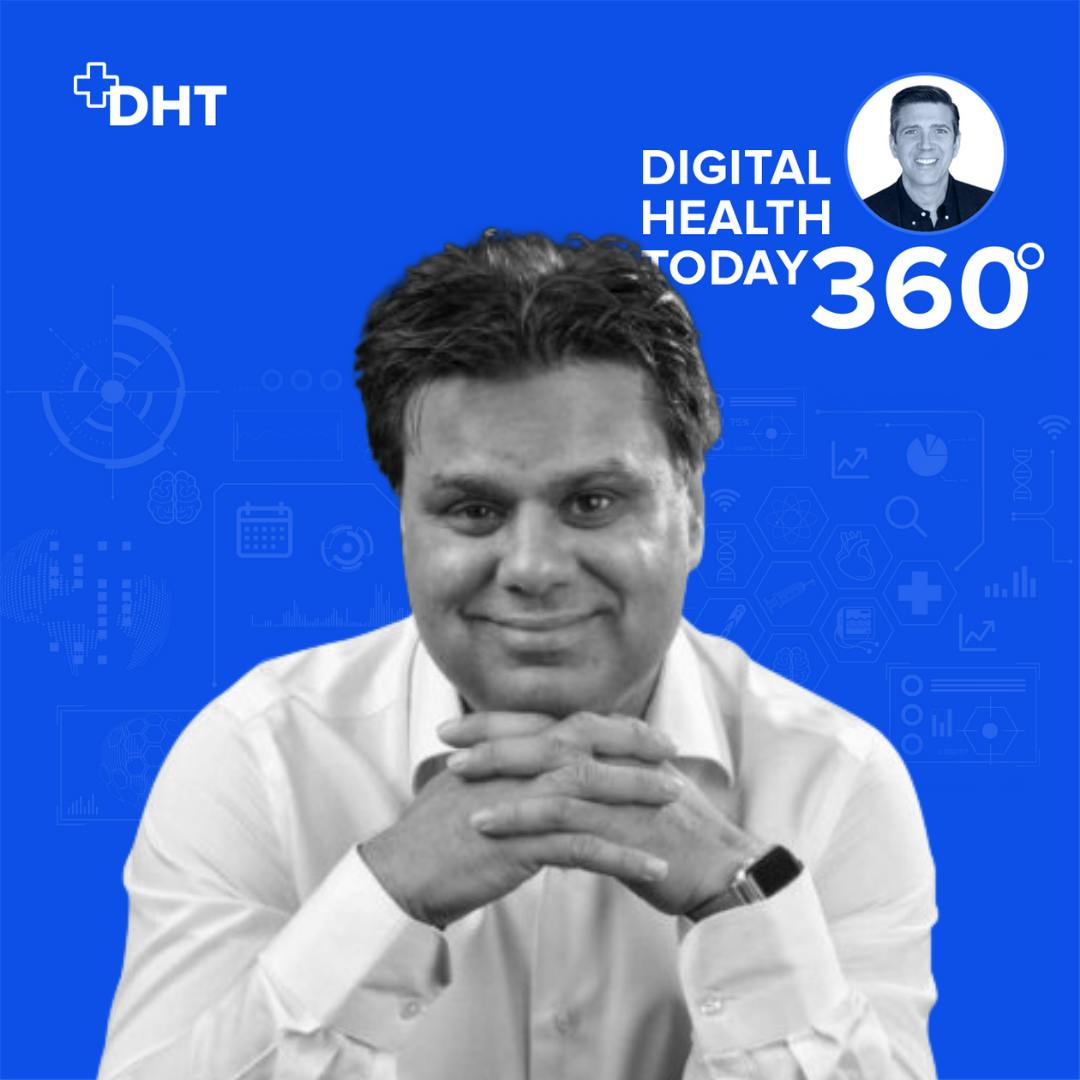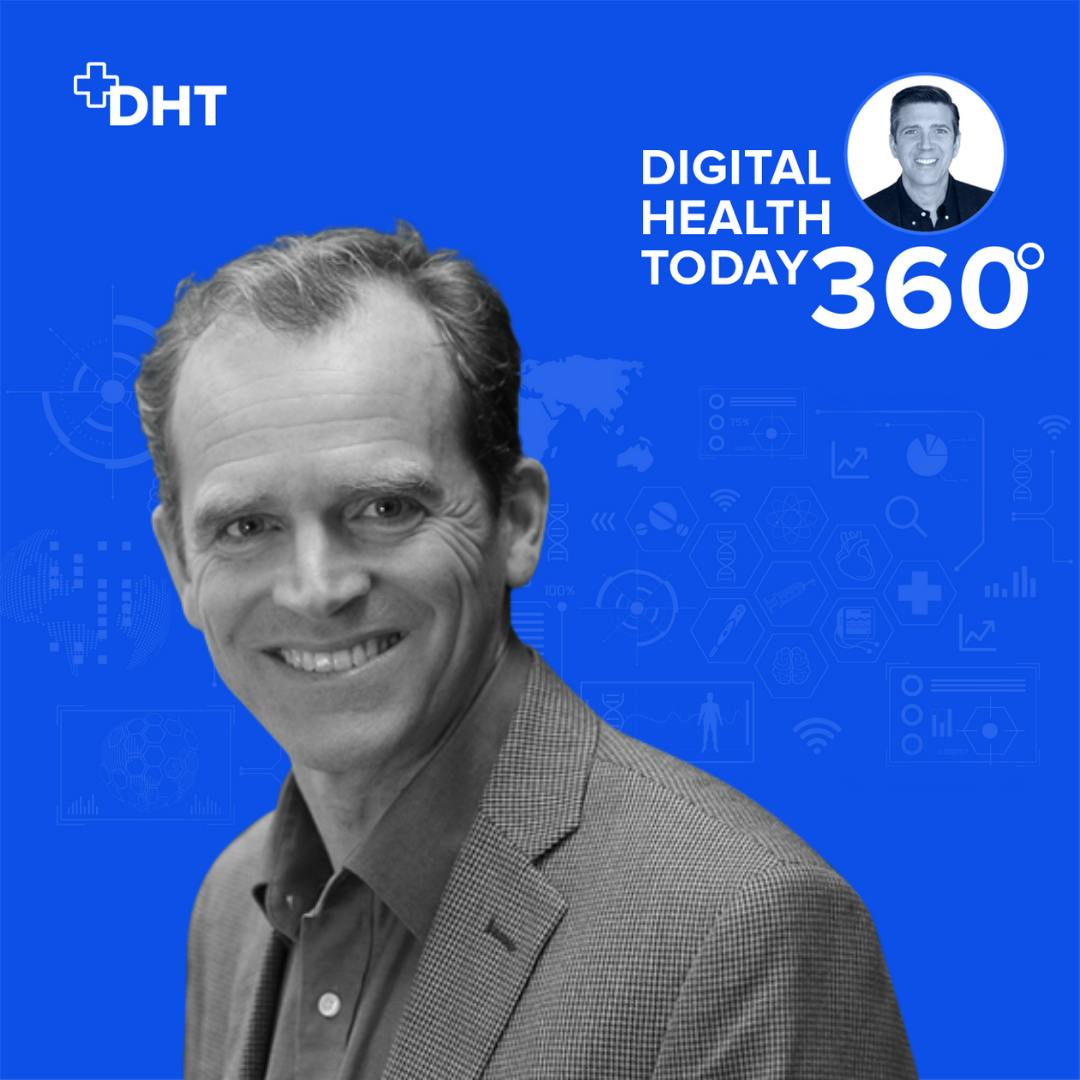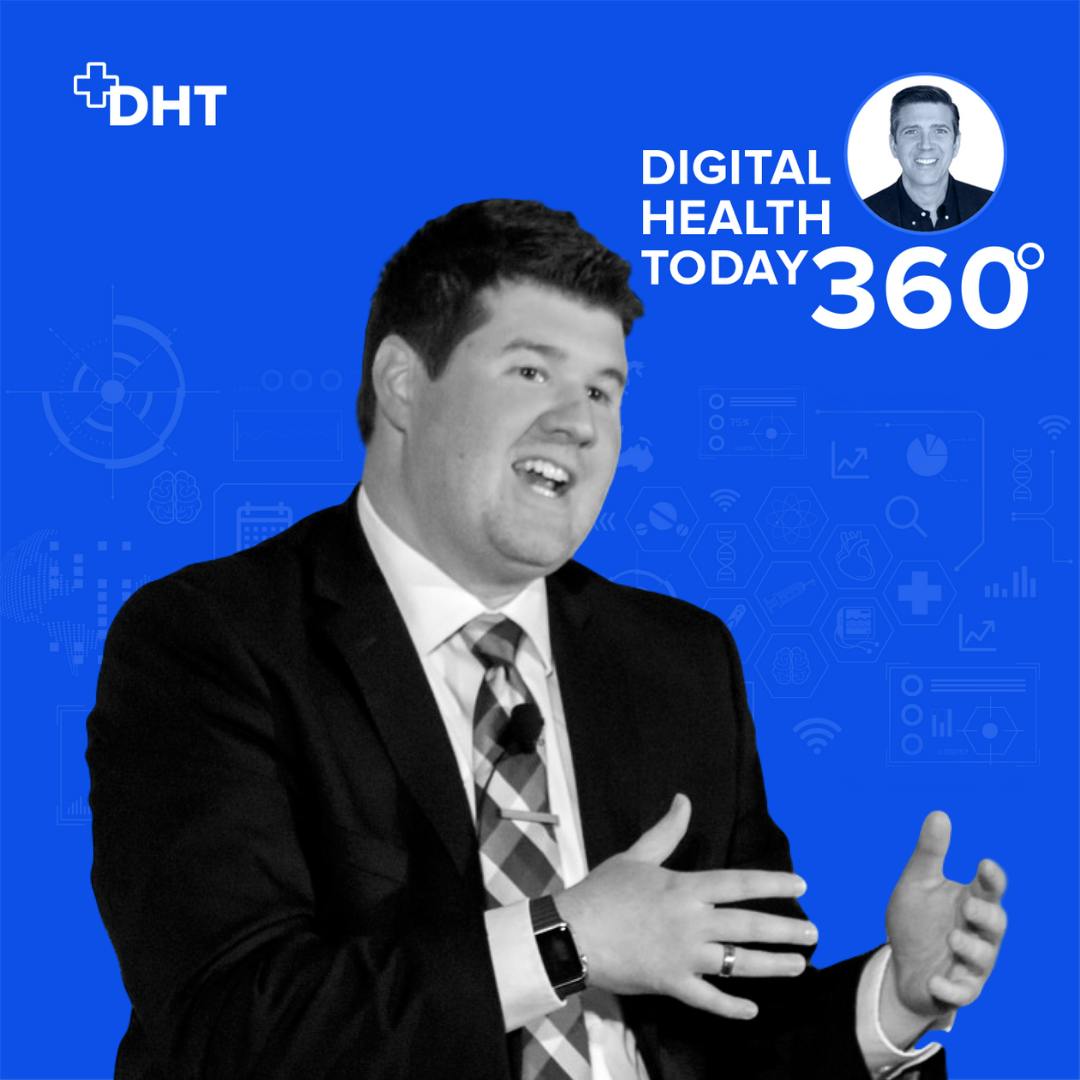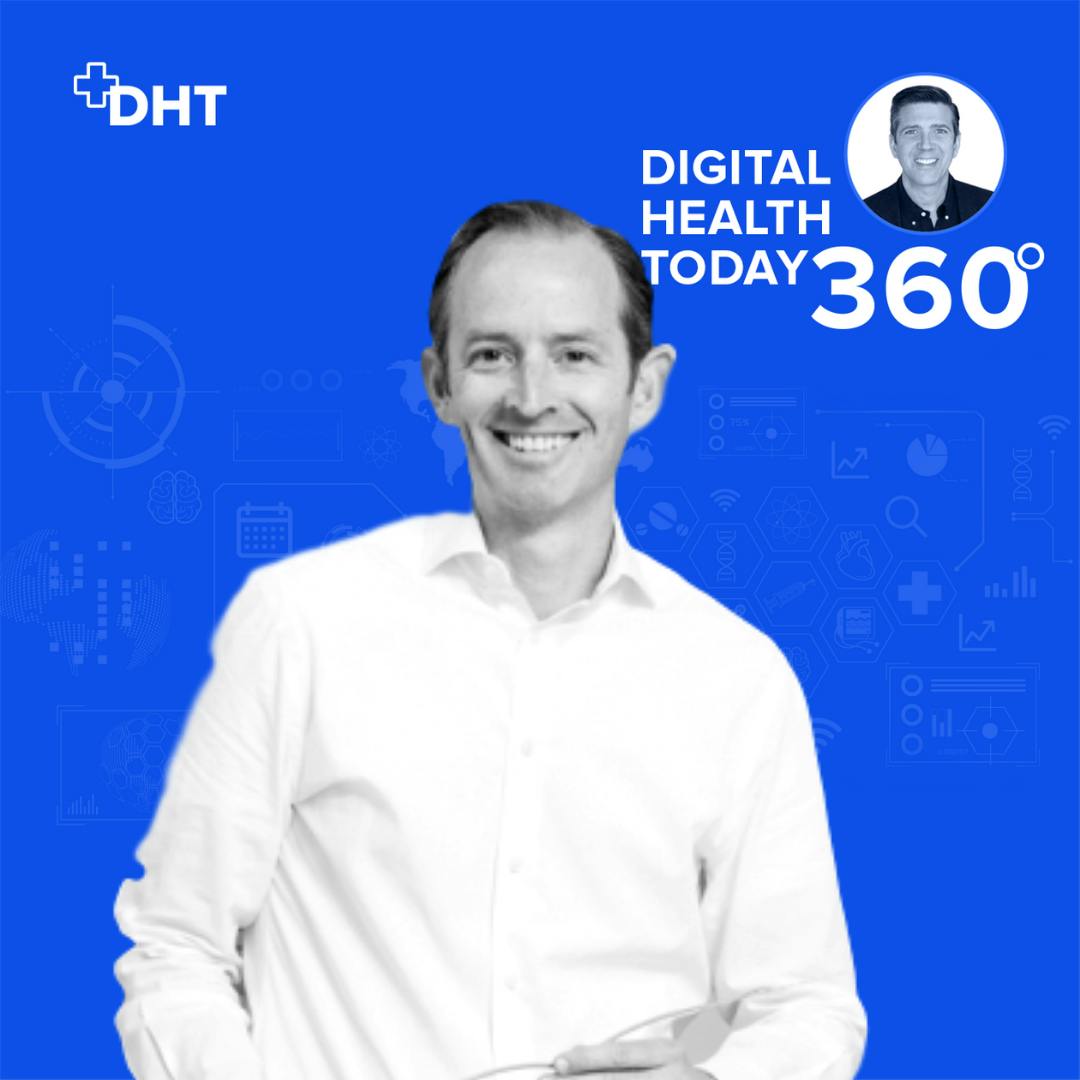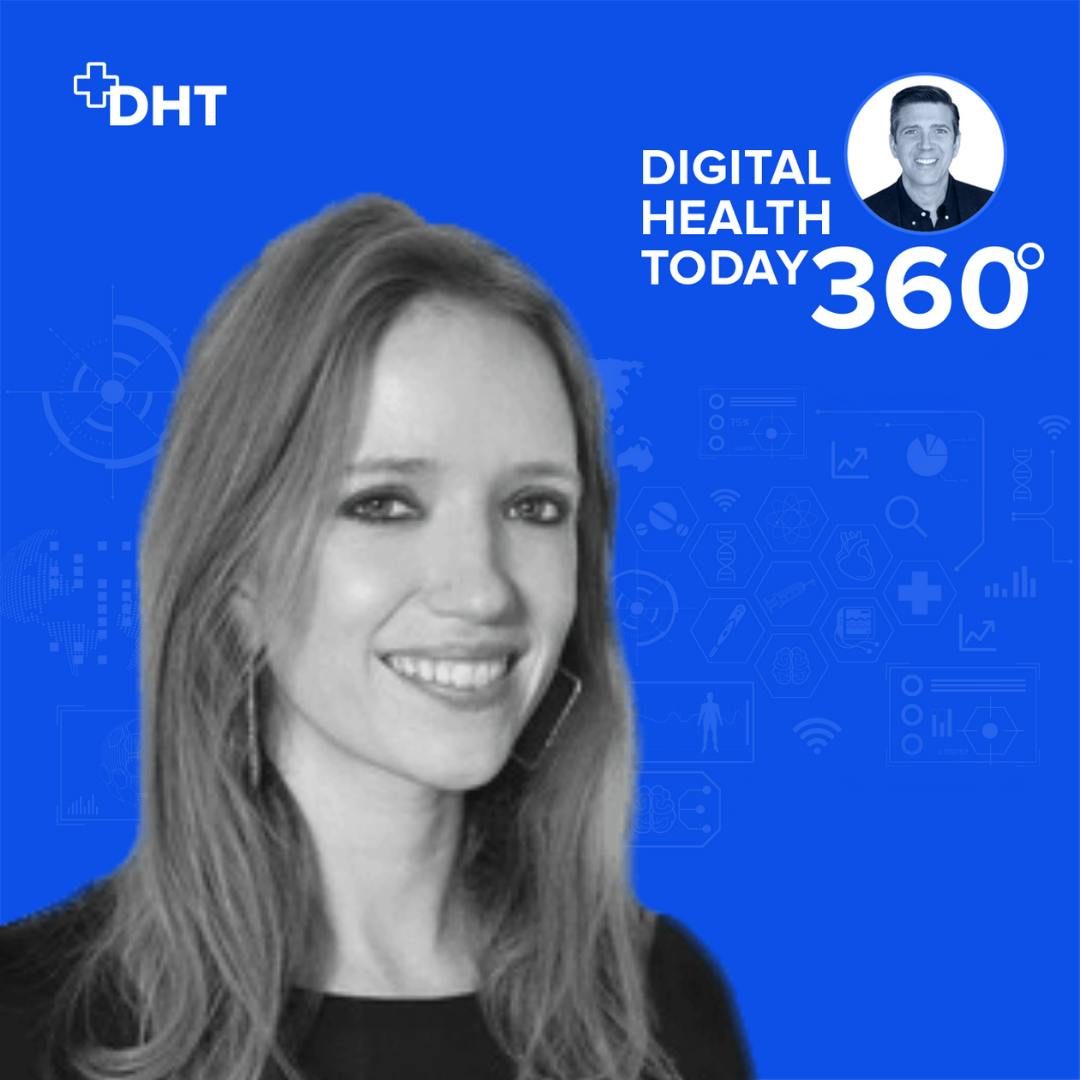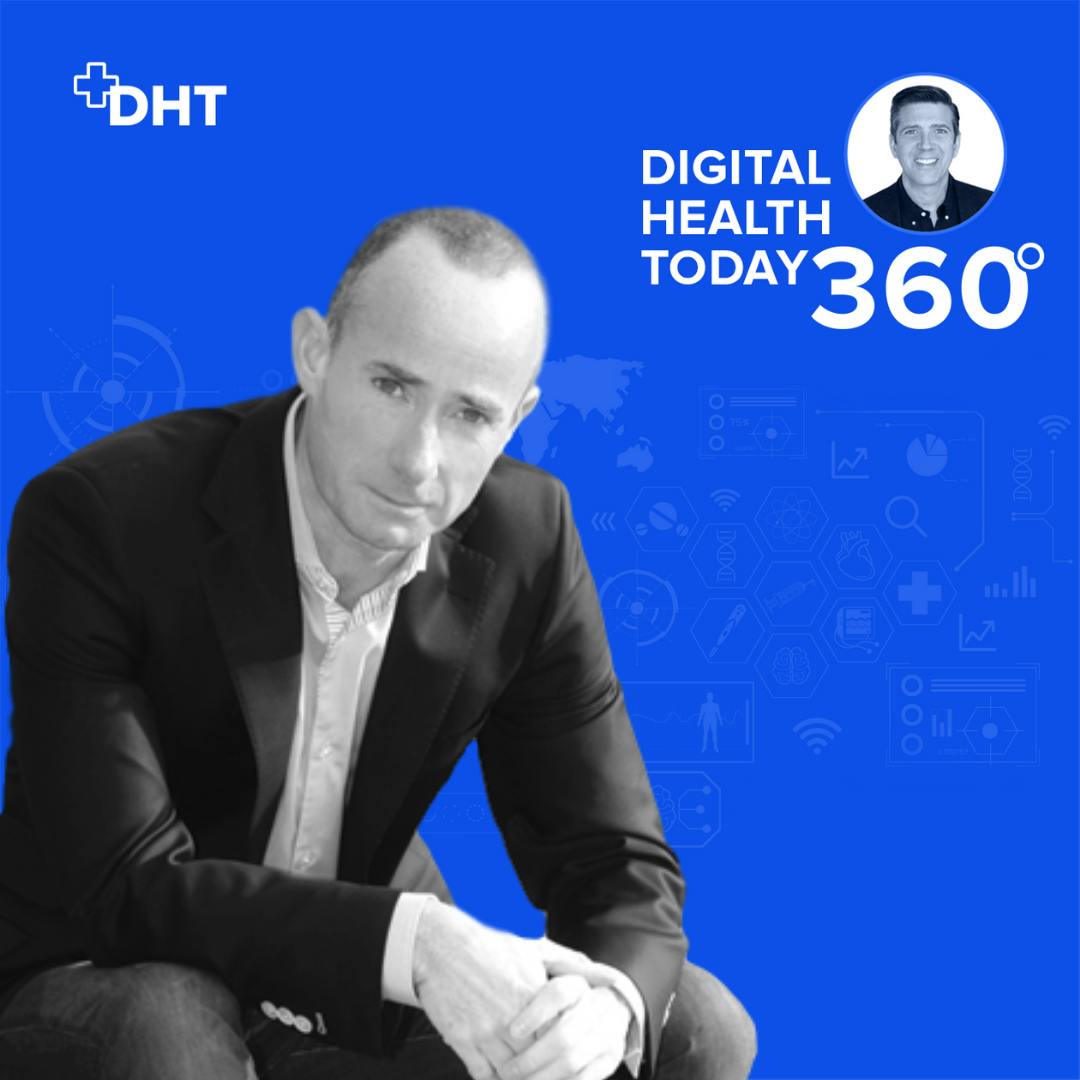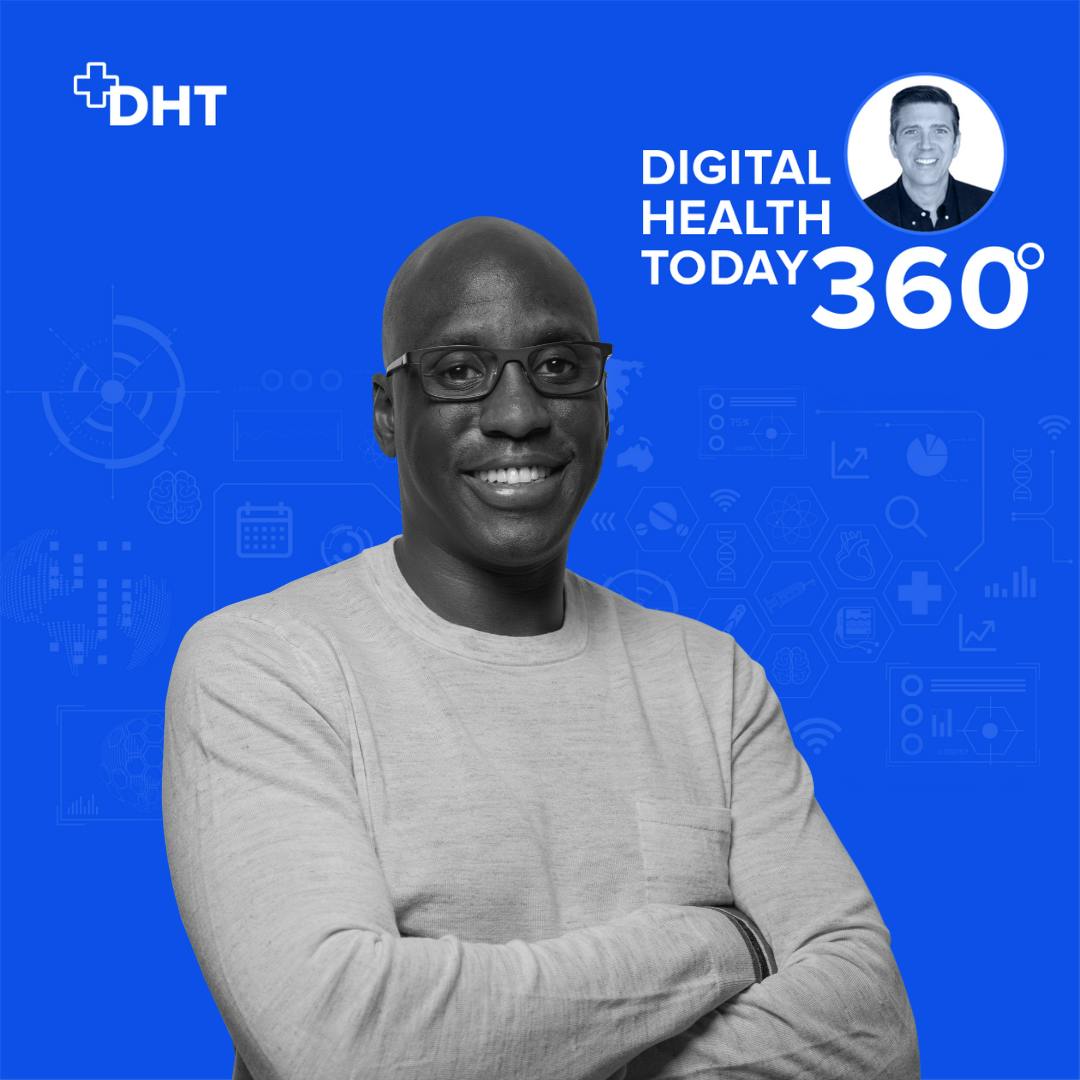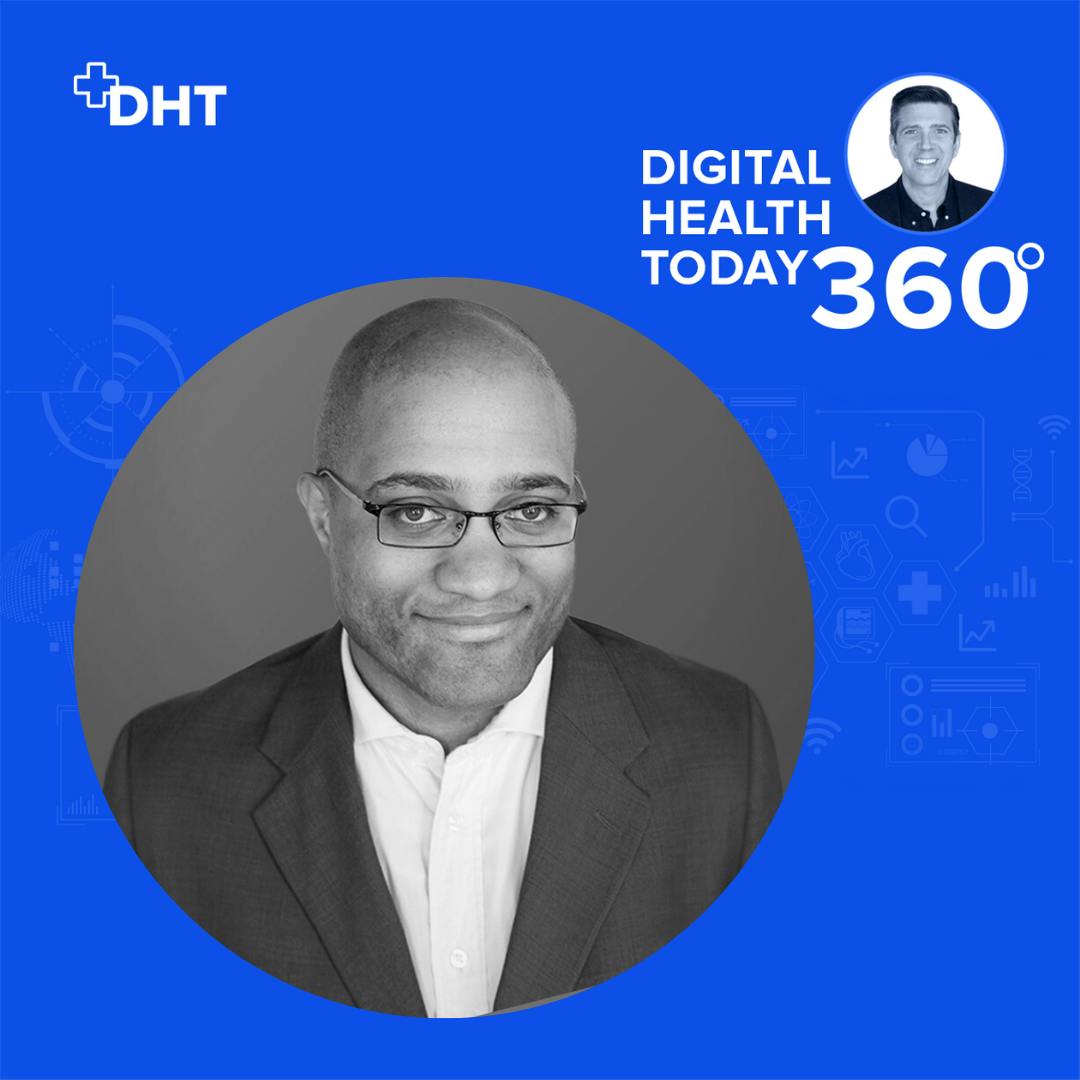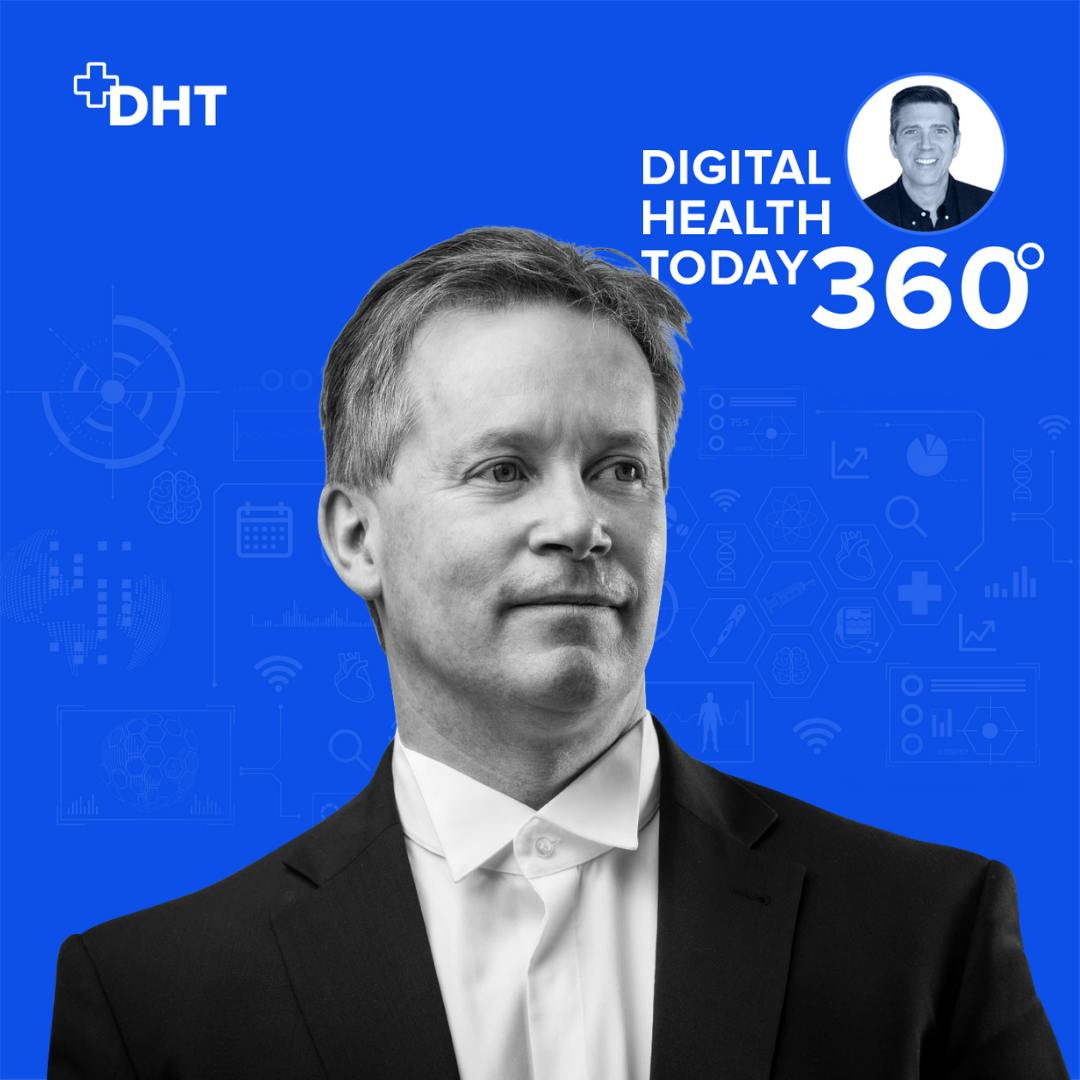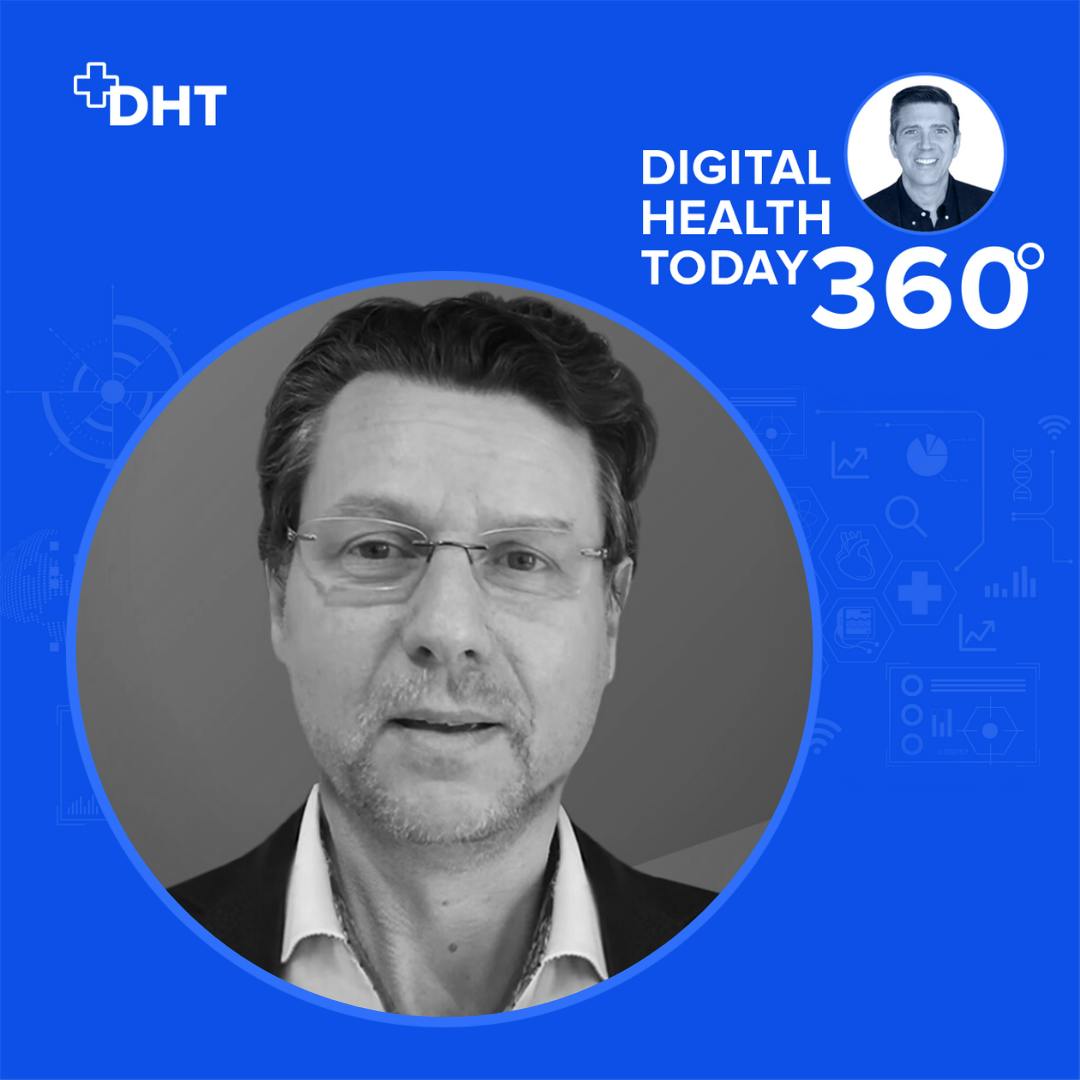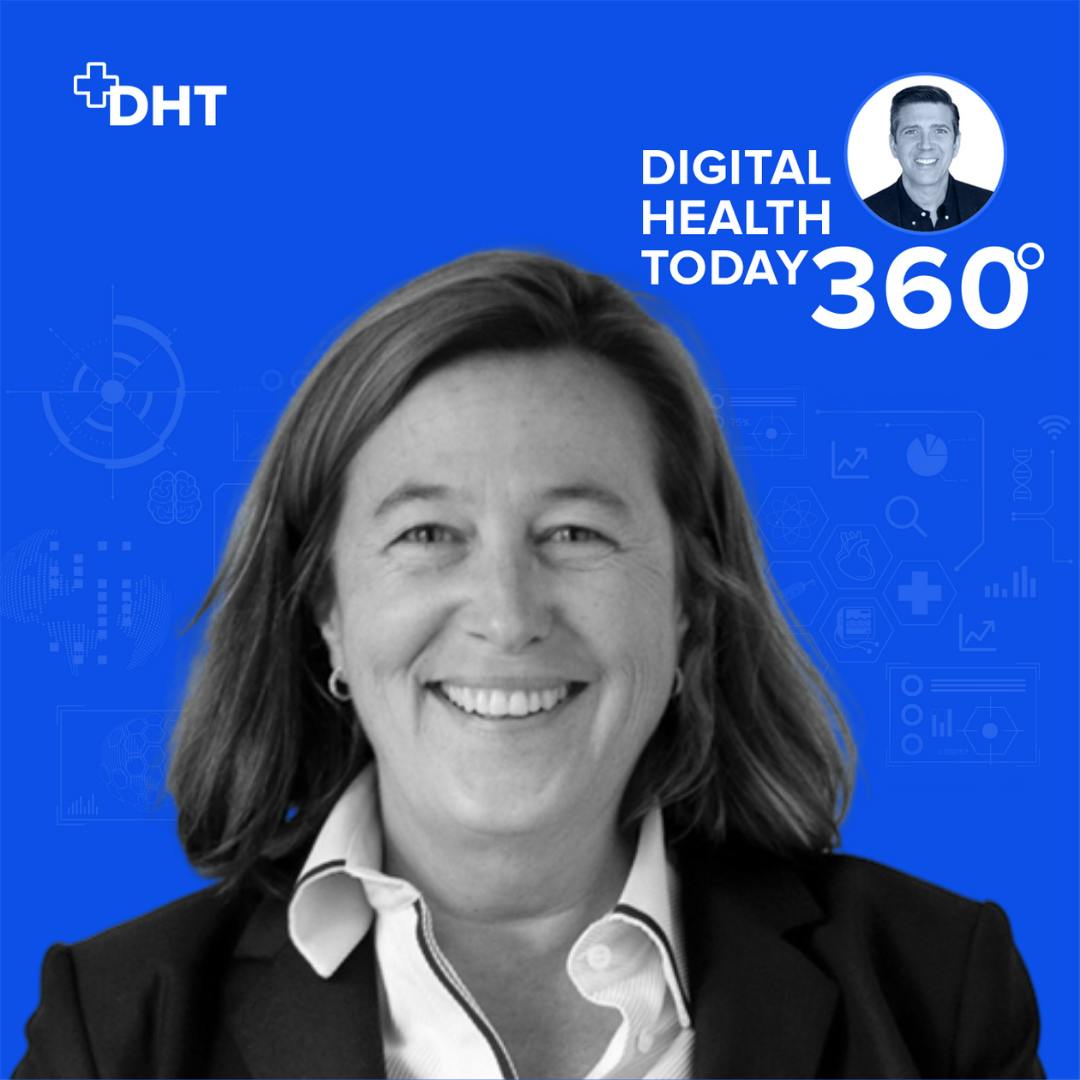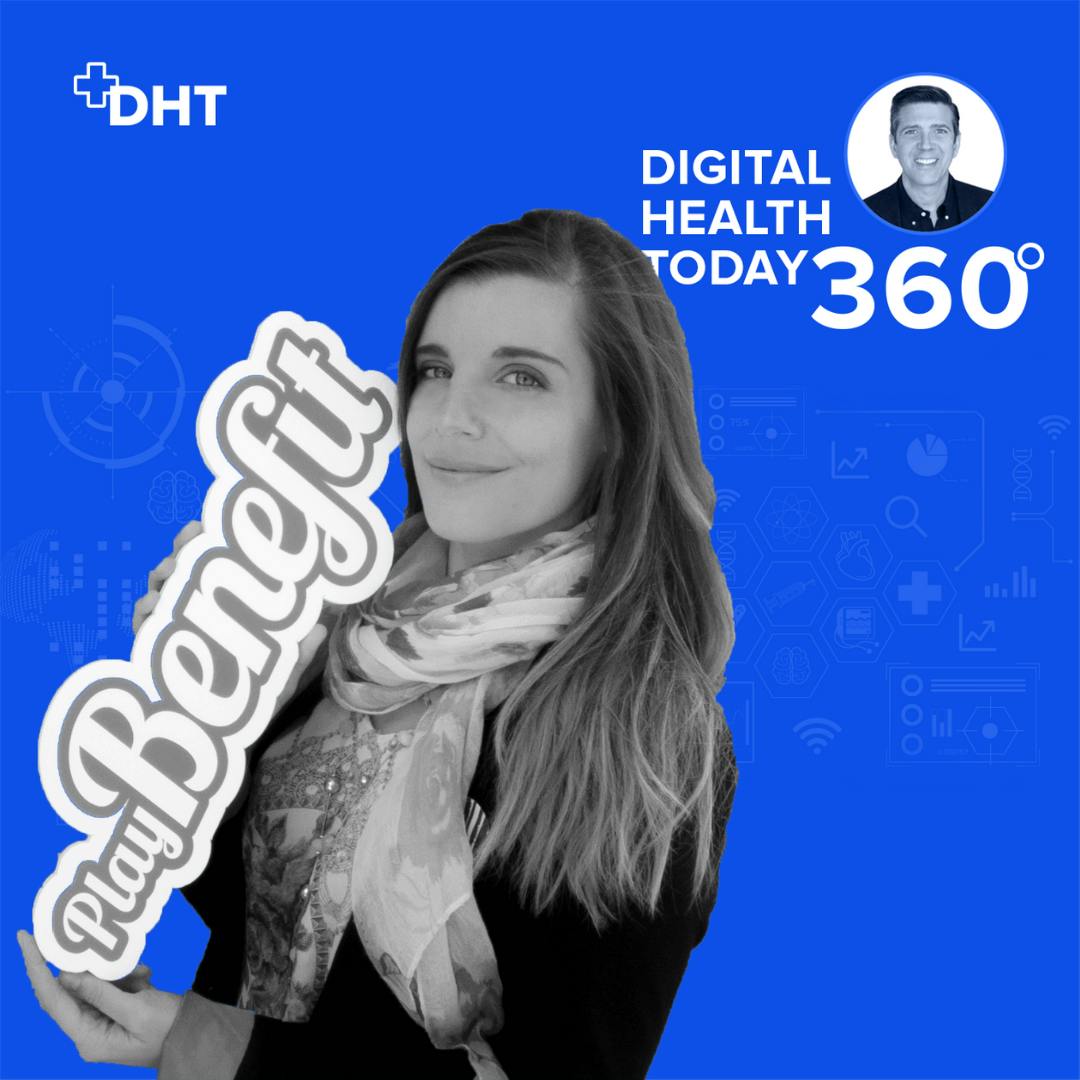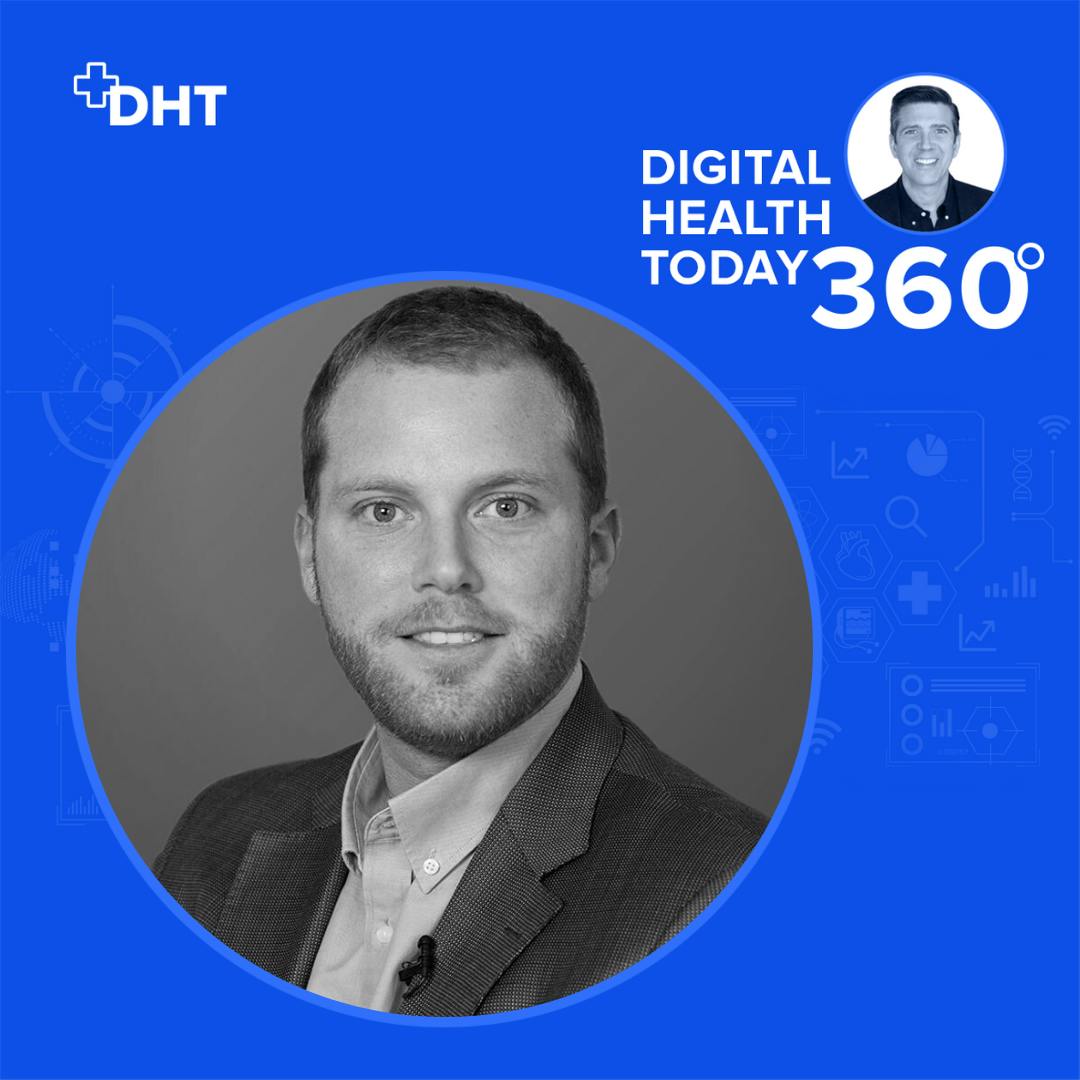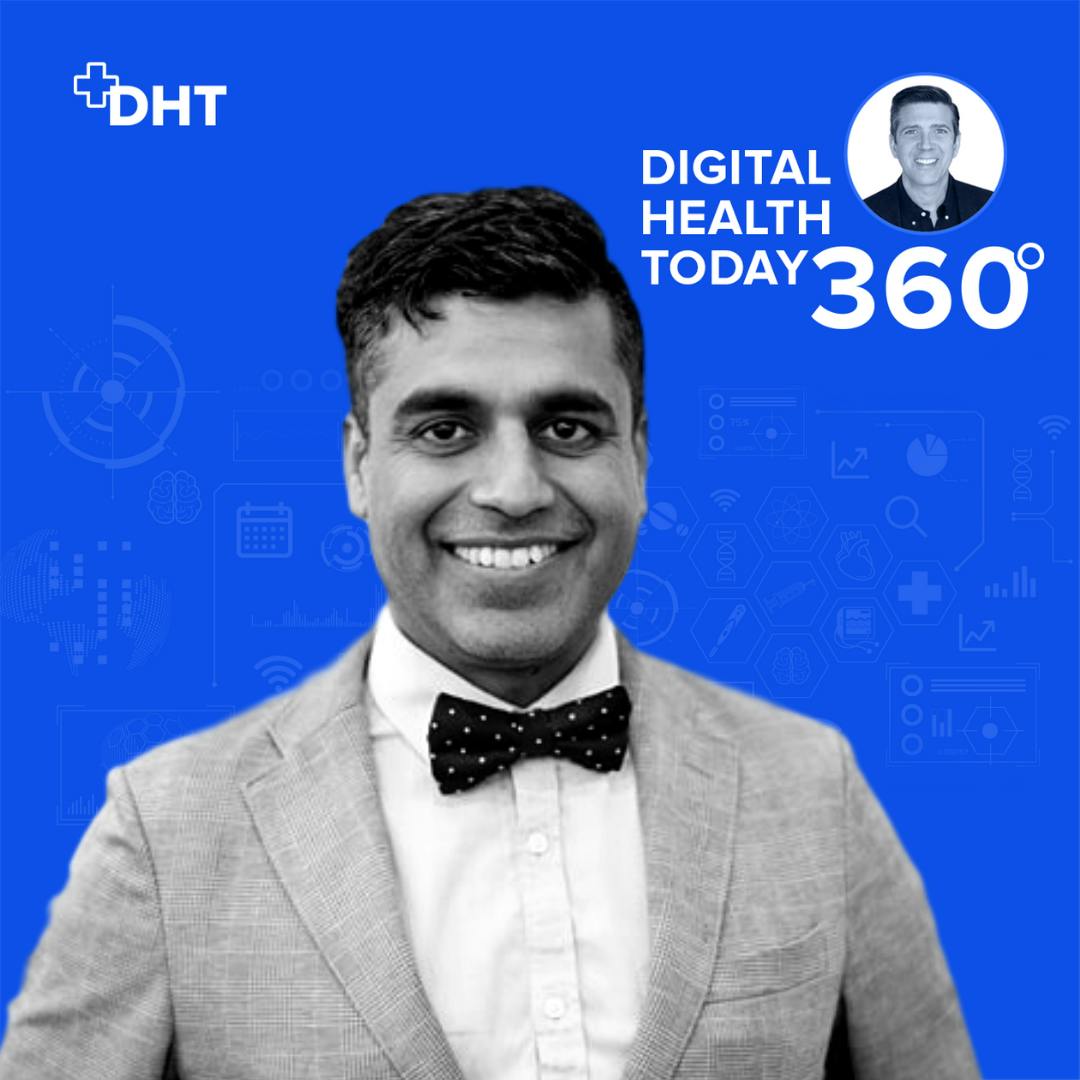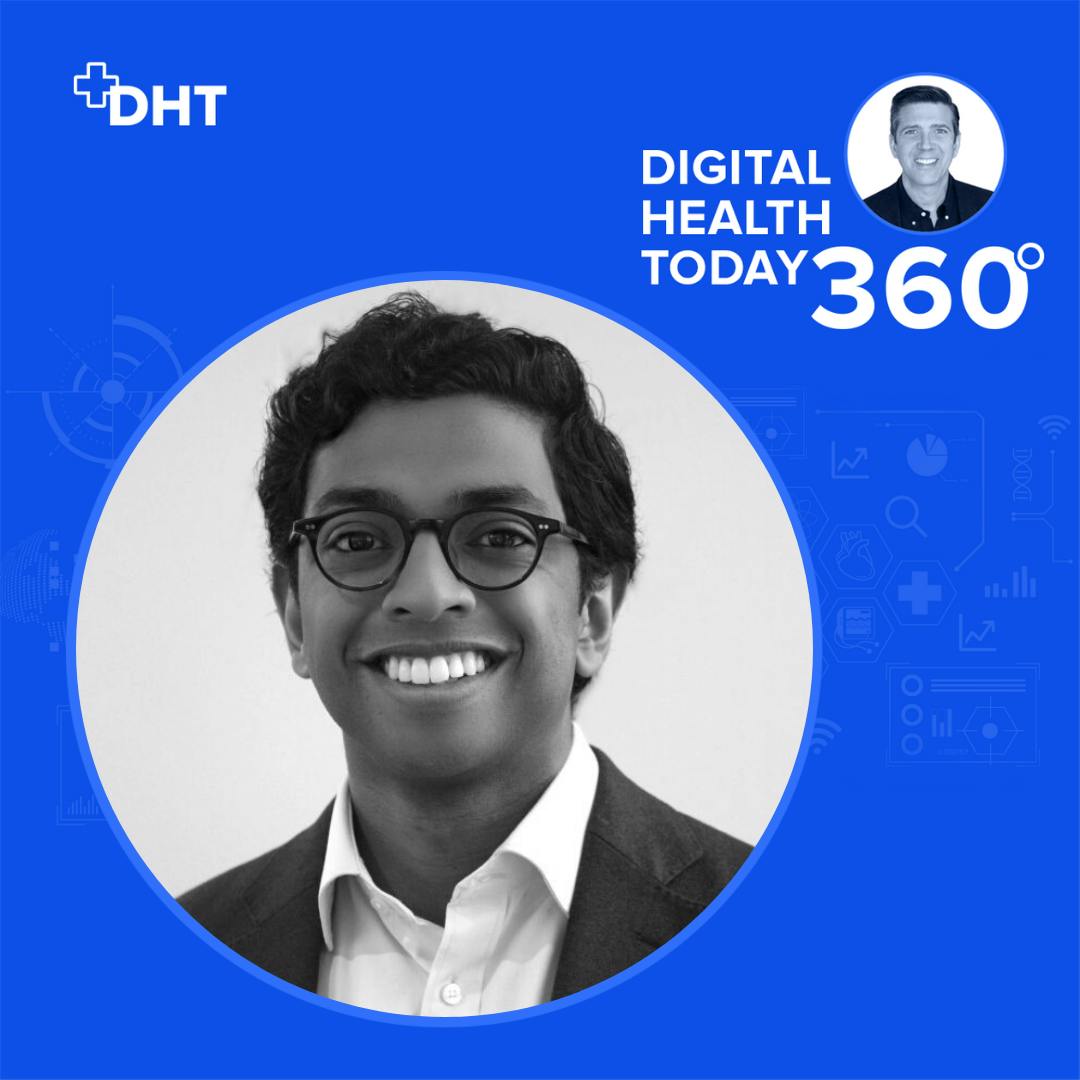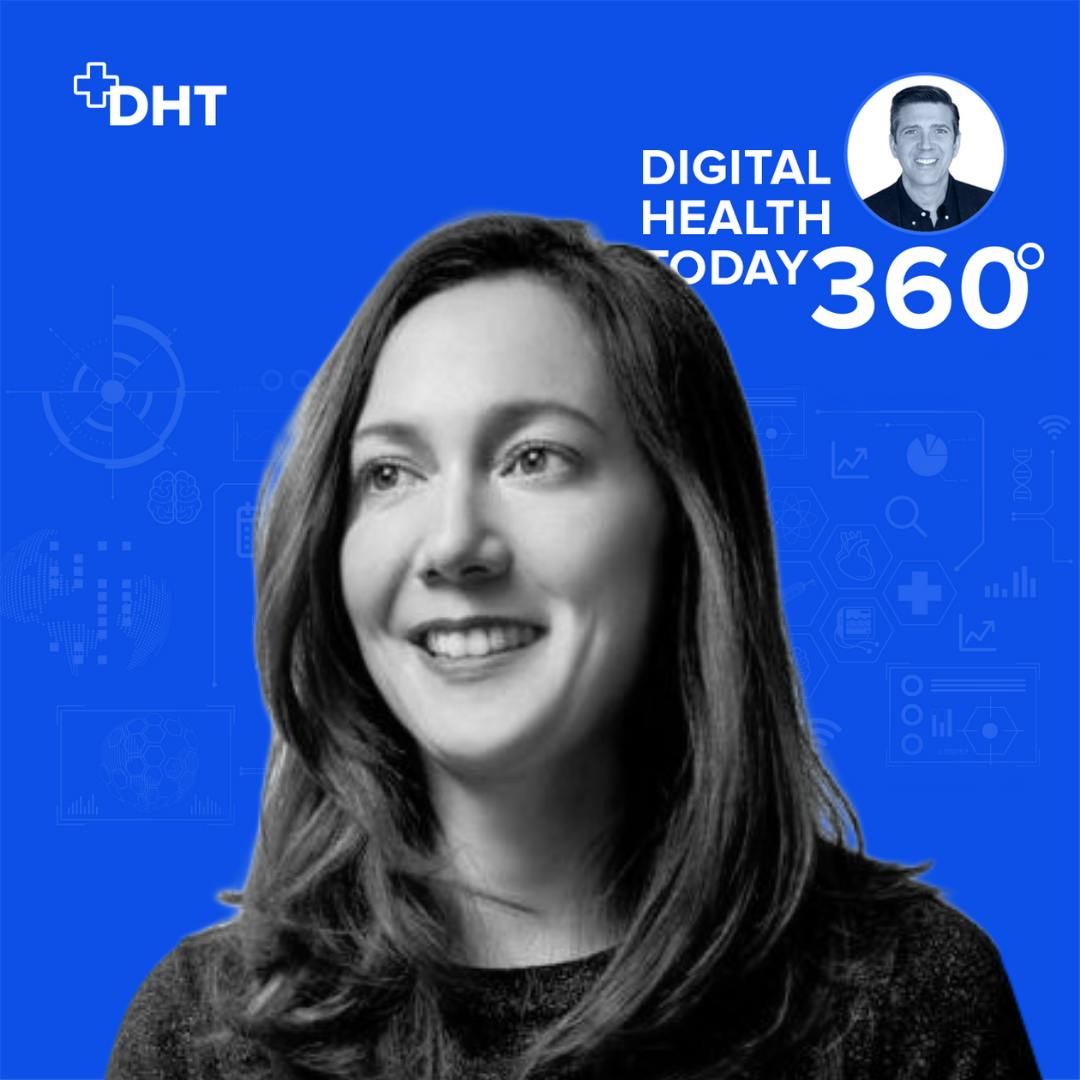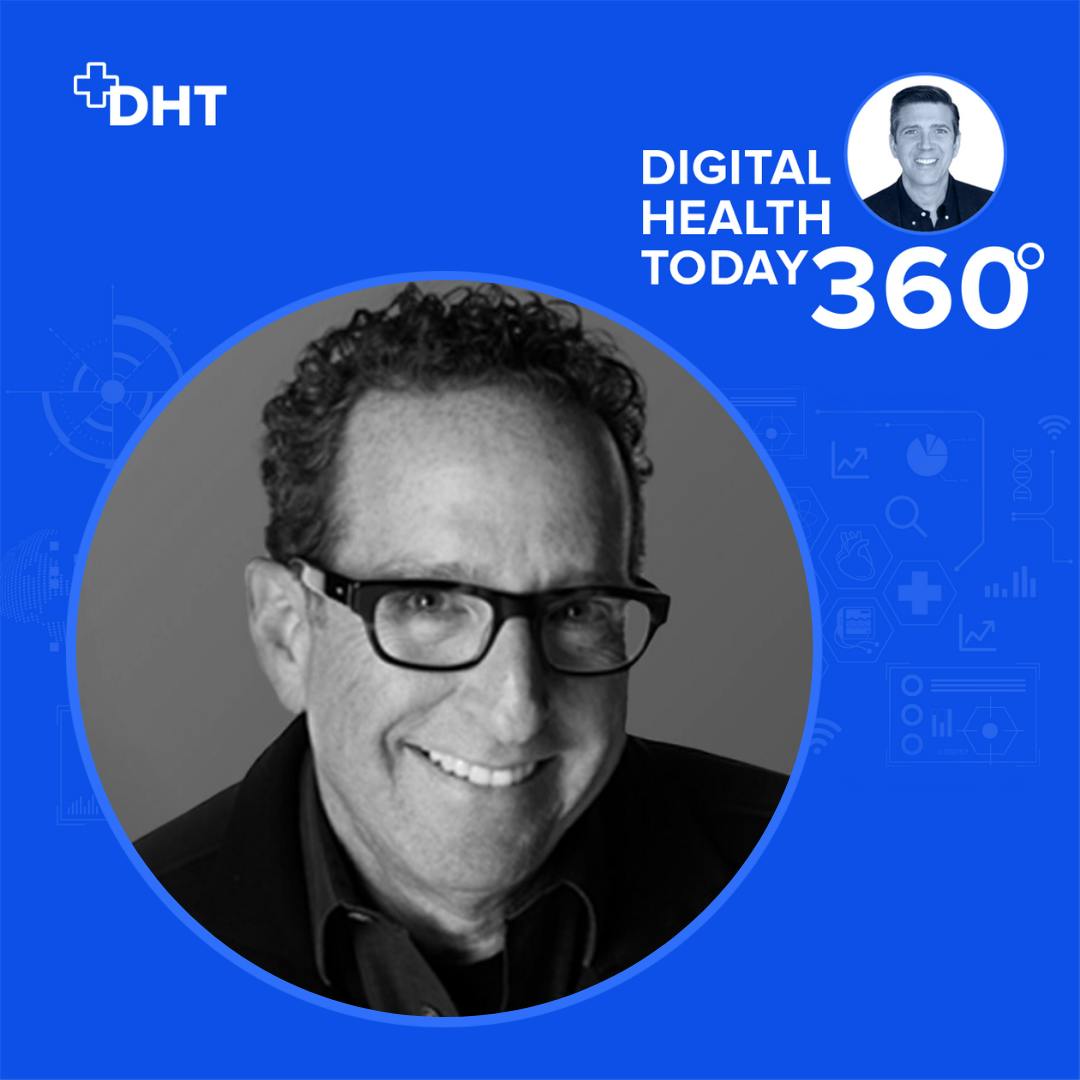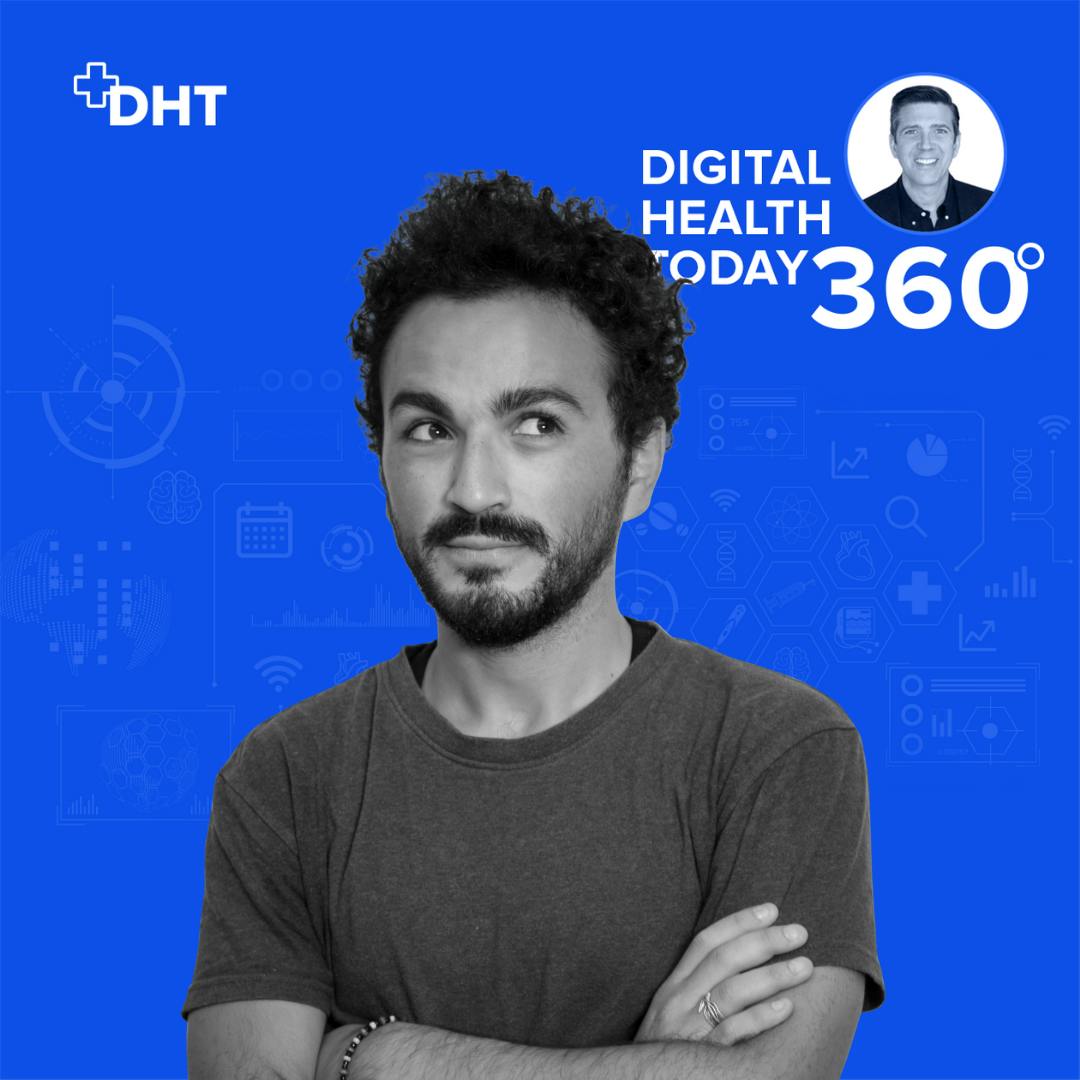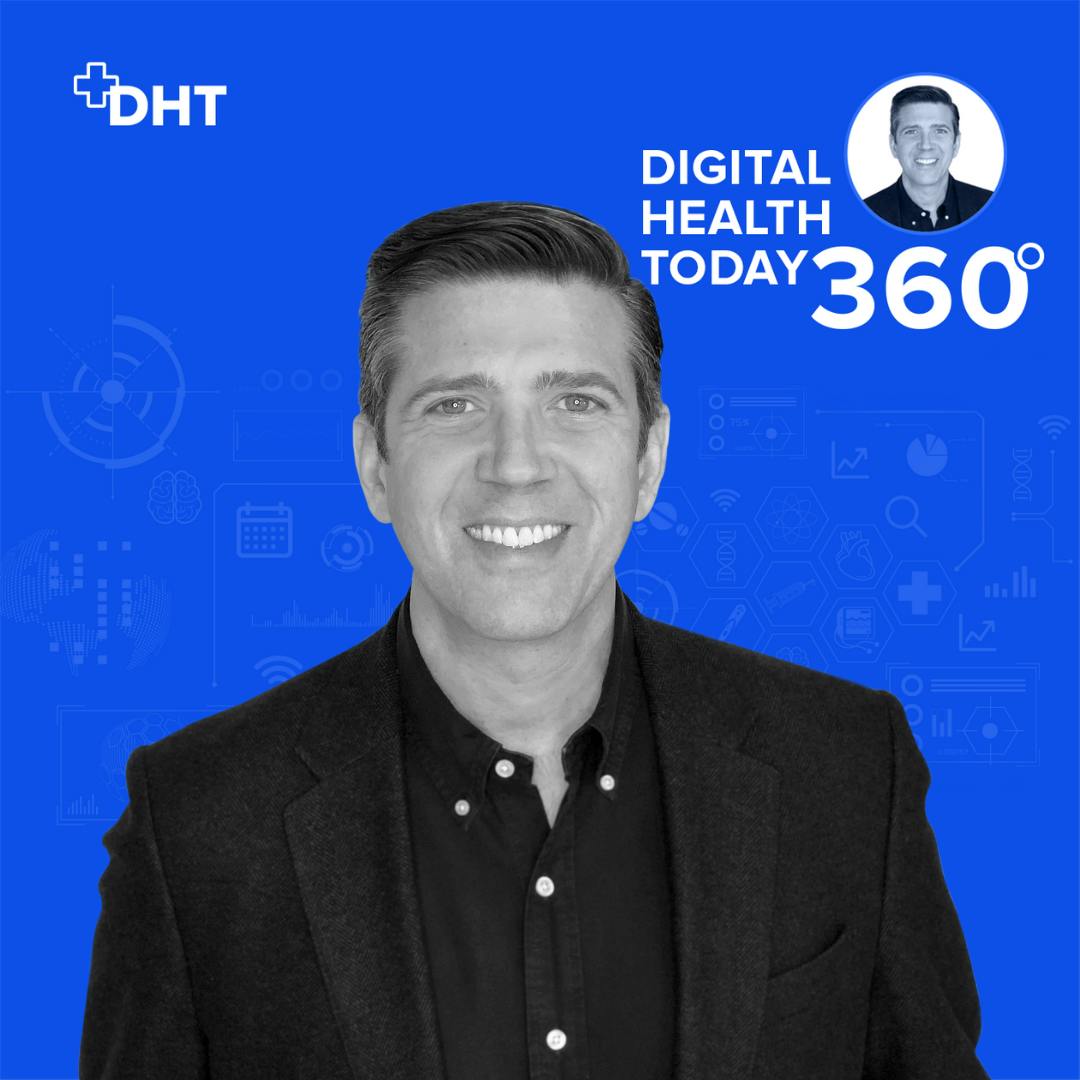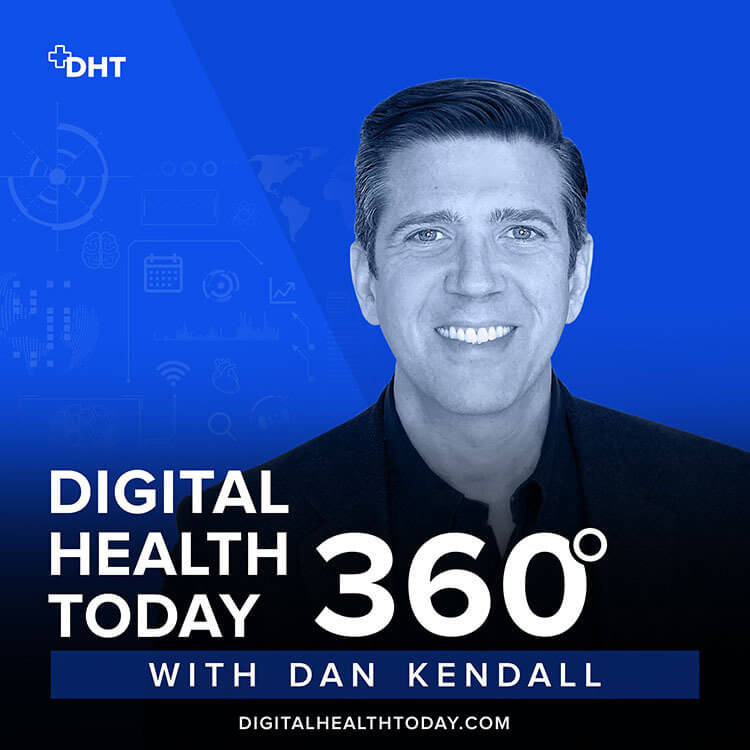
Digital Health Today 360° with Dan Kendall
Digital Health Today features the innovators, leaders and pioneers transforming health and wellness.
All Episodes
S13: #116: Empowering Women’s Health through Access to Contraception in Low/Middle Income Countries
Women and girls in low/middle-income countries are facing an urgent unmet need for modern contraception. This World Contraception Day, join guest host Sophie Park, Managing Director at G4A Digital Health Bayer in conversation with Dr. Ariane de Hoog, Lead Access to Medicine, Community Engagement at Bayer, and Titilola Olaolu-Hassan, Co-Founder & COO at Zuri Health, for this vital discussion on harnessing digital health solutions to empower women and enhance healthcare accessibility in Africa.
Topics include:
[00:02:14] Background to Bayer’s interest in empowering Women’s health.
[00:05:05] Zuri Health: Affordable healthcare for underserved communities.
[00:06:28] Impact goals behind Zuri becoming a G4A Portfolio company.
[00:11:37] How the Zuri Health platform directly improves girls' and women's access to healthcare.
[00:14:08] The future beyond family planning for Zuri Health in partnership with Bayer.
[00:15:53] Bayer’s impact goal to provide 100 million women access to modern contraception by 2030.
[00:20:23] Empowering women to make informed decisions irrespective of location
Guest & Host Links
Connect with Dan Kendall on LinkedIn
Connect with Sophie Park on LinkedIn
Connect with Dr. Ariane de Hoog on LinkedIn
Connect with Titilola Olaolu-Hassan on LinkedIn
Bayer G4A
Zuri Health -
Your-Life website - complimentary access to an array of educational and training resources on adolescent health and contraceptive counselling
Digital Health Today would not be possible without the support of leading organizations. Thank you to:
> Presenting Partner: Amalgam Rx
> Contributing Partners and Sponsors: LSI | Lindus Health | Bayer G4A
Connect on Digital Health Today:
Browse Episodes | Twitter | LinkedIn | Facebook | Instagram
Connect on Health Podcast Network:
Browse Shows | Linkedin | Twitter | Facebook | Instagram
September 26, 2023
S13: #115: CancerX Initiative Aims to Reduce Cancer Deaths by 50% by 2047
The Digital Medicine Society (DiMe) and Moffitt Cancer Center have announced they are co-hosting CancerX, a new public-private partnership effort to rapidly accelerate the pace of cancer innovation in the U.S.
Alongside the Office of the National Coordinator for Health Information Technology (ONC) and the Office of the Assistant Secretary for Health (OASH), Moffitt Cancer Center and DiMe are urging the healthcare and digital health sectors to boost technology-driven initiatives to combat cancer. The two groups are working together to accelerate cancer research advancements, and they invite other organizations to do the same.
The Biden administration's revived Cancer Moonshot includes the new CancerX public-private partnership. According to officials, the goal is to use industry collaboration and disruptive innovation to lessen the burden of cancer on everyone.
The CancerX program will focus on using digital innovation to reduce disparities and financial toxicity in cancer care and research, working with government organizations, and will enlist industry parties to help with the mammoth undertaking.
CancerX uniquely blends DiMe’s expertise in convening cross-disciplinary groups to develop clinical-quality resources on a tech timeline with Moffitt’s top research and care experts working side-by-side to revolutionize cancer treatment, extend access to the highest-quality care, and save more lives. The initiative is open to all those working in the field who are committed to working collaboratively and share a vision of unleashing the power of innovation to design and create a future that's free of the burden of cancer.
Topics include:
What is the Digital Medicine Society?
Announcing CancerX, key initiatives and membership structure
Improving the global ecosystem
Guest & Host Links
Connect with Dan Kendall | LinkedIn
Connect with Jennifer Goldsack | LinkedIn and listen to her episode from May 2019
CancerX
Digital Medicine Society
Dime Academy
DiMe Society Slack
Digital Health Today would not be possible without the support of leading organizations. Thank you to:
> Presenting Partner: Amalgam Rx
> Contributing Partners and Sponsors: Akili | Lindus Health | Bayer G4A
Connect on Digital Health Today:
Browse Episodes | Twitter | LinkedIn | Facebook | Instagram
Connect on Health Podcast Network:
Browse Shows | Linkedin | Twitter | Facebook | Instagram
March 30, 2023
Coffee Talk: Implementing Solutions for Health Systems with AmalgamRX
In this coffee talk with AmalgamRX we dive into the challenges being faced by health systems as they work to assess, develop, and implement solutions at the time of a clinical decision. We'll explore the major pain points that keep projects from reaching their full potential, what it takes to overcome these challenges and what you can do when you're developing a digital therapeutic solution for your organization. There's also some tips that apply to payers and pharma as they play a key role in the successful development and implementation of digital therapies.
Guest Links and Resources:
Connect with Jenni Main on LinkedIn
Connect with Dr. Suzanne Clough on LinkedIn
Visit https://amalgamrx.com/
Host Links:
Connect with Dan Kendall: Twitter | LinkedIn
Connect with Eugene Borukhovich: Twitter | LinkedIn
Connect on Digital Health Today:
Browse Episodes | Twitter | Linkedin | Facebook | Instagram
Connect on Health Podcast Network:
Browse Shows | Linkedin | Twitter | Facebook | Instagram
December 21, 2022
Guest Host: The Progress and Promise of Predicting Complications in Pregnancy
I’m glad to be back on the mic and bringing you this special episode of Digital Health Today 360. Why is this episode special? Let me explain.
One of the goals of the Digital Health Today channel is to create a space where people can learn about great innovation that can improve the health of both individuals and entire populations.
Over the years, as I’ve been creating my own show, I’ve also had the opportunity to expand and serve the health community in other ways. Along with my colleagues at Mission Based Media, we’ve created other audio-first resources to share more information. For example, we created Health Podcast Network to showcase other high-quality, human-centered and evidence-based podcasts. Health Podcast Network now has about 100 different health podcasts and 13,000 episodes.
We also worked through the pandemic to add new shows to Digital Health Today such as the DTx Podcast with Eugene Borukhovich, where he dives into the nascent digital therapeutics industry.
And, most recently, we launched a library of podcasts called Health Unmuted where we create and share short-format, narrated, audio stories to help people understand more about specific health conditions. We launched the proof-of-concept miniseries last year called COPD Podcast. In June we launched the 5-part miniseries about Alzheimer’s Disease, and this month, in July, we’ll launch a 7-part miniseries about Parkinson’s disease.
Why am I explaining all this? Because all this work at the intersection of health and podcasting has given me a chance to experiment with different formats, styles, content and audiences, and it’s also made me realize that I love creating this show.
It’s also made me more aware than ever that there is so much more that needs to be shared.
So, in this special episode, as I fire up the recording studio and prepare some great conversations with guests over the coming weeks and months, I thought I’d stand aside and invite another podcaster who is doing some great work in an area that needs much more attention.
Georgie Kovacs is the founder and host of Fempower Health - the go-to resource for all things women’s health serving women, their providers, and companies looking to build and improve on products for women. Georgie is really open about her first-hand experience with infertility and endometriosis. With that experience, she was motivated to start a podcast - in the middle of COVID, and as a single parent. Now if that’s not passion, I don’t know what is.
You can find her show, Fempower Health, on Health Podcast Network.
In this special epsiode, Georgie spoke with Dr. Michal Elovitz. Dr. Elovitz is the Distinguished Professor in Women’s Health at the Perelman School of Medicine at the University of Pennsylvania and she’s also the Chief Medical Advisor at Mirvie, a company creating a personalized window into pregnancy health.
When it comes to women’s health, I’ve been astonished at the tremendous need for improvement, funding and resources, and at the same time, I’ve also seen some incredible innovation that is happening that needs more attention, awareness and funding!
And despite the U.S. having the highest maternal mortality rate among developed countries, health risks in pregnancy health have remained understudied, underfunded, and underserved. Pregnancy complications such as preeclampsia, preterm birth and gestational diabetes impact 1 in 5 women, and with no accurate way to predict them before symptoms appear, both moms and babies are often in crisis mode when diagnosed in their third trimester.
In their conversation, Georgie and Dr. Elovitz explain one of those complications, preeclampsia, and explore how better screening can help.
Let me know what you think of this episode. Drop me a line on Twitter or LinkedIn and let me know!
More great episodes of DHT350 are on the way, so be sure to hit follow on your favorite podcast app.
Thanks for tuning in!
July 12, 2022
Who's Responsible for Ethical Decision Making? Promoting Trust in Technology and Healthcare
Technology is under the microscope, as are the behaviors of the people who develop and deploy it.
As technology impacts virtually every aspect of society, it's use within the life sciences goes beyond traditional bioethical topics.
This creates a host of questions for people and businesses working at the forefront of health innovation.
In this episode, hear Nick Bott, Global Head, Bioethics and Technology Ethics at Takeda as we discuss:
What is being done to ensure that the decisions around the use of technology for our health and wellbeing are carefully considered and applied?
Whose job is it to address the ethical questions in the development of AI and ML algorithms?
How can life science companies lead the way in setting standards for ethical development?
What can we learn from Tony Stark - otherwise known as Iron Man in the Marvel Cinematic Universe?
What is a 'consequence scanning workshop'?
What is the role of regulation in setting standards and principles?
Episode Links and Resources:
Learn More About Ethics and Compliance at Takeda
Notre Dame-IBM Technology Ethics Lab
Markkula Center for Applied Ethics at Santa Clara University
About the Age of Ultron - a lesson in 'irresponsible innovation'?
Hear the Coffee Talk about the Health Outcomes Observatory (H2O)
Guest Host Links
Connect with Nick Bott on LinkedIn
Connect on Digital Health Today:
Browse Episodes | Twitter | LinkedIn | Facebook | Instagram
Connect on Health Podcast Network:
Browse Shows | Linkedin | Twitter | Facebook | Instagram
Digital Health Today is made possible by the support of our sponsors. Thank you to:
Bayer G4A
Roche
Takeda
December 1, 2021
S12: #113: Jane Sarasohn-Kahn on Women's Health, Social Determinants of Health, and the 'She-cession'
Guest host Sophie Park interviews health economist Jane Sarasohn-Kahn for this fast-paced discussion about women's health, social determinants of health and the 'she-cession' in the wake of the COVID-19 pandemic.
We've seen the headlines during COVID-19: Rising caseloads. Millions of lives lost. Economic devastation. Schools closed.
But these only tell part of the story.
The impact of the pandemic on mental and physical health extends far beyond those that are directly infected with the disease.
Delayed diagnosis, canceled or delayed treatment, loss of employment and the collision of home and professional responsibilities has had a tremendous and long-lasting impact.
Join Jane Sarasohn-Kahn and guest host Sophie Park in this discussion about the affects of the pandemic.
For more discussion about women's health, check out the video panel with Jane and Sonia Millsom, Chief Commercial Officer of Maven Clinic, on the September 9 Digital Health Forum.
Episode Links and Resources:
Connect with Jane Sarasohn-Kahn: Website | Twitter | LinkedIn |
Attend Digital Health Forum: Website | LinkedIn | Twitter
Tune into Episode 16 with Kate Ryder, founder of Maven Clinic
Guest Host Links
Twitter @sophiemariepark
Linkedin: https://www.linkedin.com/in/sophiemariepark/
Connect on Digital Health Today:
Browse Episodes | Twitter | LinkedIn | Facebook | Instagram
Connect on Health Podcast Network:
Browse Shows | Linkedin | Twitter | Facebook | Instagram
Digital Health Today is made possible by the support of our sponsors. Thank you to:
Bayer G4A
Roche
Takeda
August 19, 2021
Coffee Talk: H2O – How the Health Outcomes Observatory Gives Patients Better Tools and Bigger Voices
Every day, tech companies and governments frame the conversation around the use of data. With the proliferation of smartphones and wearable devices, online shopping, and home voice assistants, we leave a digital footprint with almost everything we do.
While our data can be crunched to drive better insights on listening habits, activity levels, and consumer preferences. There's also a far more important application for our data: to improve human lives and health outcomes.
In this coffee talk, we explore how leaders in the pharmaceutical industry are working with people, policy makers and providers to create solutions that will usher in a new era of healthcare solutions and services.
This Coffee Talk is created with support from Takeda.
Guest Links and Resources:
Connect with Meni Styliadou: LinkedIn
Connect with Takeda: Website | Twitter | LinkedIn
Connect with H2O: Website | Twitter | LinkedIn | YouTube
European Patient Forum: Website
Innovative Medicines Initiative: Website | Twitter | LinkedIn | YouTube
Host Links
Connect with Dan: Twitter | LinkedIn
Connect on Digital Health Today:
Browse Episodes | Twitter | LinkedIn | Facebook | Instagram
Connect on Health Podcast Network:
Browse Shows | LinkedIn | Twitter | Facebook | Instagram
August 3, 2021
Coffee Talk: Why is Digital Health Important to Biopharmaceutical Companies?
The pandemic has illustrated how Social Determinants of Health (SDOH) can impact the spread of disease, access to vaccines and the levels of trust in and utilization of basic health services.
Beyond the focus on SDOH by politicians, advocacy, groups, and charitable organizations, there are private and public commercial organizations that make it a priority to find and fund solutions that address the social and cultural barriers that reduce or limit access to care.
One of those organizations is Bayer.
In this conversation with Dominick Kennerson, Global Head of Bayer G4A, we discuss how equity, access and sustainability help set the course for their investment strategy.
This Coffee Talk is created in partnership with our Sponsor, Bayer G4A. This year Bayer G4A is looking for companies creating solutions to 5 key challenges including oncology, radiology, mental health, women's health and cardio metabolic and renal diseases.
The Bayer G4A program is open to companies from pre-seed stage to Series A, and even more advanced companies with traction in the market. Apply to be a part of Bayer G4A here, and tell them you heard about it on Digital Health Today.
The deadline to apply is June 20, 2021.
Guest Links and Resources:
Connect with Dom Kennerson: Twitter | LinkedIn
Connect with Bayer G4A: Website | Twitter | LinkedIn | YouTube
World Health Organization - Website | Constitution
Host Links
Connect with Dan: Twitter | Linkedin
Connect on Digital Health Today:
Browse Episodes | Twitter | Linkedin | Facebook | Instagram
Connect on Health Podcast Network:
Browse Shows | Linkedin | Twitter | Facebook | Instagram
June 11, 2021
S12: #112 “The dumbest thing I'd ever done…that began the career path that I still am on today” with Dr. David E. Albert, Founder of AliveCor
Dr. David E Albert is a physician, engineer, inventor and serial entrepreneur, and he's the founder and Chief Medical Officer of Alivecor. Dr. Albert has developed life-saving technologies and products for more than 30 years, and he's turned a number of those inventions into tech startups, even before it was a trendy thing to do.
Each year, over 20,000 students enrolled in medical schools across the US.
Over 600,000 businesses are started each year in the US, and nearly half fail within five years; two-thirds fail within 10 years.
So why do people who are on a path to a successful career in medicine decide to become entrepreneurs?
Dr. Albert says that "a lot of people go into medicine because it's not very risky. And so there's a real juxtaposition between those people who go into medicine because it's a secure professional lifestyle, and being an entrepreneur."
Back in January, 2011, Dr. Albert posted a four minute YouTube video showing how to turn an apple iPhone 4 into a wireless clinical quality cardiac event recorder. It's called AliveCor, and it looked like magic. Ten years later, the AliveCor company continues to grow and expand.
Tune into this special episode as we highlight the twists of fate and deliberate decisions that shaped Dr. Albert's career, and hear how his work and companies continue to make a lasting impact in the delivery of care.
Guest Links and Resources:
Connect with Dr. Dave Albert: Twitter | LinkedIn |
Connect with AliveCor: Website | Twitter | LinkedIn | YouTube
Dr. Albert's 2011 YouTube video showing the AliveCor ECG
Host Links
Twitter @healthtechdan
Linkedin: https://www.linkedin.com/in/dankendall/
Connect on Digital Health Today:
Browse Episodes | Twitter | Linkedin | Facebook | Instagram
Connect on Health Podcast Network:
Browse Shows | Linkedin | Twitter | Facebook | Instagram
Digital Health Today is made possible by the support of our sponsors. Thank you to:
Bayer G4A
Cedars-Sinai Accelerator
Roche
Takeda
June 9, 2021
S12: #111: How to Uber a Diabetes Business Before It Gets Kodak-ed
In this episode, we dive into a topic that is very close to my heart: improving the lives of people with diabetes.
You've certainly heard Kodak mentioned as a good example of how companies should *not* manage product development. A company that was once a household name is now known for missing out on the move to digital cameras.
For as long as businesses have existed, there have been companies that didn't move with the times - and we're not just talking about steam trains and pocket watches. There are thousands of case studies from the modern era that can teach important business lessons; lessons about things we should do, and lessons about things we shouldn't.
As the number of people with diabetes continues to climb globally, we see businesses working hard to adapt to the new and changing expectations of providers, employers and patients. Increasingly in healthcare, the innovation isn't just about a new technology or innovation. It's about creating sustainable business models that engage stakeholders across the value chain.
To understand more about the internal and external factors and decisions that drive innovation, I invited Adam Berman to the show. Adam is Director of Franchise Marketing at Roche Diabetes Care. He has over 15 years of experience in marketing and business leadership primarily in the diabetes category.
Tune in as we explore diabetes as a use-case for taking bold steps to deliver better outcomes and experiences. We explore the capabilities of new digital solutions that Roche has developed, and the decisions that have enabled their development.
Note: Although Roche is a sponsor of the Digital Health Today platform, this episode is not a sponsored episode. I asked to interview Adam purely based on my professional and personal interests in gaining a better understanding of how Roche is driving digital solutions for better care, and to discuss what companies can and should do to succeed.
Hope you enjoy it. ~ Dan
Guest's Links and Resources:
Connect with Adam Berman: LinkedIn
Roche Diabetes Care Platform
Roche Diabetes Health Connection
Sulli the Diabetes Guru - Alexa Skill for managing diabetes
MySugr
Host Links
Twitter @healthtechdan
Linkedin: https://www.linkedin.com/in/dankendall/
Connect on Digital Health Today:
Browse Episodes | Twitter | Linkedin | Facebook | Instagram
Connect on Health Podcast Network:
Browse Shows | Linkedin | Twitter | Facebook | Instagram
Digital Health Today is made possible by the support of our sponsors. Thank you to:
Bayer G4A
Cedars-Sinai Accelerator
Roche
Takeda
February 5, 2021
S11: #110 Introducing the Host of the New Asia Pacific Edition: Tony Estrella
"In this episode, I'm excited to introduce you to yet another outstanding health innovation leader who is hosting another new show on Digital Health Today. His degrees are in engineering and business, and he is a writer, entrepreneur, investor, and advisor. He is a truly multi-talented person and I'm pleased to also call him a friend. I'm honored to introduce the host of the new Asia Pacific Edition of Digital Health Today, Tony Estrella."
~ Dan Kendall, Founder of Digital Health Today
Click here to read the transcript
Links and Resources:
Connect with Tony Estrella: Twitter | LinkedIn | Personal Website
Connect with Taliossa
Read Tony's Book: Comatose
FutureProofing Healthcare
Full Whitepaper, Summary and Video: A Vision for Asia Pacific in 2050
Connect on Digital Health Today:
Browse Episodes | Twitter | LinkedIn | Facebook | Instagram
Connect on Health Podcast Network:
Browse Shows | LinkedIn | Twitter | Facebook | Instagram
Digital Health Today is made possible by the support of our sponsors. Special thanks to:
Bayer G4A
Cedars-Sinai Accelerator
Takeda
Roche
January 15, 2021
S11: #109 Introducing the Host of the new Digital Therapeutics Podcast: Eugene Borukhovich
In this episode, I have the pleasure of introducing you to one of the health sectors leading innovators, and probably one of the best known and, dare I say it, most loved, leaders I’ve had the pleasure of knowing in my 20 plus years working in healthcare: Eugene Borukhovich.
He’s a serial intra- and entrepreneur, executive, venture builder, speaker & board advisor with a focus in digital health. He’s also the Chairman and Founding Board Member at YourCoach.Health and founder of Initium Impact Ventures.
Prior to YourCoach, Eugene served as Global Head of Digital Health at Bayer. He has also co-founded and sold a doctor rating startup and a consulting company. Eugene recently relocated to Barcelona where he enjoys running, writing, traveling and spending time with his family.
Be sure to subscribe to Eugene's new show on Digital Health Today focused on Digital Therapeutics.
Click here to read the transcript
Links and Resources:
Connect with Eugene Borukhovich: Twitter | LinkedIn
Connect with YourCoach.health: Website | Twitter
HealthXL: Website | Twitter | Join an Event
Subscribe to Exits & Outcomes
Brian Dolan: Twitter | LinkedIn
Follow Digital Health Today:
Browse Episodes | Twitter | LinkedIn | Facebook | Instagram
Follow Health Podcast Network:
Browse Shows | LinkedIn | Twitter | Facebook | Instagram
Digital Health Today is made possible by the support of our sponsors. Thank you to:
Bayer G4A
Cedars-Sinai Accelerator
Takeda
Roche
December 29, 2020
Coffee Talk: How Corporations Adapt in the Face of New Challenges
In this episode I welcome two executives from Bayer G4A. Bayer G4A has been a longtime sponsor of Digital Health Today. I caught up with Dominick Kennerson, Global Head G4A, Digital Health Partnerships at Bayer Pharmaceuticals. I also spoke with Sophie Park. Sophie is a veteran guest on the Digital Health Today program, and the Chief Strategist for Bayer G4A Partnerships.
Dominick shared how a chance meeting at a Washington, D.C. bar began his path to a career in Europe. We also spoke about the impact of COVID-19 on the Bayer organization, and how it has changed the expectations and opportunities for companies of all sizes working to make a dent in healthcare. He also traces the early use of the term 'digital health' back to his time at Revolution Health.
Agents of Change - A Virtual Digital Health Forum:
Earlier this year, Bayer G4A had a call for applications. They are looking for innovative companies that are ready to make a difference in specific key challenge areas. After months of hard work and vetting all the applicants, they’re about to announce the finalists for this year’s Bayer G4A Program. While we don’t know the companies they’ve selected at the time of this recording, they will be announced very soon at a global virtual event taking place at 11am Eastern (5PM CET) on Wednesday, November 18, 2020.
So, if you’re listening to this episode on or before Nov 18, click here to register to attend.
And - if you missed it, scroll down to find names and links to the companies that have been accepted.
Now without further ado, let’s tune into the conversation with Dominick Kennerson and Sophie Park
View Transcript
Meet the 2020 G4A Partners in the G4A Program!
Caria - Manage menopause with confidence.
Decipher Biosciences - A commercial-stage precision oncology company committed to improving patient care
Sweetch - A clinically validated, personalized, AI disease management optimization platform.
Oncare - Connects you with your care team, so that they can digitally support you in your therapy
Elly - Daily motivation and support for people living with a chronic condition
Digital Health Today is made possible by the support of our sponsors. Thank you to:
Bayer G4A
Almirall Digital Garden
Cedars-Sinai Accelerator
University of Chicago - Master of Science in Biomedical Informatics
Connect on Digital Health Today: Browse Episodes | Twitter | LinkedIn | Facebook | Instagram
Connect on Health Podcast Network: Browse Shows | LinkedIn | Twitter | Facebook | Instagram
November 17, 2020
Coffee Talk: How Digital Health Startups Respond and Thrive in a Global Pandemic
Imagine this: You’re the founder of a digital health startup. You’ve been carefully selected and invited to participate in a brand new accelerator in Barcelona. At the start of the year, you say goodbye to your friends and family, you find a place in Barcelona to call home, and you focus on growing your business with the mentorship and support of one of the world’s leading pharmaceutical companies.
And then, COVID-19 happens.
How does that impact your strategy? How will it affect your success? And will the fight you wage for survival have an impact the healthcare sector at large?
In this Coffee Talk we speak with Carlos Gallardo, the CEO and Founder of CG Health Ventures and a board member at Almirall. He has invested personally in about a dozen companies - including Washington DC-based Babyscripts, whose co-founder Juan Pablo Segura was a guest on episode 67. Carlos is based in Barcelona, and he often takes an active role in helping his companies develop their product market fit.
Background:
At the end of 2019, Almirall selected and invited 4 companies to participate in their first cohort - aka "First Harvest" - at the Digital Garden in beautiful Barcelona. Like all things in 2020, the plans had to change to adapt to our new reality. In the face of this global crisis, the startups have embraced and benefited from opportunities that no one predicted in January. And Almirall itself has benefited from the Digital Garden as well.
In October 2020, Almirall launched their call for their second cohort - or, as they like to call it - their "Second Harvest."
Find out more by visiting the Almirall Digital Garden Website. Applications are open until October 31, 2020, so don’t delay.
View transcript
Links and Resources:
Apply to Almirall Digital Garden - Deadline is Oct 31, 2020!
Connect with Carlos Gallardo: LinkedIn | CG Health Ventures
Digital Garden's First Harvest:
Haut.ai
Derma2Go
Uvisio
Intrepida Analytics
Connect on Digital Health Today:
Browse Episodes | Twitter | Linkedin | Facebook | Instagram
Connect on Health Podcast Network:
Browse Shows | Linkedin | Twitter | Facebook | Instagram
Digital Health Today is made possible by the support of our sponsors. Thank you to:
Almirall Digital Garden
Bayer G4A
Cedars-Sinai Accelerator
Medable
University of Chicago - Master of Science in Biomedical Informatics
October 12, 2020
S11: #108 – What the Clearance of Akili's EndeavorRX Means for the Company, Users and the Industry
If you’ve been tuned into nearly any news channel recently, you’ve probably seen the announcement by Akili about the clearance they announced on June 15 for their product EndeavorRX. It is the first prescription treatment delivered through a video game which is designed to treat Pediatric ADHD. This was quickly followed by an announcement on June 23, 2020 of their CE Mark certification.
Like many of you I’ve been tracking the work and progress at Akili for a long time, and I was excited to hear about this important milestone, and when the Akili team contacted me to see if I wanted to have a closer look at and try Endeavor RX, I couldn’t resist.
I’ve downloaded it to my iPad and gave it a try, and I’m impressed. I can’t speak to the clinical aspects of the product, but based on the standards and expectations that we have from consumer focused products, this was a great experience. It’s well-designed, was easy to get set up, and it uses a great combination of graphics and sounds to engage the player. I love the way they are positioning this with the simple and memorable tagline - “Play your medicine”. That sort of sums it up.
To learn more about the importance of this milestone and go a little deeper behind the headlines, I grabbed a few minutes to connect with Eddie Martucci, the Co-Founder and CEO at Akili Interactive Labs.
Eddie shares what the recent FDA clearance and CE Mark approval mean to the business. We also discuss the commercialization plans, the volume and value of data created by digital tools, and how Digital Medicine and Digital Therapeutics will continue to transform the relationship between companies and people.
View transcript
Links and Resources:
Connect with Eddie Martucci, PhD: Twitter | LinkedIn
Connect with Akili Interactive Labs: Website | Twitter | LinkedIn
Read the Press Release for FDA Clearance
Read the Press Release for CE Mark Certification
Lancet Digital Health Journal summary for STARS-ADHD
Download the App
Connect on Digital Health Today:
Browse Episodes | Twitter | Linkedin | Facebook | Instagram
Connect on Health Podcast Network:
Browse Shows | Linkedin | Twitter | Facebook | Instagram
Digital Health Today is made possible by the support of our sponsors. Thank you to:
Almirall Digital Garden
Bayer G4A
Cedars-Sinai Accelerator
Medable
University of Chicago - Master of Science in Biomedical Informatics
June 26, 2020
Coffee Talk: How Innovative Companies can Partner with a Global Pharma Brand
For this special Coffee Talk, I invited Sophie Park, Chief Strategist for Bayer G4A Partnerships to discuss the opportunities for innovative companies to grow and partner with a global pharma company.
The Bayer G4A program has continued to grow and succeed since 2013, and it has evolved to adapt to changing market forces, new business priorities and the unprecedented acceleration of innovation that has taken place at the intersection of health and technology.
One of the challenges when an organization has a long history of success like that is that people begin to automatically associate what they knew about the program in previous years, and then overlay that to make presumptions about what the program is like this year. For example - a lot of people think that G4A is simply an accelerator for early stage startups. In actual fact, they also have a very powerful partnership program which is designed to attract companies that can participate in joint ventures, commercial partnerships or even majority investments.
In this episode, we dispel some of these myths and give more insights on the progress and success of the G4A program and family.
Learn more about Bayer G4A Partnership
Links and Resources:
Learn more about Bayer G4A: Web | Twitter
Connect on Digital Health Today:
Browse Episodes | Twitter | Linkedin | Facebook | Instagram
Connect on Health Podcast Network:
Browse Shows | Linkedin | Twitter | Facebook | Instagram
Digital Health Today is made possible by the support of our sponsors. Thank you to
University of Chicago - Master of Science in Biomedical Informatics
Almirall Digital Garden
Bayer G4A
Cedars-Sinai Accelerator
Medable
June 11, 2020
S11: #107: To Bot or Not to Bot? The Rise of AI Chatbots in Healthcare in the Wake of COVID-19
When you visit a website, do you use the navigation menu? Or do you head to the lower right corner of your screen? T hat corner is where a little bit of internet magic happens and it’s becoming more prevalent, and having a great impact, in healthcare. It’s where you can get the answers and information you need just by typing in a few simple words or a question.
That little chatbot can be repeated millions and billions of times and provide more natural human interactions and benefits to both the users and the organization that deployed it.
To learn more about this technology and how it’s being applied in healthcare, I invited Dr. John Reeves to come share some insights.
Dr. Reeves is a global expert in the application of conversational AI to healthcare. He has over 25 years of experience as an engineer, primary care physician, and entrepreneur. He’s the CEO and founder of ConversationHealth, which is transforming how life sciences companies engage their patients and healthcare professionals through virtual conversations. Their company has developed a Pharma-specific SaaS platform that powers these human-like experiences across text, voice, and digital human channels, and he’s here to discuss some top tips about what companies should be thinking about when it comes to developing a chatbot solution of their own.
John and his team put together a download we’re going to discuss - and I just want to remind you that the download and links to everything we discuss can be found in the show notes of your podcast player and at our website at digitalhealthtoday.com/podcasts.
You can also find everything at our second home on Health Podcast Network on healthpodcastnetwork.com - along with hundreds of great episodes from outstanding podcasts across healthcare. Be sure to check that out.
Episode Download:
Download the Chatbot Canvas
Links and Resources:
Connect with Dr. John Reeves: LinkedIn
Connect with Conversation Health: Website | Twitter | LinkedIn
Connect on Digital Health Today:
Browse Episodes | Twitter | Linkedin | Facebook | Instagram
Connect on Health Podcast Network:
Browse Shows | Linkedin | Twitter | Facebook | Instagram
Digital Health Today is made possible by the support of our sponsors. Thank you to:
Almirall Digital Garden
Bayer G4A
Cedars-Sinai Accelerator
Medable
University of Chicago - Master of Science in Biomedical Informatics
May 26, 2020
S11: #106: What Individuals and Organizations Can Do To Survive And Thrive In Times Of Crisis
With the combination of the Covid crisis and the increased awareness of mental health in the month of May (which is #MentalHealthAwarenessMonth) I wanted to dig deeper into mental health and find out what we can do as individuals and organizations to resource ourselves and those around us.
Guest: Dr. William Kassler, Deputy Health Officer and Lead Population Health Officer at IBM Watson Health.
Dr. Kassler has held a variety of roles at Centers for Medicare and Medicaid Services (CMS), New Hampshire Department of Health and Human Services, and the Centers for Disease Control and Prevention (CDC). Dr. Kassler has received numerous awards from the United States Public Health Service, including the Surgeon General’s Meritorious Service Award, and the Bi-State Primary Care Association President’s Award for “unyielding dedication to community-based access to care for the poor and disadvantaged.” We certainly appreciate his dedication to serving people from across our communities.
He’s still a practicing internist and continues to hold office hours in his role at IBM.
In this episode, we discuss the role of self-care in developing resilience to conquer fear.
Links and Resources Mentioned:
Connect with Dr. William Kassler: Twitter | LinkedIn
Connect with IBM: Website | Twitter
2017 National Survey on Drug Use and Health (NSDUH)
How technology and data can improve access to mental health resources
Protecting mental health during a pandemic- By Dr. William Kassler
IBM.biz/covidhealth - Confronting the Coronavirus - The Latest on IBM's Efforts
Empower your remote workforce during COVID-19
GRIT Mobile Tool For Veterans - Getting Results in Transition
Connect on Digital Health Today:
Browse Episodes | Twitter | Linkedin | Facebook | Instagram
Connect on Health Podcast Network:
Browse Shows | Linkedin | Twitter | Facebook | Instagram
Digital Health Today is made possible by the support of our sponsors. Thank you to:
Almirall Digital Garden
Bayer G4A
Cedars-Sinai Accelerator
Medable
University of Chicago - Master of Science in Biomedical Informatics
May 19, 2020
S11: #105: Digital Health for Substance Use Disorder and Mental Health
In 2017, approximately 19.7 million people aged 12 or older had a substance use disorder (SUD) related to their use of alcohol or illicit drugs in the past year, and an estimated 20.7 million people aged 12 or older needed substance use treatment (1).
Sky News reports that calls have doubled to a helpline designed to support children whose parents are battling alcoholism (2).
When traveling is not an option, what support and services are available to people who are battling Substance Use Disorder? In addition to the treatment and support needed to support and sustain their recovery, they are also confined in their homes and potentially dealing in close proximity to relationship, financial or work related problems.
Our guest has first hand knowledge of what it’s like to battle addiction, and, fortunately she’s turned her attention on how to improve the situation for people on their own journeys to long-term recovery.
Joining me in the health podcast studio is Daniela Tudor, who is recovering from substance use disorder. Daniela is the CEO of WeConnect Health Management. Their mission is to reverse the high relapse rate of those in their first year of recovery and over come the challenges of transitioning into long-term recovery. Daniela started the company with her co-founder Murphy Jensen, the former tennis pro and winner of the 1993 French Open Doubles title. We discuss the traditional tools, instructions and systems available for people in recovery, and how technology facilitates better solutions, experiences and outcomes, Daniela also shares how she and Murphy teamed up to start the company - it involves a 'Bucket List' competition and a trip to Sir Richard Branson's Necker Island.
Join WEconnect Recovery Live Every third Friday at 7pm Pacific/10pm Eastern
Links and Resources:
Connect with Daniela Tudor: Twitter | LinkedIn | TEDxBellevueWomen
Connect with WeConnect Health Recovery: Website | Twitter | LinkedIn
(1) https://www.samhsa.gov/data/sites/default/files/cbhsq-reports/NSDUHFFR2017/NSDUHFFR2017.pdf
(2) https://news.sky.com/story/coronavirus-calls-to-charity-double-as-children-struggle-in-lockdown-with-alcoholic-parents-11981408
Connect on Digital Health Today:
Browse Episodes | Twitter | Linkedin | Facebook | Instagram
Connect on Health Podcast Network:
Browse Shows | Linkedin | Twitter | Facebook | Instagram
Digital Health Today is made possible by the support of our sponsors. Thank you to:
Almirall Digital Garden
Bayer G4A
Cedars-Sinai Accelerator
Medable
University of Chicago - Master of Science in Biomedical Informatics
May 5, 2020
S11: #104: Building a Company Culture with Virtual Reality and Remote Teams
Organizations are adapting to the new ways of engaging with their employees, clients and suppliers, and platforms like Zoom are experiencing rapid growth as collaboration tools. But successfully growing a business requires more than simply having the right technology in place. Ultimately, it's always about the people.
Questions abound such as - how do you build a company culture when people can't gather in coffee rooms, common areas or ping pong tables? Are teleconferencing solutions like Zoom really the best option for people to experience human connection and interaction? And if the predictions are correct and this pandemic really will introduce an entirely new way for businesses to operate over the long term, how do you recruit and grow teams and create ways of building personal relationships that go beyond a voice and a video screen?
To give some insights on how to do those things I turned to Dr Justin Barad, the co-founder and CEO of Osso VR. Justin shares an update on the growth of his company, and, importantly, he explains how Osso VR has created a company culture and a sense of teamwork, even though people rarely share the same physical space.
Justin and I prepared a PDF of some of the tips we discuss on this program, as well as a few links to some resources you may find useful. Be sure to grab those in the link below.
Grab the Episode Download:
Tips, Links and More
Links and Resources:
Connect with Justin Barad: Twitter | LinkedIn
Connect with Osso VR: Website | Twitter | Linkedin
Study: Randomized Trial of a Virtual Reality Tool to Teach Surgical Technique for Tibial Shaft Fracture Intramedullary Nailing
Press: Time Best Inventions 2019
Video: Watch a VR Team Meeting at Osso VR
Hardware: Oculus for Business
Software: MeetinVR | VSpatial | RecRoom
Connect on Digital Health Today:
Browse Episodes | Twitter | Linkedin | Facebook | Instagram
Connect on Health Podcast Network:
Browse Shows | Linkedin | Twitter | Facebook | Instagram
Digital Health Today is made possible by the support of our sponsors. Thank you to:
Almirall Digital Garden
Bayer G4A
Cedars-Sinai Accelerator
Medable
University of Chicago - Master of Science in Biomedical Informatics
April 28, 2020
Coffee Talk: Training Professionals to Lead Healthcare’s Evolution with Biomedical Informatics
For this special Coffee Talk I invited two leaders from one of our sponsors to share some of their insights and expertise on one of the most important areas of healthcare right now, Biomedical Informatics. Organizing, analyzing, and utilizing vast amounts of information for translational research to connect discovery with clinical care is one of the biggest challenges facing the current generation of data scientists, which is particularly being highlighted during the current COVID-19 pandemic.
The University of Chicago Master of Science in Biomedical Informatics is an amazing program that goes deep in informatics methodology. It also teaches things like effective communication skills and how to manage complex Biomedical Informatics projects, as well as entrepreneurial and innovation skills across the various courses.
With me in our virtual studio is Dr. Sam Volchenboum and Dr. Cheng-Kai Kao to tell us more about the ways they’re training and preparing the leaders we need for the healthcare of today and tomorrow. They explain more about the program itself, the kinds of professionals who enroll, and how they go about preparing students for the roles they will have in healthcare.
Be sure to check out the full transcript on our website.
Links and Resources:
Learn more about University of Chicago Master of Science in Biomedical Informatics: Web | Twitter
Cheng-Kai Kao, MD: LinkedIn
Sam Volchenboum, MD, PhD, MS: LinkedIn
Connect on Digital Health Today:
Browse Episodes | Twitter | Linkedin | Facebook | Instagram
Connect on Health Podcast Network:
Browse Shows | Linkedin | Twitter | Facebook | Instagram
Digital Health Today is made possible by the support of our sponsors. Thank you to
University of Chicago - Master of Science in Biomedical Informatics
Almirall Digital Garden
Bayer G4A
Cedars-Sinai Accelerator
Medable
April 22, 2020
S11: #103: Some Good News for Digital Health in the Midst of COVID-19
At some stage, hopefully soon, the COVID-19 crisis is going to be behind us. Regardless of what was done right or what mistakes are made, eventually, we’ll need to focus on the work we need to do in our 'new normal'. In this episode we consider two key questions.
1) Based on the information that's available today, what decisions can we make today to make a positive impact?
2) Based on where we know we need to go, what can we do now to drive better decisions and prepare for the next challenge or obstacle?
With me in our virtual studio is Dr. Zayna Khayat. Zayna is the Future Strategist with SE Health. SE Health was formerly known as St. Elizabeth Healthcare, which is a health and social impact enterprise based outside Toronto. SE Health has a major focus on creating a better future for aging adults in their homes and in their communities. Zayna is faculty at singularity University's exponential medicine stream, adjunct faculty in the health sector strategy stream at Rotman School of Management at the University of Toronto and the author of a new book entitled, ‘The Future of Aging’.
Join us as we discuss the barriers that are finally coming down to enable a better present and future, and the steps organizations can begin making now to be prepared for our new reality.
Links and Resources:
Connect with Dr. Zayna Khayat: Twitter | LinkedIn
Connect with SE Health: Website | Twitter
Amazon link to Dr. Khayat's book 'The Future of Aging'
Hear more about Zayna's book on her episode on 'Sherpa's Guide to Innovation'
John Krasinski's YouTube Show "Some Good News" Episode 3
Shot of Digital Health Therapy w/Eugene Borukhovich and Jim Joyce
Videos:
Shot of #DigitalHealth Therapy - Ep0
Baseball Is Back: Some Good News with John Krasinski (Ep. 3)
Connect on Digital Health Today:
Browse Episodes | Twitter | Linkedin | Facebook | Instagram
Connect on Health Podcast Network:
Browse Shows | Linkedin | Twitter | Facebook | Instagram
Digital Health Today is made possible by the support of our sponsors. Thank you to:
Almirall Digital Garden
Bayer G4A
Cedars-Sinai Accelerator
Medable
University of Chicago - Master of Science in Biomedical Informatics
April 21, 2020
S11: #102: Helping People with Respiratory Illnesses Breathe Easier During the COVID-19 Pandemic
Joining me in our virtual studio is David Van Sickle, co-founder and CEO of Propeller Health. Propeller is a leading digital health company dedicated to the management of chronic respiratory disease. David founded Propeller Health in 2010 but he initially started his work in 2006 while at the University of Wisconsin in Madison.
David was one of the very early pioneers who spotted the ability to apply technology to medications to capture data that gives insights into both personal and population health. He and the team at propeller health worked tirelessly over the years to develop the technology, business models, regulatory approvals and evidence to drive adoption of their product.
Now, 14 years on, and this early digital health company is seeing a groundswell of interest as their products are used by some of the people who are most vulnerable to COVID-19. I wanted to know how their strong foundation and company mission supported their growth and evolution, and how, with their successful track record, they are supporting their users and communities to help them stay well and healthy. I was also interested to see if they’ve observed any changes in behavior by their users in the wake of the coronavirus pandemic.
Links and Resources:
Connect with David Van Sickle: Twitter | LinkedIn
Connect with Propeller Health: Website | Twitter
Nature Article "Improved asthma outcomes observed in the vicinity of coal power plant retirement, retrofit and conversion to natural gas"
Connect on Digital Health Today:
Browse Episodes | Twitter | Linkedin | Facebook | Instagram
Connect on Health Podcast Network:
Browse Shows | Linkedin | Twitter | Facebook | Instagram
Digital Health Today is made possible by the support of our sponsors. Thank you to:
Almirall Digital Garden
Bayer G4A
Cedars-Sinai Accelerator
Medable
University of Chicago - Master of Science in Biomedical Informatics
April 14, 2020
S11: #101: Creating a Nurse-led, Grassroots Effort to Provide PPE
There's a shortage of #PPE at the frontlines of care, and a nurse-led effort to address it.
->> Click here to support #PPE for nurses at the front line > GoFundMe Page
April 7, 2020
S10: #100: Shawna Butler on Advancing Health Innovation Through Nursing Expertise
Our guest: Shawna Butler, RN, MBA
Shawna is a nurse economist and tech enthusiast. She is a leading advocate for the role of nurses in driving the development and use of technology across the healthcare sector. She works with companies of all sizes, from startups to global corporations, and she’s coined the term ‘EntrepreNURSE’.
Shawna works with the pioneers who are integrating robotics, 3D printing, drones, AI, mixed reality, voice recognition, digital humans, big data and sensors into our health solutions and lifestyles. Her clinical experience includes emergency, cardiac, and critical care in both large university and small community hospitals, as well as international medical flight transport, and workplace health promotion services. She’s lived and worked around the world, and if you’re heading to Austin for SXSW, you’ll be able to meet her there. Shawna gives us some tips on how to make the most of a visit to that event.
One of the newest roles Shawna has on her resume is that of podcaster! That’s right, Shawna and her executive producer Rebecca McInroy have worked with the teams at American Nurses Association and Johnson and Johnson to create the See You Now Podcast. You can of course pick that up on all your favorite podcast catchers, as well as on the healthpodcastnetwork.com.
Links and Resources:
Connect with Shawna Butler: Twitter | LinkedIn
Tune-in to See You Now Podcast: JnJ Website | ANA Website | Health Podcast Network
Anna Sort - Twitter
SXSW
Exponential Medicine | Daniel Kraft, MD
Connect on Digital Health Today:
Browse Episodes | Twitter | Linkedin | Facebook | Instagram
Connect on Health Podcast Network:
Browse Shows | Linkedin | Twitter | Facebook | Instagram
Digital Health Today is made possible by the support of our sponsors. Thank you to
Almirall Digital Garden
Bayer G4A
Cedars-Sinai Accelerator
Medable
University of Chicago - Master of Science in Biomedical Informatics
March 3, 2020
S10: #099: Dr. David Fajgenbaum on Chasing a Cure for Rare Disease
Our guest: Dr. David Fajgenbaum is the co-founder & Executive Director of the Castleman Disease Collaborative Network and a Research Assistant Professor of Medicine at UPenn. After being diagnosed with Castleman disease as a 3rd year medical student and narrowly escaping death several times, David was told that there were no treatments available that could help him. David realized his only hope was to create a new model for advancing the fight again rare and deadly illnesses.
With 25-30 million people with rare diseases in the US alone, there is a tremendous need for new approaches for repurposing and developing suitable treatments that can help them. David shares his experience in the lab and in life as he continues his fight to change the way we develop drugs and do research.
Episode Download:
Information About Fighting Rare Disease
Links and Resources:
Connect with David Fajgenbaum: Web | LinkedIn | Twitter
David's Blog about Innovation for Rare Diseases
David's talk at Exponential Medicine Nov 2019 (video)
David on Good Morning America (video)
Link to David's book: Chasing My Cure
Read more and donate to Castleman Disease Collaborative Network (CDCN.org) | Twitter | Instagram | Facebook
RareDiseaseDay.org
DOWNLOAD THE PDF FROM OUR WEBSITE
Digital Health Today is made possible by the support of our sponsors. Thank you!
February 25, 2020
S10: #098: Dr. Jennifer Schneider, President at Livongo on Type 1 Diabetes, Engaging Users and Decoding Health Signals
Our guest: Dr. Jennifer Schneider, President of Livongo
After speaking with Glen Tullman, Founder and Executive Chairman of Livongo, in an earlier episode, I was so interested in the work that Livongo is doing that I asked for a chance to speak with Dr. Jennifer Schneider when we were both in Las Vegas for the HLTH conference.
Jenny is an amazing individual. She was diagnosed with Type 1 diabetes over 30 years ago and has a deep understanding the real-world impact of the condition. She's been a key part of leadership teams for two companies that have gone public in recent years. The most recent one, Livongo went public in July 2019 and was the most successful IPO of a digital health company in history. She’s also an athlete, the author of a book entitled Decoding Health Signals, and the proud parent to 3 wonderful children. She writes in her book that her goal at Livongo is to create a system of health and healthcare that they will inherit and be proud of - and no doubt benefit from.
Tune in as Jennifer shares her own experience battling the complexities of T1D, and how health signals help improve outcomes for people facing chronic illness.
Links and Resources:
Jennifer Schneider on Twitter
Jennifer Schneider LinkedIn
Jennifer's Book: Decoding Health Signals: Silicon Valley's Consumer-First Approach to a New Era of Health
Glen Tullman's Book: On Our Terms: Empowering the New Health Consumer
Podcast with Glen Tullman
Livongo on Twitter
Livongo on LinkedIn
Livongo on the Web
Digital Health Today is made possible by the support of our sponsors. Thank you!
February 18, 2020
S10: #097 : Robert Cohen, CTO at Stryker Joint Replacement, discusses robots, wearable sensors, and patient outcomes
Our guest:
In this episode, we speak with Robert Cohen, VP of Global R&D, Chief Technology Officer at Stryker Joint Replacement. Stryker is one of the world's leading medical technology companies, and is leading the development of new ways to transform and enhance the technology available in musculoskeletal care.
Robert shared some insights on the work Stryker is doing to improve surgical practice as well as capture more and better data about patient outcomes. We dive into the latest information about surgical robots, wearable sensors, and data, and explore the advances that may develop over the next 10 years.
Links and Resources:
Robert Cohen on LinkedIn
Stryker on LinkedIn
Stryker Orthopaedics on the Web
Stryker Mako Technology
Stryker Joint Replacement
Smart Equipment Mgmt (Stryker)
HoloLens in Germany (Virtual Surgery Intelligence)
Microsoft Health Website • Twitter
Link to Episode 96 with Molly McCarthy
The Venue:
This conversation was recorded at DOCSF in January 2020, the weekend before #JPM Week in San Francisco. DOCSF is all about the intersection of digital health and musculoskeletal care.
This year, the sessions featured leaders from Microsoft, Google, Mozilla, Amazon and many other amazing organizations, and Dan Kendall interviewed some of the speakers following their sessions on the stage. This special series of episodes features some of the interviews recorded at this annual event. To hear all the sessions on the DOCSF podcast, be sure to subscribe to the DOCSF Podcast here or visit Health Podcast Network.
Digital Health Today is made possible by the support of our sponsors. Thank you!
February 11, 2020
S10: #096: Molly McCarthy, Chief Nursing Officer for Microsoft discusses nursing, technology, and the key focus areas at Microsoft
Our guest:
In this episode, we hear from Molly K. McCarthy MBA, BSN, RN-BC. Molly is the National Director, US Provider Industry and Chief Nursing Officer for Microsoft. Molly shares her path that led her from from nursing to technology leadership. Molly discusses the use of the HoloLens, education and the 3 key business areas at Microsoft Health, which are:
1) Helping clients migrate to the cloud
2) Helping to empower frontline clinicians
3) Thinking about AI as it applies to further development of precision medicine.
Links and Resources:
Molly McCarthy on
LinkedIn
Twitter
Smart Equipment Mgmt (Stryker)
HoloLens in Germany (Virtual Surgery Intelligence)
Microsoft Health
Website
Twitter
The Venue:
This conversation was recorded at DOCSF in January 2020, the weekend before #JPM Week in San Francisco. Now in its fourth year, the Digital Orthopedics Conference, San Francisco, is organized by Prof Stefano Bini and Shawna Butler. This year, the sessions featured leaders from Microsoft, Google, Mozilla, Amazon and many other amazing organizations, and Dan Kendall interviewed some of the speakers following their sessions on the stage. This special series of episodes features some of the interviews recorded at this annual event. To hear all the sessions on the DOCSF podcast, be sure to subscribe to the DOCSF Podcast here or visit Health Podcast Network.
Digital Health Today is made possible by the support of our sponsors. Thank you!
February 4, 2020
S10: #095: From DOCSF/JPM: Daniel Kraft reflects on 2019 and transformative ideas for the decade ahead
The DOCSF meeting is a great way to get geared up before #JPM Week in San Francisco. Now in its fourth year, the Digital Orthopedics Conference, San Francisco, is organized by Prof Stefano Bini and Shawna Butler. This year, the sessions featured leaders from Microsoft, Google, Mozilla, Amazon and many other amazing organizations, and I interviewed some of the speakers following their sessions on the stage. This special series of episodes features some of the interviews recorded at this annual event. To hear all the sessions on the DOCSF podcast, be sure to subscribe to the DOCSF Podcast here.
Our guest:
In this episode, I spoke to Dr. Daniel Kraft. Daniel is a Stanford and Harvard trained physician-scientist, inventor, entrepreneur, and innovator. With over 25 years of experience in clinical practice, biomedical research and healthcare innovation, Kraft has chaired the Medicine for Singularity University since its inception in 2008. He is also founder and chair of Exponential Medicine (next being held November 9-12, 2020), a program that explores convergent, rapidly developing technologies and their potential in biomedicine and healthcare.
Links and Resources:
Daniel Kraft on
LinkedIn
Personal Website
NEW! Digital.Health Website
Exponential Medicine
Website
Twitter
Digital Health Today is made possible by the support of our sponsors. Thank you!
January 28, 2020
S10: #094: Glen Tullman of Livongo Health on building a consumer-first digital health company
I recently had the opportunity to travel to Berlin Germany for the Bayer G4A Signing Day event. This was their official launch of the 11 inspiring companies that are the most recent additions to the G4A family. While I was there, I was fortunate to have the opportunity to speak with their keynote speaker for the evening. From the stage, he shared the story behind the success of his company, the impact it's having in real and powerful ways, and the focus on the company following their IPO in July of this year.
That speaker was none other than Glen Tullman, the Executive Chairman and Founder of Livongo Health.
Unless you’ve been living under a rock the past few years, you’ve heard about Livongo and the work they’re doing as a consumer-first, digital health company that’s committed to empowering people with chronic conditions to live better and healthier lives. Glen and I spoke about his mission to finding a cure for diabetes and other chronic conditions, and to keeping people healthy until these cures are found.
Before Livongo, Glen previously ran two public companies that changed the way health care is delivered, and he is the author of a book entitled: On Our Terms: Empowering the New Health Consumer. In that book, he proposes new solutions to address the chronic-condition epidemic we’re facing.
And while he’s achieved great success in business, he’s also a strong advocate of philanthropic causes. He was honored just this year with a Robert F. Kennedy Human Rights Ripple of Hope Award for his career focused on improving the safety, empathy, and efficiency of our healthcare system.
He also serves as a Chancellor to the International Board of the Juvenile Diabetes Research Foundation and as a Board Member of the American Diabetes Association.
In addition to all this, Glen is a father to three amazing children that inspire him every day. I was inspired by our conversation, and I hope you’ll enjoy it as much as I did.
Today's Topics:
The importance of the recent announcement and what improvements and benefits can Livongo get from this new partnership
What was the experience like building a new company from the ground up after having been a CEO of larger ventures
What were the challenges faced along the way and why choose diabetes as the main focus for Livongo
What was the experience like turning an applied health signals company into an IPO and, what does it mean to the brand and the challenges that came with it
Glen's plan for Livongo for thier international consumers and creating more global partnerships
Links and Resources Mentioned:
Glen Tullman on LinkedIn
Livongo on Twitter
Livongo on LinkedIn
Livongo on the Web
On Our Terms: Empowering the New Health Consumer
American Diabetes Association
Juvenile Diabetes Research Foundation
Health Podcast Network
Digital Health Events
Dan Kendall on Twitter @HealthTechDan
Digital Health Today is made possible by the support of our sponsors. Thank you!
October 25, 2019
S10: #093: Brain in a Dish: Personalizing Depression Treatment for Every Individual
In this episode we dive into mental health. More specifically, the treatment of major depressive disorder, also known as clinical depression. It is an area of tremendous need and one can be very well served through the solutions and approaches that are being developed and being made available to users around the world.
So, how big of a problem is severe depression? More than 300 million people of all ages suffer from depression, and at it’s worse, it can lead to suicide. Fewer than half of those suffering from depression are able to receive treatment due to limited resources, a lack of trained Health care providers, and of course, the social stigma that is still sadly associated with mental disorders.
There’s a host of treatment options for depression but the effectiveness of the treatments depend on the type of depression and its severity and, of course, each individual’s adherence and response. Some of the options include Psychotherapy, Psychoeducation and Support Groups, Medications, and Brain Stimulation Therapies. None of these options provide instant relief, and, like in the case of medications, it’s sometimes not known for many weeks if the treatment is effective at all. Antidepressants, for example, often take two to four weeks to begin having an effect, and up to 12 weeks to reach full effect.
With me today is Talia Cohen Solal, PhD, she’s the CEO and co-Founder of Genetika+. Genetika+ is developing a cellular and genetics-based platform to provide meaningful predictions of patient responses to antidepressants. Using biological, environmental and genetic data, they are developing a personalized solution for each patient to help them recover better and faster.
Today's Topics:
A quick background of Talia, her work and her on-going research focusing on mental health
The current statistics, stages of depression and how it impacts and individual and the society as a whole
The current treatment & medication available and how to measure their efficacy
How the trial and error approach does a disservice to patients
How the ‘Brain in a Dish' can accelerate patients getting onto therapies that produce the outcomes needed.
Links and Resources Mentioned:
Talia Solal on LinkedIn
Genetika Plus on Twitter
Genetika Plus on LinkedIn
Genetika Plus on the Web
Start-Up Nation Central and Start-Up Nation Finder
National Institue of Mental Health – Major Depression
Suicide Awereness Voices Education – Suicide Facts
World Health Organization: Depression Fact Sheets
National Institute of Mental Health – Major Depression
Suicide Awareness Voices Education – Suicide Facts
World Health Organization: Depression Fact Sheets
SAMHSA’s National Helpline – 1-800-662-HELP (4357)
Digital Health Events
Digital Health Today is made possible by the support of our sponsors. Thank you!
September 25, 2019
S10: #092: Marta Zanchi of Nina Capital on Investment, Innovation and the Stanford Biodesign Approach
“Don't fall in love with the solution, fall in love with the problem”…..Really?
In this episode we look at needs-based innovation, and to get a better understanding I spoke with Marta Zanchi, PhD.
Marta spent 13 years at Stanford University, first as a doctoral student then as a faculty member and founding director of digital health at the Stanford Byers Center for Biodesign. Her experience spans from designing software and hardware devices to walking the full process of health technology innovation.
Marta has advised companies, spent time as a medical device fellow at the FDA, invested in companies through her role as an Equity Partner at Palo Alto-based DCVC, and she recently relocated to Barcelona where she’s the founder and managing partner of health-tech microVC fund Nina Capital. I’ve had the pleasure of knowing Marta for a few years, and when I took a fresh look at her LinkedIn profile, there was something written that I just think really puts Marta into context as a person. Under “Philosophy and Goals” Marta wrote:
“ I believe in a culture of collaboration and giving, and in the ripple effect in all aspects of life or business. Keeping my values close and my loved ones even closer, I am moved by a desire to make positive impact and serve a community of health tech innovators, so that their inspiring ideas become solutions that matter in the hands of those who need them the most.
You can find the link to Marta’s profile in the show notes below, and Marta also very kindly worked with the Stanford Byers Center for Biodesign to create a handout that you can also download using the big blue button below.
Episode Download:
Learn More About Biodesign
Today's Topics:
Marta's observations on the US and EU markets after living in Silicon Valley for 13 years and moving to Barcelona
Nina Capital's vision, and the particular companies & solutions they seek
Introduction to Stanford Byers Center for Biodesign, and how it can help avoid pitfalls by going through their 3 step phases
How to get through the needs-finding stage, and who can benefit
Links and Resources Mentioned:
Marta Zanchi on Twitter
Marta Zanchi on LinkedIn
Standford Biodesign on Twitter
Stanford Biodesign on LinkedIn
Stanford Biodesign on the Web
Stanford Biodesign Resources Page
Nina Capital on Twitter
Nina Capital on LinkedIn
Nina Capital on the Web
Digital Health Events
Digital Health Today is made possible by the support of our sponsors. Thank you!
September 12, 2019
S10: #091: Francesca Wuttke on Digital Transformation, Startups and Corporate Relationships
Our guest is Francesca Wuttke, PhD, the Chief Digital Officer of Almirall. Almirall is an international pharmaceutical company founded in 1943 and based in Barcelona – which is where Francesca is based.
Francesca is responsible for developing and executing an end-to-end company-wide digital transformation. In her role, she is responsible for finding use cases to apply digital solutions and services across the business and bring efficiencies that save time, lower costs and open up new business channels for Almirall. Francesca has over 20 years of drug development and healthcare expertise in both the US and Europe, and most recently, she led European investments as Managing Director for the MSD Global Health Innovation Fund and previously held roles at Novartis and Mount Sinai school of medicine, just to name a few. Francesca holds a Ph.D. in Pharmacology from Weill Cornell Graduate School of Medical Sciences and a BA from Cornell University College of Arts and Sciences.
In this conversation, Francesca shares her insights on what is being done, and what needs to be done, to accelerate innovation within pharma. Francesca also references a great document called the 12 Commandments for Startup and Corprate Relationships (Click the link below). And finally, she gave us a little insight into a new accelerator program that they’ve developed: the Digital Garden Powered by Almirall. If you want to know more about that program when it is launched in the next few months, be sure to subscribe to our newsletter.
Episode Download:
12 Commandments For Startup and Corporate Relationships - Developed by Health XL and Almirall
Today's Topics:
A quick background of Almirall, its renewes focus on digital transformation and how Francesca sets her priorities on such a broad role
The unique challenges and opportunities within the European market
How to define and win buy-in of ‘Digital Transformation' within pharma companies
Examples of great innovation in pharma like Novartis and Pear Therapeutics, and Otsuka and Proteus Digital Health
Effective ways to manage immune response to innovation within a company
Sneak preview of the new Digital Garden Powered by Almirall – Subscribe to our newsletter to hear more as it's announced!
Links and Resources Mentioned:
Francesca Wuttke on Twitter
Francesca Wuttke on LinkedIn
Almirall on LinkedIn
Almirall on the Web
12 Commandments for Startup and Corporate Relationships
Busy quarter for digital health but pharma still absent
Digital Health Events
Dan Kendall on Twitter @HealthTechDan
Digital Health Today is made possible by the support of our sponsors. Thank you!
September 6, 2019
Coffee Talk with Grant Elliott CEO of Ostendio
The topic:
Have you ever wondered how much more secure - or perhaps less secure - your organization is compared to your peers in the industry? This could have a significant impact on your business not simply the operational performance of your organization, but on the commercial opportunities as well. With the risks and threats surrounding healthcare data, the stakes are high to make sure that organizations, and all their partners, vendors and clients, are proactive and compliant with the latest requirements.
Our guest:
Grant Elliott is the President & CEO at Ostendio - a leading provider of cybersecurity and information management software based in northern Virginia. Ostendio is leading the way to make security auditing easier for smaller companies, and affordable and accessible to organizations of any size.
Links and Resources:8 Steps to take to protect your OrganizationsOstendio MyVCM Crosswalk Assessment for Healthcare ComplianceGrant Elliot: Twitter • LinkedIn Ostendio: Twitter • LinkedIn • Website
Get more content:Browse episodes on Digital Health Today Follow us on Twitter @dhealthtoday, Linkedin, Facebook and InstagramGet the full show notes here.
---
Digital Health Today is made possible by the support of our sponsors. Thank you to
Bayer G4A
Cedars-Sinai Accelerator
Dot Health
Medable
Ostendio
Start-Up Nation Central
September 3, 2019
S10: #090: Ending the HIV Epidemic with Digital Health
The World Health Organization reports, based on statistics from the end of 2018, that about 38 million people are living with HIV around the world. While about 62% of those – about 23 million people – were receiving antiretroviral treatment by the end of 2018, another 21% of them did not even know their HIV status. That’s about 8 million people who didn’t even know they are infected, and who are at risk of infecting others.
The epidemic has impacted different regions of the world disproportionately. For example, Europe has about 2.5 million people living with HIV, and there about 1 Million people in the United States. The African region is the most severely affected, with nearly two-thirds of the total number of people living with HIV worldwide. Nearly 4% of the adult population in Africa are infected, and between 14 to 20% of those individuals are not even aware of their status.
South Africa, in particular, has the largest HIV epidemic in the world. Of the global number of people living with HIV, 19% live in South Africa. This country alone also accounts for about 15% of new infections and 11% of AIDS related deaths.
To tell us more about the technology and care models being used to treat such an enormous health crisis, I sought out two leaders who have worked at the leading edge of personal and population health for several decades. I wanted to understand more about the solutions that help manage a crisis on this scale, and how health systems are coordinating information and care on both a system and on an individual level. While our conversation focuses specifically on a project tackling HIV, there are some great tools and practices being deployed that can address other chronic diseases and health challenges.
Back for his second appearance on Digital Health Today is KP Yelpaala. KP is the Founder and CEO of Access Mobile. KP is an entrepreneur and public health practitioner with a deep understanding of health systems and over 15 years of experience working across the public and private sectors in the United States, East and West Africa, and the Caribbean. He is an expert in national scale health program implementation, technology innovation and the opportunities that lie at the intersection of health and technology policy.
Also joining me is Dr. John Sargent of Broadreach. John co-founded BroadReach with Dr. Ernest Darkoh in 2003, and John serves as co-CEO overseeing the development of technology enabled solutions for the consulting business. He has been recognized by the World Economic Forum as the Social Entrepreneur of the Year in 2015 and by Frost & Sullivan with the Visionary Leadership Award in Healthcare.
And in a first for me here on Digital Health Today – John is a guest that I’ve known for over 30 years! Yes, John and I went to High School together back in Virginia Beach, Virginia. John was both our class president and our class valedictorian, and he went on to graduate with degrees from Dartmouth College, Oxford University, and Harvard Medical School. Be sure to check out our social media feed for some embarrassing photos of me in high school!
The teams at Broadreach and Access Mobile put together a short PDF containing more information about the approach and tools being used to combat HIV. Please take a moment to download it below.
Episode Download:
Get a Copy of the Notes About Ending HIV With Digital Health
Links and Resources Mentioned:
WHO Information on HIV
KP Yelpaala on Twitter
KP Yelpaala on LinkedIn
Access Mobile on Twitter
Access Mobile on the Web
John Sargent on LinkedIn
BroadReach on Twitter
BroadReach on the Web
Digital Health Events
Dan Kendall on Twitter @HealthTechDan
Digital Health Today is made possible by the support of our sponsors. Thank you!
August 28, 2019
State of the Podcast #1
Our first State of the Podcast episode! We've been going for 3 years, and we've experienced a lot of growth and success. In this episode, we cover four key topics to shed some light on where we’re focusing our efforts and how we’re having an impact.
1) Metrics - Our shows have had over 200,000 downloads, 15,000 followers
2) Community - We've developed a network of Ambassadors and a global, engaged audience
3) Partnerships - Dozens of partners supporting our growth, relationships and content creation
4) Launch of Health Podcast Network to feature other great podcasts that help advance health, care and well-being
We also cover the service mindset, and how we work to provide value through service to our listeners, partners and sponsors.
Thanks for tuning in and being a part of the community! We appreciate the time, focus and hard work you put in to help improve healthcare, and we are pleased to help develop connections and collaborations through the Digital Health Today platform. Please get in touch if there's something we can do to help.
Get in touch:
- Twitter @healthtechdan
- Email: dan@digitalhealthtoday.com
- Find more on our website at DigitalHealthToday.com/podcasts
- Join the Health Podcast Network at HealthPodcastNetwork.com
#utprosim #digitalhealth #podcasts #service
July 17, 2019
S9: #089: Changing Workplace Health and Habits with Intrinsic and Extrinsic Motivation
“We really love this new positioning of high tech meets high touch, to truly change health and well-being.”
~ Dr. Rajiv Kumar
We’ve all heard the numbers regarding the healthcare spend in the United States. When compared to other developed countries, per capita healthcare spending in the US ($9,892 in 2016) is 145 percent higher than the Organization for Economic Cooperation and Development (OECD) median of $4,033, and yet when comparing outcomes and process measures, the US lags behind. In some areas, such as the rates of premature death and disease burden, the U.S. is also not improving as rapidly as other countries, so the gap continues to grow.
Some of the key opportunities to reverse these trends lies in the way employers and employees collaborate and engage in reducing costs. In addition to benefits such as financial savings and optimizing employee benefits, there are additional ways to get a return on the investment such as improved business performance and a great company culture.
In this episode we’re diving into the changing aspects of the employee and employer relationship, and how intrinsic and extrinsic motivation can play a key role in improving health and well-being. My guest is Dr. Rajiv Kumar, Chief Medical Officer and President of the Virgin Pulse Institute.
With the entrepreneurial spirit that seems to embody all Virgin businesses, it won’t surprise you to hear Dr. Kumar joined Virgin Pulse in 2016 after the company he founded was acquired by Virgin. That company was called ShapeUp, and he led the growth of the company from a two-person, dorm-room startup to a global company with over 100 employees, 800 customers, and 2 million participants around the world. During his time at ShapeUp, he pioneered new approaches to leveraging social connections to enhance employee health and well-being, and he also co-authored several peer-reviewed studies on the relationship between social networks and healthy behavior.
Dr. Kumar explains how motivation can lead to new workforce habits, and the unconventional approach that Virgin has to serving their employees.
Today's Topics:
The focus and services that Virgin Pulse provides along with the organizations they serve
Why Virgin Pulse has acquired various companies and its impact as the largest employee health and wellness company in the world
How their suite of services combine personalized coaching, remote and group coaching, apps, wearables and other innovations to improve health and well being
The synergies between digital tools and human interaction through personalized coaching, and how it affects costs and employee engagement
How intrinsic and extrinsic motivation can create the longterm, sustainable change that is needed in the workplace
The Virgin Brand’s approach to serving its employees first, and how that gets translated into practice in the employee/employer social contract
The elements of a well-being program and why employers are increasing their investment in this area
Links and Resources Mentioned:
Rajiv Kumar on Twitter
Rajiv Kumar LinkedIn
Virgin Pulse on Twitter
Virgin Pulse on LinkedIn
Virgin Pulse on the Web
David Osborne, CEO: Solving Healthcare’s Cost/Complexity Conundrum for Employers and Employees
Thrive Summit
Digital Health Events
Digital Health Today is made possible by the support of our sponsors. Thank you!
May 22, 2019
S9: #088: Advancing Digital Medicine: Stronger, Smarter and Faster
Overcoming challenges and accelerating change with Jen Goldsack of the (new!) Digital Medicine Society
The use of the term ‘digital health' is continuing to grow, with new subsets of products and services being grouped within it: digital doctor’s visits, digital clinical trials, digital therapeutics, and digital medicine – these are just some of the terms that have burst onto the scene.
In this episode, we’re diving into one of the terms in the digital health lexicon: ‘digital medicine'. We explore what digital medicine is, how it is positioned along with digital therapeutics and digital health, and explore what’s needed to make the field of digital medicine stronger, smarter and faster.
My guest is Jen Goldsack, the Interim Executive Director of the Digital Medicine Society, a new organization that’s just been launched. Jen has a background in clinical trials, outcomes research, and innovation, and she holds masters degrees from the University of Oxford in England, the University of Pennsylvania, and an MBA from George Washington University.
Jen is also a retired athlete; she is a Pan American Games Champion, Olympian and World Championship silver medalist. She’s a dual-national with both British and American citizenship, and currently resides in Florida. Jen also shares her journey from being an elite athlete to the elite field of healthcare, and her motivation for making a real difference to both individuals and populations.
Episode Download:
Get a Copy of the Notes About the Digital Medicine Society
Today's Topics:
Jen's career as a professional athlete and how she applied those experiences and her competitive nature towards a career in healthcare
The definition of ‘digital medicine' and the role of hardware, software, evidence and pharma
The current participating companies, stakeholders and products who currently inside the Digital Medicine space
The stakeholders in Digital Medicine and the roles and opportunities for patients
The three primary challenges that the industry needs to overcome to accelerate development and adoption of digital medicine
The mission of the Digital Medicine Society and how they will help overcome the challenges and serve their stakeholders
Links and Resources Mentioned:
Jen Goldsack on Twitter
Jen Goldsack on LinkedIn
Digital Medicine Society on Twitter
Digital Medicine Society on the Web
Impossible Healthcare Podcast
Digital Health Events
Digital Health Today is made possible by the support of our sponsors. Thank you!
May 14, 2019
Coffee Talk with Bayer G4A – Driving Change Inside and Out
Welcome to Coffee Talk! In this episode, we speak with two leaders from one of the companies that help make our platform possible, and we’ll learn more about the work they’re doing to move the industry forward.
My guests are from none other than Bayer G4A. Bayer G4A was officially launched as “Grants4Apps” in Berlin in 2013, originally with the aim of funding healthcare mobile apps. Now, six years later, this program has shortened its name to simply ‘G4A’, while also extending it’s global presence to more than 35 countries.
Bayer G4A is one of the most successful and highly regarded programs in the industry, and they’ve moved far beyond simply funding the creation of apps. They provide a powerful network of support for early stage businesses with a combination of funding, mentorship, and, perhaps most significantly, they provide opportunities to create commercial partnerships.
I’ve invited two of the leaders of the G4A program to give us an update about their work and how the organization is working internally and externally to create opportunities for early stage businesses.
With me is Eugene Borukhovich, he’s the Global Head of Digital Health Incubation & Innovation at Bayer, and Sophie Park, Chief of Strategy for the Bayer G4A Digital Health Partnerships.
Tune in as we discuss the new format of the G4A program, how it's helping startups succeed, and tips for fostering intrapreneurship and successful partnerships.
Get the shownotes to the podcast at https://digitalhealthtoday.com/coffeetalk and find out more about Bayer G4A at http://g4a.health
May 9, 2019
S9: #087: Can Virtual Reality be Considered a Medical Device?
How a former F-16 fighter pilot is flying high with new FDA and CE-registered medical applications using VR?
~ Virtual Reality, Augmented Reality, Mixed Reality – We’ve spoken to leaders about these technologies in our conversations with Dr. Brennan Spiegel, Dr. Ashya Vahabzadeh, Dr. Shafi Ahmed, Dr. Rafael Grossman and Dr. Justin Barad. Those guests, who all happened to be doctors leading in the field, spoke about their work across a wide variety of use cases, such as patient education, treating mental health condition, pain management, surgical training and actual live surgery.
In this episode, we discuss what makes VR such a powerful tool in health care, and tips on how to start a medical device company with no previous medical device or startup experience. We also dive into how the business was helped by getting the FDA involved early. Finally, we also discuss how VR bridges therapy from the hospital to the home, and some of the applications for motor and cognitive treatment, disease progression, response to therapy and much more.
Eran Orr is the CEO and Founder of XR Health, an Israeli company with offices in Boston, Massachusetts. XR Health creates an extended-reality platform that combines medical applications with advanced data analytics to provide a comprehensive solution for clinicians and patients. XRHealth is the first Certified Virtual Reality Medical Company to develop FDA/CE Registered Medical Applications. Their products focus on motor, cognitive, physical, psychological, postural ability and pain assessment and treatment.
Today's Topics:
How Eran got interested in developing VR solutions and his transition from the military to entrepreneurship
The problems that VR can be used to help solve in healthcare
Three key reasons that VR is effective as a healthcare technology
How VR can be classified as a medical device, and the costs and processes involved
The role of partnerships with VR leaders like Oculus
How getting involved with the FDA from the beginning helped prepare XR Health for success
The sales cycle and strategy for bringing customers on board
The meaning behind the company's new name, XR Health, and the future of VR in healthcare
Links and Resources Mentioned:
Eran Orr on Twitter
Eran Orr on LinkedIn
XRHealth on Twitter
XRHealth on LinkedIn
XRHealth on the Web
Digital Health Events
Digital Health Today is made possible by the support of our sponsors. Thank you!
May 3, 2019
S9: #086: Transforming Commercial Models and Health Outcomes in Africa and Asia
Combining commercial nous with digital tools to deliver universal access to healthcare
There are over 1.2 billion people living in Africa, and another 1.3 billion living in India. Together they account for about 34% of the world’s population. These two regions represent some of the highest levels of healthcare burden, and some of the lowest numbers of healthcare professionals.
For example, in Africa, there are only 2.3 healthcare workers per 1,000 people. Compare that to the Americas where you’ll find there are more than 10 times as many: 24.8 healthcare workers per 1000 people. To look at it another way, Africa has a deficit of 2.4 million doctors and nurses – so if you’re looking for a place where you can have a really huge impact on a population in need, there are a few big targets for you in the 54 countries of Africa, in addition to another 1.3 billion people in India.
In this episode I spoke to Emmanuel Blin. Emmanuel is the founder and CEO of Tech Care for All (TC4A). He grew up in sub-Saharan Africa and he has a deep commitment to addressing the challenges and inequalities that are present there.
In 2017, after 20 years of service in the pharmaceutical industry, Emmanuel decided to invest his energy in changing health outcomes in the poorest corners of our world. He created a for-profit, social impact company called Tech Care for All whose goal is to accelerate digital health in Africa and Asia as a key enabler to improving health outcomes in underserved communities. His vision is to bridge the very best digital health innovation that’s happening across the U.S., Asia, Europe and Africa. Emmanuel is a Digital Health and Social Impact Entrepreneur and he lives in Brussels with his wife and four children.
In previous programs, we’ve spoken with leaders who are developing solutions and models that help serve the people in these underserved communities – Some other episodes that you can reference include episode 13 with KP Yelpaala founder and CEO at Access Mobile, episode 14 with Neil Jordan Worldwide general manager of health for Microsoft, and episode 26 with Kate Newhouse when she was CEO of Doctor Care Anywhere.
I encourage you to go back and tune into those episodes to hear what other companies and leaders are doing to innovate and transform health.
Today's Topics:
Emmanuel's background at Bristol Myers Squibb before TC4A
The impact of new technology on drug discovery and commercial ways of working
The key challenges in underserved areas such as distance to doctors and hospitals, and access to personnel and health workers
How these challenges are being overcome, and how capital is being put to work in an efficient and effective way
How private organizations can participate in, support, and benefit from their work in developing regions
Links and Resources Mentioned
Emmanuel Blin on Twitter
Emmanuel Blin on LinkedIn
Tech Care For All on Twitter
Tech Care For All on LinkedIn
Tech Care For All on the Web
The African Regional Health Report: The Health of the People
Shortage of healthcare workers in developing countries – Africa
Episode #013: KP Yelpaala on Developing Market-Driven Models in Emerging Markets
Episode #014: Neil Jordan Shares How Microsoft is Empowering People and Organizations to Improve Healthcare
Episode #026: Kate Newhouse on How to Cross Borders and Overcome Obstacles in Telemedicine
Digital Health Events
Digital Health Today is made possible by the support of our sponsors. Thank you!
April 16, 2019
S9: #085: Accelerating Digital Transformation in the Pharmaceutical Industry
How the Novartis Biome is pioneering new approaches to digital health innovation?
Take a look online and you’ll find hundreds of articles proclaiming that Pharma’s business model is broken and that the entire sector is in the middle of an innovation crisis. Whether you agree or disagree, there’s no question that the industry is extraordinarily competitive and the challenge of bringing effective drugs to market is growing. Adapting to new ways of working and driving new tech and innovation across an entire industry is never easy, and with the long development cycles for new drugs and the low drug development success rates, the challenges are even bigger. But where some see a crisis, others see opportunity, and making the most of that opportunity can take many different forms and approaches.
In this episode, I speak with Jake LaPorte – someone who sees that opportunity and has developed a new program to give innovative digital health companies a boost. Jake is the Global Head of Digital Development at Novartis and responsible for leading the company’s digital efforts within their Global Drug Development organization. He also is one of the founders and the Managing Director of BIOME—which is the first-ever, externally branded innovation lab by Novartis.
Jake completed his Ph.D. in Organic Chemistry from Harvard University, and received his B.Sc. in Biochemistry and Mathematics, from the University of Delaware. While traveling with his wife, he read Ray Kurzweil’s book The Singularity is Near and he became captivated by the possibility of digitizing the Pharmaceutical engine.
Well, words matter, because ever since reading that book, he has focused his career on making that concept a reality. In this episode, Jake explains how the Novartis Biome is making a real impact on accelerating digital health solutions in drug development and discovery.
Today's Topics:
Brief background about Novartis, their portfolio and key therapeutic areas
Specific challenges in the Pharmaceutical industry and how they can be overcome
The Biome program, how it got started and the types of support companies get from the program
Overview of the Biome companies, how they were selected and the value for participants and Novartis from the partnership
Metrics and success factors of the Biome program and advice for others working on open-innovation projects
Links and Resources Mentioned:
Jake LaPorte on LinkedIn
Novartis on Twitter
Novartis on LinkedIn
Novartis Biome on the Web
Stat News – Digital technologies hold the key to streamlining and improving clinical trials
Mobi – Healthnews – In the wake of layoffs and cuts, Novartis doubles down on digital
Bloomberg – Swiss Pharma Gets a Taste of Silicon Valley
San Francisco Business Times
Medable
Hemex Health
Veta Health
conversationHealth
Mekonos
Digital Health Events
Digital Health Today is made possible by the support of our sponsors. Thank you!
April 11, 2019
S9: #084: Niko Skievaski on Key Market Failures and Opportunities for Novel Health Software Solutions
How can better development resources and new business models enable ‘bring-your-own-app' solutions?
Application Programming Interfaces. APIs. We hear a lot about them and their use is really taking off in healthcare. Providers want to use them to become more efficient and provide better connectivity across their enterprise. Patients are also demanding the same modern technology, user experiences and access to health information that we’ve come to expect in nearly every other user-facing industry.
Despite the focus and investment in digital transformation in healthcare, there still is a lack of shared infrastructure across the industry. When health systems adopt new technologies, interoperability isn’t simply a nice to have, it’s a requirement! But what does interoperability mean anyway? And how can it be achieved without having to start from scratch and repeat the same integrations when thousands of other companies are working to achieve similar results?
To maximize efficiency and address market failings in the health software industry, we need broad adoption of open tools and standards to integrate software from apps to the enterprise. With me to talk about it is Niko Skievaski, the cofounder and president of Redox. Niko has a background in economics and in 2014 he co-founded Redox – a health technology company that accelerates development and distribution of healthcare software solutions to securely and efficiently exchange data. They’ve partnered with 500 digital health vendors who use the Redox Engine platform to interoperate with nearly 450 healthcare delivery organizations using about 40 different legacy EHR vendors. They also throw one heck of a great taco party – if you’re going to any of the major conferences like JP Morgan, HIMSS, SXSW – then be sure to join them!
Today's Topics:
Key market failures for software businesses and solutions in healthcare
How new approaches for integration can lower costs, shorten sales cycles and increase sales
How new procurement models, used by collaboration companies like Slack, can increase the rate of adoption in healthcare
Understanding the challenges of interoperability and why it remains a contentious area in digital health
Links and Resources Mentioned:
Niko Skievaski on Twitter
Niko Skievaski on LinkedIn
Redox on Twitter
Redox on LinkedIn
Redox on the Web
Digital Health Events
Join Digital Health Today
Digital Health Today is made possible by the support of our sponsors. Thank you!
April 4, 2019
S9: #083: Tony Estrella on Enabling Growth and Scale in the APAC HealthTech Market
In this episode we dive into some of the cities, countries and winning strategies that are leading the transformation of health for the billions of people that live in APAC.
Tony Estrella is an investor, advisor, and global digital health expert. He has experience all over the world having lived and worked in Asia, the US, and Europe as a startup founder, investor and corporate innovation leader.
One of the things that we like to do on this program is bring an international perspective on the challenges that we’re facing in healthcare systems around the world. We’ve had leaders from California to Israel, and Finland to subsaharan africa, but even still there are huge parts of the world we have yet to cover. One of those major regions is Asia Pacific, and in this episode, we dip our toes in the water – pardon the expression.
While everyone knows that there are huge numbers of people in this region, there are also tremendous opportunities for investors and healthcare companies of all sizes. When I was at the Frontiers Health conference in Berlin last November, I spent some time with a friend of mine who lives in Singapore, and I invited him on the show to give us a little insight into the similarities and differences in the market, and how companies can be and are being successful. So, this episode is like a little APAC 101 summary to outline some of the cities, countries and strategies that are working as leaders and organizations transform health for the billions of people that live in APAC.
Tony Estrella is an investor, advisor and global digital health expert. He has experience all over the world having lived and worked in Asia, the US, and Europe as a startup founder, investor and corporate innovation leader.
Tony works with companies who are developing solutions for Asia to change the face of cancer, human longevity, and population health by deploying leading tech in AI, Genomics, Blockchain, and smart devices.
Tony is a graduate from Wharton and got an engineering degree from the University of Pennsylvania. He now resides in Singapore with his wife and daughter, and I can’t forget to talk about this – he’s a newly minted fiction writer. Tony has written a book entitled Comatose that is now available for purchase on Amazon and other book retailers. We talk about this project as well on this episode.
Episode Download:
Get a Copy of the APAC101 Notes
Today's Topics:
Understanding the APAC market, which countries are actively involved and opportunities and challenges
The key similarities between East and West when it comes to progress and investment in the healthcare system
The growth of health technology in the APAC market and the types of investments companies are making
How companies are responding to the massive healthcare demands from densely populated countries in the region
Where to start and how to effectively position your company when entering the APAC market
Lucid Dreaming and a brief introduction of Tony’s new book – Comatose
Links and Resources Mentioned
Tony Estrella on Twitter
Tony Estrella on LinkedIn
CXA Group
China Accelerator
Janssen Asia Pacific Innovation Center
Plug and Play Asia Pacific
Collab – MetLife and LumenLab
Ping An Cloud Accelerator
Comatose by Tony Estrella
Startup Health
Frontiers Health
Galen Growth Asia
Digital Health Events
Join Digital Health Today
Video:
Tony Estrella, Managing Director, Taliossa & Independent Board Director CXA Group, interviewed at Frontiers Health 2018
Digital Health Today is made possible by the support of our sponsors. Thank you!
March 22, 2019
S9: #082: Dr. Thomas Insel on Digital Phenotyping as a Tool for Solving Mental Health
Today we’re diving into the topic of Mental Health. It’s a topic we’ve covered before on this program, like in episode 63 with Dale Beerman of Think Pacifica, and in episode 21 with Dr. Arshya Vahabzadeh from Brain Power. In those episodes, we explored the use of mobile apps and wearables, and we looked at some problems that are being solved using these technologies.
We often think of mental health as something that is just that – “mental” health – and the connections to physical health, and even the numbers of people who die due to poor mental health, are often under appreciated. We also know that if we increase activity and physical exercise it can help relieve symptoms of stress and improve aspects of our mental health. Wouldn’t it be great if there were tools available that could help measure and quantify our mental health based on our physical activities and behaviors? Maybe even serve as an early warning system?
Well, that’s why I wanted to introduce you to our next guest. His company is doing pioneering work in measurement science to provide continuous, objective measures of cognition and mood that can potentially alert patients and providers to early signs of mental health deterioration.
My guest is Dr. Thomas R. Insel, he is the Co-Founder & President of Mindstrong Health based in California. He is a psychiatrist and neuroscientist, and previously he was a Director of the National Institute of Mental Health, a Professor of Psychiatry at Emory University, and a leader of Verily’s Mental Health Team. Tom’s here to tell us about the research and work they’re doing at Mindstrong Health to use information from cell phones to drive better, earlier and deeper understandings about mental health.
I was introduced to Tom my Marco Mohwinckel and George Goldsmith over at Compass Pathways, a UK-based company working to develop treatments to empower patients suffering with mental illness. They are doing that by combining neuroscience, psychotherapy, psychopharmacology, and digital platforms. Thanks Marco and George for the introduction to Tom.
Today's Topics:
The relationship between Physical Health and Mental Health
Where does Mental Health space sit in the Healthcare Ecosystem
Dr. Insel's work in Mindstrong and an introduction to Digital Phenotyping
How does Digital Phenotyping work and how will it assist in understanding and solving mental health issues
The current business model of Mindstrong Health, where they are now, and how can consumers and organizations interact with their projects
Where will Mental Health be years from now in relation to the developments of this new technological intervention
Links and Resources Mentioned:
Dr. Thomas Insel on LinkedIn
Recent article in Nature by Dr. Thomas R. Insel
Mindstrong Health on Twitter
Mindstrong Health on LinkedIn
Mindstrong Health on the Web
Digital Health Events
Join Digital Health Today
This episode of Digital Health Today is made possible thanks to our sponsors. Thank you!
March 15, 2019
S9: #081: Scaling Digital Therapeutics – The Opportunities and Challenges
In this episode, we’re taking on the topic of Digital Therapeutics. At the CNS Summit last year, I had the opportunity to meet our guest: Megan Coder. Megan is the founder and executive director of the Digital Therapeutics Alliance. The Digital Therapeutics Alliance, or DTA as you may hear it called, was launched in 2017 to broaden the understanding, adoption, and integration of clinically-validated digital therapeutic solutions into mainstream healthcare through education, advocacy, and research.
Megan has more than a decade of experience in the healthcare industry. She’s held roles that span from direct delivery of patient care, to leading the strategic growth within the digital health sector. Prior to DTA, Megan worked with Voluntis, Iodine, the Pharmaceutical Care Management Association, and the Pharmacy Technician Certification Board. She’s a qualified pharmacist and a proud graduate from the University of Wisconsin like our guest in episode 63, Dale Beerman.
Enjoy this update on digital therapeutics and be sure to download the industry report below!
Today's Topics:
The ‘official' definition of ‘Digital Therapeutics'
The history and evolution of Digital Therapeutics
The similarities and differences of Digital Therapeutics and traditional Prescription Therapeutics
The current state of regulatory pathways available for Digital Therapeutics
How the FDA and other regulatory bodies assess the viability of Digital Therapeutics
The response to Digital Therapeutics by the traditional pharmaceutical industry
The founding members of the Digital Therapeutics Alliance and their mission and goals
The key stakeholders that are driving access and adoption of Digital Therapeutics
Links and Resources Mentioned:
Megan Coder on Twitter
Megan Coder on LinkedIn
Digital Therapeutics Alliance on Twitter
Digital Therapeutics Alliance on LinkedIn
Digital Therapeutics Alliance on the Web
Digital Therapeutics Industry Report – pdf
Digital Health Events
Join Digital Health Today
This episode of Digital Health Today is made possible thanks to our sponsors. Thank you!
February 28, 2019
S9: #080: The Human Microbiome, Algorithms and Home Test Kits
Lihi Segal on applying technology and predictive models to manage glucose levels
In this episode, we’re diving into the research, and a brand new solution, focused on the growing understanding of the human microbiome – the microorganisms that help protect us against germs, break down food, and produce vitamins.
What work is being done to actually enlist the microbiome in the fight against disease? Can we leverage our understanding not just to preserve health but also to actually prevent or treat metabolic disease? Here on Digital Health today, it is our job and privilege to find the leaders who are breaking new ground, and I’m pleased to introduce you to one of those leaders on this podcast.
With me on this episode is Lihi Segal, the CEO and Co-Founder of DayTwo. Lihi cofounded Day Two in 2015 to bring personalized health solutions based on the gut microbiome into the consumer mainstream. Before starting DayTwo, Lihi led business and financial operations as the COO and CFO of Sisense, which is a provider of business intelligence and analytics software. She’s also a qualified lawyer, and has an LLB from the Tel-Aviv University and an MBA from Northwestern University in the US.
For another episode about the human microbiome, tune into episode 48 where we spoke with Dr. Azza Gadir from Harvard about the relationship between the microbiome and the development and management of food allergies.
Videos:
What is the best diet for humans? | Eran Segal | TEDxRuppin
Personalized Nutrition/ Cell November 19, 2015 (Vol. 163, Issue 5)
This episode of Digital Health Today is made possible thanks to our sponsors. Thank you.
February 21, 2019
S8: #079: Todd Pope and the Future of Robots in Surgery
Our guest in this episode is Todd Pope, the President and Chief Executive Officer of TransEnterix, a company that is digitizing the interface between laparoscopic surgeons and patients through the use of their robot. Todd shares some of the ways that robotics are changing the landscape of surgery today, and he explains how technologies such as artificial intelligence and computer vision further enhance these capabilities.
Todd has more than 25 years of experience in key leadership positions within the medical device industry. He was the Worldwide President at Cordis, which is a multibillion-dollar division within Johnson & Johnson’s medical device sector, and he previously held a number of leadership there at Johnson & Johnson as well as Boston Scientific. He was also named as one of Time Magazine's “50 Most Influential People in Healthcare” for 2018.
Are robots really ‘Digital Health'?
When people ask me to define Digital Health I normally include a whole host of products, software and technology – everything from 3D printing and Augmented Reality, through to digital therapeutics and virtual reality. One of the technologies that I include in the list is robotics.
We’re seeing huge leaps in other technologies like AI, computer vision, augmented reality, and as those technologies begin to converge you’ll see even more capabilities being delivered through things like robots. We’re already seeing a boom in consumer robotics around the world. The tech that has transformed manufacturing floors for years is moving well beyond that environment and into places like hotels, bars, and even in homes.
And although robots have been around since well before the term ‘digital health' was coined, their impact on healthcare is at an infancy stage. The robots of today are bigger, have fewer applications, and are far less intelligent than robots will be in 5 to 15 years from now. The same can be said about the improvements to computers and mobile devices – but you didn’t wait to begin using computers 5-15 years ago until the smartphone or tablet computer was invented. You used what was available and increased your dexterity and applications of these machines as the technology changed and improved. So why should the healthcare sector wait 20 years for some future generation of robot, and overlook the capabilities and benefits that robots can deliver today?
Tune into this episode to hear Todd's insights on the ingredients for success in creating robotic technology, and how TransEnterix has addressed the entire value chain that shapes how these important devices can be adapted to fit into the business models and cost constraints of the hospitals that need them. Plus, he shares how other technologies, such as AI and AR, can be incorporated into robots for a more connected and data rich experience in the OR.
Today's Topics:
How Todd discovered the opportunities in surgical robotics
The key challenges in surgery that robotics can address
Balancing the costs and benefits of robotics in healthcare and how these services can be mitigated
The growing markets for robotics and how they plan to prioritize sales focus
Training requirements and deployment of robots
The future for robotics in healthcare as artificial intelligence, augmented reality and computer vision converge with robotic technology
Links and Resources Mentioned:
Todd Pope on LinkedIn
TransEnterix on Twitter
TransEnterix on LinkedIn
TransEnterix on the Web
Digital Health Events
Join Digital Health Today
This episode of Digital Health Today is made possible thanks to our sponsors. Thank you!
February 14, 2019
S8: #078: Dr Eliza Filby on Transforming Health for Different Generations
Redesigning Healthcare with a Generational Perspective
How do the experiences of different generations of people shape and inform their attitudes, expectations and perceptions of healthcare today and in the future? And if we focus our attention on redesigning healthcare for those current generations of adults who place the highest demands on it today, are we overlooking the needs of younger generations of adults and future generations who don’t yet have similar demands of the system?
In this episode we explore these issues with Dr Eliza Filby. Dr. Filby is a historian, author and consultant who understands the differences in values and behaviors across different generations. She is currently writing a book called ‘Our Place in Time’, and she works with companies to address multi-generational challenges such as recruiting Generation Z employees, retaining Millennial talent, and dealing with a multi-generational client or employee base. We dive into how people in Generation Z have an entirely different view and perception on data, automation and the value of personal and human interactions, and the impact that these differences may have on their demands and expectations of healthcare solutions and experiences.
Today's Topics:
The characteristics or traits of Generation Z:
1. Skepticism – skeptical towards establishment, politician, products and even the future
2. The DIY generation – because of the exposure during deep recession. Setting up businesses online. Highly savvy and entrepreneurial
3. Much more comfortable with the notion of fluidity – that nothing is permanent
4. Incredibly serious – not indulging in the traditional right of passage. They don't drink or smoke as much, or have as much sex as other generations at their age. However, they do have high number of anxiety and mental issues like depression.
How Generation Z experience physical media consumption in comparison to the the online world
How they perceive and prioritize personal interactions
Generation Z's interaction with Health and data, and their engagement with ‘luxury'
The attitude of Gen Z towards healthcare products, data security and their collective approach rather than individualistic values
Links and Resources Mentioned:
Eliza Filby on Twitter
Eliza Filby on LinkedIn
Eliza Filby on the Web
Digital Health Events
Join Digital Health Today
This episode of Digital Health Today is made possible thanks to our sponsors. Thank you!
February 8, 2019
S8: #077: How to Mitigate Cybersecurity Threats in Healthcare
How deception technology and identification solutions can protect networks from cyberattacks
It's likely you remember hearing about the “Wannacry” malware attacks last year. It affected organizations around the world, but no sector was affected as badly as the healthcare sector. The UK was hit particularly hard – that attack forced the NHS to cancel 19,000 appointments, costing about £20m ($25m) during the course of one week, plus an additional £72m ($90m) in the subsequent cleanup and upgrades to its IT systems.
We haven’t had a headline like that in a little while, but that doesn’t mean that there isn’t still a significant risk. In fact, just last week, December 9, 2018 the University of Maryland Medical System discovered that malware had been installed on its network. The attack was detected at 4.30am, and within 2 1/2 hours its networks and devices had been taken offline and affected devices had been quarantined.
The senior VP and chief information officer, Jon P. Burns, of the University of Maryland Medical System issued a statement that said most of the devices that were infected with the malware were desktop computers. IT staff were able to identify the infected computers and get them quarantined and no files were encrypted and there was no impact on medical services.
While it’s unfortunate that these attacks still persist, it’s great to see how a quick response can limit the impact to data, equipment and care at hospital facilities.
So how can organizations protect themselves from these sort of attacks? And, when attackers do manage to get into the network, how can they be identified quickly so that you can isolate and limit the damage they cause?
Today we’re talking about the unique challenges of cybersecurity in healthcare, and explore some of the tools and solutions that can trap these attackers dead in their tracks. I’m joined on this episode by two guests. Our first guest is Jonathan Langer, he’s the CEO and co-founder of Medigate, a company that identifies, manages and protects connected medical devices. Also joining me on the program is Ori Bach, the General Manager & VP of Products at TrapX Security. TrapX created a new generation of what’s known as ‘deception technology’ that provides real-time breach detection and prevention. We dive into why this is such a threat to healthcare, and find out what providers and manufacturers can do to help prevent these extremely costly attacks.
Today's Topics:
The Wanna Cry ransomware attacks and how it exploited the vulnerabilities in the healthcare industry and IoT devices
What medical institutions and medical device manufacturers are doing to prevent future cyber attacks
The policy and regulations in keeping IoT devices patched with security updates – are stakeholders doing enough?
How the healthcare industry is different from other industries
Jonathan Langer's advice for the medical industry's cybersecurity infrastructure
What is “deception technology”?
How the medical industry is adapting to the new cybersecurity threat
“Intended damage” and “unintended damage” and how they are affecting hospitals
Top tips for keeping your network safe
Ori Bach's recommendations and best practices for organizations to ensure a secured network and avoid malware
Links and Resources Mentioned:
Jonathan Langer on LinkedIn
Ori Bach on Twitter
Ori Bach on LinkedIn
Medigate on Twitter
Medigate on the Web
TrapX Security on Twitter
TrapX Security on the Web
TrapX Security Investigative Report – PDF
Digital Health Events
Join Digital Health Today
Video:
The Power of TrapX DeceptionGrid
This episode of Digital Health Today is made possible thanks to our sponsors. Thank you!
December 19, 2018
S8: #076: Fighting Cancer Through Early Detection of Biomarkers
Turning autoantibodies into an early-warning system to beat cancer
In episode 74, we spoke about early detection of skin cancer with Erik de Heus, the CEO of SkinVision. In that episode we talked about a smartphone app that uses AI to determine the likelihood that a mole or mark on your skin could be malignant. That technology has reviewed millions of images and has helped detect cancer in tens of thousands of people around the world. It’s a great solution and it’s making a huge impact and it will continue to hold a vital place in our fight against skin cancer. But what about cancers below our skin’s surface? What tools do we have to detect and fight those cancers that we can’t see and that may be developing inside us?
Is there a way to detect those cancers even before they form a cluster of cells large enough to be detected through a biopsy or scan?
What if we could enlist the power of our own immune system to create a sort of early warning system that could alert us when cancerous cells are present.
Well, the good news is that such a technology does exist, and it’s being used to detect cancer 4 years earlier, or sometimes even more, for a wide range of solid tumor types. And all it requires is a simple blood test.
Our guest today is going to share how these technologies work, and how they are changing the way with think about the progression, detection and treatment of cancer.
With me to talk about it is Dr Adam M Hill, he is the CEO of a leading cancer detection company called Oncimmune. Adam is a both a Clinician and Mechanical Engineer, and has spent his career at the interface of industry, academia and health systems. Early in his career, he trained in surgery in the British Army and he helped a Formula One team become a developer of health technology.
Over the last 5 years, Adam has been an early stage investor in, and advisor to, a number of health technology startups. He is also a Visiting Professor in Global Health Innovation at Imperial College London. We cover a lot of ground in this episode and Adam and his team have developed a PDF that contains the key details we talk about in this program, so be sure to grab a copy of that as well.
Today's Topics:
Brief introduction of Cancer in the biology and the foundation behind the technology
Biomarker antigens & novel approaches in detecting cancer cells and its impact in Cancer Care pathways and treatment
The possible changes in the paradigm of early Cancer detection, diagnosis, and post care treatment
How viable is this technology to the market and will it be in tandem with other technologies
What other recent breakthroughs in technology that relates to early Cancer detection
Links and Resources Mentioned:
Adam Hill on LinkedIn
Oncimmune on Twitter
Oncimmune on LinkedIn
Oncimmune on the Web
Cancer Biology and the Importance of Early Detection – pdf
Digital Health Events
Join Digital Health Today
This episode of Digital Health Today is made possible thanks to our sponsors. Thank you!
December 13, 2018
S8: #075: “The Opioid Crisis Wake-Up Call” – Dave Chase on Fixing Healthcare
In this episode we're rejoined by another veteran of the program. He’s here for an encore appearance to tell us all about a new book that he’s released. He is the one and only, Dave Chase. Dave was the CEO and Co-founder of Avado, which was acquired by & integrated into WebMD & Medscape.
Dave was named one of the most influential people in Digital Health due to his entrepreneurial success, his speaking and his writing. More recently he’s been a co-founder of Health Rosetta which is an organization that helps accelerate the adoption of simple, practical, non-partisan fixes to our healthcare system.
Dave is the author of a new book entitled “The Opioid Crisis Wake-up Call”. It's no secret that healthcare systems around the world are under immense pressure. Dave has identified dozens of organizations that are working well despite the tremendous challenges, and he shows us how we can learn to replicate those fixes across different areas.
In this episode we dive into a couple of the examples contained within his book “The Opioid Crisis Wake-up Call” – and he even tells us how you can get a free copy for yourself.
Today's Topics:
What Dave's been working on since his last appearance on the show
The purpose and meaning behind Dave's latest book “The Opioid Crisis Wake-Up Call”
The dual meaning behind the optimistic statement “Healthcare is already fixed”
Two examples of how public and private organizations can provide better care while driving down costs
What readers should expect from the book and how to get free copy
How the certification and training programs at Health Rosetta are helping to create a network of improved care delivery
Links and Resources Mentioned:
Dave Chase on Twitter
Dave Chase on LinkedIn
Dave Chase's Personal Website
Health Rosetta on Twitter
Health Rosetta on LinkedIn
Health Rosetta on the Web – GET YOUR FREE COPY OF THE BOOK!
Dave Chase's Ted Talk
Rosen Hotel and Resort
The Opioid Crisis Wake-Up Call: Health Care Is Stealing the American Dream. Here's How We Take It Back on Amazon
Digital Health Events
Join Digital Health Today
Video:
Healthcare Stole the American Dream – Here’s How We Take it Back | Dave Chase | TEDxSunValley
This episode of Digital Health Today is made possible thanks to our sponsors. Thank you!
December 10, 2018
S8: #074: Artificial Intelligence versus Skin Cancer
SkinVision has added an AI weapon to the arsenal
The overall rates of cancer occurrence continues to decline each year, however melanomas of the skin are on the rise. The CDC reports that in the period from 1999 to 2015, the rates of melanomas per 100,000 people increased from 15.1% to 22.1% – about a 50% increase. To battle this deadly disease, many organizations, like the CDC for example, are calling for more community prevention efforts. By combining education, mass media campaigns, and policy changes, the CDC projected that we could prevent an estimated 21,000 cases of melanoma per year, and save $250 million dollars in the US alone from 2020 to 2030. But for millions of people around the world, the damage is already done, so early detection is the best defense.
Each year, in the US, more people are diagnosed with skin cancer than all other cancers combined, and it is often first discovered by the patients themselves. Most skin cancers are caused by exposure to the sun. This may be long-term exposure or short periods of overexposure. In some parts of the world, it’s more a question of when, not if, you’ll get skin cancer. In Australia – more than 50% of people get skin cancer in their lifetime, while in the US the statistic is 1 in 5.
What if there was an AI-powered solution that transformed smartphones into ubiquitous assessment and detection tools? SkinVision has done exactly that.
Join me as we speak with Erik de Heus, the CEO of SkinVision. Based in the Netherlands, Erik is passionate about democratizing detection of skin cancer and saving hundreds of thousands of lives in the process. Hear how Artificial Intelligence, combined with innovative business models, can help win the war on skin cancer.
Today's Topics:
How prevention plays an important role in the fight against skin cancer
How early detection and diagnosis impacts outcomes
The challenges of accessing specialist, and the difficulty in accurately diagnosing skin cancer visually
How SkinVision's mobile app can help manage, treat and detect skin cancer
How Skinvision has transformed the business model for companies and individuals
The accuracy, algorithm deployed for the app, the US release and
SkinVision's goals to save 250,000 lives in the next decade
Links and Resources Mentioned:
Erik de Heus on LinkedIn
SkinVision on Twitter
SkinVision on the Web
SkinVision on LinkedIn
SkinVision on the Apple App Store
SkinVision on the Google Play Store
Digital Health Events
Join Digital Health Today
This episode of Digital Health Today is made possible thanks to our sponsors. Thank you!
November 15, 2018
Lightning Round: Anne Wellington of Cedars-Sinai Accelerator
Anne Wellington, Managing Director of Cedars-Sinai Accelerator, answers our six lightning round questions. Tune in to hear Anne's advice for innovators, favorite book and technology, and more.
Find all the links and the full interview at digitalhealthtoday.com/73.
---
This episode of Digital Health Today is made possible thanks to our sponsors. Thank you!
---
November 14, 2018
S8: #073: Anne Wellington on the Success and Growth of the Cedars-Sinai Accelerator
After graduating four classes and 37 companies, this leading accelerator is breaking new ground. Again.
In this episode we’re talking about accelerators. Accelerators have been around since about 2005 and in the last 5 or 6 years, we’ve seen the development of new accelerators and programs that focus on the unique needs of entrepreneurs who are working to create new solutions for the healthcare sector. Accelerators are designed to accelerate the development of the ideas and solutions that will make the biggest impact, and, as we will hear about on this episode, they also accelerate failure so that entrepreneurs and investors can save valuable time and resources and apply their talents to other solutions.
To get the low-down on what accelerators do to succeed, we reached out to the managing director of one of the best-known health-focused accelerators, Anne Wellington. Anne is the managing director of the Cedars-Sinai Accelerator in Los Angeles. She’s been a part of the accelerator since March 2016, and she shares insights on their experiences as a healthcare organization working at the leading, bleeding edge of health innovation. Anne also shares some of the changes underway at Cedars-Sinai, and the opportunities available for startups in their upcoming 2019 class.
We know of course that things operate differently in healthcare, and governments, universities, corporations, investors, and even hospital systems have created special programs to provide the resources, access and environment to help startups create the products and services that are changing the face of healthcare. We also have a page in our Resources area that covers some of the programs that are available to help startups.
There are several organizations and links listed on that page and we also have other episodes of this podcast where we spoke with some of other leaders from these programs including the podcasts we’ve done with Eugene Borukhovich from Bayer G4A, Fred Toney of Launchpad Digital Health, and Christian Seale from Startup Bootcamp. Tune in to this episode to hear Anne's perspective on how Cedars-Sinai Accelerator is creating winning solutions and startups.
Today's Topics:
The broad scope of work surrounding Cedar-Sinai as a health care provider
The genesis of the Cedars-Sinai Accelerator program
The range of solutions that participate and benefit from accelerators
How Cedars-Sinai works as an advocate for startups
The key lessons she learned working in an Accelerator program, addressing the challenges along the way and best practices
The future plans for Cedars-Sinai Accelerator
Applications for class five are open until Feb 15, 2019!
Links and Resources Mentioned:
Anne Wellington on Twitter
Anne Wellington on LinkedIn
Cedars-Sinai Accelerator on Twitter
Cedars-Sinai Accelerator on LinkedIn
Cedars-Sinai Accelerator on the Web
Techstars on Twitter
Techstars on LinkedIn
Podcast with Eugene Borukhovich from Bayer G4A
Podcast with Fred Toney of Launchpad Digital Health
Podcast with Christian Seale from Startup Bootcamp
Sopris Health
Kela Health
Alis Health
CardioCube
MedPilot
Nicolette
Relatable
SureConsent
Digital Medical Tech
Digital Health Events
Join Digital Health Today
This episode of Digital Health Today is made possible thanks to our sponsors. Thank you!
November 9, 2018
S8: #072: Can Wearable Devices Help Drive Behavior Change?
In this episode we explore the intersection of wearables, data and behavior change. We all know that behavior change is a key part to managing or reversing the effects of chronic conditions, but how can wearable technology enable people to make better decisions about their activity, diet, and sleep? Or do wearable trackers actually help us justify our bad behavior – like treating ourselves to a pumpkin spice latte as a reward because we hit our 10,000 steps for the day (you know who you are!).
Here to share his experience is Dr John Moore. John is a physician, engineer and the Medical Director at Fitbit. John studied biomedical engineering and then medicine at Boston University. He was on a path to become a specialty surgeon in ophthalmology, but left his residency early because he became very interested in the underlying causes of chronic diseases.
John earned a PhD from MIT where he focused on the intersection of health psychology, learning science, and human-computer interaction. He went on to co-found Twine Health in Cambridge Massachusetts which developed an innovative, and proven, health coaching platform that empowers people to take control of their health to achieve better outcomes.
Twine was acquired by Fitbit in February 2018, and John became Fitbit’s first medical director. In this episode, John shares some insights about his experience with wearable devices, self-tracking and personalized digital interventions to help improve wellness, disease management and prevention.
Today's Topics:
The nexus of work that led to starting Twine Health
Twine Health's success and outcomes before the acquisition by Fitbit
How Fitbit is leveraging the capabilities of the Twine platform
User journeys and keeping users engaged with their devices over time
Clinical research using Fitbit and some of the studies that are in progress
Links and Resources Mentioned:
John Moore on Twitter
John Moore on LinkedIn
Fitbit on Twitter
Fitbit on LinkedIn
Fitbit on the Web
How Wearables Improve Treatments, Boost Patient Experience
21 clinical trials that are using Fitbit activity trackers right now
Digital Health Events
Join Digital Health Today
This episode is made possible thanks to our sponsors.
October 31, 2018
S8: #071: Ardy Arianpour of Seqster tackles interoperability and health data trusts
In this episode we’re talking about data. We dive into two key aspects of data access. One aspect is about what happens to our health data when we die. Millions of people die each year and the information stored in their lost to their families and future generations.
The other aspect we cover in this episode relates to the popular topic of interoperability – the problem everyone loves to hate! For decades, this has been the subject of countless conferences and meetings and even congressional hearings. We reluctantly accept the fact that our medical records are distributed across various systems and providers, but that poses a real problem both to people who are accessing care, and the people and organizations providing it. It’s not just that it’s inconvenient, it can actually undermine accurate diagnosis and treatment, and negatively impact outcomes.
Seqster is a company that is helping people, and their families, integrate, access, manage, and own all of their available health data in a private and secure system. Seqster is making an impact on the industry, and even being compared to Apple with it’s ambitious goals and relentless execution.
Ardy Arianpour is the CEO & Co-Founder of Seqster, which promotes itself as the first consumer driven healthcare data management platform that enables individuals to aggregate their EHR, genomics and fitness data in one place and share with their family creating a multi-generational health record.
I met Ardy at HIMSS in Las Vegas earlier this year, and I invited him to come on the show and explain how they’ve built this system. He explains how their systems can be accessed by organizations and individuals, and the capabilities and partnerships that are enabling powerful solutions.
Today's Topics:
What got him interested in working on the problem of interoperability of healthcare records
The loss of his grandmother, the importance of medical records are and what happens to them after someone dies
How Seqster provides access to and integrate health records across disparate systems
How Seqster and their partners, bring this solution to market and how individuals and organization can gain access
What are the plans going forward and some of the improvements you’ll they’ll be making
How and why Seqster created Health Trusts
Links and Resources Mentioned:
Seqster on the Web
Seqster on Twitter
Seqster on LinkedIn
Ardy Arianpour on LinkedIn
Eric Topol's Twitter post about using Seqster
Digital Health Events
Join Digital Health Today
This episode is made possible thanks to our sponsors.
October 12, 2018
S8: #070: Top Travel Tips and Hacks to Survive the Conference Season
On his first appearance on Digital Health Today (episode 60), Amir Kalali shared his views on digital therapeutics, drug discovery and neuroscience. During the lightning round, we also touched on some of his advice on how to make travel more enjoyable. We joked that we should do a whole episode on travel tips to survive the conference season…..well, it turns out that people liked the idea!
In this episode, Amir discusses how to improve your travel experience with his top tips and hacks. From apps and websites, to gadgets and pills, Amir shares some great advice as you prepare to head out to the industry events this year!
Top Travel Tips and Hacks for Surviving the Conference Season:
10. Know your rights and the best routes to fly
Know your airlines and aviation rules, search airline on private mode, use meta engines like ITA Software and Google Flights:
Matrix Airfare Search or Google Flights.
9. Choose a good credit card
Pick a loyalty program and credit card that maximizes the perks such as Priority Pass lounges, Wi-Fi access, and more.
8. Fly direct and first thing in the morning
Avoid the queues and delays by getting out first before delays stack up.
7. Make navigating easier with offline access to Google maps
Just type ‘OK Maps' in the address bar while browsing a page on google maps. Since GPS works even when data is not connected, an offline map can help you navigate.
6. Keep a digital copy of your travel documents in the cloud
Store a password-protected version of your important documents in a secure cloud network.
5. Be prepared for the digital age
Carry and use items like phone cases with spare batteries, power strips, extension cord – Amir even carries gaffer tape! Also, to help reduce fatigue and improve focus, get a good noise canceling headset. Here are two Amir recommends.
Sony WF 1000x
Sony WH 1000x m2
4. Evaluate your best security options
Consider locking valuables in the main hotel safe or your own luggage instead of the room safe.
3. Take care of your health
Consider bringing allergy medications, baby aspirin and always use compression socks!
2. Relationships matter
Get to know your hotel leadership, and where possible, book directly via them.
1. Be courteous with the front line staff
No situation is improved when people act like jerks!
Bonus Tips:
Travel Guide App: Rome 2 Rio
Use Ride Sharing Apps: Uber, Lyft, or the local services
Many thanks to our sponsor, Medable. Medable enables mobile solutions to globalize clinical research with anytime, anywhere participant data capture through connected devices. Learn more at medable.com and get a demo today.
October 9, 2018
S7: #069: Aging in Place with AI, Robots and Sensors
In this episode, we examine the problems faced by millions of people, their families, and caregivers, as they work to maintain their mental and physical health as they age. We look at new in-home technologies that combine Artificial Intelligence (AI), robotics, sensors and a range of other technologies to create very different solutions that help maintain independence and manage and monitor health.
I’m joined on this episode by two guests. Our first guest is Dor Skuler, he’s the CEO and co-founder of Intuition Robotics. Also, joining me is Assaf Sella, the CEO and co-founder of Kytera. We dive into the ways that technology can be used used to solve these problems, and how it can make an impact on people who are aging, and their families.
In many parts of the world, the accepted standard is that once someone reaches the age of 65, they’ve automatically and magically been transported to the beginning of old age. Careers end, discounted movie and train tickets begin as people move from being seen as economic assets and contributors to a financial burden.
When the first pensions were introduced in Prussia around 1880, people weren’t really expected to live much beyond 65. We can debate whether someone who is 65 today should automatically be classified as ‘old’, but that’s a conversation for another day. What we should be able to agree on is that we need to find ways to keep everyone healthier longer – not just increase their lifespan, but increase their “healthspan”, like we talked about on episode 65 with Dr Jack Kreindler.
One of the key questions surrounding care for aging populations is can people keep healthy and active at home so we can prevent or delay the point at which they require more intensive, and more expensive, access to the healthcare system. This desire to ‘age in place’ needs to be balanced with the risks associated with people living independently, and with the need to maintain their mental health to avoid loneliness and isolation. In this episode, our guests show us how this can be achieved with new solutions and approaches to aging in place.
Today's Topics:
What smoking and loneliness have in common.
How Human-Robot Interaction (HRI) can affect the way we interface with technology.
The difference between reactive and proactive home automation technology.
How Pixar inspired the design of ELLI-Q
How sensors, not cameras, can be used to monitor activity and health
The use of AI to understand habits such as hygiene, nutrition, sleep and activity, and quickly spot problems and trends
The processes involved in sending important notifications to remote caregivers, health professionals, and other family members.
Links and Resources Mentioned:
Intuition Robotics on Web
Intuition Robotics on Twitter
ELLI-Q on Web
Dor Skuler on Twitter
Dor Skuler on LinkedIn
Kytera on Web
Kytera on Twitter
Assaf Sella on LinkedIn
Digital Health Events
Video:
ELLIQ - The active aging companion
This episode is made possible in part by Start-Up Nation Central. Download the 2018 Digital Health Report and try out the Start-Up Nation Finder platform. See how Start-Up Nation Central can help you connect to the people and technologies working to address your most pressing challenges.
September 25, 2018
S7: #068: Artificial Vision. Real Results.
Today, we’re taking on the problem of blindness and loss of vision. This is a huge problem for hundreds of millions of people around the world who are legally blind or partially sighted. The number of people affected is set to increase as conditions like macular degeneration and diabetic retinopathy become more widespread.
Here to talk to us about this problem and some of the ways technology can help address it is Eliav Rodman, he’s the Director of Marketing at OrCam Technologies. OrCam is based in Jerusalem, Israel, and they have developed a compact and powerful device to help address many of the problems associated with loss of vision.
Also on the call is Guy Hilton. Guy is the General Manager of Start-Up Nation Central which is an organization focused on the Israeli innovation community. Guy’s organization,Start-Up Nation Central, has recently joined Digital Health Today as a sponsor and strategic partner. We’ll be working together to highlight the great innovators and leaders working in Israel to solve the big problems facing healthcare today.
Today's Topics:
The challenges that visually challenged people are facing every day.
The limitations of the traditional technologies currently available.
The company’s success and the design of the MyEye2.0 device.
A demonstration of the device.
The company’s expansion and future plans.
What Start-Up Nation Central is and what they do.
The factors that are contributing to the success of companies based in Israel.
The initiatives the Israeli government have put in place to advance the Digital Health sector.
Start-Up Nation Central as the new sponsor for Digital Health Today.
Links and Resources Mentioned:
Start-Up Nation Central Digital Health Report
Start-Up Nation Finder
OrCam on Twitter
OrCam on Web
OrCam on LinkedIn
Eliav Rodman on LinkedIn
Start-Up Nation Central on Twitter
Start-Up Nation Central on the Web
Start-Up Nation Central on LinkedIn
Guy Hilton on LinkedIn
Israeli visual aid company OrCam valued at $1 billion
A $1 Billion Valuation for Mobileye Founders' Latest Venture
Digital Health Events
Join Digital Health Today
Videos:
Podcast video of OrCam Demonstration
OrCam MyEye 2.0 – 2018
This episode is made possible in part by Start-Up Nation Central. Find out about their Start-Up Nation Finder platform and see how they can help you connect to the people and technologies working to address your most pressing challenges. ---
July 23, 2018
S7: #067: Juan Pablo Segura of Babyscripts on Transforming Prenatal Health & the iBirth Acquisition
August and September are traditionally two of the busiest months for new births, which means that right now, there are millions of pregnant women dealing with all the complexities of pregnancy and preparing for the arrival of a child. With connected devices being used for everything from monitoring general fitness to tracking post-surgical recovery, you would think that there would be a solution to help pregnant women monitor and maintain their health through pregnancy.
I’m joined today by Juan Pablo Segura, he’s a passionate entrepreneur and healthcare technologist with a background in consulting and finance. He and his cofounder, Anish Sebastian, worked together at Deloitte before coming up with the idea for their company, Babyscripts. Babyscripts is a remote monitoring and big data solution used by doctors and pregnant women to detect problems much faster and deliver better care to improve birth outcomes.
Juan Pablo and I dive into the traditional standards for prenatal care, and how consumer-centric solutions can be deployed to enhance the interaction between patients and providers and lead to better outcomes. We also go into the analysis into economic incentives that exist in prenatal care that led to their ‘eureka moment', and how they created a commercial model that maximizes the benefits for patients and providers, and payers, too.
Babyscripts is in the news this week with their acquisition of iBirth – a leading patient-facing app that includes informative and powerful content about nutrition, exercise and more. We discussed this acquisition and how the combination of iBirth and Babyscripts will create an even more powerful solution that’s on track to improve the care received by millions of pregnant women.
Today's Topics:
The historical and current standards for prenatal care in America
The development of risk-specific prenatal care that is enabled through connected technology
How the latest American College of Obstetrics (ACOG) guidelines will drive new standards and practices
The reasons that led Babyscripts to focus on marketing to doctors and providers instead of directly to consumers.
The acquisition of iBirth and how it will improve and impact Babyscripts' growth
Links and Resources Mentioned:
Juan Pablo Segura on Twitter
Juan Pablo Segura on LinkedIn
Babyscripts on Twitter
Babyscripts on Web
iBirth on Twitter
iBirth on Web
Babyscripts press release on the iBirthacquisition
Article from npr.org Focus On Infants During Childbirth Leaves U.S. Moms In Danger
Article from npr.org U.S. Has The Worst Rate Of Maternal Deaths In The Developed World
From Washington Post How two bachelors teamed up to transform the pregnancy experience
Digital Health Events
Join Digital Health Today
This episode is made possible, in part, by Optum. Optum tackles the biggest challenges in healthcare with innovative, data-driven solutions that help improve outcomes. Optum. How well gets done. Learn more at Optum.com
June 30, 2018
S7: #066: Dr. Kaveh Safavi on Five Trends in Digital Health Technology
Our guest today is the Senior Managing Director and Head of Global Health Practice at Accenture, Dr. Kaveh Safavi. Kaveh is responsible for developing and driving a growth strategy that differentiates Accenture’s offerings for providers, health insurers and public and private health systems across the globe. He joined Accenture in 2011, and prior to that, he led the global healthcare practice at Cisco. He also spent time at Thompson Reuter’s as the chief medical officer of Health Businesses, and he was United Healthcare’s vice president of medical affairs. He’s a seasoned executive, bringing more than two decades of leadership experience to Accenture Health.
I spoke to Kaveh to learn more about the findings of Accenture's latest healthcare industry report: Digital Health Tech Vision 2018. They’ve identified 5 key trends that are set to change the healthcare sector over the next three to five years.
You can grab a full copy of the report here, and it is also available directly from Accenture at Accenture.com.
Accenture is also hosting a live webcast to discuss it. That’s taking place on July 28, 2018 at 11 am Eastern Time, and you can use this link to sign up to attend or receive a recording (Note: You need to enable flash for the link to work – sorry iOS users!)
Episode Download:
Accenture Digital Health Tech Vision 2018
Today's Topics:
The direction of Accenture in terms of health, technology and the findings from their recent industry report.
How extended reality technologies like VR and AR improve the overall healthcare experience for people through an efficient gathering of health information and how imperative for health providers and investors to take lead in innovating these technologies.
The introduction of frictionless business models through blockchain and smart contracts including microservices as enablers are essential for scaling and effective partnership in health.
According to the report, four-fifths of health executives believe in “edge architecture” to enhance hyperconnected health environments. Eighty-six percent of these executives also support the balance of both cloud and edge computing to promote technology infrastructure agility and enable intelligence everywhere throughout their organization.
The role of machine learning and data veracity in their latest report and the challenges in processing these data.
The Internet of thinking and how this relates to consumers and providers alike.
Links and Resources Mentioned:
Kaveh Safavi on Twitter
Kaveh Safavi on LinkedIn
Accenture Twitter
Accenture Web
2018 Digital Health Tech Vision Report
2018 Digital Health Tech Vision Webcast
Digital Health Events
Join Digital Health Today
Many thanks to this episode's sponsor, Medable. Medable enables mobile solutions to globalize clinical research with anytime, anywhere participant data capture through connected devices. Learn more at medable.com and get a demo today.
June 26, 2018
S7: #065: Dr. Jack Kreindler on Healthspan, Human Performance and Fighting Cancer
Our guest today is Dr. Jack Kreindler. Jack is a physician, physiologist and serial technology entrepreneur. He began programming computers at the age of 13, and couldn’t decide between a career in tech or medicine – so he chose both. He is a leading expert in health optimization and has a background in emergency medicine with a special interest in high altitude physiology. Jack shares insights from his years working with elite athletes and very ill patients, and how lessons can be learned and applied to both groups. He also explains the mission of the Tessa Jowell Brain Cancer Research Fund and how her fight against cancer will have a lasting and significant impact for cancer patients and their families.
Jack is a founder of the Centre for Health and Human Performance in London where he is the medical director of a multidisciplinary team of leading specialists managing complex cases. He’s also a founder of Sentrian, a remote patient intelligence platform, and he’s a cofounder of Weird and Wonderful, where he works with Daisy Robinton (Daisy was our guest in episode 23 where she spoke about gene editing, resilience and the future of health). You may see Jack on his frequent trips to the US on various speaking engagements, and working with tech companies to increase the depth of focus on advanced analytics, connected data and machine learning.
Today's Topics:
The science behind his participation in a cage fight and his road to recovery
His role in Centre for Health and Human Performance, and what the study of human performance science is all about.
The use of ACTs (adaptive clinical trials) and how they differ from a standard clinical trial.
Brain cancer, specifically glioblastoma multiforme, and the innovation of the standards of care to develop new treatments.
Jack's collaboration with Baroness Jowell and her daughter to increase research efforts in the UK.
Jack's work with cancer patients and elite athletes and how he approached these two very different groups of patients.
Increasing healthspan through 4 key activities and reducing the gap between healthspan and lifespan.
Links and Resources Mentioned:
Jack Kreindler on Twitter
Jack Kreindler on LinkedIn
Center for Health and Human Performance on Twitter
Center for Health and Human Performance on Web
Sentrian on Twitter
Sentrian on Web
Weird and Wonderful
Jack Kreindler | ‘Incremental Medicine' and a Synthesis of Exponential Medicine 2016
FreeStyle Libre: Flash Glucose Monitoring System
Wired Article: Jack Kreindler: Health innovators must refocus on access
Digital Health Events
Join Digital Health Today
Support for Digital Health Today comes from Optum. Optum tackles the biggest challenges in healthcare with innovative, data-driven solutions that help improve outcomes. Optum. How well gets done. Learn more at Optum.com
May 24, 2018
S7: #064: Coffee Talk with Dr. Zsu Varga of Bayer G4A
We are proud to have such supportive partners that help make it possible to deliver this platform to innovators around the world. We choose our sponsors as carefully as they choose us. We look for companies that can participate in and contribute to our community, and that have products and programs that help drive innovation forward. One of the first companies to join our platform was Bayer and their Grants4Apps (G4A) program.
When it comes to creating programs focused on fostering innovation, Bayer G4A really gets stuff done (#gsd). The innovative Grants4Apps program offers a variety of support and resources for early stage businesses, and it’s not simply money and office space – although those things are important. They’ve put together programs that provide some of the best rewards a company can hope for – such as the opportunity to land a global corporation as a key client.
To tell us more about it, I invited Dr. Zsu Varga, Global Head of Bayer's G4A Digital Health Partnership Programs, to join me for a virtual coffee. Grab a mug and join me for a coffee talk with Zsu!
Today's Topics:
Latest news on the progress of the Bayer G4A Generator program that launched in early 2018
Your invitation to join the G4A team at the celebration event in New York City on May 24, 2018
The inspiration and purpose of the Bayer G4A Dealmaker program
The continued success and growth of the Bayer G4A Accelerator program
How G4A Accelerator company Turbine is making an impact in cancer treatment with artificial intelligence (AI)
Links and Resources Mentioned:
Sign up to the G4A Generator Kickoff – held in NYC, NY, Thursday, May 24
Apply for the G4A Accelerator – Deadline May 31!
Apply for the G4A Dealmaker – Deadline June 30!
Dr. Zsu Varga on Twitter
Dr. Zsu Varga on LinkedIn
G4A on Twitter
G4A on the Web
Turbine – 2016 G4A Accelerator company
Digital Health Events
Join Digital Health Today
Video:
Turbine.ai – a G4A Accelerator alumni
Many thanks to our sponsor, Bayer Grants4Apps, for supporting our work on Digital Health Today. The G4A Accelerator and Dealmaker programs are open for applications at the time of this episode was published. Learn more about Grants4Apps and apply at g4a.health
May 18, 2018
S7: #063: Dale Beermann of Pacifica Takes on Mental Health
Mental Health Awareness Month is observed in the US during May. In the UK, Mental Health Awareness Week is observed May 14-20, 2018. To do our part to raise awareness of mental health, I spoke to a guest that can share a real example, a success story, of how digital tools can be applied in this area.
In this episode, I spoke with Dale Beermann. He’s one of the founders of the company behind the award-winning app called Pacifica. He’s here to share some of what they’ve learned as they’ve brought their solution to market, and discuss the areas of need, and the areas where they’re having the greatest impact. He tells us how both consumers and professionals can use their solution – their app is free to download and free to use, so take a minute open your smartphone, or even a browser window on your computer, download Pacifica and give it a try.
Episode Download:
Tips in Navigating a Mental Health Crisis
Today's Topics:
Dale's role in Pacifica Labs and their work with Mental Health
The various solutions and services Pacifica Labs offers to address Mental Health issues
Pacifica Lab's origin and mission
Pacifica's achievements so far and how their program is different
On-demand healthcare, continuous intervention and pricing for different programs
Sustainability, retention and long-term usability
Dale's plans for existing products and different models for the future
Links and Resources Mentioned:
Dale Beermann on Twitter
Dale Beerman on LinkedIn
Pacifica Labs Inc. on Twitter
Pacifica Labs Inc. on Web
Pacifica Labs Inc. on LinkedIn
NAMI Resource Guide for those experiencing a mental health emergency – This is the guide discussed on the program
Digital Health Events
Join Digital Health Today
Support for Digital Health Today comes from Medable. Medable has developed a new way to transform clinical trials—it’s a blockchain solution called INSIGHT. Learn more at medable.com and get a demo today.
May 15, 2018
S7: #062: IDEO Weighs in on Doctors as Designers
This episode features leaders from one of the very best design companies in the entire world: IDEO. IDEO is a pioneer of human-centered design and they work with leading organizations of all sizes to solve complex challenges. IDEO has offices in 9 cities across 5 different countries. I met Dennis Boyle, one of the partners and founding members of IDEO at the Digital Orthopaedic Conference. A few days after that conference, Dennis gave me a tour of the IDEO studio in Palo Alto where he showed me some of their work ranging from toys and voting booths, to wearable sensors and surgical kits. On this podcast, I was joined by both Dennis and Dr. Farzad Azimpour. Farzad is a cardiologist and the Director of Health [...]
Denise is long time e-health advocate based in the beautiful city of Paris, France. She was one of the few Americans to receive the Legion of Honor from the French government, and she was awarded that in 2011 for her work in international eHealth. Denise and I talk about Virtual Reality, the power of reverse innovation and the business environment in France, as well as tips for getting the most out of the events and conferences you attend.
Today's Topics:
The culture of Digital health and innovation in Paris;
The establishment and mission of Station F;
The meaning of “knowledgeable empathy” and how it is applied in reverse innovation;
The upcoming ‘Reverse Innovation' conference coming up in Paris on May 31 – June 1 2018;
Denise Silber's big take away in the Virtual Medicine conference she attended at Cedars-Sinai in March;
How Virtual Reality was used by a mother during childbirth;
Tips on how to make the most of the conferences you attend.
Links and Resources Mentioned:
Denise Silber on Twitter
Doctors 2.0 & You on Twitter
Denise Silber on LinkedIn
Basil Strategies on Twitter
Basil Strategies on Web
Doctors 2.0 and You on the Web
Station F
FAM X Paris
Virtual Medicine Conference Livestream 360
Digital Health Events
Join Digital Health Today
Support for Digital Health Today comes from Optum. Optum tackles the biggest challenges in healthcare with innovative, data-driven solutions that help improve outcomes. Optum. How well gets done. Learn more at Optum.com.
May 1, 2018
S7: #061: Denise Silber of Doctors 2.0 & You
In episode 61, we catch up with Denise Silber, founder-president of Basil Strategies and the Doctors 2.0 & You conference series. Denise is an American expat who has lived abroad for over 20 years, and has a great understanding of the opportunities and challenges of digital health around the world.
Denise is long time e-health advocate based in the beautiful city of Paris, France. She was one of the few Americans to receive the Legion of Honor from the French government, and she was awarded that in 2011 for her work in international eHealth. Denise and I talk about Virtual Reality, the power of reverse innovation and the business environment in France, as well as tips for getting the most out of the events and conferences you attend.
Today's Topics:
The culture of Digital health and innovation in Paris;
The establishment and mission of Station F;
The meaning of “knowledgeable empathy” and how it is applied in reverse innovation;
The upcoming ‘Reverse Innovation' conference coming up in Paris on May 31 – June 1 2018;
Denise Silber's big take away in the Virtual Medicine conference she attended at Cedars-Sinai in March;
How Virtual Reality was used by a mother during childbirth;
Tips on how to make the most of the conferences you attend.
Links and Resources Mentioned:
Denise Silber on Twitter
Doctors 2.0 & You on Twitter
Denise Silber on LinkedIn
Basil Strategies on Twitter
Basil Strategies on Web
Doctors 2.0 and You on the Web
Station F
FAM X Paris
Virtual Medicine Conference Livestream 360
Digital Health Events
Join Digital Health Today
This episode is made possible by Medable. Medable enables mobile solutions to globalize clinical research with anytime, anywhere participant data capture through connected devices. Learn more at medable.com and get a demo today.
April 24, 2018
S6: #060: Amir Kalali, MD, on Digital Therapeutics, Neuroscience and Drug Development
Dr. Amir Kalali is a highly respected member of the global community in life sciences and clinical research. In fact, for 5 of the years between 2005 and 2012, PharmaVOICE magazine named him as one its 100 most inspiring leaders in the life sciences as voted by his peers. Dr. Kalali was Global Head of the Neuroscience Center of Excellence at Quintiles IMS. He was responsible for the enterprise-wide strategy for neuroscience, encompassing drug development and healthcare services.
He is also a Professor of Psychiatry at University of California San Diego, Editor of the journal Innovations in Clinical Neuroscience, and Faculty at Singularity University and BART X Medicine. He has authored over 200 peer-reviewed publications, and he advises several companies such as AI Cure and Bracket. He’s the chief curator and chairman of the CNS Summit, which is an event that we talk about on this conversation.
As you’ll hear on this interview, Dr. Kalali is really passionate about accelerating and improving the success of medical research through collaboration and innovation – two things we talk about a lot on this platform.
Today's Topics:
Insights on the changes in clinical research, the improvements in technology, and comparison from past to present
How clinical research and health care react to changes in innovations and lag other industries.
How health is the new horizontal and touches all aspects of technology from cars to home appliances.
The evolution of healthcare space in CES and what caught Amir's interest.
Current and future projects and collaborations.
Links and Resources Mentioned:
Amir Kalali on Twitter
Amir Kalali on LinkedIn
Essential CNS Drug Development, Edited by Amir Kalali
Journal: Innovations in Clinical Neuroscience
CNS Summit – Collaboration for Novel Solutions, November 1-4, 2018, Boca Raton, FL
International Society for CNS Drug Development – March 13-15, 2019, Las Vegas, NvAI Cure
Bracket Global
Akili
Proteus
Pear Therapeutics
Medable
Thread Research
Save the Children on Twitter
Save the Children on the Web
Digital Health Events
Join Digital Health Today
Video:
CNS Summit 2017
This episode is made possible by Medable. Medable enables mobile solutions to globalize clinical research with anytime, anywhere participant data capture through connected devices. Learn more at medable.com and get a demo today.
April 17, 2018
S6: #059: Martin Kelly on Collaboration with Startups and Corporates
In this episode I spoke with Martin Kelly, the CEO and co-founder of Health XL. Health XL provides a platform and services to connect people, companies, and solutions to lead the change needed in healthcare. But before I recently had a chance to meet and speak with Martin, I would probably have described Health XL as one of the most impactful organizations that I’d heard of, but that I knew very little about. When I was introduced to Martin late last year, and I learned more about their work, I knew I wanted to have him come on and share some of the work that Health XL is doing, and, importantly, share how you can also contribute to and benefit from being a part of their organization or taking part in their events.
Speaking of events, Martin and I talk about some of the Health XL events for early 2018. We recorded this a few weeks ago so unfortunately some of the events have passed – but there is an upcoming event in London, England taking place on Wednesday May 2, and when last I checked there were still a few spots available. So get online and visit healhthxl.com and apply to be a part of it. I’ll be there and we will be talking about Precision Medicine, Chatbots, Deep Learning for Drug Discovery, Digital Therapeutics and more. It’s going to be a great day, and the event is limited to 100 people so be sure to go apply now if you’d like to be a part of it.
Today's Topics:
Previous work with IBM smart camp and helping established IBM venture capital group
The catalyst that drove to creating HealthXL
Importance in networks of collaboration with entrepreneurs, innovators and health practitioners
Using Health XL's platform to connect with leaders and organizations
The entrepreneurial environment in Ireland and the current status of Digital Health
Links and Resources Mentioned:
Martin Kelly on Twitter
Martin Kelly on LinkedIn
Health XL on Twitter
Health XL on the Web
Beats Medical
FIRE1 – novel remote monitoring devices
Health Beacon – Smart tools for managing medication
One View Health
Digital Health Events
Join Digital Health Today Save & Exit
This episode is made possible by Medable. Medable enables mobile solutions to globalize clinical research with anytime, anywhere participant data capture through connected devices. Learn more at medable.com and get a demo today.
April 10, 2018
S6: #058: Brennan Spiegel Gets Real About Virtual Reality
If you follow the work being done in Virtual Reality (VR) and Augmented Reality (AR) - you probably have already seen the work being done by today's guest: Dr. Brennan Spiegel. In this episode, Brennan gets real about the applications for virtual reality in healthcare, and what is needed to drive adoption throughout the healthcare system and around the world. Brennan Spiegel is the Director of Health Services Research at Cedars-Sinai Health System. He’s also a Professor of Medicine and Public Health at UCLA, and Co-Chair of the VR/AR Association Digital Health Committee. He has published numerous best-selling medical textbooks and has more than 170 articles in peer-reviewed journals. His work has been featured in Bloomberg, Forbes, Huffington Post, LA Times, NBC News, NPR, PBS, Reuters, and the Wall Street Journal and now we’re adding Digital Health Today to that esteemed list of media outlets!
You can often find Brennan at major conferences around the world including HIMSS, Connected Health, Exponential Med, Health 2.0 and CES - actually it was CES where I heard him speak for the first time. And now, he’s founded a new conference call Virtual Medicine which was held last week at Cedars-Sinai Medical Center in Los Angeles. It was the first international symposium dedicated to medical virtual reality. Tickets were sold out for this debut event, and if you weren't there, fear not, because in true pioneering fashion, Brennan worked with the team over at Samsung to get the event filmed and streamed live in 360 - the recordings aren't up yet, but you can grab your goggles and transport yourself back in time and over to Los Angeles and watch the event as if you were there. Find the videos when they go live at virtualmedicine.health.
Today's Topics:
What patients experience in biopsychosocial jail cells
How immersive technologies can nudge users in interesting ways
How VR can liberate patients from the confines of the hospital
Whether, when and how to use VR
How users' response varies based on the user's age
The response of payors and providers to the use of VR in therapy
Insight into the inaugural VirtualMedicine.Health Conference
Brennan's talent and accomplishments as a beat boxer and vocal percussionist
Links and Resources Mentioned:
Brennan Spiegel on Twitter
Brennan Spiegel on LinkedIn
Cedars-Sinai on Twitter
Virtual Medicine on Twitter
Virtual Medicine on the Web
MindMaze
Keith Grimes on Twitter
Digital Health Events
Join Digital Health Today
April 3, 2018
S6: #057: Rasu Shrestha on How to Build the Future of Healthcare
We are joined by Dr Rasu Shrestha, an incredibly gifted individual in the health and technology space. He was recognized by Becker’s Hospital Review as one of the 26 “Smartest People in Health IT” and InformationWeek said he was one of the “Top 20 Health IT Leaders Driving Change”. He holds two roles at UPMC in Pittsburgh. He's both the chief innovation officer for UPMC and he's also the executive vice president of UPMC Enterprises, which is the innovation and commercialization arm of UPMC - we’re going to dive into that group, what they do and how they do it.
And, the latest news, this was just announced on March 19, Rasu has been named by the US Department of Veterans Affairs to lead the work mapping the electronic medical record to the FHIR APIs, and to create common data standards through industry partnerships. This could bring about the end of the interoperability problem that’s been the bane of EMRs since they came into existence.
Rasu is also the co-chair of the Health Datapalooza meeting which is being held on April 26 and 27 at the Washington Hilton in Washington DC. He shares why this meeting is important and what you can expect if you head out there too.
Today's Topics:
Why the integrated healthcare model of UPMC drives and supports change
The role of UPMC Enterprises in fostering innovation throughout the 80,000+ person organization
The move from volume to value and how that gets measured
The importance of partnerships in solving healthcare and data challenges
How Health Datapalooza helps drive best practice across policy, public and private organizations
Links and Resources Mentioned:
Rasu Shrestha on Twitter
Rasu Shrestha on LinkedIn
UPMC Enterprises
UPMC
UPMC Enterprises on Twitter
Health Datapalooza – Washington Hilton in Washington DC, April 26-27, 2018
Digital Health Events
Join Digital Health Today
March 21, 2018
S6: #056: Building the World's Largest Connected Care Network, Bit by Bit
Eren Bali is the CEO and Cofounder of Carbon Health a San Francisco-based company that has its sites set on building the world's largest connected care network. If Eren was just any aspiring entrepreneur entering the healthcare space, then the chances of reaching that goal might be very small. But Eren isn't just any entrepreneur - he's also the founder of what will soon become the world's largest school. He founded Udemy, an online learning platform, in Turkey and relaunched it in the US a few years later. He's here to tell us about his experience and how he's started from scratch in connecting patients with care in the Carbon Health healthcare network.
Today's Topics:
How the experience of building Udemy led to Eren's ambition in tackling some of the biggest challenges in healthcare
How Eren's personal experience in caring for his mother led to his discovery of ways to improve healthcare
What users should expect in their patient journey
How the development of leading software led to building their own clinic, and how Carbon Health plans to expand to serve patients across the US
Links and Resources Mentioned:
Eren Bali on Twitter
Eren Bali on LinkedIn
Find Carbon Health at HIMSS 2018
Carbon Health on the web
Carbon Health on Twitter
Schedule a Demo
Udemy
Digital Health Events
Join Digital Health Today
Video:
Carbon Health App: Reimagining How We Experience Healthcare.
February 23, 2018
S6: #055: The One About Fertility
In this episode, we dive into a topic that is changing rapidly and that is the topic of reproductive health. I invited the founders of two companies that have developed technologies to help women and men to measure and improve their reproductive health, and they made a terrific duo on this topic. Lea von Bidder is the co-founder and president of Ava Science, which is the company behind the women’s wearable called Ava Women. Also on the call is Greg Sommer, he’s the founder & chief science officer at Sandstone Diagnostics, that’s the company behind the men’s health product Trak. Between the two of them we cover both sides of the reproductive health equation. They share some great insights on the topic, and the new solutions available to help women and men with easy-to-use, discrete, home-based products that you’ll find interesting.
I always learn something from our guests, and one of the things I learned on this episode is that for men, our overall health is so closed tied to reproductive health that sperm count is actually being called by some the sixth vital sign. Even if you’re not trying to conceive and those days are ahead of or behind you, I’m sure you’ll also learn something from our guests.
Today's Topics:
What are the typical challenges faced by men and women in regards to their fertility
How lifestyle (weight, smoking, exercise) affects fertility and how it can be managed to improve fertility
The clinical definition of infertility and how many couples are affected by it
The huge human and financial cost of infertility, and the inaccessibility of
How to address fertility challenges by involving both men and women
How conceiving a child is a ‘team sport' and what can be done do to address both sides of the fertility equation
The role of sperm as the ‘sixth vital sign'
Links and Resources Mentioned:
Greg Sommer, Founder & CSO at Sandstone Diagnostics, Inc. on LinkedIn
Greg Sommer on Twitter
Lea von Bidder, Co-founder and President Ava Science, Inc. on LinkedIn
Lea von Bidder on Twitter
Don't Cook Your Balls – A light-hearted guide to men's sexual and reproductive health
Trak Fertility (website) – At home sperm test
Trak on Twitter
Ava Women (website) – A cycle tracker that detects five fertile days per cycle or provides insight about sleep, stress, and resting heart rate.
Ava Women on Twitter
Don't Cook Your Balls on Twitter
Digital Health Events
Join Digital Health Today
Video:
The First Ava Baby!
January 29, 2018
S6: #054: Christian Seale of Startupbootcamp Miami
What does it take to become a world leader in the health tech space? Cities around the world, and even entire countries, are battling for the chance to be the digital health capital of the world. In addition to Silicon Valley, there are the usual suspects of Boston and San Diego, and we also have some up-and-comers such as Denver with people like Mike Biselli and many others leading the charge. There's Chicago with organizations like Matter, and cities in the south like Atlanta leveraging their strong corporate base. In Europe you have London, Barcelona, Naples, Helsinki. And even entire countries like Israel and Estonia are working to make themselves the premier destination for investors, startups and health tech innovation. And that’s without going further east to China, Japan and other Asia-pac countries.
My guest today is Christian Seale, he’s the founder and general partner of Startupbootcamp in Miami. He’s also the Founding Partner of NextGen Venture Partners, he’s a Global Shaper at the World Economic Forum, and a mentor at Mass Challenge. Christian is working to make Miami the top destination for companies working to access the Americas - North, South and Latin America. You may be asking, why Miami? The home of Crockett and Tubbs? The playground of the rich and famous? The scene of a terrible but popular song by Vanilla Ice? And now, the destination for digital companies? Seem impossible? Christian tells us exactly why this city is so popular for innovators with big ideas, and it isn’t about the beaches. There’s plenty of success to point to, and some companies you probably didn’t realize that are based right there.
Christian and I recorded this interview in person, which is something I don’t do very often (we normally do interviews over Skype) - which gave me an opportunity to see the area and its thriving innovation community. We also had the chance to hear about a program that he’s working on to help promote prenatal health for pregnant women. The program is called Square Roots and Christian explains how they are working to make cities, countries and companies better and healthier places to be carrying a child.
Today's Topics:
What sets Miami apart and make it a great destination for health startups and investors
The experiences that inspired Christian to focus on health care
How Startupbootcamp Miami is helping digital health startups
The importance of perseverance and tenacity in startups and their founders
How the Square Roots program is helping cities, countries and corporations create healthy environments for pregnant women
Links and Resources Mentioned:
Christian Seale on Twitter
Christian Seale on LinkedIn
Learn more about Startupbootcamp for Digital Health in Miami
StartupBootcamp on Twitter
StartupBootcamp on Facebook
Square Roots Birthmark Program
Digital Health Events
Join Digital Health Today
January 25, 2018
S6: #053: Fred Toney of Launchpad Digital Health in San Francisco
2017 was a banner year in digital health on multiple levels, and one key metric is investment in digital health companies. Startup Health reported $11.5 billion in investments in digital health startups in 2017, topping 2016’s record of $8 billion. Series A funding grew it’s share of overall funding for the third year in a row; it is now 36 percent of the total funding in digital health. While seed funding has grown in terms of real dollars, it’s share of the funding pie has continued to decline since 2015, but it still makes up 29 percent of the total funding. See the full report from Startup Health below.
Seed funding plays a key role in developing the companies, leaders and innovations that are needed to transform health and wellness. We spoke with Fred Toney to learn more about how his company is leading and succeeding in this challenging and dynamic market. Fred is the CEO & Co-Founder of Launchpad Digital Health, which is the most active institutional lead investor in digital health at the seed stage in the U.S. He has more than 20 years of financial and executive management in the digital health, medical, life sciences and financial sectors. He’s served in executive and Board capacities for 30 public and private companies, and he’s founded, funded, managed and sold numerous companies. Fred is currently a board member or board observer for over 20 digital health companies.
Fred and I recorded this interview over the holidays so we didn’t have the full 2017 numbers to discuss, but we covered some of the tips for companies looking for seed funding, some of the areas they focus on at Launchpad Digital Health, and the success they’ve had in identifying and supporting female-led startups. He’s also shared some information about their Ground Zero program – which you can access below. Enjoy!
Episode Download:
Information about LDH's "Ground Zero" Program
Today's Topics:
What companies should achieve before raising a seed round
How the Ground Zero program can help startup companies succeed
Why Launchpad Digital Health is investing in female-led startups
How children and young adults are being affected by technology, and how they can help preserve and restore mental health
About Launchpad Digital Health:
2014 – 2017, 3+ year journey thus far
1,000+ companies screened, fifth cohort, one every 9-12 most
28 funded startups (including current group underway), led seed round, highly selective, + follow-ons
Most active seed investor in the U.S. in digital health deals
80-90% already received outside follow on funding, avg. 3x step-up
Many are already strong M&A candidates (~50%)
50 Advisory Board members
Launchpad Digital Health Portfolio Companies:
Therachat
Moving Analytics
Tueo Health*
Limelight Health
Life Dojo*
Stop Breath and Think*
Medable*
Queue Dr
Sensely*
Aida Health
Hint
Insight RX
Lighthouse
Agathos
Breezometer
SoberGrid
Amicomed
Addicaid*
Omnicure
Wellstart Health*
Happy Couple
Lab Sensor Solutions
Elemeno Health
Mentia*
Wellbrain
* Indicates companies with female CEO's
Links and Resources Mentioned:
Fred Toney on Twitter
Fred Toney on LinkedIn
Apply to Launchpad Digital Health at info@launchpdh.com
Launchpad Digital Health on the Web
Launchpad Digital Health on Twitter
Launchpad Digital Health on LinkedIn
Parity.org – It's time for gender parity at the highest levels of business.
Stanford Center for Biodesign
Box Line Box – Telesurgery and Clinical Video Company
Digital Health Events
Join Digital Health Today
January 17, 2018
S6: #052: Roberto Ascione on Digital Therapeutics, Data Driven Nutrition, and More
Roberto Ascione is the CEO of Healthware International, a next-generation healthcare consultancy, combining a unique blend of marketing and creative services with innovation and technology capabilities. Under Roberto’s leadership, Healthware International has evolved into a cutting-edge, innovation-driven company working with some of the leading players in health, and many smaller ones too. Roberto is very active in the digital health start-up ecosystem and is an advisor to several companies both in Europe and in USA. He’s also the Chairman of Frontiers Health – one of the leading global conferences on digital health innovation that I was able to attend last year. It’s being held on November 15-16, 2018 in Berlin so put that on your calendar.
Roberto shares his insights on some of the exciting changes happening in health innovation, and what he thinks we will see in 2018 and beyond. So sit back and tune into the discussion with Roberto Ascione.
Today's Topics:
What companies should achieve before raising a seed round
How the Ground Zero program can help startup companies succeed
Why Launchpad Digital Health is investing in female-led startups
How children and young adults are being affected by technology, and how they can help preserve and restore mental health
Links and Resources Mentioned:
Fred Toney on Twitter
Fred Toney on LinkedIn
Apply to Launchpad Digital Health at info@launchpdh.com
Launchpad Digital Health on the Web
Launchpad Digital Health on Twitter
Launchpad Digital Health on LinkedIn
Parity.org – It's time for gender parity at the highest levels of business.
Stanford Center for Biodesign
Box Line Box – Telesurgery and Clinical Video Company
Digital Health Events
Join Digital Health Today
Video:
Pioppi Protocol
January 9, 2018
S6: #051: Bayer Launches New G4A Generator Program
Bayer is launching the G4A Generator program and opening for applications the week of January 8th, 2018. Tune in to hear how Bayer is creating commercial opportunities for early stage businesses - and they are delivering! To get the scoop on this new program, and also give an update on some of the programs that ran in 2017, I spoke to three people at Bayer that are bringing the G4A Generator program to life. My guests on this program are Eugene Borukhovich, Global Head, Digital Health Incubation & Innovation, Barton Warner, Vice President of Strategy and Portfolio Management, and Anna-Lena Lorenz, the Global Innovation Manager and Ecosystem Coordinator.
Today's Topics:
Results of 2017 G4A Accelerator Program
Success of the 2017 G4A Dealmaker Program
The Newest G4A Program: The G4A Generator
What startups should look for in a corporate partner
Four challenge areas of the G4A Generator
Nutrition Support
Managing Self-care
External Pain Management
Skin and Sun Protection
Bayer's plans for continued innovation
Links and Resources Mentioned:
Bayer G4A Generator Program
Stem4Health Berlin Meetup Group
Stem4Health Cologne Meetup Group
Stem4Health New York City Meetup Group
Episode 22 featuring Eugene Borukhovich about Bayer's Innovation Programs
2017 Bayer G4A Accelerator Program winners
aparito – combines wearable technology, an app and a dashboard for professionals to transform data capture during clinical trials.
Oratel Diagnostics – selected for its non-invasive test to detect endometriosis – a debilitating disease causing severe pelvic pain and infertility in girls and women of a reproductive age.
Sky Labs – selected for its device that diagnoses atrial fibrillation (AF) called CART (Cardio Tracker).
ThinkSono – uses software to diagnose deep vein thrombosis (DVT).
Eugene Borukhovich on LinkedIn
Barton Warner on LinkedIn
Anna-Lena Lorenz on LinkedIn
Eugene Borukhovich on Twitter
Anna-Lena Lorenz on Twitter
Winners of the 2017 G4A Accelerator Program
Digital Health Events
Join Digital Health Today
January 8, 2018
S5: #050: The Growth and Success of VR/AR/MxR in Health
In this episode, we discuss five innovators and the virtual reality (VR), augmented reality (AR), and Mixed Reality solutions they are implementing in healthcare. These types of deployments are succeeding clinically and commercially, which is a promising sign for continued and accelerated growth. Tune in to hear how these VR/AR/MxR technologies are solving real challenges and laying the foundation for what's coming next.
Today's Topics (See each section below):
Dr Justin Barad of OSSO VR and his work in developing VR surgical training simulators
Dr. Brennan Spiegel of Cedars-Sinai and the use of VR to reduce pain in a clinical setting
Dr. Rafael Grossmann and the ability to accelerate development on Apple's ARKit and Microsoft's Hololens platform
Dr. Ned Sahin of Brain-Power and the use of Google Glass to train children with Autism to understand emotions, transition to new places and more
Prof. Shafi Ahmed of Medical Realities and the world's first Mixed Reality live telesurgery in 2017
Dr. Justin Barad and Osso VR:
Justin Barad's Podcast on Digital Health Today (Episode 45)
Osso VR Website
“Operative experience of residents in US general surgery programs: a gap between expectation and experience“
Justin Barad on Twitter @JBHungry
Justin Barad on LinkedIn
Dr. Brennan Spiegel of Cedars-Sinai
Read more about Brennan Spiegel's work at Cedars Sinai Center for Outcomes Research and Education
Connect with Brennan Spiegel on Linkedin and Twitter
Brennan's research profile
VR Development company Applied VR – an easy-to-use VR content platform specifically designed for the clinical environment.
Wired Article on VR as an alternative for opioids
Dr. Ned Sahin and Brain-Power
Brain Power's Indiegogo Campaign for World’s First Augmented Reality Glasses to empower children & adults on the spectrum to teach themselves life skills for happy self-sufficiency.
Ned Sahin on LinkedIn and Brain-Power on Twitter
Brain Power's website
Podcast with Brain Power's Chief Medical Officer, Dr. Arshya Vahabzadeh, discussing complex mental health and development disorders
Dr. Rafael Grossmann
Rafael Grossmann on LinkedIn and Twitter
Rafael Grossmann's Website
Anima Res – specialist in 3D medical animations and interactive Augmented Reality, Mixed Reality and Virtual Reality applications with a particular focus on the pharmaceutical, medical and biotechnological sectors.
Insight-Heart on the Web
Download Insight-Heart on iTunes and for Microsoft Hololens
Medivis – an augmented reality medical company with the mission to transform medical visualization through proprietary holographic rendering.
Professor Shafi Ahmed
Read more about Prof. Shafi Ahmed's first mixed reality (MxR) telesurgery (October, 2017) using Microsoft Hololens
Podcast with Prof. Ahmed
Connect with Prof. Ahmed on LinkedIn and Twitter
Learn surgery from virtual reality at Medical Realities
Wired Article on VR Surgery
Video:
Connecting a billion minds | Shafi Ahmed | TEDxGoodenoughCollege
January 3, 2018
S5: #049: Rafael Grossmann on Using AR/VR to Take Education to the Next Level
In this episode we talk about healthcare solutions using augmented reality and virtual reality. It wasn’t that long ago that holograms and immersive environments were only found in Hollywood science fiction, but the technology is now finding its way into everything from video games and movie theaters to operating rooms and in-patient wards.
As the cost of hardware and software drops and handset capabilities increase, many companies are developing creative solutions to address problems in healthcare. Products like Oculus Rift and Microsoft Hololens have set a high standard, and the industry just got a further push by Apple’s recently launched ARKit.
Here to tell us about it is Dr Rafael Grossmann, he is a general, trauma, advanced laparoscopic and robotic surgeon practicing in Maine, USA. Rafael has been working to advance the use of AR/VR/Mixed R technology and advises companies in this space. In addition to his full time role as a practicing surgeon, Rafael is also an alumnus of Singularity university and faculty of Exponential Medicine. He tells us about some of the great work being done to develop solutions using tools like ARKit and the Hololens platform.
Today's Topics:
How Rafael's career was transformed through exponential thinking
How the first surgery was performed using Google Glass in 2013
How AR Kit is creating new opportunities in patient education
Two interesting companies and their solutions leveraging AR and VR
Links and Resources Mentioned:
Rafael Grossmann on Twitter
Rafael Grossmann on LinkedIn
Rafael Grossmann's Website
John Nosta of Nosta Labs
Anima Res – specialist in 3D medical animations and interactive Augmented Reality, Mixed Reality and Virtual Reality applications with a particular focus on the pharmaceutical, medical and biotechnological sectors.
Insight-Heart on the Web
Download Insight-Heart on iTunes
Download Insight-Heart for Microsoft Hololens
Medivis – an augmented reality medical company with the mission to transform medical visualization through proprietary holographic rendering.
Oculus Rift Website
Check out Oculus Rift on Amazon*
Apple's ARKit Developer Resources
Microsoft's Hololens Developer Resources
Digital Health Events
Join Digital Health Today
Videos:
Insight Heart - Expotential Medicine 2017
Insight Heart - ARKit
OK Glass - disrupt healthcare: Rafael Grossmann at TEDxDirigo
AVVR & Visioning The Future Of Medical Education | Rafael Grossmann & Shafi Ahmed
Rafael Grossmann at TEDxBermuda 2013
Microsoft HoloLens: Partners make it real
December 16, 2017
S5: #048: Azza Gadir on the Microbiome and Allergies, Immunity and Mental Health
We think a lot about the things we put into our bodies but there is a relatively new field coming into the spotlight as we learn more about the things that are already in, and on, our bodies. That field is research into the human microbiome. Our guest today tells us about some of the early and most recent developments, and how the data being gathered about the micro organisms living in our bodies can help to develop new treatments to existing conditions, and prevent developing others.
Our guest is Azza Gadir, a scientist working on the Immunology of food allergies at Harvard University/Boston Childrens’ hospital. Her research is focused on the role of the Gut Microbiome in preventing and treating disease. In addition, she is currently serving as a scientific advisor for the startup, Adeo Health Science, a company focused on translating food allergy research into trusted products for parents. Azza was introduced to me by Daisy Robinton, also a researcher at Harvard, who was a guest on episode 23 about gene editing and explains CRISPR/Cas 9. If you haven’t heard that one yet, you can go back and grab that at digitalhealthtoday.com/23.
When we recorded this episode, Azza explained that the product from the company she’s advising, Adeo Health, was just weeks away from launch. Well, they did launch the product and as this podcast goes live, I wanted to let you know that you can get it now. She explains what it is during the interview (spoiler alert - it’s a baby food that introduces 8 different allergens to infants in solid food), but I did want to let you know that the product is now available. The company name is Adeo Health and their product is called Inspired Start.
Don’t worry about writing down those URLS, you can grab them and all the links we discuss in the show notes - so if you’re in the market for baby food, you can go straight to those sites and get them online.
Today's Topics:
The 4 communities of the human microbiome
How the microbiome changes during development, and how it can be affected by variables such as the method of delivery
How fecal transplants can dramatically improve survival rates for diseases like C. diff
How the microbiome affects our mental health
Exciting startups developing new therapeutics through microbiome research
How early exposure to allergens can reduce the chances of children developing allergies
Links and Resources Mentioned:
Azza on Twitter I LinkedIn
Adeo Health – or go directly to the Inspired Health Products – The only baby food designed to introduce 8 common allergens
American Gut Project – World's largest open-source science project to understand the microbial diversity of the Human Gut. Learn which microbes live in your gut, skin & mouth. Join over 10,000 people, get a home sampling kit and support the research.
Symberix – Selectively Targeting Bacteria to Improve Human Health
AO Biome – Developing a novel class of therapeutics to improve skin health, hypertension, and other systemic conditions.
Digital Health Events
Dan Kendall on Twitter @ HealthTechDan
Join Digital Health Today!
Watch Rob Knight’s TEDx talk video -that’s another thing we discuss in our conversation.
November 30, 2017
S5: #047: Jeffrey Brewer on Simplifying Diabetes Management Systems
What do you do when you get bad news? Do you moan and complain about it? Maybe you steel yourself and decide not to let it dominate you and carry on, taking the setbacks in stride.
Or maybe, you're one of the group of people who takes that decision even further and resolves to declare war on the obstacles before you. You dedicate your work, energy and resources to not just to overcome those challenges, but to completely transform the situation and experience of others who are facing and will face similar challenges.
Considering you’ve self selected into this digital health community, I’m guessing that you’re in one of the two latter groups, and let’s face it, you’re likely in the last group: The group that Unity Stoakes would call the change makers and transformers. People in this group not only refuse to accept the status quo, but go to work to change the way the world works, create new paradigms and shape new ways of thinking.
My guest today definitely falls into this group. And I think there’s a super power that comes into play when the challenge that life deals doesn’t just affect us, it’s affects someone we love and care about.
Our guest in this episode is Jeffrey Brewer, CEO and Co-founder of Bigfoot Biomedical. He shares his story of when he received the news that his son has Diabetes, and the confusion and despair that followed. He explains how that led to changes in his life and took him down a path that has seen him start Bigfoot Biomedical. He gives insights into the tremendous progress they’ve made in a short space of time and what the future holds for his product, and, importantly, for people with insulin-dependent diabetes around the world.
Today's Topics:
How the personal experience with Type 1 Diabetes drove the mission of Bigfoot's co-founders
What forces and factors are inhibiting innovation in some established medical device companies
How the FDA is helping to drive innovation (despite what some people say!)
Why Europe and China are not top priorities for developing the Bigfoot solutions
Why startups have an advantage over established medical companies
How and where Bigfoot Biomedical was started (hint: it was in a garage!)
How Bigfoot Biomedical got its name
What the partnership with Abbott means for both companies
Links and Resources Mentioned:
Jeffrey on Twitter
Jeffrey on LinkedIn
Bigfoot Biomedical Website
Bigfoot Biomedical on Twitter
Bigfoot Biomedical on Facebook
Wired Article
Digital Health Events
Join Digital Health Today
Video:
Bigfoot Biomedical - Seeking to Transform Life with Diabetes
November 15, 2017
S5: #046: Dr. Brandon Palermo on Digital Solutions to Manage Antimicrobial Resistance
In this episode we address the role of digital health in managing antimicrobial resistance. We hear about antibiotic resistance in the mainstream media. It pops up on the news now and then, people talk about it and then things go back to the way they were. Patients still demand their antibiotics, hospitals and clinicians lack the solutions to have effective oversight to make changes, and the problem grows.
Today, resistant bacteria causes about 50,000 deaths per year in Europe and the US. To address this urgent problem, various bodies have put together standards and programs to improve the use of medications. For example, in the US, the Joint Commission has implemented an Antimicrobial Stewardship Standard which just came into effect on January 1, 2017. But no matter where you are, people and protocols alone can’t fully address this problem: We need tools to collect and compare data and provide actionable information on the use of antimicrobials.
Here to talk to us about this massive problem is Dr. Brandon Palermo, he’s the chief medical officer of ILÚM Health Solutions. ILÚM Health Solutions was recently launched by Merck’s Healthcare Services & Solutions (HSS). It is an enterprise-wide infectious disease management service, which enables improved outcomes by delivering real-time information from across the health system. That information helps providers in their patient management decisions and supports program improvement.
Brandon believes that a key contributor to this issue is the lack of timely and actionable clinical information at the point of care, and he tells us how technology can help.
Today's Topics:
Factors that are contributing to the increase in antimicrobial resistance
The role of digital health in improving and optimizing the use of antimicrobials
How digital interventions can improve the way antibiotics are deployed in health systems
The role of Antimicrobial Stewardship Programs
How patients and clinicians can address the overuse of antibiotics
Links and Resources Mentioned
Brandon on Twitter
Brandon on LinkedIn
Ilum Health Solutions
Core Elements of Hospital Antibiotic Stewardship Programs
Digital Health Events
Join Digital Health Today
Video:
Operationalizing innovation at Merck
November 8, 2017
S5: #045: Justin Barad on Virtual Reality Training in Orthopaedics and Beyond
In this episode, we speak with another game developer turned healthcare professional. You may remember back on episode 8 we spoke with nurse and master gamer Anna Sort. She’s now running a company based in Barcelona that is helping healthcare companies develop fun and effective tools to engage users. If you haven’t done it yet, I encourage you to go back and listen to that episode, she gives some insights and techniques to achieve what she calls epic wins. You can grab that on digitalhealthtoday.com/8
Today, we’re speaking with a surgeon, an orthopaedic surgeon in fact. You may have heard me mention him on the episode 43 with Professor Stefano Bini, a professor of Clinical Orthopaedics at UCSF who runs the DOCSF meeting. In that episode we were talking about digital health tools being developed for orthopaedics, and our guest today is the founder of one of the companies that is doing exactly that.
Our guest is Dr. Justin Barad, he’s the founder and CEO of OssoVR. He’s taken his skill at gaming and game development and applied it to solve a real problem in medical education. In fact, it’s not just for medical education; it has applications from the military, to continuing education, to product training, and more.
Today's Topics:
The strain and pressure on medical education, and in particular surgical education
The impact of the training gap and the course to case gap on skills and patient outcomes
The three ‘A's of how patients should choose surgeons (Hint: Availabilty, Affability and Ability)
The use of Google and Wikipedia in surgery. (Yes, really.)
Results of a study that measured the impact of VR on improving surgical skills
Why medical device companies should be care about better ways of training users
How better data can improve surgical skills and, ultimately, surgical outcomes
Links and Resources Mentioned:
Osso VR Website
“Operative experience of residents in US general surgery programs: a gap between expectation and experience“
Justin Barad on Twitter @JBHungry
Justin Barad on LinkedIn
Video: Revolutionizing Surgical Training
AO Foundation
Join Digital Health Today
Videos:
OssoVR
Revoultionizing Surgical Training and Success with OSSO VR
October 31, 2017
S5: #044: Jamey Edwards on Telemedicine and Five Keys for Humanizing Healthcare
In this episode, we talk about telemedicine 3.0 and humanizing healthcare. We spoke with Jamey Edwards, the CEO and founder of Cloudbreak, a company delivering telemedicine solutions to hospitals across the US. Cloudbreak provides more than one million minutes of telemedicine consultation through over 75,000 encounters each month. Cloudbreak invests heavily in creating engaging experiences through their products, and it is clearly working. Their solutions are being used in over 700 hospitals, including two of the top 20 hospitals in the US (Cedars Sinai in Los Angeles, #11, and NYU Langone Medical Center, #19). To top it off, they are achieving 50% annual growth and have just joined Startup Health as a portfolio company.
Jamey is very concerned about physician burnout and the clinicians working at the coal face of healthcare delivery. As a result, he is highly focused on improving the healthcare environment for the people that work in it. In our discussion, Jamey shares how their work has been shaped through their collaboration with Nick Adkins (@nickisnpdx) and the #pinksocks movement, and the role of the Peter Diamandis and his Abundance 360 program had in framing Cloudbreak's approach. Jamey also shares his perspective on humanizing healthcare, and he tells us the 5 things that, in his view, are key to humanizing healthcare.
Episode Download:
5 Keys For Humanizing Healthcare
Today's Topics:
How Jamey made the move from investment banking to running a successful health tech startup
How working with Nick Adkins (@nickisnpdx) has shaped the focus of Cloudbreak health
Why he was interested in joining Startup Health (@startuphealth) and what he thinks the future holds for the collaboration
Jamey's 5 keys to humanizing healthcare
How being a part of Peter Diamandis' Abundance 360 Community has helped him think exponentially
How providers are being affected by the changes in the healthcare sector
Links and Resources Mentioned:
Jamey on Twitter: @jameyedwards
Jamey on Linkedin
Cloudbreak
Follow tweet chats #humanizehealth and #pinksocks
“Digital health is dead, says this health-tech investor” by Rob Coppege -CNBC
Mayo Clinic: Reversing physician burnout, using nine strategies to promote well-being
Digital Health Events
Startup Health
Peter Diamandis – Abundance 360
Digital Orthopaedic Conference (DOCSF)
Peerwell
Redox Engine
Mike Gordon Ryan (@MikeGordonRyan)
Join Digital Health Today
October 24, 2017
S5: #043: Prof. Stefano Bini on the Development of Digital Tools for Orthopaedics
In this episode I spoke with Professor Stefano Bini, he’s an Orthopaedic Surgeon at UCSF and the Chair of the Digital Orthopaedics Conference. That’s right: "Digital Orthopaedics".
I met Professor Bini through Nick Adkins and Mike Ryan (both of whom were previous guests on this program episodes 34 and 36 respectively) and they told me that Prof. Bini was working on some really forward thinking approaches. He is taking things to a new level by focusing on digital tools specifically in the orthopaedics vertical.
We all know orthopaedics is a very resource intensive and expensive area of healthcare, and Prof Bini believes it is a great place to drive innovation in the clinical care system. Need proof? Well, on this episode, he tells us exactly why orthopaedics is a great place to focus our digital efforts, and he goes through some of the work being done by companies to transform the delivery of orthopaedic care.
We dive into virtual reality (VR), telemedicine, 3d printing, artificial intelligence (AI), wearables, apps and more.
Today's Topics:
Why focus on digital health in orthopaedics?
Prof Bini's ideas on Dr. Topol's book “The Patient Will See You Now”…and how the patient/physician relationship is evolving
What opportunities exist in digital solutions for orthopaedics?
October 17, 2017
S5: #042: Jack Barrette on the 7 Secrets of Successful Patient Expert Collaboration
In this episode, we dive into patient expert collaboration with lifelong health marketer, serial entrepreneur, and internet pioneer Jack Barrette. Jack is the founder and CEO of WEGO Health, and he is a frequent public speaker, blogger, twitterer (@healthyjack) and author. Jack has been recognized as "One of the Most Inspiring People In The Industry" by PharmaVoice Magazine.
Jack and I take on one of the big challenges facing innovators which is focused on these two key words: "Patient Centric". We talk about it all the time, and no one is going to argue that it's not a priority, but how do we actually do it? Some would say that you simply engage patients in your business challenges, but if you've ever tried that, you know it's harder than it sounds. But if patients are a part of the solution, how do businesses get patients involved in achieving business objectives? Jack has some ideas, and he shares his 7 secrets of successful patient expert collaboration.
Take a listen, check out WEGO Health, and be sure to download his tips in the shownotes. Let us know about your experience in engaging patients in your business.
Episode Download:
7 Secrets of Successful Patient expert Collaboration
Today's Topics:
How the success of Yahoo groups led to the creation and discovery of online patient experts
The role of patient leaders in galvanizing communities
The three major challenges businesses face when working directly with patient experts
The evolution of healthcare marketing since the introduction of direct to consumer advertising
The Seven Secrets of Successful Patient Expert Collaboration
Links and Resources Mentioned:
Jack on Twitter @healthyjack
Jack on LinkedIn
Visit WEGOHealth.com
Create a free profile at WEGOHealthExperts.com
Digital Health Events
Dan Kendall on Twitter @ HealthTechDan
Dan[@]digitalhealthtoday.com
Join Digital Health Today
Videos:
WEGO Health - About Us
Whos is one specific Patient Leader you admire and why? - Corinna Hablig & Claire Wineland
September 29, 2017
S5: #041: Matthew Holt Talks SMACK About Digital Health
This is part 2 of the conversation with Matthew Holt of Health 2.0. In episode 40, Matthew shared his experience as a healthcare researcher, beach bum, travel blogger, health tech entrepreneur, and then health tech catalyst when he and Indu Subaiya started Health 2.0 in 2006. That organization has grown massively with conferences all around the world, and this October marks the 11th anniversary of the annual Fall conference.
In fact, if you haven’t signed up yet, you should definitely check it out. Their Summer Savings ticket is still available until September 6th, so got to Health2con.com or visit the link below. The conference will be held October 1-4, 2017 in Santa Clara, California.
In this episode, Matthew is going to make his case for rebranding Digital Health as SMACK Health, and while I don’t like the sound of it (sounds kind of painful) I’ll keep an open mind.
Let me know what you think. Is SMACK a better description for what we’re working on to innovate in health? We also take on some of the questions regarding the acquisition of Health 2.0 by HIMSS earlier this year, and Matthew shares his views on the role of Amazon or other big players in the delivery of healthcare. He also shares some of his own ambitions for himself, and proposes a new joint venture with Eugene Borukhovich - and it’s one I guarantee you wouldn’t have guessed!
Thanks to Nick Adkins and Eugene Borukhovich for tweeting questions for Matthew!
Today's Topics:
The Digital Health Marketplace and the opportunity for innovators and large corporates
The case for SMACK Health
Social & Sensors
Mobile
Analytics
Cloud
Kindness
How developer communities can get access to new markets and competitions
Predictions on Amazon's future role in the delivery of healthcare
Links and Resources Mentioned:
Health 2.0 Fall Conference (Oct 1-4, 2017) Santa Clara, CA
Health 2.0 India (Nov 10, 2017) Hyderabad
Health 2.0 Japan (Dec 5-6, 2017) Hikarie Hall, Shibuya, Tokyo
SMACK Health Website
The Health Care Blog.com Website
Catalyst @Health 2.0 Website
Digital Health Marketplace Website
TechEmerge Website
ZDoggMD – The voice of Health 3.0
Dave Chase – Founder Health Rosetta Institute
Matthew on LinkedIn
Matthew on Twitter @boltyboy
Health 2.0 Events on Twitter @Health2Con
The Health Care Blog on Twitter @THCB
Digital Health Events
Join Digital Health Today
Watch this to learn more about Matthew's nominated charity:
Saigonchildren Introduction Video
September 1, 2017
S4: #040: Matthew Holt on Health 2.0 and the Global Stage for Health Innovators
Matthew Holt went to work in 2006 to create an event that focused on health tech innovators. That event was the first Health 2.0. Now, 11 years later, thousands of health innovators have taken to the Health 2.0 stage to present their solutions that improve and transform healthcare. Matthew tells us about the evolution of the organization, and the opportunities for innovators to share their stories to tens of thousands of people around the world.
Matthew co-founded Health 2.0 with Indu Subaiya. I’ve known Matthew for several years - I’ve spent time with him at Health 2.0 conferences (and nearby bars) in the US and Europe, but until I had this discussion with him, I didn’t really have an appreciation of the background that eventually led to the creation of the Health 2.0 series of conferences. We cover how Health 2.0 serves as a tremendous catalyst for accelerating the creation and adoption of new health technologies. We also dive into Matthew's own experience as a researcher and his experience as part of a silicon valley startup.
We continue the discussion in episode 41, and we jump into the controversy about the term Digital Health and Matthew’s preferred term: SMACK Health. He’ll tell us what that all means, and discuss the merits of that term. And, since he’s so passionate about it, we’re also going to try the new name on for size. So the next episode of this podcast will be the SMACK Health Today podcast... be sure to tune into both episodes for the full story.
Today's Topics:
Matthew's move to America and research into healthcare
How the first web browsers in the 1990's helped Matthew focus on healthcare and tech
How Health 2.0 was started, and the early days of the organization
The opportunities available through Health 2.0 to accelerate early innovations
Links and Resources Mentioned:
Health 2.0 Fall Conference (Oct 1-4, 2017) Santa Clara, CA
Health 2.0 India (Nov 10, 2017) Hyderabad
Health 2.0 Japan (Dec 5-6, 2017) Hikarie Hall, Shibuya, Tokyo
SMACK Health
TheHealthCareBlog.com
Catalyst @Health 2.0
Digital Health Marketplace
TechEmerge
ZDoggMD – The voice of Health 3.0
Dave Chase – Founder Health Rosetta Institute
Matthew on LinkedIn
Matthew on Twitter @boltyboy
Health 2.0 Events on Twitter @Health2Con
Digital Health Events
Join Digital Health Today
Video:
DAY 1: Welcome to Health 2.0 Barcelona w/ Matthew Holt & Indu Subaiya
H20 2014 FALL - Welcome: Matthew Holt & Indu Subaiya
August 31, 2017
S4: #039: Unity Stoakes (Part 2) 10 Moonshots and 25 Years to Change the World
This is the second part of a two-part interview with the batteries included health transformer Unity Stoakes. I gave Unity a full introduction in the previous episode, and now we’re going to pick up where we left off. Unity had just raced across town for a meeting at the White House in 2011, and then launched startup health at Health Datapalooza the very next day. In this episode, we find out what impact Startup Health is having and where they are headed. And you’re also going to hear a superb Yoda impression - you gotta hear that.
Today's Topics:
How the current political climate in the US will affect health tech innovation
How the Internet boom in the 1990s is similar to the current digital health market
The 4 things they focus on in Startup Health:
The Startup Academy
Establishing a Peer Network
The Network of Investors, Customers and Organizations
A Promotion Engine to Promote and Share the Stories
How startups should evaluate and compare accelerator and incubator programs
The role of philanthropy in health tech innovation
Why you should apple to attend the Startup Health Festival
Unity's favorite saying (and very awesome Yoda impression!)
Links and Resources Mentioned:
Articles on Forbes
Startup Health on Medium
Startup Health website
YPO Young Presidents Organization
Aneesh Chopra
Todd Park
Unity Stoakes on Twitter (@unitystoakes)
Unity Stoakes on LinkedIn
List of 200+ Startup Health companies
Startup Health Festival
Get started with the Moonshot Academy
Dot Health
Digital Health Events
Join Digital Health Today
August 28, 2017
S4: #038: Unity Stoakes (Part 1) The Journey from Tech Startups to Startup Health
In this episode I speak with Unity Stoakes, co-founder and president of Startup Health. Unity has a great story and a great job. His mission is to improve the well-being of everyone in the world. You read that right. He is working to improve health not exclusively for his community, not for a few hundred million people not for people with a certain physical condition or income level. Nope,not Unity, he just wants to improve the well-being for everyone in the world. Just everyone. Just 7.4 billion people. I walked away from this conversation and realized the most exciting part of his journey, is that it still is just the beginning! He’s got 20 something years under his belt, and now he’s set out a 25 year vision...he’s still in the first half!
Unity and I spoke about his experiences that took him from Iowa to Boston and from New York to the Oval Office. He’s an innovator, a batteries-included change-maker, a health transformer, a successful entrepreneur and he is leading a charge to reshape our future. On this first part of the conversation, episode 38, Unity takes us through the experiences that shaped his views from childhood to his becoming a health tech innovator. He’s got some great stories in there including his journey racing to the White House. Then, in the second part of the conversation, episode 39, Unity shares with us the vision for the future. He also does (and I say this as a huge Stars Wars fan) he also delivers an incredible Yoda impersonation. You won’t want to miss that, tune in to episode 39 to be sure to hear that.
Today's Topics:
Unity's early interest in and access to technology
How his first jobs after finishing university gave him insights into the power of technology
How he met Startup Health co-founder Steven Krein
The success Unity and Steven had with a 1999 tech IPO
The personal story that put Unity's focus on health
How the idea for ‘Startup Health' was born
Unity's cross-town race to meet Obama, and how the political and economic climate affected their beginning
Links and Resources Mentioned:
Articles on Forbes
Startup Health on Medium
Startup Health website
YPO Young Presidents Organization
Aneesh Chopra
Todd Park
Unity Stoakes on Twitter (@unitystoakes)
Unity Stoakes on LinkedIn
List of 200+ Startup Health companies
Startup Health Festival
Get started with the Moonshot Academy
Dot Health
Digital Health Events
Join Digital Health Today
Video:
StartUp Health Festival 2017 - Quick Look
August 28, 2017
S4: #037: Kevin Lyman on Deep Learning, Startup Competitions, and the Woz
Our guest in this episode is Kevin Lyman, an extremely talented entrepreneur and computer scientist based out in San Francisco. He’s worked at companies including Microsoft and SpaceX, and he’s even founded several companies as well.
Now he’s applying his ability to create leading products to the healthcare sector- and he’s the COO and Lead Scientist for Enlitic, a startup that develops deep learning products to make doctors faster and more accurate. He’s going to help us break down some of the details and capabilities of Artificial Intelligence, and explain the differences between machine learning and deep learning. Don’t worry - you don’t have to be a computer scientist to understand it, but with so many terms floating around for a set of technologies that is on track to be the most significant development of our lifetime - we need to peel back the curtain a little bit to understand them a bit better. Then we get into how all this is making an impact on healthcare, and how people and organizations are collaborating to create and implement the solutions.
Today's Topics:
The data problems and opportunities facing health organizations
The differences between AI, machine learning and deep learning
Enlitic's approach to gets critics on board to support their products
The regional differences that help drive the different responses to AI solutions
Presenting to Steve “The Woz” Wozniak at Cube Tech Fair – and winning €1 million in the process
Links and Resources Mentioned:
Forbes Article: “U.S. Falls Behind China & Canada In Advancing Healthcare With A.I.”
Enlitic Founder Jeremy Howard
Contact Enlitic: info [at] enlitic.com
Kevin Lyman on Linkedin
Kevin Lyman on email: kevin [at] enlitic.com
Kevin Lyman on Twitter
Company website: https://www.enlitic.com
Digital Health Events
Join Digital Health Today
Video:
Enlitic Lung Cancer Screening Demo
Chest X-Ray Population Screening Demo
The wonderful and terrifying implications of computers that can learn I Jeremy Howard
August 15, 2017
S4: #036: Mike Ryan on Creating Successful Businesses in Healthcare
In this episode we are joined by Mike Ryan. He is a widely recognized startup guru and has decades of experience across roles ranging from envelope-stuffer to CEO. In this episode, we talk about the role of resilience, creativity, collaboration and drive in creating successful companies.
Mike Ryan has served as Vice President, President and CEO within some of the largest health systems in the US including Ascension Health, HealthTrust and HCA. He is a board member of several organizations and a trusted advisor and mentor for dozens of individuals and companies focusing on delivering health solutions. In fact, he has served as a founder, advisor, investor, board member or CEO of 60 companies including TransCare, Salorix, Proteolix, Calithera Biosciences, HealthOnline and healthcare.com. He has built an incredible network of relationships and is one of the most connected people on Linkedin with about 22,000 connections. He’s also been on the receiving end of life-saving healthcare, and he can tell us how that experience has shaped his perspective on life and business.
What we cover in this episode:
Mike’s journey in entrepreneurship as a family business
The key characteristics of successful entrepreneurs
The big ideas and big opportunities to transform healthcare
The role of innovation labs in developing early stage health technologies
The importance of having clinical input at the very outset of new companies and technologies
The best place for startups to look for capital to fund their companies
Some of the biggest failures in healthcare
The innovation occurring to transform business models in healthcare
Links and Resources Mentioned:
Get a .health domain
Mike Ryan on LinkedIn/
Mike Ryan on Twitter @MikeGordonRyan
Peerwell
Apexigen
SherpaUS
Healtheon
Google Health
Revolution Health
Digital Health Events
Join Digital Health Today
Video:
Startup Guru Mike Ryan: Funding StartUps
August 2, 2017
S4: #035: John Pugh on Redefining the Rules of Healthcare
In this episode I spoke with John Pugh. John is the Health and Life Science Team Leader for Accenture. He describes himself as 100% digital innovator and entirely committed to transforming the Life Science and healthcare industry. We talk about redefining the rules of healthcare, and what he and his colleagues are working on in the fields of Artificial Intelligence, Analytics, Blockchain, Innovation and more. We dive into the program he’s heading called the HealthTech Innovation Challenge and how startups and corporations can participate and benefit. We also talk about some of the information and resources that Accenture has produced and made available to businesses and organizations of all sizes.
John started his career in the music business and got involved in the tech scene when he joined a startup during the first tech boom. He's here to share his perspective on collaboration, innovation and how creativity can thrive in a constrained and regulated environment. He also shares some insights into the HealthTech Innovation Challenge and how it can help startups and corporates shape the future of health through collaboration.
Topics Covered:
John Pugh’s journey from music, to tech startup, to leading digital programs in pharma, and now leading the HealthTech Challenge.
How C-Level Executives can engage with startups to create transformative change
How healthcare organizations can take responsibility for shaping the future
How the HealthTech Innovation Challenge helps startups engage with large corporates
How creativity can thrive when working within constraints
How design thinking can be applied to solve grand challenges
Links and Resources Mentioned:
Learn about and apply to the Health Tech Challenge (Submission closes 1 Sept 2017)
Follow Accenture Health on Twitter @accenturehealth
Follow John Pugh on Twitter @johnpugh
Connect with John Pugh on LinkedIn
Winner of 2016 Healthtech Innovation Challenge: QuiO
MedxNote
Startup Health
Startup Health Festival 2018
Patients Like Me
Dr. Doctor
BrainControl
BioGen, 1QBit, and Accenture: Pioneering Quantum Computing in R&D
Accenture’s “Digital Health Tech Vision 2017” Materials
About Accenture
About Accenture at The Dock in Dublin
Digital Health Events
Dan Kendall on Twittter @ HealthTechDan
Dan[@]digitalhealthtoday.com
Join Digital Health Today
Videos:
Accenture HealthTech Innovation Challenge 2017: Awards
Accenture HealthTech Innovation Challenge 2017: QuiO Pitch
Accenture HealthTech Innovation Challenge 2017: Medxnote Pitch
July 25, 2017
S4: #034: Nick Adkins Explains the True Meaning of #Pinksocks
If you’ve spent any time on the health innovation threads on Twitter, you will no doubt have seen the emoticon-filled tweets of Nick Adkins and the thousands of tweets made around the world with the hashtag #pinksocks. With thousands of tweets, retweets and posts about #pinksocks, it leads many people to ask "what is the real meaning of #pinksocks?" On this podcast, we find out the answer.
Nick Adkins is a former suit wearing executive at Vanderbilt Health Plans and a serial entrepreneur in Nashville. After attending the famous Burning man gathering in Nevada, he traded in the suit and tie for a kilt and his famous #pinksocks. He now resides in Portland, Oregon, where he serves on advisory boards, mentors startups, and you can often find him traveling the world speaking about the importance of making personal connections. Join in the discussion as Nick talks about the transformation he's taken over the past 7 years, and the insights he provides on how to make healthcare, and life, meaningful and full of impact.
Today's Topics:
Nick's personal transformation from a suit-wearing COO to a kilt-wearing pink-furry-bike-riding healthcare MBA
How the experience of attending burning man changed his life, perspective and mission
How ‘gifting' made an impact on Nick at HIMSS in 2015
How Eric Topol helped to kick off the #pinksocks tribe!
The true meaning behind the #pinksocks movement
Links and Resources Mentioned:
Visit Nick Adkins’ Website
Nick Adkins on Twitter @nickisnpdx
Nick Adkins on Linkedin
Websites:
The Burning Man Website
Cloudbreak Health
Support Free the Yoke – the Summer of Move – #pinksocksFTY #freetheyoke
SockItToMe – Purveyors of fine #pinksocks!
UPMC Enterprises
Experience and Website designer for pinksocks.life
Hashtags to Follow on Twitter:
Search these hashtags in Twitter:
#pinksocks
#pinksocksfty
Other Links:
Digital Health Events
Join Digital Health Today
Video:
How great leaders inspire action | Simon Sinek
July 18, 2017
S4: #033: Jen Lannon Shares the Latest Research on How Consumers Find Health-Related Information Online
In this episode, we talk about the internet. You know it’s being used to enable great things, but with so much information available at our fingertips, the internet can also be a very confusing place when it comes to finding trusted and reliable health related information. Simple searches produce millions of results, and just 10 make it to the first page. How do consumers find health-related information, and how do we as professionals in the health field help reach those consumers in an effective and clear way? The answers may surprise you.
Today's guest has answers to these questions and the results of a nationwide survey that was done in the US in June of this year. With me is Jen Lannon, also known on Twitter as HealthTechJen, and she’s the director of brand development for DotHealth, the domain registry for the .Health top-level-domain.
Jen and I share more than just a similar twitter handle, Jen is very passionate about entrepreneurship, innovation in healthcare, and diversity in tech. She is also the co-director of Health 2.0 Miami and she graduated from the University of Maryland.
She’s going to share some surprising insights into how people are using the internet and how the brand new .health extension can be used to help consumers connect with meaningful health information. Jen has also put together a very special offer to allow you, as members of our digital health community, to get accelerated access to the .health extension so you can apply it to your own organization and website. I encourage you to listen to the end to find out how that is going to work, and subscribe to our newsletter to get an email from me on July 20th, or, after July 20th, use the link below to get accelerated access and skip the application process.
Also, I’m pleased to announce that we have released our own website on the .health extension. With the success of this podcast, we’ve been able to reach tens of thousands of innovators around the world, and I’ve been contacted personally by hundreds of people who are trying to get the word out about their business, product or service. I’ve also been contacted by people who are seeking to connect with our sponsors and guests, or they are seeking solutions to hep them address their health needs.
That gave me an idea. I wanted to find a way to help spread the word about these innovations and create a resource where consumers can hear about them. So I worked with Jen and the team at dotHealth to create a new website that allows companies to create their own profiles and showcase their products and solutions. We just released our first version of today.health. This is essentially a sister site to DigitalHealthToday.com and we will continue to grow this to showcase the innovations that are available around the world, and to allow consumers to connect directly with the companies that are working to develop them.
So when you’re back at your computers or when you can take out your smartphones, go over to today.health, create a profile and upload your product and service information. It's free to create a profile so get in early, upload your information, and let me know what you think. We’ll continue to develop this as we get feedback and find the best way to connect consumers with solutions.
Links and Resources Mentioned:
Follow DotHealth on Twitter @dot_health
Complete an application for a *.Health domain (or get fast access by clicking on the buttons on this page!)
Download .Health’s Consumer Research
Learn more about .Health: https://get.health/welcome
Health 2.0 Miami
Miami Tech
Jen Lannon on LinkedIn
Jen Lannon on Twitter @healthtechjen
Susanna Fox on Twitter @SusannahFox
Link to Pew Research: 2012 poll by the Pew Research Center’s Internet and American Life Project
Digital Health Events
Join Digital Health Today
July 16, 2017
S4: #032: Richard Corbridge on Ireland's Transformation of Health and Social Care
Alright, our guest today is Richard Corbridge, he is both the Chief Information Officer for the Health Service Executive in Ireland and he’s the CEO of eHealth Ireland.
Richard has a wealth of experience in the Health and Clinical Research sector leading business change, benefits management and Information security projects. He originally planned to be a school teacher, but after a role as a quality analyst with Perot Systems, he went on to specialize in IT development, procurement and implementation across national and local health care arenas in the UK.
Over the last 15 years, Richard has delivered a wide range of technology in health systems and he’s had some great success, and he also has success with perhaps the most complex systems in healthcare: the people. Richard and I spoke about what can be learned from the UK’s National Program for IT, a program that is largely criticized as a £12billion pound failure but that did provide some key infrastructure and systems to modernize the UK’s health system. We also spoke about clinical engagement, and the role of clinicians - all clinicians, not just doctors - in leading and embracing change.
We also spoke about the lighthouse projects that are underway in Ireland to provide technology solutions for bipolar disease, epilepsy and hemophilia. They have a cool solution using chatbots for mental health that I think you’ll want to hear about.
Today's Topics:
Why patients should care about securing their health identity
How the GS1 Number is being used as a unique identifier for patients across all the EU
Ireland's Lighthouse projects in epilepsy, hemophilia and bi-polar disorder.
How chatbots are being used to manage bi-polar episodes
How mobile phone technology be used in treating mental health
What the UK’s National Program for IT delivered and what lessons can be learned from that experience
How digital transformation is not an IT project, but rather a business change project
How to engage clinicians in business and tech transformation
Links and Resources Mentioned:
eHealth Ireland
Richard on LinkedIn
Richard on Twitter
Richard's blog
Digital Health Events
Join Digital Health Today
July 4, 2017
S4: #031: Paul Budd on Growing Businesses and Finding Talent
As we release this episode we are days away from the end of the first half of 2017. 2018 is right around the corner, which means that the coming months will see companies firming up their plans and goals for the next calendar year. New products, sales teams, R&D projects, acquisitions, are all part of the strategies to succeed and grow – and no matter what your business is, there’s always one common need across all organizations – and that is the need for great people. Today we cover some of the changes and opportunities for growing businesses and finding talent in the digital health sector.
Paul Budd is a co-founder of Salus Digital. He trained as an engineer before moving into the executive recruiting business where he specialized in med tech sales and marketing roles. At Salus Digital, he’s focused on engaging talented professionals in the digital health sector through their media platform while also providing companies the opportunity to stand out in the increasingly crowded digital health space. He’s seen some changes in the way companies and candidates are interacting, and he’s here to give us some tips on things to avoid when seeking to fill or find that next role. He also tells us some of the things we should be doing in order to be effective using the tools that are available to job seekers and recruiters.
We tackle these issues and more in this episode of Digital Health Today. Tune in!
Today's Topics:
How med tech and pharma companies and recruiters have adapted to the new opportunities in ‘digital health'
How digital health is opening doors for new talent and professionals
What employers can do to attract and engage potential employees
The role of social media in filling or finding new roles
How to leverage and grow your professional network
Links and Resources Mentioned:
Paul's email: Paul[@]salusdigital.net
Salus Digital on the Web
Salus Digital Recruitment site on the Web
Article on Attracting Talent
Paul Budd on LinkedIn
Salus Digital on Twitter @salusdigital
Digital Health Events
Join Digital Health Today
June 27, 2017
S3: #030: Liz Parrish on Developing New Therapies to Slow and Reverse the Effects of Aging
Today we’re going to talk about aging. It’s a condition that everyone experiences and indeed, one thing is certain: when it comes to aging, our condition is terminal. Our guest today is challenging that and fighting aging head on. Today we’re speaking with Liz Parrish, the CEO of BioViva,a biotech company dedicated to advancing gene and cell therapies to treat the diseases of aging. We’ll dive into her work and learn about the results of the treatment that she received to slow and maybe even reverse the effects of aging.
Liz is a passionate advocate for patient access to these revolutionary treatments, and a couple years ago, Liz decided to take her own medicine - literally. In September 2015, Liz underwent genetic therapy with the aim of slowing and even reversing the effects of aging. She believes that aging should be classified as a disease to open up entirely new and untapped pathways to extend human lives and allow us to be healthier, longer.
Gene therapy to treat aging as a disease. Is this something that will catch on? Should we be tinkering with our own genes in this way? If not, why not? We’re already extending the lives of animals from earthworms to mice - why shouldn’t we work to extend our own lives through applying this technology? But if we do that, will these treatments only be available to the elite and wealthy of our society, or is this something that can benefit all of society by making it available to anyone who wants it?
Today's Topics:
How our bodies age and the hallmarks of aging (Also watch the video below!)
The role of telomeres in aging
Why ‘Aging' should be classified as a disease
Can aging be reversed?
The results from Liz's genetic treatment to reverse aging
Links and Resources Mentioned
BioViva on the Web
Article on BioViva on Wired
BioViva on Facebook
Liz on LinkedIn
Liz on Twitter @ParrishLiz
Join Digital Health Today
Video:
Liz Parrish: Ageing is a Disease. Gene Therapy Could be the Cure | WIRED Health 2017 | WIRED Events
June 20, 2017
S3: #029: Dr. Michelle Longmire on Removing Barriers to Innovation in Healthcare
There are about 300,000 mobile health apps on the market, about double what there was a few years ago. With these apps being downloaded more than 3 billion times per year, one would hope that there would be a corresponding trend in continued and sustained use; that at the very least the data would be used to provide better insights into research and clinical encounters. Unfortunately, that isn’t often the case, and most of the apps (even the ones that are compliant and interoperable) they often aren’t integrated with any sort of analytics platform. So, the data that they produce exist in a vacuum. en years after the launch of the iPhone, mobile health apps really aren’t fulfilling their potential.
There needs to be an ecosystem that allows rapid development of compliant and interoperable apps, and that includes better, and easier to use analytics. Over the past few years we’ve seen innovations like Apple’s Care Kit and Research Kit, and Research Stack for Android, but even with these tools there are still hundreds of decisions that developers need to make in order to create effective and compliant apps.
Here to give some context and understanding is Dr. Michelle Longmire. Dr. Longmire studied medicine at the University of New Mexico before completing her training in dermatology at Stanford University. Dr. Longmire is a part of a growing group of physician entrepreneurs, and she is driven by her desire to improve human health through advances in technology.
She is the CEO and co-founder of Medable Inc, a Palo Alto based application and analytics platform focused on healthcare. She’s going to tell us how she made the move from physician-researcher to physician-entrepreneur, how her entrepreneurial journey has evolved over the past few years, and what is being done to integrate mobile application data from the home, to research to the clinic. She knows what she’s talking about because Medable is already being used by leading pharma, med device and implantable companies - and even beyond that, their platform is being used by providers themselves to develop solutions that engage their patients in clinical practice. Medable is also a part of the USC Virtual Clinic we spoke about back on Episode 9 with Dr. Leslie Saxon - You can go back and listen to that episode to get some more insights.
Today’s Topics:
The euphoria of discovery and innovation from a researcher’s perspective, and comparison to the entrepreneur’s experience of commercialization
Lessons learned in developing a HIPAA compliant dermatology app
The challenges facing developers, researchers and clinicians in creating and deploying mobile apps
The importance of goals, mission and vision in overcoming obstacles to innovation
The challenge, power and opportunity to integrate lifestyle data into clinical and research environments
Links and Resources Mentioned:
Medable
Michelle on LinkedIn
Michelle on Twitter
Digital Health Events
Join Digital Health Today
June 12, 2017
S3: #028: Ain Aaviksoo Shares How Estonia is Putting the 'E' in 'E-Health'
In this episode of Digital Health Today, we are jumping over to the country of Estonia, a country of 1.3 million people situated on the Baltic Sea. Estonia borders Latvia and Russia, and is across the water from its Nordic neighbor, Finland. Here to talk to us today is Ain Aaviksoo, he’s the Deputy Secretary General of E-services and Innovation, at the Ministry of Social Affairs, Estonia. He tells us about Estonian business culture, their outstanding infrastructure, and the opportunities for outside companies and individuals to do research and business in Estonia.
Estonian companies have transformed our experience with telephony with Skype, and banking with Transferwise, and they have their sights set on transforming the way people experience health and wellness as well.
In his role as the Deputy Secretary General of E-services and Innovation, Ain works to combine medicine and informatics to disrupt healthcare in a great way. Estonia has a long history of digital innovation across public and private services. They’ve successfully migrated traditional “brick and mortar” activities to online, and they’ve implemented things like electronic voting and even an electronic residency program that is open to anyone around the world. Ain and I spoke about the various services and programs available in Estonia, and how they are positioned to help individuals and companies who would like to leverage the infrastructure they have in place.
Today's Topics:
How Estonia emerged from the Soviet Union as a technology powerhouse
The “e-Estonia Model” and the advantages it provides to private and public organizations in Estonia
How the Estonian Genome Center is making personalized medicine accessible for research and companies
The role of the Estonian President as he takes on the six-month rotation of the EU Presidency
The startup culture of Estonia
The Estonian ‘e-residency' program that is open to anyone to set up a EU business and ‘electronic residency'
The three legal pillars to create a secure environment for secure data sharing
Links and Resources Mentioned:
Information about Estonia
Estonian Health Tech Cluster
Estonia’s E-Residency Program
Estonian Call for Proposals for Personalized Medicine (Closes 26 June 2017)
Article about the World's First ‘E-Resident'
Information about becoming an e-Resident
General Data Protection Regulation coming into effect in May 2018
eHealth Tallinn 16-18 October 2017 (#ehealthtallinn2017)
Ain on LinkedIn
Ain on Twitter
Digital Health Events
Join Digital Health Today
Video:
TED Talk - A peek into our digital future: Estonia's e-Residency program
June 6, 2017
S3: #027: Yuval Mor on What Your Voice is Saying About You
On this episode of Digital Health Today, Yuval Mor, CEO of Beyond Verbal, dives into the research and potential of technology that uses vocal biomarkers to analyze emotions and physical health.
We know that words are powerful and that what you say can be interpreted differently based on how you say it. The insights provided through our speech is getting supercharged thanks to the talented team of innovators at Beyond Verbal, a company based in Israel that can correlate distinct voice features with health conditions and reveal novel vocal biomarkers.
The Mayo Clinic has used their technology in a study about Coronary Artery Disease, and it is also being used for Autism Spectrum disorder and Parkinson’s disease. To tell us more about the science and how it is being applied, I spoke with Yuval Mor, the CEO of Beyond Verbal. Yuval got a degree in Computer Science and Economics from Tel Aviv University and a Management degree from Stanford University. He then worked in various leadership roles focusing on sales and marketing across a range of technology companies.
In this interview, we cover how the company got started, how the technology has been deployed in the commercial environment, and how can be used in healthcare. You’ll also hear about their free app that they have available on iOS and Android. It’s called Moodies, and you can use it to analyze your own speech using their technology. It is very cool, and you’ll want to check it out. And it's free too; I think you’ll be impressed.
Today’s Topics:
Similarities of the startup scenes in Israel and Silicon Valley
How the research linking vocal intonations and emotions began
The research into physical health and novel vocal biomarkers
How other organizations can participate in research using vocal biomarkers
A crowdsourced study into the effectiveness of smiles in changing the vocal biomarkers over the phone
Links and Resources Mentioned:
Moodies App by Beyond Verbal (free!): iOS/Apple
Company Website
Beyond Verbal Health Research platform
Beyond Verbal Developers Platform
Beyond Verbal API
Beyond Verbal on Twitter
Digital Health Events
Join Digital Health Today
Videos:
Jobs talks about the iPad
May 31, 2017
S3: #026: Kate Newhouse on How to Cross Borders and Overcome Obstacles in Telemedicine
On this show we’ve spoken to entrepreneurs that are serving needs in developed markets, we’ve spoken to entrepreneurs who are creating solutions for developing markets like those in sub-saharan Africa, but we’ve not spoken to startups that are doing both simultaneously. Today we’re changing that as we talk with Kate Newhouse, the CEO of Doctor Care Anywhere – a UK based company that is developing digital healthcare services to users in the UK and in Kenya. Kate studied history at the University of Oxford before starting a consulting career that focused on digital transformation and healthcare.
We dive into the telemedicine industry and the start of Doctor Care Anywhere, and discuss the strategy that’s helped their company succeed in growing a technology platform when neither of the two co-founders, nor their first employee had a technical background.
Today’s Topics:
Developments in the telemedicine industry
How they got funded
How they won their first customers
Who they won as their first customers
How they decided to expand into Kenya
How to grow a technology startup without being technical
Links and Resources Mentioned:
Kate Newhouse on LinkedIn:
Doctor Care Anywhere on Twitter: @DrCareAnywhere
Kate Newhouse on Twitter: @Katefsnewhouse
Website: Doctorcareanywhere.com
Digital Health Events
Digital Health Jumpstart
Join Digital Health Today
May 24, 2017
S3: #025: Chaitanya Dahagam on IBM Watson: From Jeopardy to Genomes
My guest today is Chaitanya Dahagam. He is a Healthcare Technologist and Global Partner Innovation Executive at IBM Watson Health. He studied medicine at University of Alabama, he was a General Surgery Resident at the University of Texas, and then did what a lot of medically trained people are doing: he went into business. He’s going to tell us all about IBM Watson Health, some of the projects and organizations they are working with, and importantly, how you can find out more and become a partner with Watson Health.
“AI” is a technology and buzzword that is being applied to nearly every industry. As data sets explode, the race is on to find ways to turn the piles of data into meaningful and actionable knowledge. AI holds the key to unlocking the insights that can detect, prevent and cure disease, and IBM Watson is determined to being the locksmith.
As IBM Watson evolves from ‘gameshow celebrity’ to ‘healthcare expert’, there are clear ways that it can be applied to help solve the toughest challenges faced by health providers – but there are also clear ways where it won’t be applied. Tune in to Chaitanya Dahagam as he provides insights into how IBM Watson is being used and the potential it has for future developments.
Today’s Topics:
The difference between ‘Augmented Intelligence' and ‘Artificial Intelligence'
How IBM Watson uses APIs and data sets
The role of AI in clinical decision support versus decision making
How to engage in IBM Watson programs for corporates and startups
How healthcare professionals can change the practice of healthcare from the outside
Links and Resources Mentioned:
Best first stop:
IBM BlueMix Environment (also the catalog is here)
IBM Watson Health (HIPAA Compliant Solutions)
Other resources:
Watson Developer Cloud
Watson Services
Watson APIs
Chaitanya Dahagam on LinkedIn
Genie MD
WellTok
BrightMinded
Watson for Oncology
Digital Health Events
Dan Kendall @ HealthTechDan
Dan[@]digitalhealth.com
Join Digital Health Today
Digital Health Jumpstart!
Video:
How It Works: IBM Watson Health
May 17, 2017
S3: #024: Brian O'Connor on the Biggest Obstacle to Progress in Healthcare
My guest today is Brian O’Connor. Brian is chair of the European Connected Health Alliance, or ‘ECH Alliance’, which is a not-for-profit membership organization that, despite it’s name, works with stakeholders around the world to facilitate collaborative working and to bring about meaningful change in health and social care.
Brian was born in Belfast, Northern Ireland and has spent his career as a consultant, manager and investor in both private and public companies. As head of the ECH Alliance he is creating a platform for change and disruption across Europe, China, and most recently, they’ve started work in North America working in both the US and Canada, in the interview, he sheds more light about that.
Brian O’Connor lived and worked in Hong Kong for twelve years first as a corporate consultant – then he went on to create the largest private healthcare company in Hong Kong with over 700 GP practices and 3 million patient consultations a year covering everything from general practitioners and dentistry to traditional Chinese medicine and surgery.
He understands that overcoming cultural and other barriers within healthcare is a key component of solving the problems faced around the world. He’s got a great way to deliver news that can otherwise be difficult and frustrating to hear, but he does it in a way that encourages and excites the change that is so badly needed in health care systems around the world.
I’m very pleased to announce that ECH Alliance and Digital Health Today have teamed up and are working together to facilitate and promote the work being done globally to improve health and social care. There’s so much to be done, and ECH Alliance members are a core part of the Digital Health Today Community, so we are working together for the greater good to amplify the work each of our teams are doing.
Before I sign off, I just want to give a shout out to Aline Noizet and Nick Adkins of the #pinksocks tribe. Nick Adkins out in Portland, Oregon sent me a few pairs of his famous pinksocks, and it was Aline Noizet who suggested that I receive some, so thanks to you both. I love them, I’m wearing them and sharing the pinksocks tribe far and wide. If you are not familiar with pinksocks and the GSD movement, click on the link to visit his site, and check out his Twitter feed. Let’s go #Pinksocks and #GSD (Get Stuff Done)!
Today's Topics:
The biggest obstacle to progress in healthcare…
How permanent, multi-stakeholder ecosystems work to create change
Lessons and insights shared between New York eHealth Collaborative and ECHAlliance
Similarities between the Canadian and many European health systems
How Virtual Reality is being used to treat people with phobias
The implications of Brexit on UK health organizations, competitiveness, and funding
How to be a part and benefit from the ECH Alliance
Links and Resources Mentioned:
New York eHealth Collaborative
The Canadian Integrated Health Alliance
South London and Maudsley NHS Foundation Trust
Horizon 2020
Brian on LinkedIn
ECHAlliance LinkedIn
ECHAlliance on Twitter
Pinksocks
Digital Health Events
Dan Kendall @ HealthTechDan
Dan [@]digitalhealth.com
Join Digital Health Today
May 9, 2017
S3: #023: Dr. Daisy Robinton on the Future Vision of Personal Biological Health
My guest today is Dr Daisy Robinton. I met Daisy at Wired Health in London earlier this year where she delivered a tremendous talk about CRISPR-Cas9 and once I heard it, I knew I had to ask her to come here on the program to share her insights and inspiration into the field of bioengineering.
Daisy is a scientist in gene editing at Harvard University studying stem cell biology at the intersection of embryonic development and cancer. Her research focuses on molecular, cellular and developmental biology, and her papers focus on the potential and promise of stem cell research.
In addition to her scientific career, she’s also an entrepreneur. Along with Dr Jack Kriendler, she cofounded Weird and Wonderful, which is a production company where they combine the arts with science to make the story of science entertaining and reach a broader audience. She was recently named one of Forbes 30 under 30 for 2017 (and just in the nick of time – she recently celebrated her 30th birthday!). She’s also a fashion and lifestyle model, promoting brands such as Reebok and Garmin, and she’s given a TedX talk (see the show notes) about the potential of gene therapy in treating aging.
Daisy and I spoke about how new technologies such as CRISPR Cas-9 are accelerating the development of new genetic therapies, and how science and society are responding and adapting to the new possibilities bioengineering technologies present. I really enjoyed this conversation, and I think you will as well.
Links and Resources Mentioned:
Daisy Robinton at Weird and Wonderful
Daisy Robinton on LinkedIn
Daisy Robinton on Twitter @daisyrobinton
Report by U.S. National Academy of Sciences (NAS) and the National Academy of Medicine on Human Embryo Editing
Editing Humanity – Article on the Economist
Human Gene Editing Receives Science Panel’s Support – Article on New York Times
Digital Health Events
Dan Kendall @ HealthTechDan
Dan [@]digitalhealth.com
Join Digital Health Today
Videos:
Bioengineering: The Secret Weapon in the Fight Against Ageing | WIRED Health 2017 | WIRED Events
Can we engineer the end of ageing? | Daisy Robinton | TEDxLondonSalon
Consumer Genetic Testing -- "23andZ" | Incident Report 011 | ZDoggMD.com
May 2, 2017
S3: #022: Eugene Borukhovich on Accelerating Transformation in Lifesciences
I’ve been looking forward to recording this episode for a long time, my guest is Eugene Borukhovich, he started a new role last year as the Global Head of Digital Health Incubation & Innovation at Bayer. Eugene has worn a lot of hats over the years and has been instrumental in driving the global conversation on health innovation and disruption. In addition to his role at Bayer, he’s an advisor at Health XL, and he’s an active leader of the Health 2.0 organization. He’s built Health 2.0 networks in NYC and Amsterdam, and he recently formed a group in Dusseldorf.
In this conversation, we cover the work they are doing at Bayer as they work to transform a company with over 150 years of innovation and 100,000 employees, and adapt to the rapid pace of development need to be competitive now and in the future. One of the programs we discuss is the Bayer Grants4Apps program, and I want to point out that the applications for this program are open until May 31st, 2017, the link to the application is on the shownotes at Digital Health Today.com/22, or you can find the application by visiting the website grants4apps.com. We covered a lot of ground here and I have a load of links, videos, articles and more on the website, so please do head over and check it out, again, Digital Health today.com/22
If you want a chance to catch Eugene in person, head to Health 2.0 in Barcelona, that event is being held on the 3rd to the 5th of May 2017, in just a few days in fact. Eugene’s giving a talk there, and if you haven’t been to this conference before, you really should get there. Health 2.0 a great organization, they run events all over the world, and just a few weeks ago they announced they were joining forces with HIMSS so they have even more things going on leveraging the strengths of both organizations globally.
If do plan to be there at Health 2.0 Barcelona, let me know. I’ll be out there for a few days and would welcome the chance to say hello.
If you don’t catch us in Barcelona, you can also find us the following week at the Cube Tech Fair being held in Berlin on the 10-12th of May. That event features Steve Wozniak co-founder of Apple, Robin Wright known for her role in House of Cards, and I’ll be there as well participating in a panel, and Eugene will also be hosting a session there.
Links and Resources Mentioned
Eugene’s Article about the Triple “E” of #digitalhealth
Bayer Grants4Apps accelerator – Applications open until May 31, 2017!
Key Therapeutic Areas of Bayer Grants4Apps
Grants for Apps Berlin
Grants4Apps Dealmaker Program
More about Bayer Innovation
Health 2.0
Ginger.io
Digital Health Events
Eugene on Twitter
Dan Kendall @ HealthTechDan
Dan [@]digitalhealth.com
Join Digital Health Today
Video:
xMed 2016 Insights Lounge - Eugene Borukhovich and Zayna Khayat
April 30, 2017
S3: #021: Dr. Arshya Vahabzadeh on Developing and Applying Technology in Mental Health
In this episode of Digital Health Today, we’re going to switch things up and talk about something that needs more attention and resources: mental health. It’s being talked about more and more as we break down the barriers and stigma associated with mental health and mental illness, and to get this conversation started on this program, I went directly to one of the leaders I had the opportunity to meet several times last year. That leader is Dr. Arshya Vahabzadeh, he is a psychiatrist and Instructor of Psychiatry at Harvard Medical School. He’s also the innovation officer at Massachusetts General Hospital, Chief Medical Officer of Brain Power - a wearables company focused on developing solutions for children and adults with autism.
He was raised in England and he moved to the United States to pursue his dream of leveraging clinical neuroscience to improve the treatment of people with brain disorders. He is a graduate of Singularity University and he speaks at conferences around the world - I’ve included a few videos of those talks at Exponential Medicine below. Dr. Vahabzadeh was recognized as a ‘40 under 40’ top innovator in 2015, and is working to bring exponential transformational change for global mental health.
Just as I was working to put the final touches on this podcast and release it, some news hit the headlines in the UK about a podcast that Prince Harry did where he spoke about his own personal challenges dealing with the death of his mother. It was a powerful podcast and he was very candid about how the approach he took early in life really caused him to close down emotionally, and how therapy helped him process things and develop a much better mental state. It is so key to have respected leaders on the world stage speaking candidly and openly about the importance of mental health, and I applaud and thank Prince Harry, and the Duke and Duchess of Cambridge, for having the courage to share that in his interview. There are a couple links below you should check out showing why and what they're doing to raise the profile of mental health.
Today’s Topics:
Defining Mental Health, Mental Wellness and Mental Illness
The cost of mental health and mental illness
The subjective nature of diagnosing mental illness
The challenges and obstacles of getting help to where it is needed
The top technologies being developed for mental health applications
How regulators are approaching technologies for mental health and wellness
What people should do to help themselves or people they care about get the help they need
More about Arshya:
Follow on Twitter: @vahabzadehmd
Visit Arshya's Personal Website
40 under 40 article
His work at Brain Power
Videos:
Future Psychiatry
Neuralink Could Help Humans Keep Up With AI
Arshya Vahabzadeh MD | The Future of Mental Health & Digital Psychiatry | Exponential Medicine '16
Links and Resources Mentioned:
Prince Harry Podcast Interview on Mental Health
Pavlok – a wearable device that helps users reduce cravings & break bad habits
Pear Therapeutics – Digital therapeutics for enhanced clinical outcomes
AICure – clinically validated artificial intelligence platform visually confirms medication ingestion.
Brain-Power – empowering children and adults all along the autism spectrum to teach themselves practical life skills, and assess their progress numerically
Signal App – Communicate instantly without SMS fees
Psychology Today – Find a therapist
April 24, 2017
S2: #020: Dr Daniel Kraft on Exponential Medicine and The Singularity
My guest today is none other than Dr Daniel Kraft; a physician-scientist, inventor, entrepreneur, and innovator. He has over 25 years experience working across health care innovation, biomedical research, and clinical practice. He is the Chair for Medicine at Singularity University and the Founder and Chair of Exponential Medicine, and we dive into his work at these organizations in depth on this podcast.
He’s earned an undergraduate degree from Brown University, finished medical school at Stanford and was Board Certified in both Internal Medicine & Pediatrics after he completed a Harvard residency at the Massachusetts General Hospital & Boston Children’s Hospital. Oh, and he also completed fellowships in hematology, oncology and bone marrow transplantation at Stanford.
Now you might think that with all that, I’ve completed the introduction. But you’d be wrong.
Daniel is also an avid pilot and he served in the Massachusetts and California Air National Guard as an officer and flight surgeon with F-15 & F-16 fighter Squadrons. He has conducted research on aerospace medicine that was published with NASA, and he was a finalist at NASA for astronaut selection. Oh, yeah, and he has two young children under 3.
The man is on the move, and I hope you do get a chance to meet him in person. He brings an incredible energy when he gets on the stage and he must have a lot of energy to keep up his schedule.
Today’s Topics:
‘The Singularity': What it is and what it means to medicine
Challenges and opportunities in medicine
The most exciting area in health technology today
Educating, Empowering and Enabling leaders
How to catalyze today's leaders to address the grand challenges
“Previvors” and Stage 0 patients
The XPRIZE and creating a new mindset to tackle audacious but achievable goals.
Links and Resources Mentioned:
Quantified self to quantified health: how tech helps doctors fill gaps in patient records (Wired UK Article by Daniel Kraft)
Exponential Medicine
Singularity University Executive Programs
MatterNet – from SU.org
Made in Space
The Singularity is Near by Ray Kurzweil
Xprize.org
Tricorder Xprize
Contact Daniel Kraft on LinkedIn
Daniel Kraft on Twitter @daniel_kraft
Hololens at Case Western
Brain Power – tools empower children and adults all along the autism spectrum
Digital Health Events
Dan Kendall @ HealthTechDan
Dan [@]digitalhealth.com
Join Digital Health Today
Contact Detailss
LinkedIn
Twitter @daniel_kraft
Hololens at Case Western
Brain Power – tools empower children and adults all along the autism spectrum
Digital Health Events
Dan [@]digitalhealth.com
Join Digital Health Today
More Articles and Links
“Our Health is In Our Hands” WIRED article by Daniel Kraft, May 2014
40 of the Smartest People in Healthcare
The Top-10 Internet Smart Doctors in the World (2013)
Pharma Voice 100: Annual list recognizes the most inspiring leaders in Life Sciences, as determined by their readers.
Videos:
Medicine's Future? There's an app for that
SU Founder’s Video: Peter Diamandis and Ray Kurzweil
Daniel Kraft at TEDMED 2009
The Future of Health & Medicine Where Can Technology Take Us
March 14, 2017
S2: #019: Dr. Shafi Ahmed on Connecting a Billion Minds with Virtual Reality
My guest today is Dr. Shafi Ahmed. He is a colorectal surgeon in London practicing in the NHS at St Barts as well as several private hospitals. He is also a Director and Non-Executive director of several organizations, a Member of the faculty at Exponential Medicine at Singularity University, an Associate Dean at Barts and the London Medical School, a council member of the Royal College of Surgeons, and a futurist, innovator and tech entrepreneur. He is also a co-founder of VirtualMedics.org and Medical Realities
You may have seen the coverage of Dr. Ahmed’s virtual reality surgery which he performed and streamed live in April 2016. In our conversation, he explains how he’s using Virtual Reality (VR) and Augmented Reality (AR) to teach surgery and accelerate the training of surgeons around the world.
In today’s conversation we talk about:
The unmet need for surgeons and surgery around the world
How to accelerate training and teaching using AR and VR technologies
How technology can help reach underserved areas of the world
How the role of surgeons will change with the use of augmented and artificial intelligence and robotics
The coming “surgical singularity” (see below!)
Links and Resources Mentioned:
Shafi Ahmed on Twitter: @ShafiAhmed5
Shafi Ahmed on Facebook
Connect with Shafi on LinkedIn
The Lancet Commission on Global Surgery
VirtualMedics.org http://stfi.re/egewozn
Medical Realities on the web (and follow on Twitter)
Ray Kurzweil – The Singularity is Near. http://amzn.to/2mbMxoX
Technological Singularity: http://stfi.re/ggkkavk
Wired Article on Virtual Reality Surgery
Follow Dan Kendall on Twitter (@HealthTechDan)
Join Digital Health Today
February 22, 2017
S2: #018: Dave Chase on the Big Heist in Healthcare
My guest today is a very successful consultant, entrepreneur, investor, writer and now film maker. Dave Chase was named one of the most influential people in Digital Health based to his entrepreneurial success & his writing.
He is widely published and he co-authored the book entitled “Engage! Transforming Healthcare Through Digital Patient Engagement” which happened to win the healthcare Book of the Year in in 2014.
Dave was the CEO and Co-founder of Avado, which started in 2010, and it was acquired by WebMD in 2013.
He recently did a TEDx Talk entitled "Healthcare Stole the American Dream - Here’s How We Take it Back", you can watch that below.
Now, Dave is taking a seat behind the camera in the development of a mockumentary that is taking aim at the American healthcare system.
Dave is a father of two great kids, husband, an oxygen-fueled mountain athlete and just a really genuine guy who is always learning and developing new skills.
Links and Resources Mentioned:
HealthRosetta.org
Quad Aim Fund
ZDoggMD
Forbes Article: Why 98% of digital health startups are zombies and what they can do about it. By Dave Chase
Check out and follow The Big Heist Movie:
Web
Facebook
Twitter: @thebigheist
Follow Dave:
Personal Website: Rosetium
Twitter @chasedave
LinkedIn
Video:
Healthcare Stole the American Dream - Here’s How We Take it Back | Dave Chase | TEDxSunValley
February 10, 2017
S2: #017: John Reites on the Virtualization of Clinical Research
My guest is John Reites, an executive intrapreneur turned digital health entrepreneur. You may have seen him on stage talking about innovation as a digital health evangelist for a contract research organization.
John spent over 14 years leading global drug development and healthcare innovation at Quintiles where he also led internal startups as the head of digital health acceleration. Late last year he decided to make the jump from global giant and is now the Chief Product Officer and Partner at THREAD Research based in North Carolina.
THREAD contributed to 4 of the first 8 studies that were done with Apple’s ResearchKit and they work with Biopharmaceutical companies, CROs and healthcare providers to provide a platform to transform remote patient research and care. On this episode we talk about the use of tools like Apple’s Health Kit, Research Kit and Care Kit as well as another platform that works for Android.
Today’s Topics:
The role of intrapreneurs in driving change in established corporations
How clinical research has evolved since the introduction of EDC (Electronic Data Capture)
Use of mobile devices in clinical research and by older age groups
How Apple's ResearchKit, CareKit and HealthKit are impacting clinical research
Links and Resources Mentioned:
Follow @JohnReites
Follow @ThreadResearch
THREAD Research Website
Connect with John Reites on LinkedIn
Email John Reites
Learn more about Apple ResearchKit and CareKit
Learn more about Apple HealthKit
Learn more about Research Stack for Android
See this Post about Virtual Reality in Healthcare
Cool Healthtech at CES 2017
Check out Digital Health Events
Join Digital Health Today
February 1, 2017
S2: #016: Harry Rowland on Touching Hearts with Implantable Technology
Today I’m talking with Harry Rowland, co-founder and CEO of Endotronix. Endotronix was founded in 2007 and is developing an implantable pressure sensor that can be placed in the pulmonary artery outside the heart.
Dr. Rowland has led the company’s innovation, strategy and technology developments since the project began and has raised millions of dollars in funding. In this episode, he shares the exciting new prospects this technology offers as part of a complete health system that provides tools and feedbacks to help extend and improve patient’s lives.
Today’s Topics:
Dr. Rowland’s background in engineering and healthcare entrepreneurship
Advanced heart failure, current standards of care and healthcare costs
Endotronix implantable sensors and proactive heart disease management
Raising capital for the business
Perseverance and commitment as a startup
Future of Endotronix and clinical testing
Advice for new healthcare startups
Engaging both patients and clinicians to make the product successful
Links and Resources Mentioned:
Digital Health Events
Dan Kendall @ Twitter
Dan@digitalhealth.com
Join Digital Health Today
Endotronix website
Endotronix Wireless Health Monitoring video
Win Forever by Pete Carroll
Heart Failure Society of America
European Society of Cardiology – Heart Failure Association
January 4, 2017
S2: #015: How Maven Clinic is Making Healthcare Accessible to Women
I first heard about Kate Ryder of Maven Clinic when I was attending a conference in Las Vegas earlier this year. The conference was actually not focused on healthcare, but when I was speaking to one of the other attendees about what I do, she immediately said “You have got to get in touch with Kate Ryder, the founder of Maven Clinic.”
Kate hasn’t always been involved in healthcare. She started out as a journalist for the Economist and she lived and worked in Southeast Asia, NY, and London. She then joined Venture capital firm Index Ventures in London, and she focused on investments in consumer technology, health and education. Now, she’s the CEO and founder of Maven, the world’s first digital clinic designed specifically to empower women and provide access to better health information and services.
Kate shares with us her perspective on how she got her business started, and how it has grown and evolved. In addition to providing convenient, affordable and accessible information, they’ve been really creative in the way they have engaged their users to become ambassadors for their company and brand.
Kate’s career and entrepreneurial background:
Inspiration for Maven Clinic
Perceptions of women’s health
Raising capital and launching Maven Clinic
Maven Clinic product offerings and health care providers
Connecting with professionals through Therapist Speed Dating
Promotions and marketing the business with brand ambassadors
User acquisition and growth of the app and platform
Privacy and confidentiality in telehealth
Maven core founding principles
Maven Clinic’s business model
Links and Resources Mentioned:
Visit Maven Clinic on the web
Become a Maven Ambassador
Follow Maven Clinic on Twitter
Follow Maven Clinic on Instagram
Like Maven Clinic on Facebook
Read Maven Clinic's Blog
Follow Kate Ryder on LinkedIn
Join Digital Health Today
Submit Digital Health Competitions
November 26, 2016
S2: #014: Neil Jordan on Microsoft Digital Health Transformation
Microsoft isn’t known as a healthcare company, but when it comes to technology infrastructure - there is arguably no technology company with a greater presence across the health continuum than they do. Software pioneers Bill Gates and Paul Allen founded Microsoft in 1975, and the company has delivered powerhouse platforms that have revolutionized industries across a broad spectrum. Microsoft is empowering people and organizations to improve healthcare, and they are making an impact.
Microsoft's high profile acquisition of LinkedIn in June 2016, overshadows other important acquisitions and announcements that hold potential for a big impact on the health community. These include their 2011 acquisition of Skype, and their 2015 announcement of the Hololens - the first fully self-contained, holographic computer. These technologies are now a part of the Microsoft platform which enables entirely new ways of interacting with others and the world around us. In fact, if you haven’t seen how the Hololens can be used in healthcare yet, jump down the page and take a look what the developers at Case Western University are doing to use Hololens in the holographic anatomy program. It’s truly amazing.
My guest today is Neil Jordan. Neil is the Worldwide General Manager for the Health Industry for Microsoft. In this role, Neil acts as the chief strategist for the organization’s health initiatives worldwide. He’s responsible for defining and articulating the Microsoft vision for the future of healthcare, and, importantly, how Microsoft's products, technologies and partner solutions are working to make it a reality.
Neil and I spoke about Microsoft’s programs such as Biz Spark and the Imagine Cup, and how they are helping innovators around the world to get access to leading technologies and services. We also spoke about the key pillars of Microsoft’s Health Transformation strategy, and the importance Microsoft is placing on creating exceptional experiences in all aspects of the user journey.
Links and Resources Mentioned:
Microsoft in Digital Health Transformation
www.healthdigitaltransformation.com
Microsoft Health App on iOS
Imagine Cup Competition - Imagine Cup is a global competition that empowers the next generation of computer science students to team up and use their creativity, passion and knowledge of technology to create applications that shape how we live, work and play. Every year tens of thousands of students from across the globe compete for cash, travel and prizes and for the honor of taking home the Imagine Cup!
Clinicloud – 2012 winners of the Imagine Cup
Digital Stethoscope + Non-contact Thermometer
Enty – 2016 Winner of the Imagine Cup
Children’s of Mercy Hospital, Kansas City
Biz Spark Program - BizSpark gives startups 3 years of free stuff – software, services, tech support, and Azure cloud. Your startup qualifies if it is less than 5 years old, is privately held, and earns less than $1M annually. And at the end of your 3 years, you keep all the software you've downloaded – at no cost.
Public Cloud for Public Good - Designed to support anyone using the cloud technology for humanitarian uses that align with the strategic development goals of the United Nations
Video: Microsoft HoloLens
September 23, 2016
S2: #013: Developing Market-Driven Models in Emerging Markets
So far on this podcast we’ve had guests from Germany, the Netherlands, all across the USA, the UK, Spain, France and more. There’s so much happening with digital health transformation all around the world, and today, we’re going to explore what’s happening somewhere new: Africa. We're going to dive into the opportunities and challenges of developing market-driven models in emerging markets.
Today, my guest is KP Yelpaala. He is the CEO and Founder of Access Mobile, which is a digital health company committed to improving access to and quality of healthcare - with an added twist: they are deploying their technology in emerging markets across Africa.
KP is a first-generation American whose parents immigrated to the US from Ghana. He was born in Wisconsin, and has lived in all over the world in Rwanda, Kenya, Tanzania, and more. He has made his home in Denver, Colorado.
KP started out studying pre-medicine at university, and although he’s passionate about healthcare, he eventually developed the sense that he was really an entrepreneur at heart. He did a masters of public health at Yale, before going on to do some really fantastic work with organizations like the Clinton Foundation
KP has spent years working in the field with public health systems, and knows firsthand the challenges of delivering healthcare to rural and underserved communities.
Today, he’s going to share his experience in creating change, breaking down barriers, and delivering a much needed service to users in Africa. There’s a great video of the work being done by Access Mobile, so please do go to the website and check out the show notes at DigitalHealthToday.com/13 to watch that and to see all the show notes.
Today's topics:
The unacceptable situation of health resources in sub-saharan Africa
The winding road that led to deploying mobile technology in Africa
The opportunities and benefits for commercial organizations serving emerging markets
The importance of investment in creating quality healthcare services
The differences in mobile technology between emerging and developed markets
How developing regions can leapfrog with better technology
Key partnerships that are making an impact
Links and Resources Mentioned:
Access Mobile
Microsoft's 4Afrika program
Facebook's Free Basics program
Catalyst Health Tech Innovation, Denver, Colorado
Video: Access Mobile Inc
Follow Access Mobile:
Follow KP on Twitter @kyelpaala
Follow Access Mobile on Twitter @accessmobileinc
Check out the website: accessmobileinc.com
September 12, 2016
S2: #012: Overcoming Innovation Inertia in Healthcare
In this episode, we talk about overcoming innovation inertia in healthcare. More specifically, we talk about how to identify the obstacles within organizations, and, most importantly, how to overcome them to accelerate implementation of new solutions.
My guest on this episode is Fard Johnmar. He is the founder and president of the innovation consultancy Enspektos, and he has spent nearly 20 years in global health. For the last decade, he has focused on the digital health sector, where he advises executives, entrepreneurs and medical professionals who are working to develop digital health tools and technologies. Fard and I both serve as mentors in the StartupBootcamp Digital Health Accelerator in Berlin, Germany, and he also authored and produced the State of Digital Health Innovation research initiative.
Fard has joined us review some of the findings of the first wave of the 2016 ‘State of Digital Health Innovation’ report. In this episode we discuss the 4 forces affecting innovation, how to find out how your organization stacks up on adopting new innovations, and 3 key tips for overcoming innovation inertia.
Episode Download:
Three Tips to Overcome Innovation Inertia
Today's topics:
The two tough questions facing digital health innovators
The four areas of friction in implementing innovation
The three tips on overcoming innovation inertia
How to get a personalized assessment of your organization
Links and Resources Mentioned:
Digital Health Maven Podcast
State of Digital Health Innovation Study (Wave 1 Download)
Take part in the Digital Health Innovation Study Wave 2
Follow Fard Johnmar:
fardjohnmar.com
digitalhealthmaven.com
September 6, 2016
S2: #011: iHealth Labs – Making Works of Art that Help You Stay Healthy
If you've searched for connected health devices in an Apple Store or on Amazon, you’ll see a familiar brand there among the choices. iHealth Labs is a pioneer in the personal mobile health revolution. In 2011, they launched the very first mobile-app enabled blood pressure device. In 2012, they launched the first wireless blood pressure monitor and in 2013, they launched a wireless blood glucose monitor. iHealth was the very first health device to be carried in Apple retail stores, and they’ve been on a roll ever since, leading the way with connected health devices that are stylish and simple to use.
On this episode I spoke with Uwe Diegel, the CEO of iHealth Labs Europe who is based in Paris, France. Uwe a is serial entrepreneur who has started several successful healthcare companies. He has several patents and has taken those designs through to production and commercialization. He is a highly sought after speaker in various aspects of cardiovascular health, and he speaks at conferences around the world to share his vision and experience.
In this episode, we discuss the transition of connected gadgets to connected health, the importance of design in making devices that are easy to use, and the evolution of invisible technologies.
Topics Covered:
- Early tech for the study of cardiovascular health
- The genesis of iHealth products
- The gadgetization of connected health products
- Advances in telemedicine
- Business divisions of iHealth
- Importance of design
- Understanding patient and marketing needs
- The future of design for digital health products
August 23, 2016
S1: #010: Royal Philips – Transforming the Future of Health
You don't have to spend time in hospitals to be familiar with Philips products. Formed in 1891, originally Philips made light bulbs before expanding into consumer electronics. Now you can find the Philips nameplate on products ranging from domestic appliances and personal care to MRI and ECG systems.
You may not have noticed, but Philips has been making some significant changes to it’s strategy and structure recently. In May, it IPO’d it’s lighting business, spinning that company out to stand on it’s own, while the consumer lifestyle and healthcare divisions were merged into one. You can imagine this is a significant shift: when one of the world's largest companies works to leverage it’s strengths in healthcare and consumer products, it's time to take notice.
Philips makes great products. They are led by smart, tough management, and have excellent sales and support teams. But how do you take a 125 year old company, and reposition it to embrace the continuum of care from the home to the hospital?
In June, I spoke with Jeroen Tas and Hans Notenboom while I was in Amsterdam for the European e-Health Week. Jeroen is the CEO of Connected Care and Health Informatics. Hans is the Global Head of Digital at Philips Healthcare.
This episode is part of my conversation with Hans and was recorded live at the E-Health Week Conference in Amsterdam. Hans got his start in business informatics and has worked at Philips for the last eight years. He believes that health technology is not just about figuring out diagnosis and treatment, but also about ways it can incentivize a healthy lifestyle.
Together, we discuss some of the healthcare innovations Philips has created, and what Philips is doing to instill a spirit of entrepreneurship and innovation in their company culture. We also spoke about their new HealthSuite platform that they are opening up to developers, and how Philips is using its position to create medical grade solutions that work in the home as well as they do in the hospital.
Unfortunately some of the links we discussed during our conversation are no longer available.
Listen in as we discuss some of the great work the Philips company has been doing.
Today’s Topics:
The new structure of the Philips organization
Healthcare informatics at Philips
Research and development at Philips
Creating a culture of innovation and creativity
Uses for the Health Suite application
The importance of reliable data
Adoption of technology by the older generation
July 30, 2016
S1: #009: Dr Leslie Saxon on Developing a Virtual Care Model that Works
During this episode I discuss innovation and virtual care with Dr. Leslie Saxon from the USC Keck School of Medicine. Keck has developed one of the first virtual care clinics and is a prime example of the benefits of digital health innovation.
Dr. Leslie Saxon has worked at a number of institutions besides USC, including UCLA and UCSF. She is an Interventional Cardiologist who specializes in the diagnosis of cardiac arrhythmia. Dr. Saxon also hosts the Body Computing Conference at USC, an event which focuses on innovation in digital health. Today, we discuss her work and how innovation in connectivity has improved her work as an Interventional Cardiologist.
Episode Download:
Information About the Virtual Care Clinic at USC
Today’s Topics:
Defining digital health
Cost problems in Medicine
The Virtual Care ClinicTactics for a virtual clinic
Patient engagement
Who defines the “team” at the Virtual Care Clinic
Designing solutions for consumers/patients
How other countries can get involved in the Virtual Care Clinic
Quotes/Tweets:
“The first thing we had to do was figure out who owns the data from an implanted device in a patient.” –Dr. Leslie Saxon
“The biggest asset any health center has are its medical experts and the ability to extend those experts beyond the walls of an institution…” –Dr. Leslie Saxon
Dr. Saxon's Recommendations:
Best Advice: Get up and work hard
Recommended book: Middle March by George Elliott
Recommended app: Lose It
Follow: USC Center for Body Computing
Register: Body Computing Conference, Las Vegas, CA, 23 September 2016
July 22, 2016
S1: #008: From World of Warcraft to the War on Diabetes
Gamification in Health and Wellness
The gaming and health sectors have traditionally been pretty far removed from one another, but there is a perfect storm of technology, access and content that has the potential of driving these two industries closer together.
The gaming industry is big. In the US alone, total revenues in 2015 were over $23 Billion, and it’s expected to be about $100 Billion globally this year. Despite this size and growth, there is very little being done, at least in my opinion, to disrupt healthcare using what we know and can learn from this successful industry.
And that’s where I’m hoping today’s guest can help us out. My guest is Anna Sort. Anna has a lot of titles. She is a nurse, an entrepreneur, and a professor, all of which are titles and roles that you frequently come across in the health tech innovation sector. But she also carries another title that you don’t hear very often at medical conferences. She’s an accomplished and avid gamer. She’s been playing games since she was 5 years old (25 years), and has spent countless hours playing World of Warcraft and Overwatch among many other titles. In fact, she loves gaming so much, that she’s found ways to incorporate techniques she’s learned from the video game industry to help patients, carers and professionals and to drive behavior change.
Anna is based in Barcelona, and in 2013, she co-founded her company, PlayBenefit.com. There she helps companies enhance engagement, learning and satisfaction. I heard Anna speak at the eHealth week conference in Amsterdam recently, and I was really impressed at her understanding and approach to how we can improve outcomes, education and awareness through the engagement methodologies used in the gaming industry.
In this interview, Anna talks about the six steps to achieving epic wins in healthcare. What is an Epic Win? In gaming terms, an epic win is an outcome that is so extraordinarily positive you had no idea it was possible until you achieved it, and I think we need more of these in healthcare. Anna prepared a PDF that you can download that goes through all six steps to help us work toward epic wins in healthcare, and she gives some practical examples and advice on how you can apply these steps to your project.
Download Anna's Six Steps to Achieving Epic Wins in Healthcare
Episode Download:
Six Tips for Achieving Epic Wins in Healthcare
Links and Resources Mentioned:
Play World of Warcraft
Download the PlayBenefit “World of Warcraft Diabetes AddOn”
Play Social Diabetes
Play Candy Crush
Download and Use the MySugr App or visit the MySugr Website https://mysugr.com/
Play Lumosity http://lumosity.com
Play SuperBetter https://www.superbetter.com
Stay in touch with Anna Sort:
Follow Anna Sort on Twitter: @lostnurse
Follow Anna Sort on LinkedIn
Visit Playbenefit.com
Connect with Games for Health:
Games for Health
Games for Health Europe
Videos on Gamification in Health:
TED Talk - The game that can give you 10 extra years of your life
TED Talk - Gaming can make a better world
Gaming Consoles:
Microsoft Xbox
Sony PlayStation
Nintendo Wii
View the complete show notes https://digitalhealthtoday.com/8
July 1, 2016
S1: #007: Taking on the World: How Medtep is Tackling Behavior Change. Globally.
Our guest, Pablo Pantaleoni, is an economist and entrepreneur, and he is the CEO and Co-founder of Medtep. He's worked for banks and brokering firms, specializing in international markets. He also has worked for the United Nations, GSMA, Morgan Stanley, IBM and Cisco Systems. In his second year at University, he founded his very first startup, which was an online platform for young European students offering a personalized search for places to live, language courses and internships. That business expanded to more than 40 cities in 14 different European countries. At the end, he decided to sell the company in order to finish his studies.
In 2011 he founded Medtep with his co-founder Jacob Suñol. Medtep is focused on facilitating lasting behavioral change by personalizing validated prevention and treatment plans. Clinics, patients, pharmaceutical and insurance companies all over the world use the platform. Pablo, has been recognized in the 30 Under 30 in healthcare by Forbes magazine in their 2016 edition.
Pablo is passionate about developing young entrepreneurs and he is the president of a non-profit organization with that aim.
In today’s episode we cover:
- How his experience and drive as an entrepreneur got him involved in disrupting healthcare
- How Medtep got started with their online product in 2012 by focusing on customers in private clinics
- How Medtep engages customers and avoids pilots
- Why they chose to move the company from Barcelona to San Francisco
- How his company is embracing international opportunities while some US competitors are focusing on the US exclusively
- The challenges of developing distributed/multi-national teams as a startup
- How the sales process is key to overcoming challenges and friction when getting started
Pablo's Recommendations:
- Best advice: “Build a life where you don’t have to escape - one that you enjoy every day."
- Recommended book: Zero to One by Peter Thiel (View This)
- Recommended App: What's App (View This)
- Selected Charity: EURORDIS - Rare Diseases Europe (http://www.eurordis.org/)
More information and Links:
- Follow Medtep on Twitter @medtep
- Follow Pablo Pantaleoni on Twitter @pablopanta
- Learn more about Medtep: http://medtep.com
- View the complete show notes: http://bit.ly/dht-007
June 13, 2016
S1: #006: Dr Ashish Atreja of Mount Sinai: The Network of Digital Evidence
My guest today is Dr Ashish Atreja. He is an Assistant Professor and the Chief Technology Engagement and Innovation Officer, Department of Medicine, Icahn School of Medicine at Mount Sinai in Manhattan. He is an intrapreneur with over 10 years experience in informatics education and research. Dr Atreja is also the director of the AppLab at Mount Sinai hospital, and he is concerned about the lack of a robust body of digital health evidence.
In this podcast he shares his vision for addressing that need through collaboration, and he has set up a new data sharing initiative called NODE Health that encourages organizations to share their own digital health pilot data. NODE Health stands for Network Of Digital Evidence in Health, and he talks about what it is, how to participate and how it is working to become the academic home for evidence in digital medicine.
Today’s Topics:
Dealing with web platforms and improving their efficiency
Using mobile technology as an engagement tool
NODE health and its goals
Icahn School of Medicine and its partnership with Apple (App Lab)
Process for finding clinical champions for mobile technology
Biggest failure/limitations in mobile technology adoption
Dealing with inherent biases in pilot programs
Creating successful apps for patients and clinicians alike
Focusing on the financial return of apps
Launching NODE Health and the guiding principles of successful partners
How an organization can be a part of the NODE Health program
How individuals can contribute to NODE Health
Links and Resources Mentioned:
Node Health Website
Sinai AppLab
Mount Sinai and Apple Announcements
Mount Sinai Asthma iOS App
Apple Research Kit
NODE Health Linked In Group
Contact Info: Dr Atreja on Twitter: @atreja
Recommendations Book: The Monk Who Sold His Ferrari
Tech Tool: Facetime
Charity: Ashanet.org
May 13, 2016
S1: #005: Dr Ben Maruthappu, Co-founder of NHS Innovation Accelerator, shares insights on transforming the NHS
On today’s episode we discuss innovation at the National Health Service with our distinguished guest, Dr. Mahiben Maruthappu.
Dr. Maruthappu is the co-founder of the NHS Innovation Accelerator (NIA), and was the first person from British healthcare to be included in Forbes 30 under 30. He currently serves as the Senior Fellow to the CEO of NHS England where he advises on £100 billion of national health spending ($150 billion). He has a strong interest in research with over 80 peer-reviewed publications and over 50 awards. His work has been featured by BBC News and international press. He is the Chairman of the UK Medical Students’ Association (UKMSA), and he has authored three medical education books. Dr. Maruthappu was educated at Oxford, Cambridge and Harvard Universities.
Dr. Maruthappu explains the myriad activities and programs in place throughout the NHS, and importantly, he provides some insights on the best ways to access the resources that are available to support healthcare innovators. We discussed the activities and the success of the NHS Innovation Accelerator and the pathway to commercialization it has opened for it’s first class of 17 companies. Very soon, at the end of May, the second round of the NHS Innovation Accelerator is opening for applications, so you’ll want to hear more about that on this podcast.
Dr. Maruthappu loves to hear from new people, especially those with ideas about innovating for the future of the National Health Service.
Feel free to connect with him via Twitter.
Episode Download:
Top Guide on Putting Innovation Into Action
Links and Resources Mentioned
15 Academic Health Science Networks (AHSNs)
NHS Test Bed Programme
NHS Innovation Accelerator
NHS Five Year Forward View
NICE
Care Quality Commission (CQC)
Accelerated Access Review
Dr. Maruthappu on the Huffington Post
Dr. Maruthappu on the NHS England Blog
May 6, 2016
S1: #004: Dr Tania Boler, Creator of Elvie, The most personal tracker for improving core strength
Many women find at various times of their lives that their pelvic floor muscles are not as strong as they could or should be. Today on the Digital Health Today podcast, I spoke to health technology entrepreneur Tania Boler, who is the founder and CEO of Chiaro, a company with the mission to develop beautiful and bold products that make a difference to women’s lives. Their first product, Elvie, is an intelligent pelvic floor exercise tracker that combines an insertable, sensor-packed device with an engaging app for your phone. Tania’s going to tell us more about how it works, what it does, and the impact it’s having.
Tania is passionate about women’s health. She spent most of her career working internationally in the not-for-profit sector, before becoming a health tech entrepreneur. She decided to move into the commercial sector when she became a mom herself and realized the tremendous need for better tools and information to establish, protect and maintain pelvic floor health. Through her research she realized that a technology-based solution was needed, and her product, Elvie, was launched in New York and London in October 2015.
In this episode, you’ll hear about:
The differences in how women in various countries are cared for and educated after the birth of a baby.
The two main reasons why women don’t exercise their pelvic floors.
The three ways Elvie provides an excellent solution to these problems.
How Tania navigated the development, design and production processes with her co-founder, Alexander Asseily.
Details on how Elvie works within the body and with its corresponding app.
Things Tania wished she knew earlier in the development process.
A description of the launch in both the UK and the USA.
Finally, a special code for listeners to claim a discount on Elvie.
Links and Resources mentioned on the show:
Company: Elvie.com
Follow Elvie: Twitter
Facebook
Press: New York Post article on Elvie
Book Recommendation: Lean-In by Sheryl Sandberg
Technology Recommendation: Slack.com
Chosen Charity: Women’s Health Foundation
Quotes from Tania:
“Elvie helps with the mind-body connection.”
“Health promotion is so important for leading a fulfilling life.”
“Women’s health affects 51% of the population but is often seen as a niche issue.”
~Tania Boler @helloelvie @dhealthtoday
If you’ve enjoyed today’s podcast, please sign up for our newsletter and subscribe to our station on iTunes or Stitcher.
April 24, 2016
S1: #003: Stuart Karten on creating extraordinary experiences between people and products
This podcast features the experienced innovator, designer and entrepreneur, Stuart Karten of Karten Design.
Stuart founded his product innovation consultancy in 1984 to help companies use creativity strategically to establish market leadership. Today his firm is one of the nation's premier product innovation firms and he leads a staff of 30 design researchers and strategists, industrial designers, and mechanical engineers. Karten Design continually brings the very latest ideas and innovations to the solutions they help develop for healthcare, and that's because they work across industries and partner with leading medical device companies as well as consumer electronics and consumer product manufacturers to create extraordinary experiences between people and products. Stuart talks about the impact of rising consumer expectations on the development of healthcare solutions, and the evolution of the home as the health hub of the future.
Stuart and I spoke while he was in his office in Marina del Ray, California. Stuart gives us a peak into "salutogenesis", if you don't know what that is, don't worry, he explains on this podcast (and a link for more information is in the show notes).
As a special resource for our listeners, Stuart has also created a process guide on strategic front end innovation, and you can pick that up by visiting http://digitalhealthtoday.com/3.
Be sure to check out the slides from the session he hosted at SXSW last month where he discussed the home as the health hub on the future.
Episode Download:
Tips on Strategic Front End Development
Links and Resources Mentioned:
Center for Body Computing
Dr. Leslie Saxon
Axonics Modulation Systems
Salutogenesis – Read more here.
SXSW “Home, Sweet Home: The Health Hub of the Future”
Ways to keep in touch:
Karten Design's Website
Follow @StuartKarten on Twitter
April 16, 2016
S1: #002: Amin Zayani of MedAngel.co, safeguarding your medicine and peace of mind
Today's guest is Amin Zayani. Amin is the CEO and founder of MedAngel which is providing a brand new solution to help protect your medicine and peace of mind. Amin was already an experienced innovator and developer working with sensors in other sectors before he turned his attention to solving problems in the healthcare space. Amin and I spoke while he was at his home in Berlin, Germany when he was in the middle of moving back after spending six months at the Rockstart Health accelerator in Nijmegen in the Netherlands. Amin drops some great tips and insights into his experience developing a technology to address a need he spotted while maintaining his own health. In addition, Amin has also created a special offer for our listeners, so click the link to get a discount on his product as soon as they are available.
Amin talks about his great experience at Rockstart Health, a six month accelerator program that takes place in Nijmegen in the Netherlands. They are opening again for applications for their 2016 program. If you’d like to apply to be a part of their next program, and experience all they have to offer you can find the link below.
Links and Resources Company:
MedAngel.co
Accelerator: Rockstar Health Accelerator
Recommended Book: The Hard Thing About Hard Things
Recommended Tech Tool: Slack
Selected Charity: Juvenile Diabetes Research Foundation
April 6, 2016
S1: #001: Dan Kendall of Digital Health Today
Tune in to the first ever episode of Digital Health Today! The host, Dan Kendall, shares his vision for the podcast and invites you to be a part of the digital health community. Visit DigitalHealthToday.com to learn more and engage in this rapidly growing sector. Our mission is to empower, inspire and fuel the inventors and leaders who are redefining and reshaping the practice of health and care. In our podcasts, website and events, we share real insights from international guests who are working to make a difference, and we amplify their experience, knowledge and wisdom to inspire the next wave of transformation. We serve our listeners by connecting them to the resources, communities, tools and opportunities that will accelerate their journey as they create products and solutions, engage their audience and stakeholders and navigate their innovation journey in health, wellness and care. Follow us on Twitter at dhealthtoday and like our Facebook page here. Follow Dan Kendall on Twitter @healthtechdan
March 30, 2016
About Digital Health Today 360° with Dan Kendall
From patients and clinicians, to inventors and investors, Digital Health Today features guests from around the world to explore their insights, experience and knowledge from the front lines of health tech innovation. Tune in, subscribe and become a part of the digital health community!
Host

Dan Kendall
As an engineer and business leader, Dan has worked to develop, launch and scale innovative products and solutions that impact health and wellness. As an entrepreneur, he knows firsthand what it takes to start a business, build a team, and compete in the global marketplace. On Digital Health Today, Dan leverages his experiences to help great leaders and innovators tell their stories and connect to users, investors and other stakeholders.
